-
 Professor Nicolette RomanLHE2024 (Family Healthcare) Keynote
Professor Nicolette RomanLHE2024 (Family Healthcare) Keynote -
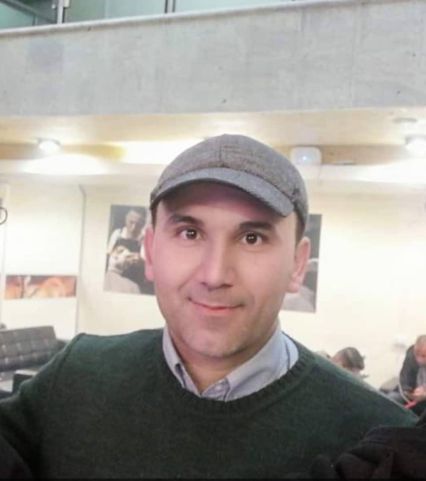 Dr. Mustafa Mohamed AlsagheirLHE2024 (Orthopaedic Surgery) Keynote
Dr. Mustafa Mohamed AlsagheirLHE2024 (Orthopaedic Surgery) Keynote -
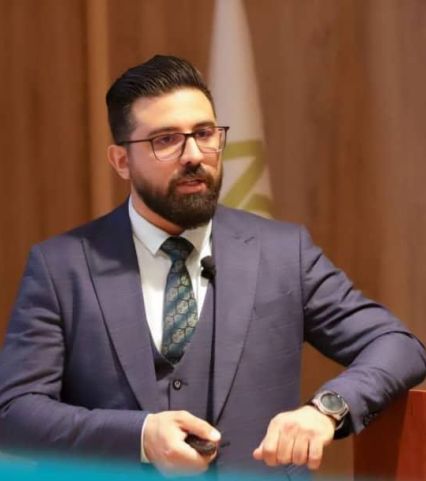 Dr. Taha Bait AlmalLHE2024 (Orthopaedic Surgery) Keynote
Dr. Taha Bait AlmalLHE2024 (Orthopaedic Surgery) Keynote -
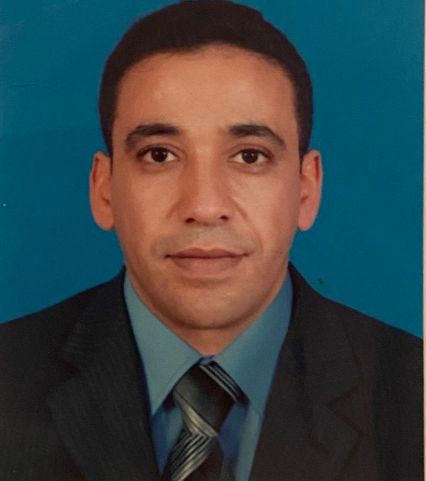 Dr. Alhadi Mohamed AlsaghaierLHE2024 (Orthopaedic Surgery) Keynote
Dr. Alhadi Mohamed AlsaghaierLHE2024 (Orthopaedic Surgery) Keynote
-
Professor Nicolette Roman Professor Nicolette Roman, a PhD in Psychology, is a Senior Professor and South African Research Chair in the study of families. She is the Founder and Director of the Centre for Interdisciplinary Studies of Children, Families and Society (CISCFS) at the University of the Western Cape and a Visiting Professor at the University of Huddersfield in the UK. Professor Roman has received numerous awards, including the Chancellor’s Outstanding Alumni Award in Health Sciences and the Dean’s Research Excellence Merit Award in the Faculty of Community and Health Sciences. Her research focuses on family life, developing and strengthening family capabilities through the family-parent-child relationship across the lifespan to achieve family and social cohesion and family well-being. She has published and presented her research locally and internationally, growing the critical mass in family science in South Africa. She is a partner in two international research consortiums, a parenting research capacity strengthening consortium among six African universities, and an international research project to develop a Masters to address SDG10. Professor Roman also leads a COVID-19 project developing interventions for families in post-COVID-19 and a study to explore family behaviour in an era of Climate Change. Professor Roman is renowned for strengthening the capacity of early career researchers, mentoring and supervision.
Lecture title: Family-centredness in healthcare: Striving for individual and family well-being
The family is an important social unit in society and is often seen as a system amongst other systems. For example, the family system and the healthcare system are seen as separately functioning systems. The family is the place and space where life begins, is quite complex in structure, shape, size and engagement but it is the space of comfort, care and support. Family members affect each other intellectually, emotionally, spiritually, physically, psychologically. The healthcare system is the space for providing care and support so that the patient shifts from illness to being well. The family and healthcare systems integrate when the family member is discharged and the family has to ‘take over’ the care and support role. Often a patient-centred or person-centred approach is used but with children, the family, mainly mothers are considered and engaged to continue with at-home care. Literature shows that family-centered care is more prevalent in paediatrics and disability rather than studies focusing on less vulnerable yet ill family members The evidence shows that family-centredness in health care improves many aspects of the integration of family and healthcare. These include the improvement of the quality of health care, knowledge and skills about health care, quality of life, as well as reduced stress, anxiety and depression. The relationships between family members and healthcare workers also improved. -
Dr. Mustafa Mohamed Alsagheir, an accomplished orthopedic surgeon and educator, has dedicated his career to advancing medical knowledge and practice in orthopedics. Holding a Consultant Orthopedic position since 2010, he has consistently demonstrated excellence in his field. Currently serving as Associate Professor in the Orthopedics Department at Misurata University, Mustafa has been an integral faculty member since 2013. Alongside his academic roles, he is the Head of the Orthopedic Department at Misrata Medical Center and Al Jazeera International Hospital, showcasing his leadership and clinical expertise. Dr. Mustafa’s commitment to medical education is evident through his roles as Coordinator of the Medical Education Office and Chairman of the Scientific Committee for the Orthopedic Diploma, where he ensures the development of future medical professionals. He is also a certified trainer for various orthopedic procedures, collaborating with prestigious international companies such as Paramedica, Zimmer, and Anika. In addition to his clinical and educational endeavors, Mustafa actively contributes to the orthopedic community as a member of several societies, including the Libyan Orthopedic Society, SICOT Orthopedic Society, and Tunisian Orthopedic Society. He is also involved in organizing conferences and scientific committees, furthering orthopedic research and innovation. Throughout his career, Mustafa has pursued continuous professional development, attending numerous courses and workshops worldwide. His dedication to advancing orthopedic knowledge is reflected in his publication of over 11 research papers in esteemed journals. With his wealth of experience and dedication to excellence, Mustafa Mohamed Mustafa Alsagheir continues to make significant contributions to the field of orthopedics, both locally and internationally
Lecture tite : Challenges Facing the Orthopedic Specialty in Libya and Initial Strategic Solutions
The orthopedic specialty in Libya faces significant challenges that hinder the provision of high-quality healthcare services. These challenges include inadequate infrastructure, limited access to advanced medical technologies, and a shortage of specialized healthcare professionals. Most healthcare facilities in Libya are not equipped with the necessary equipment and state-of-the-art facilities for complex orthopedic procedures, leading to delays in patient care and suboptimal treatment outcomes. Additionally, the political instability and economic downturn have exacerbated these issues, causing further disruptions in healthcare services and a decline in overall medical care standards.A critical challenge is the lack of opportunities for training and continuing education for orthopedic surgeons and allied healthcare professionals. This gap has resulted in a significant skills deficit, preventing practitioners from keeping abreast of the latest advancements and best practices in the field. The brain drain phenomenon, where skilled professionals migrate to other countries for better career prospects, further depletes the already limited pool of experienced orthopedic surgeons in Libya, worsening the healthcare crisis.
To address these challenges, the first and foremost step is substantial investment in healthcare infrastructure. Ensuring that hospitals and clinics are equipped with modern facilities.
-
Dr. Taha Bait Almal is an accomplished orthopedic doctor with three years of diverse experience spanning the Orthopedic and Emergency Departments at MMC in Misrata, Libya. Holding a Bachelor of Medicine and Bachelor of Surgery from Gulf Medical University, Ajman, Dr. Bait Almal has consistently demonstrated excellence in patient care and clinical expertise. Throughout their career, Bait Almal has continually honed their skills through a range of internships, courses, and certifications. They possess a comprehensive understanding of orthopedic procedures, reinforced by participation in workshops such as bone fracture fixation and hands-on sessions at the 1st Libyan Arthroscopy and Sport Injuries Conference. Dr. Bait Almal’s commitment to professional development is evident in their extensive training, including certifications in Basic Life Support, Advanced Cardiovascular Life Support, and specialized courses such as COVID-19 management. Their proficiency in languages including Arabic and English facilitates effective communication with diverse patients and medical teams. Beyond clinical practice, Dr. Bait Almal is actively engaged in medical education and community outreach. They have volunteered in various medical camps and educational sessions, showcasing a dedication to promoting health awareness and interdisciplinary collaboration. With a track record of excellence in patient care, a commitment to ongoing learning, and a passion for community health initiatives, Dr. Bait Almalh is a valuable asset to any medical team striving for excellence in orthopedic care and emergency medicine
Lecture tite: Challenges Facing the Orthopedic Specialty in Libya and Initial Strategic Solutions
The orthopedic specialty in Libya faces significant challenges that hinder the provision of high-quality healthcare services. These challenges include inadequate infrastructure, limited access to advanced medical technologies, and a shortage of specialized healthcare professionals. Most healthcare facilities in Libya are not equipped with the necessary equipment and state-of-the-art facilities for complex orthopedic procedures, leading to delays in patient care and suboptimal treatment outcomes. Additionally, the political instability and economic downturn have exacerbated these issues, causing further disruptions in healthcare services and a decline in overall medical care standards.A critical challenge is the lack of opportunities for training and continuing education for orthopedic surgeons and allied healthcare professionals. This gap has resulted in a significant skills deficit, preventing practitioners from keeping abreast of the latest advancements and best practices in the field. The brain drain phenomenon, where skilled professionals migrate to other countries for better career prospects, further depletes the already limited pool of experienced orthopedic surgeons in Libya, worsening the healthcare crisis.
To address these challenges, the first and foremost step is substantial investment in healthcare infrastructure. Ensuring that hospitals and clinics are equipped with modern facilities.
-
Dr. Alhadi Mohamed Alsaghaier is a seasoned orthopedic consultant with extensive experience spanning over two decades. He holds a Bachelor of Medicine and Surgery from Alarab Medical University and successfully completed the Libyan Board examinations in Orthopedics. Throughout his career, Alhadi has held various positions, including registrar, senior registrar, and specialist in orthopedic surgery, culminating in his current role as a consultant. In addition to his clinical duties, Alhadi is actively involved in medical education, serving as a teaching staff member at Misrata University’s Faculty of Medicine since 2008. He has also held leadership roles, such as Head of the Department of Orthopedics at MMC and Head of the Office of Quality and Continuing Education at Misrata University’s Faculty of Medicine. Alhadi’s commitment to professional development is evident through his participation in numerous conferences and scientific courses, both nationally and internationally. He has also contributed to the medical community through memberships in organizations such as the Misrata Medical Council, the General Libyan Medical Council, and the Orthopedic Society. Furthermore, Alhadi has demonstrated his dedication to humanitarian causes by actively participating in the treatment of war injuries in Libya on multiple occasions. His broad expertise, combined with his passion for education and community service, makes him a valuable asset to the field of orthopedic surgery.
Lecture tite : Challenges Facing the Orthopedic Specialty in Libya and Initial Strategic Solutions
The orthopedic specialty in Libya faces significant challenges that hinder the provision of high-quality healthcare services. These challenges include inadequate infrastructure, limited access to advanced medical technologies, and a shortage of specialized healthcare professionals. Most healthcare facilities in Libya are not equipped with the necessary equipment and state-of-the-art facilities for complex orthopedic procedures, leading to delays in patient care and suboptimal treatment outcomes. Additionally, the political instability and economic downturn have exacerbated these issues, causing further disruptions in healthcare services and a decline in overall medical care standards.A critical challenge is the lack of opportunities for training and continuing education for orthopedic surgeons and allied healthcare professionals. This gap has resulted in a significant skills deficit, preventing practitioners from keeping abreast of the latest advancements and best practices in the field. The brain drain phenomenon, where skilled professionals migrate to other countries for better career prospects, further depletes the already limited pool of experienced orthopedic surgeons in Libya, worsening the healthcare crisis.
To address these challenges, the first and foremost step is substantial investment in healthcare infrastructure. Ensuring that hospitals and clinics are equipped with modern facilities.
-
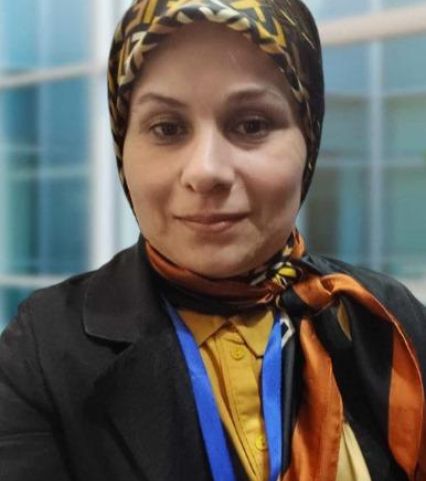 Dr. Maali Abdussalam GaaimLHE2024 (Diagnostic Radiology) Keynote
Dr. Maali Abdussalam GaaimLHE2024 (Diagnostic Radiology) Keynote -
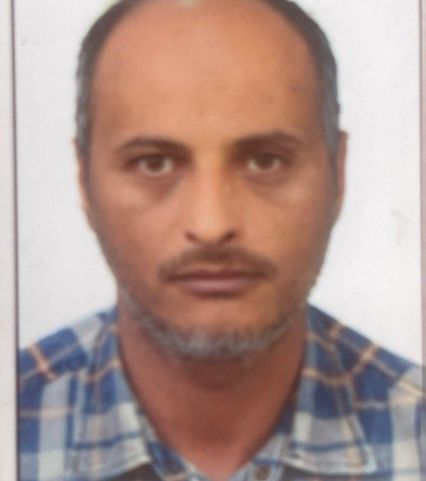 Dr. Imad AlmrymiLHE2024 (Emergency Medicine) Keynote
Dr. Imad AlmrymiLHE2024 (Emergency Medicine) Keynote -
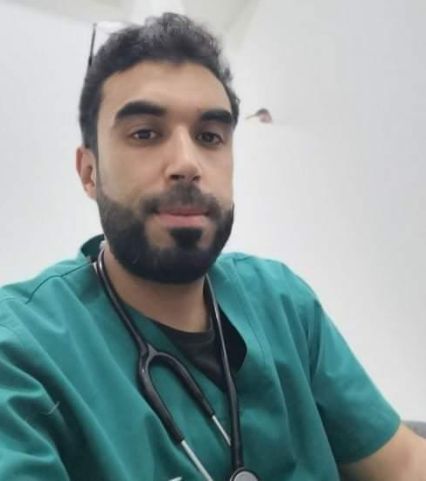 Dr. Mohammed Ibrahim ElgheblawiLHE2024 (Emergency Medicine) Keynote
Dr. Mohammed Ibrahim ElgheblawiLHE2024 (Emergency Medicine) Keynote -
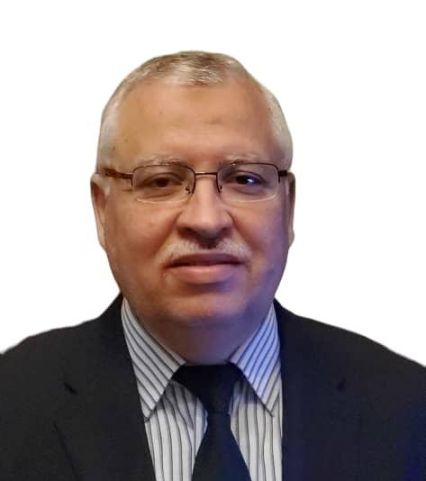 Dr. Kamel Ahmed AlazabiLHE2024 (Emergency Medicine) Keynote
Dr. Kamel Ahmed AlazabiLHE2024 (Emergency Medicine) Keynote
-
Dr. Maali Abdussalam Gaaim is a preeminent Radiologist, with specialized expertise in Diagnostic Radiology, and further sub-specialization in Breast Imaging and Cardiac Imaging. Her distinguished academic background includes a Master’s degree and ongoing fellowship training, with notable certifications from esteemed institutions including the FRCR and enrollment for EDIR. Dr. Gaaim has deepened her expertise through fellowships in Breast Imaging at the Bahyea Cancer Institute in Cairo, renowned for its pioneering work in early cancer detection and treatment, and in Cardiac Imaging at Cardiac imaging Foundations &Institutes. Her professional affiliations reflect her commitment to her field, being an active member of several leading radiological societies including the European Society of Cardiac Imaging, ECR, the Royal College of Radiologists, UK, and EUSOBI. Since 2011, Dr. Gaaim has been an integral part of the academic staff at the School of Medicine, University of Tripoli, contributing significantly as a Measurement Coordinator in radiology. Dr. Gaaim’s clinical acumen is complemented by her active involvement in research, particularly in the application of artificial intelligence in the early detection of breast cancer. Her work, which also includes the assessment of diffusion-weighted imaging for prostate cancer detection, underscores her dedication to advancing radiological practices. Dr. Gaaim’s profound commitment is also evident in her numerous certifications, making her a pivotal figure in the radiological community both in Libya and internationally.
Lecture tite : Innovative Approaches in Diagnostic Imaging: From Cardiac Interventions to Breast Cancer Management
The integration of various cardiac imaging techniques—such as echocardiography, cardiac CT, MRI, and myocardial scintigraphy—into clinical practice underscores today’s advanced approach to the comprehensive evaluation of cardiac pathologies. Particularly, the combination of these modalities is enhancing diagnostic accuracy in conditions like Transcatheter Aortic Valve Implantation (TAVI) and Coronary Artery Disease (CAD), especially after a positive cardiac CT scan in high-risk patients. This multi-modality imaging approach aims to bridge the gap between radiology and cardiology, facilitating optimal risk assessment, pre-procedural planning, and primary prevention in high-risk patient groups. Despite the evolution of clinical guidelines which provide updated risk scores, significant discrepancies persist between guidelines and daily practice, underscoring the failure to identify at-risk individuals proactively.
Simultaneously, Contrast-Enhanced Mammography (CEM) has proven to be a significant advancement in breast cancer management, posing as an effective alternative to MRI. CEM utilizes intravenous iodinated contrast materials to enhance tumor neovascularity, thereby improving the visualization of enhancing lesions with dual-energy digital mammography. This method is particularly useful in resolving equivocal findings at conventional breast imaging exams, preoperative staging, and monitoring the therapeutic response in breast cancer treatment. CEM offers a cost-effective and accessible option yet increases the radiation dose slightly and has a small risk associated with contrast media. Ongoing investigations include the development of CEM-guided biopsy systems and the integration of artificial intelligence to enhance diagnostic processes further. The dual application of advanced imaging techniques in cardiac and breast imaging exemplifies the dynamic progress in medical imaging, aiming to enhance patient outcomes through precision diagnostics and tailored therapeutic strategies.
-
Dr. Imad Almrymi is an accomplished Emergency and Disaster Physician, deeply engaged in medical humanitarian efforts in Tripoli, Libya. Dr. Almrymi holds a European Master of Disaster Medicine from Vrije Universiteit Brussel, Belgium, and a Bachelor’s degree in Medicine and Surgery from Tripoli Medical University. His academic training is further enhanced by certifications in various emergency response and management courses. Since February 2016, Dr. Almrymi has been an integral part of the International Organization for Migration (IOM) as a Clinical Health Supervisor (Referral Officer). In this role, he oversees critical health interventions and coordinates comprehensive migration health activities across the West region. His responsibilities include managing urgent medical cases, developing training modules, and ensuring the confidentiality and integrity of medical information. Dr. Almrymi’s extensive experience spans several key roles, including leading the Emergency Team at the Libyan Emergency Medicine Association since May 2017, where he has significantly contributed to the development and execution of the association’s strategic initiatives. His proactive involvement in the COVID-19 response—both in clinical settings and through strategic planning—highlights his commitment to addressing public health crises. Additionally, Dr. Almrymi has served in various capacities at Alkhadra Hospital, from an emergency physician to an anesthesiologist, demonstrating his versatility and dedication in the medical field. His international experience includes a stint as a Medical Attaché in Belgium, facilitating medical treatment for Libyan patients and enhancing cooperation between Libyan and European healthcare systems. Dr. Almrymi’s career is marked by a steadfast dedication to improving emergency medical services and disaster response mechanisms, making significant impacts on healthcare delivery in both routine and crisis situations. His leadership in training programs and his role in high-stakes environments reflect his expertise and commitment to enhancing healthcare standards and patient care globally.
Panel title: From disaster response to disaster prevention in Libya
Libya covers a vast area of 1.76 million km² and is considered the fourth largest country in Africa in terms of area and the sixteenth largest in the world. It is distinguished by its diverse terrain, including desert, plains, and mountains. This large area and diversity of terrain make it vulnerable to various types of disasters, such as droughts, hurricanes, floods, and earthquakes. In addition to these natural disasters, man-made disasters of various kinds may occur, such as wars, fires, and disasters resulting from engineering errors. Disasters causes immediate aftermath of the disaster; mortality and demographic recovery; land loss and capital destruction; economic crisis; and blame, scapegoating, and social unrest and causes longer-term structural consequences; societal collapse; economic reconstruction; long-term demographic change; reconstruction, reform, and social changes; and redistribution of resources The starting point for reducing disaster risk is Knowing the hazards and the physical, social, economic, and environmental vulnerabilities and of the ways in which hazards and vulnerabilities are changing in the short and long term, followed by action taken on the basis of that knowledge. Conducting risk assessments to identify potential hazards and vulnerabilities are therefore fundamental to work on disaster risk reduction and recovery. Furthermore, risk assessment management helps in developing strategies for risk reduction and disaster management. Early warning systems play a significant role today. They enable preparedness action as well as a prompt response from workers, employers, and national or local authorities by providing timely and accurate information about disaster risk. They can therefore prevent loss of human lives, as well as economic loss. In Libya Early Warning Systems still not fully effective and exploring ways to improve and expand early warning capabilities in Libya. An effective end-to-end early warning system includes four core elements, where each must function efficiently for the system to be successful: Risk knowledge, Monitoring, Response capability and Warning communication. Changing the strategies from disaster response to disaster prevention is crucial in view of increasing challenges due to climate changes and increasing risk of different types of disasters in Libya.
-
Dr. Mohammed Ibrahim Elgheblawi, a distinguished Emergency Medicine Specialist from Tripoli, Libya, has carved a notable career in the medical field since his graduation in 2016 from Tripoli University with a degree in Medicine and Surgery. Certified by both the Arab Board and Libyan Board of Health Specialization in Emergency Medicine, Dr. ElGheblawi has proven his expertise in acute medical care through intensive roles in emergency rooms and ICU settings at the Tripoli University Hospital and subsequently at Oil Clinic. His expertise spans handling critical cases such as DKA, asthma exacerbations, COPD, poisoning, and more. Dr. ElGheblawi is not just committed to medical practice but also to medical education and leadership. Since 2017, he has led the Emergency Team at the Libyan Emergency Medicine Association (LEMA), contributing to scientific curricula development and training future medical trainers, enhancing emergency medical care standards across Libya. Furthering his commitment to medical education, Dr. ElGheblawi has instructed over 57 courses in life-saving protocols including BLS, ACLS, PALS, and TLS, significantly impacting emergency medical response capabilities. His part-time roles have included working with Médecins Sans Frontières, where he provided essential outpatient care and managed complex medical cases, emphasizing his adaptability and dedication to medical humanitarian efforts. In addition to his clinical and teaching roles, Dr. ElGheblawi actively participates in international medical conferences and has received multiple accolades for his contributions to medical training and practice. His professional memberships include the Libyan Emergency Medicine Association and Médecins Sans Frontières, underscoring his broad influence in the field of emergency medicine both locally and international.
Panel title: From disaster response to disaster prevention in Libya
Libya covers a vast area of 1.76 million km² and is considered the fourth largest country in Africa in terms of area and the sixteenth largest in the world. It is distinguished by its diverse terrain, including desert, plains, and mountains. This large area and diversity of terrain make it vulnerable to various types of disasters, such as droughts, hurricanes, floods, and earthquakes. In addition to these natural disasters, man-made disasters of various kinds may occur, such as wars, fires, and disasters resulting from engineering errors. Disasters causes immediate aftermath of the disaster; mortality and demographic recovery; land loss and capital destruction; economic crisis; and blame, scapegoating, and social unrest and causes longer-term structural consequences; societal collapse; economic reconstruction; long-term demographic change; reconstruction, reform, and social changes; and redistribution of resources The starting point for reducing disaster risk is Knowing the hazards and the physical, social, economic, and environmental vulnerabilities and of the ways in which hazards and vulnerabilities are changing in the short and long term, followed by action taken on the basis of that knowledge. Conducting risk assessments to identify potential hazards and vulnerabilities are therefore fundamental to work on disaster risk reduction and recovery. Furthermore, risk assessment management helps in developing strategies for risk reduction and disaster management. Early warning systems play a significant role today. They enable preparedness action as well as a prompt response from workers, employers, and national or local authorities by providing timely and accurate information about disaster risk. They can therefore prevent loss of human lives, as well as economic loss. In Libya Early Warning Systems still not fully effective and exploring ways to improve and expand early warning capabilities in Libya. An effective end-to-end early warning system includes four core elements, where each must function efficiently for the system to be successful: Risk knowledge, Monitoring, Response capability and Warning communication. Changing the strategies from disaster response to disaster prevention is crucial in view of increasing challenges due to climate changes and increasing risk of different types of disasters in Libya.
-
Dr. Kamel Ahmed Alazabi, has established a distinguished career in medicine spanning over three decades. A graduate of Damascus University’s Faculty of Medicine in 1988, Dr. Alazabi has fortified his medical expertise with a postgraduate certification from the Libyan Board of Community Medicine in 2013. His early career involved intensive roles, including a residency at Tripoli Central Hospital’s Infectious Disease Department from 1989 to 1998. His tenure included significant international experience, such as working in Technica International Company from 1993 to 1996 and in Mozambique’s Military Hospital from 2001 to 2004. His role expanded to overseeing internal diseases at Hospital Ameiteka and later serving as the Medical Director at the Central Blood Bank in Tripoli from 2011 to 2020. Dr. Alazabi is a dedicated educator and has been a cooperative lecturer at the University of Tripoli’s Faculty of Medicine since 2014, contributing substantially to the advancement of community medicine education in Libya. His commitment extends beyond academia into significant healthcare leadership roles, such as coordinating national strategies for managing the COVID-19 epidemic and advocating for gender-based violence prevention with the Libyan Ministry of Health. As of 2023, Dr. Alazabi leads as the Director of Technical Cooperation and International Relations at the National Center for Crisis Management. He continues to contribute to international dialogues and training programs focused on enhancing healthcare responses to human rights and crisis situations. His expertise is recognized through numerous certifications and accolades, including contributions to blood donation initiatives and several international healthcare conferences. Dr. Alazabi’s career is marked by a steadfast commitment to improving healthcare standards and policies both within Libya and in the international community.
Panel title: From disaster response to disaster prevention in Libya
Libya covers a vast area of 1.76 million km² and is considered the fourth largest country in Africa in terms of area and the sixteenth largest in the world. It is distinguished by its diverse terrain, including desert, plains, and mountains. This large area and diversity of terrain make it vulnerable to various types of disasters, such as droughts, hurricanes, floods, and earthquakes. In addition to these natural disasters, man-made disasters of various kinds may occur, such as wars, fires, and disasters resulting from engineering errors. Disasters causes immediate aftermath of the disaster; mortality and demographic recovery; land loss and capital destruction; economic crisis; and blame, scapegoating, and social unrest and causes longer-term structural consequences; societal collapse; economic reconstruction; long-term demographic change; reconstruction, reform, and social changes; and redistribution of resources The starting point for reducing disaster risk is Knowing the hazards and the physical, social, economic, and environmental vulnerabilities and of the ways in which hazards and vulnerabilities are changing in the short and long term, followed by action taken on the basis of that knowledge. Conducting risk assessments to identify potential hazards and vulnerabilities are therefore fundamental to work on disaster risk reduction and recovery. Furthermore, risk assessment management helps in developing strategies for risk reduction and disaster management. Early warning systems play a significant role today. They enable preparedness action as well as a prompt response from workers, employers, and national or local authorities by providing timely and accurate information about disaster risk. They can therefore prevent loss of human lives, as well as economic loss. In Libya Early Warning Systems still not fully effective and exploring ways to improve and expand early warning capabilities in Libya. An effective end-to-end early warning system includes four core elements, where each must function efficiently for the system to be successful: Risk knowledge, Monitoring, Response capability and Warning communication. Changing the strategies from disaster response to disaster prevention is crucial in view of increasing challenges due to climate changes and increasing risk of different types of disasters in Libya.
-
 Dr Amani Al-MaltiLHE2024 (Family Medicine) Keynote
Dr Amani Al-MaltiLHE2024 (Family Medicine) Keynote -
 Dr. Afaf MustafaLHE2024 (Medical Laboratory) Keynote
Dr. Afaf MustafaLHE2024 (Medical Laboratory) Keynote -
 Prof. Rene KrauseLHE2024 Palliative Care and Medicine Keynote
Prof. Rene KrauseLHE2024 Palliative Care and Medicine Keynote -
 Prof. Dr. Suleyman OzkanLHE2024 Cardiology Keynote
Prof. Dr. Suleyman OzkanLHE2024 Cardiology Keynote
-
Dr Amani Al-Malti is a dedicated Family Medicine Consultant with a wealth of medical expertise. She obtained her medical degree from Tripoli University in 2007 and completed her internship in 2008. Dr Al-Malti holds a Master’s degree in Bio-Medical Basis of Disease from Sheffield Hallam University and has researched Lymphocytic Leukemic Cell in Vitro Survival at Queen Mary University. She was recognized for her work with an award at the ASH conference for abstract publication in Georgia, USA in 2012. Throughout her Journey in the UK National Health System, she has gained extensive experience in various medical fields including elderly care, stroke and rehab, accident and emergency medicine, and psychiatry. Dr Al-Malti has also worked as a medical doctor in acute medicine across different hospitals in the UK. She successfully completed a Family Medicine training program, earning the MRCGP qualification and a Certificate of Completion of Training (CCT). During her training, she actively participated in teaching undergraduate students and doctors preparing for MRCGP exams. She played a pivotal role in organizing study groups and mock tests. Dr Al-Malti contributed to the review of the radicalization training course for the UK Home Office, proposing changes that were approved after discussions with the prevention lead at Oxford Health Trust. Dr. Al-Malti currently working as a Family Medicine Consultant/General practitioner at an urgent care center in High Wycombe Hospital, Buckinghamshire area, where she also provides general practice services. She holds a GMC license to practice in the UK, is on the registered list of primary care services, and is a member of both the Royal College of General Practitioners (RCGP) and the British Medical Association (BMA). Dr Al-Malti’s compassionate nature and commitment to patient care make her a valuable asset in the medical field.
Lecture title: Strengthening Primary Health Care for Universal Health Coverage: A Comprehensive Approach to Health and Wellbeing
Primary health care (PHC) embodies the essential right of all individuals to attain the highest possible standard of health. It encompasses a comprehensive approach designed to bolster national health systems and deliver health and wellness services more directly to communities. This inclusive strategy facilitates the integration of care throughout an individual’s life, empowering individuals, families, and communities to actively manage and improve their health. At its core, PHC serves as the everyday healthcare framework provided by designated professionals. These providers typically act as the initial contact and continuous care point within the health system, coordinating various specialist services that patients may require. Often, these roles are filled by primary care physicians, general practitioners, family physicians, registered nurses, or pharmacists, depending on local practices and regulations. The scope of PHC extends beyond mere treatment; it also includes prevention, health promotion, rehabilitation, and palliation. This model encourages healthier lifestyle choices, disease prevention, and timely access to diagnostic, treatment, and recovery services. It is structured to address most common health needs and is often the first point of contact for a wide array of medical issues—from acute illnesses and injuries to managing chronic diseases like diabetes and heart disease. Evidence supports that PHC enhances healthcare accessibility, improves health outcomes, and reduces the need for hospitalization and emergency department visits. By integrating a broad spectrum of healthcare services, PHC ensures continuity of care, which is pivotal for maintaining long-term health. It plays a crucial role in establishing a resilient health system that is not only capable of addressing everyday health needs but is also equipped to handle public health emergencies. Ultimately, PHC is instrumental in achieving universal health coverage, making it a fundamental cornerstone in fostering sustainable, resilient, and equitable healthcare systems worldwide. This approach significantly contributes to the overall strengthening of healthcare infrastructure, ensuring comprehensive care accessibility for all sections of the population.
-
Dr. Afaf Mustafa, a seasoned biomedical specialist, currently serves as the Chief Medical Officer for the Libyan Foreign Medical Center and as the Medical Affairs Advisor for Royal Clinic, where she pioneers strategies for hospital administration and healthcare management. Her career is marked by significant leadership roles, including overseeing the medical team for the Deputy Minister of Health for General Hospitals and managing the development center for medical training and consultancy. A fervent advocate for healthcare quality, Dr. Mustafa has dedicated her career to enhancing therapeutic services within healthcare facilities. She is renowned for conducting professional workshops aimed at elevating medical service standards in hospitals. Her extensive experience also spans quality assurance in pharmaceuticals, ensuring medication effectiveness and safety, which has been integral to her roles with various pharmaceutical distribution companies. Dr. Mustafa’s academic contributions are equally notable. She has been a faculty member at the Tripoli Higher Institute of Medical Sciences, Al Zawia branch, where she also managed administrative affairs and the scientific committee. Her educational background includes a Ph.D. in Healthcare Management, which enriches her lectures and seminars, particularly on topics such as healthcare quality management, patient safety, and clinical effectiveness. Her commitment extends beyond healthcare into nutrition science, where she has actively participated in conferences focused on therapeutic nutrition and food science, emphasizing nutrition’s critical role in disease prevention and recovery. Through her multidimensional expertise, Dr. Mustafa is shaping the future of healthcare by integrating scientific rigor with compassionate care, ensuring both high-quality medical practices and patient satisfaction across the Libyan healthcare landscape.
Panel title: Integrating Quality Management Systems in Clinical Laboratories: Strategies for Effective Implementation and Sustained Success through Enhanced Hospital Management and Communication Tools
Integrating Quality Management Systems (QMS) in clinical laboratories is essential for ensuring the accuracy and reliability of diagnostic results, which are critical for patient care. This abstract outlines key strategies for the effective implementation and sustained success of QMS within clinical laboratories through enhanced hospital management and advanced communication tools. The cornerstone of a successful QMS integration involves adherence to international standards such as ISO 15189, which provides guidelines for quality and competence specific to medical laboratories. Compliance with such standards ensures standardized processes and high-quality outputs, forming the foundation of trust and safety in laboratory results that healthcare providers and patients rely on. Training and continuous professional development constitute a significant aspect of QMS. Personnel must be thoroughly trained not only on current procedures but also on ongoing updates to QMS protocols and technology uses. This continuous skill development ensures that laboratory staff can adapt to evolving technologies and methodologies, maintaining the laboratory’s compliance with standards and enhancing operational efficiency. The utilization of sophisticated Laboratory Information Management Systems (LIMS) is another critical strategy. These systems streamline data management, automate workflows, and reduce human error, thereby increasing the efficiency of data handling and communication within the lab and with external stakeholders. Effective communication channels are also paramount. Integrating QMS requires seamless communication across various levels of hospital management. Enhanced communication tools aid in the timely dissemination of critical data and operational updates, facilitating swift decision-making and reinforcing the lab’s role in comprehensive patient care. Finally, implementing regular audits and feedback mechanisms is essential for maintaining the efficacy of the QMS. These practices help identify areas for improvement and ensure continuous compliance with quality standards, thereby fostering a culture of quality and transparency within the laboratory environment. In summary, the successful integration of Quality Management Systems in clinical laboratories hinges on strict adherence to international standards, continuous staff training, advanced data management systems, effective communication, and regular quality checks. These elements work synergistically to ensure high-quality laboratory services and optimal patient outcomes.
-
Prof. Rene Krause is a Family Physician with a master’s degree in Palliative Medicine and a postgraduate diploma in Health Professional education. She is currently the Head of the Division of Interdisciplinary Palliative Care and Medicine in the Department of family medicine, Community and Emergency Care (University of Cape Town) and convener of the postgraduate diploma in Palliative Medicine. She assists in the 6th year of lecturing and supervision during the rotation in Family Medicine. She also supervises Masters’ students in Palliative Medicine and supervises registrars of Family Medicine during their Palliative Medicine rotation. Clinically, A/Prof Krause has an honorary appointment at Groote Schuur hospital, consulting in palliative care. In Groote Schuur Hospital, she works alongside the oncology team, doing combined ward rounds and consulting in palliative care across this 900-bed hospital. Dr Krause is a board member of the African Palliative Care Association and PalPrac, the South African Palliative Medicine Practitioner’s Association. Prof. Krause’s research interest is the strengthening and integration of Palliative Care practices in hospitals. A/Prof Krause is doing a PhD in integrating palliative care in academic teaching hospitals within the Department of family medicine at UCT.
Lecture title: Integration of Palliative Care into Hospital Settings: Lessons Learned.
The integration of palliative care into hospital settings represents a pivotal aspect of comprehensive healthcare delivery, particularly in regions where dedicated palliative care services may be limited. This abstract delves into the essential lessons learned from the process of integrating palliative care into hospital settings, with a specific focus on the context of Africa countries. In many healthcare systems, palliative care has traditionally been associated with end-of-life care. However, the evolving understanding of palliative care emphasizes its role in improving the quality of life for patients facing serious illnesses, regardless of prognosis. This paradigm shift underscores the importance of integrating palliative care principles into various healthcare settings, including hospitals. Drawing from experiences worldwide and adapting them to the African context, this abstract highlights key lessons in the integration of palliative care into hospital settings. It explores strategies for raising awareness among healthcare providers, patients, and families about the benefits of palliative care, emphasizing its holistic approach to addressing physical, psychosocial, and spiritual needs. Furthermore, this topic will discusses the significance of interdisciplinary collaboration and the role of hospital administrators in driving policy changes to support palliative care integration. It also addresses challenges such as limited resources, workforce capacity, and cultural perceptions surrounding death and dying, offering insights into overcoming these barriers within the Africa healthcare landscape. Through case studies and real-world examples, this topic provides practical guidance on implementing palliative care programs within hospital settings. By embracing the integration of palliative care, hospitals can enhance patient-centered care delivery, alleviate suffering, and improve the overall quality of life for patients facing serious illnesses, thus fulfilling the fundamental principles of compassionate healthcare.
-
Prof. Dr. Suleyman Ozkan is a distinguished Consultant Cardiovascular Surgeon renowned for his expertise in adult and congenital heart operations. Graduating from Hacettepe University Faculty of Medicine in 1996, he embarked on a journey of professional growth, specializing in cardiovascular surgery at Baskent University Hospital. Dr. Ozkan’s contributions to cardiac surgery extend beyond clinical practice. His MD thesis focused on long-term outcomes in patients with tetralogy of Fallot, showcasing his commitment to advancing medical knowledge. He has received accolades for his research, including the Best Research Award for his work on antiendothelial cell antibodies. As an educator, Dr. Ozkan plays a vital role in training the next generation of cardiovascular surgeons. He is actively involved in teaching and mentoring medical students, residents, and fellows, employing innovative approaches to medical education. Dr. Ozkan’s professional affiliations highlight his dedication to staying abreast of the latest developments in cardiovascular surgery. He is a member of prestigious organizations such as the Turkish Thoracic and Cardiovascular Surgery Society and the International Society for Heart and Lung Transplantation. In addition to his clinical and academic endeavors, Dr. Ozkan is committed to humanitarian efforts, providing surgical expertise to patients in need globally. His exemplary career exemplifies excellence, innovation, and compassionate patient care in cardiovascular surgery.
Lecture title: Advancements and Innovations in Cardiovascular Surgery: Enhancing Patient Care and Outcomes.
This comprehensive topic delves into the latest advancements and innovative techniques in cardiovascular surgery, aiming to improve patient care and outcomes. Covering a wide array of procedures, including coronary bypass with full arterial revascularization, minimally invasive valve repair and replacement (MICS), and complex procedures like arc replacement and great vessels surgery for dissections and aneurysms, the discussion explores both open, interventional, and hybrid approaches. Furthermore, the topic addresses emergent situations, emphasizing the management of all emergencies in cardiovascular surgery and the critical role of transportation modalities like ECMO and transplant services, including the utilization of heliports for swift patient transfers. A significant focus is placed on multidisciplinary collaboration and teamwork within the department and hospital, highlighting the importance of cohesive efforts in delivering comprehensive care. Additionally, the establishment and organization of a new congenital heart surgery center are explored, emphasizing specialized teams, tailored equipment, and scientific collaboration to optimize outcomes for pediatric patients. Moreover, the topic explores the integration of theoretical courses, workshops, and practical training programs to ensure skill enhancement and proficiency in cutting-edge techniques, including the use of injectable and decellularized valves, port access valve repairs, and other innovative approaches. In summary, this topic encompasses a holistic overview of advancements and organizational strategies in cardiovascular surgery, aiming to elevate standards of care, enhance patient outcomes, and foster continuous innovation in the field.
-
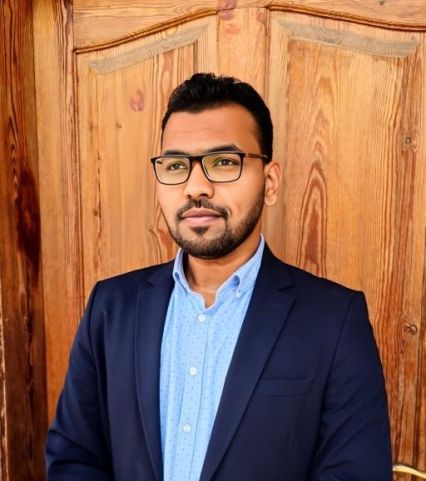 Eng. Mirza Khalid BaigLHE2024 Clinical Laboratory Keynote
Eng. Mirza Khalid BaigLHE2024 Clinical Laboratory Keynote -
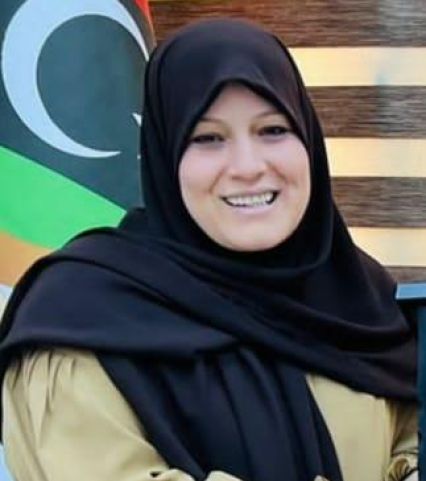 Eng. Khadija AmaraLHE2024 (Medical Laboratory) Keynote
Eng. Khadija AmaraLHE2024 (Medical Laboratory) Keynote -
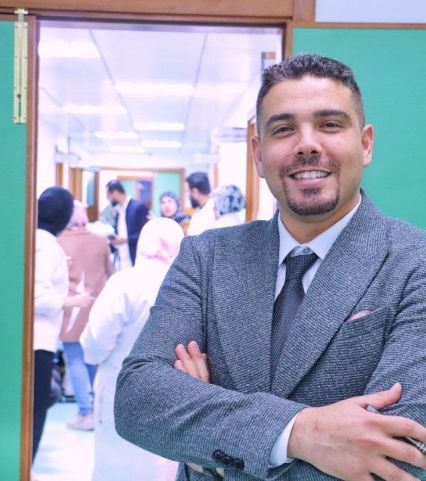 Dr. Majdi ShuhomyLHE2024 (Ophthalmology) Keynote
Dr. Majdi ShuhomyLHE2024 (Ophthalmology) Keynote -
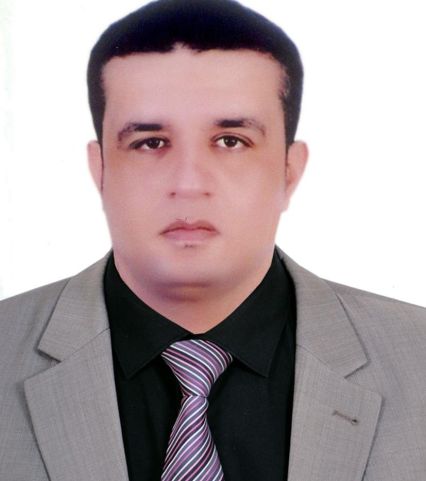 Dr. Jamal Abdalla AlmesratiLHE2024 (Dermatology) Keynote
Dr. Jamal Abdalla AlmesratiLHE2024 (Dermatology) Keynote
-
Eng. Mirza Muhammad Khalid Baig is an accomplished Quality Management Specialist in Clinical Laboratory Services, with a comprehensive background spanning over nine years at accredited healthcare facilities following JCIA, CAP, ISO 15189, and ISO 9001 standards. Based in Tripoli, Libya, Khalid has honed his expertise in enhancing laboratory operations through rigorous quality control and regulatory compliance. His professional journey includes pivotal roles such as the Pathology Supervisor & Quality Assurance Coordinator at Shaukat Khanum Memorial Hospital and later, as a Quality Assurance and Training Officer at Indus Hospital & Health Network in Karachi, Pakistan. In these capacities, Khalid has been instrumental in implementing effective quality management systems, optimizing lab operations, and leading teams towards achieving significant gains in efficiency and accuracy. His efforts have consistently aligned with international standards, significantly uplifting the quality of healthcare services. Khalid’s academic qualifications are equally impressive, featuring a Masters in Business Administration and a Masters of Science in Microbiology, which provide him with a robust theoretical and practical foundation necessary for high-level management and specialized scientific roles. He excels in navigating the complexities of laboratory management, leveraging advanced diagnostic technologies, and fostering a culture of continuous improvement and safety. Driven by a mission to elevate healthcare quality and patient outcomes, Khalid is actively seeking a managerial role that allows him to deploy his extensive skills and experiences. He remains committed to professional development, ensuring his practices reflect the cutting-edge of medical science and operational management. His leadership is characterized by strategic foresight and a deep commitment to ethical standards, making him a valuable asset to any leading healthcare institution.
Panel title: Integrating Quality Management Systems in Clinical Laboratories: Strategies for Effective Implementation and Sustained Success through Enhanced Hospital Management and Communication Tools
Integrating Quality Management Systems (QMS) in clinical laboratories is essential for ensuring the accuracy and reliability of diagnostic results, which are critical for patient care. This abstract outlines key strategies for the effective implementation and sustained success of QMS within clinical laboratories through enhanced hospital management and advanced communication tools. The cornerstone of a successful QMS integration involves adherence to international standards such as ISO 15189, which provides guidelines for quality and competence specific to medical laboratories. Compliance with such standards ensures standardized processes and high-quality outputs, forming the foundation of trust and safety in laboratory results that healthcare providers and patients rely on. Training and continuous professional development constitute a significant aspect of QMS. Personnel must be thoroughly trained not only on current procedures but also on ongoing updates to QMS protocols and technology uses. This continuous skill development ensures that laboratory staff can adapt to evolving technologies and methodologies, maintaining the laboratory’s compliance with standards and enhancing operational efficiency. The utilization of sophisticated Laboratory Information Management Systems (LIMS) is another critical strategy. These systems streamline data management, automate workflows, and reduce human error, thereby increasing the efficiency of data handling and communication within the lab and with external stakeholders. Effective communication channels are also paramount. Integrating QMS requires seamless communication across various levels of hospital management. Enhanced communication tools aid in the timely dissemination of critical data and operational updates, facilitating swift decision-making and reinforcing the lab’s role in comprehensive patient care. Finally, implementing regular audits and feedback mechanisms is essential for maintaining the efficacy of the QMS. These practices help identify areas for improvement and ensure continuous compliance with quality standards, thereby fostering a culture of quality and transparency within the laboratory environment. In summary, the successful integration of Quality Management Systems in clinical laboratories hinges on strict adherence to international standards, continuous staff training, advanced data management systems, effective communication, and regular quality checks. These elements work synergistically to ensure high-quality laboratory services and optimal patient outcomes.
-
Engineer Khadija Amara Ali is a distinguished figure in the field of medical laboratory science in Libya. With a bachelor’s degree in medical laboratories from the institution formerly known as Al-Fateh University, Khadija has established herself as a prominent expert in her field. She also holds a diploma in medical laboratory technology, underscoring her comprehensive technical expertise and foundational knowledge. Currently serving as the Assistant Director of a medical laboratory, Khadija’s role is pivotal in shaping the operational standards and scientific output of the facility. Her professional acumen is further recognized through her active participation as a member of the scientific committee at the Reference Medical Laboratory in Tripoli, Libya. This position allows her to influence major decisions regarding laboratory practices and research directions. Khadija’s leadership extends to her role as Director of the Training and Continuing Education Department at the Libyan General Syndicate of Laboratory Medicine. In this capacity, she oversees the development and implementation of educational programs that enhance the competencies of laboratory professionals across the nation. Her efforts in this role are crucial in elevating the standards of laboratory medicine in Libya. Moreover, Khadija has played a critical role in challenging and shaping the protocols as a member of the technical committee responsible for crafting the first Libyan guide for medical sample management. Her contributions to this guide have been instrumental in standardizing procedures across laboratories, ensuring quality and consistency in medical sample handling and testing throughout the country. Her work not only enhances the efficiency and accuracy of medical diagnostics but also significantly impacts patient care across Libya.
Panel title: Integrating Quality Management Systems in Clinical Laboratories: Strategies for Effective Implementation and Sustained Success through Enhanced Hospital Management and Communication Tools
Integrating Quality Management Systems (QMS) in clinical laboratories is essential for ensuring the accuracy and reliability of diagnostic results, which are critical for patient care. This abstract outlines key strategies for the effective implementation and sustained success of QMS within clinical laboratories through enhanced hospital management and advanced communication tools. The cornerstone of a successful QMS integration involves adherence to international standards such as ISO 15189, which provides guidelines for quality and competence specific to medical laboratories. Compliance with such standards ensures standardized processes and high-quality outputs, forming the foundation of trust and safety in laboratory results that healthcare providers and patients rely on. Training and continuous professional development constitute a significant aspect of QMS. Personnel must be thoroughly trained not only on current procedures but also on ongoing updates to QMS protocols and technology uses. This continuous skill development ensures that laboratory staff can adapt to evolving technologies and methodologies, maintaining the laboratory’s compliance with standards and enhancing operational efficiency. The utilization of sophisticated Laboratory Information Management Systems (LIMS) is another critical strategy. These systems streamline data management, automate workflows, and reduce human error, thereby increasing the efficiency of data handling and communication within the lab and with external stakeholders. Effective communication channels are also paramount. Integrating QMS requires seamless communication across various levels of hospital management. Enhanced communication tools aid in the timely dissemination of critical data and operational updates, facilitating swift decision-making and reinforcing the lab’s role in comprehensive patient care. Finally, implementing regular audits and feedback mechanisms is essential for maintaining the efficacy of the QMS. These practices help identify areas for improvement and ensure continuous compliance with quality standards, thereby fostering a culture of quality and transparency within the laboratory environment. In summary, the successful integration of Quality Management Systems in clinical laboratories hinges on strict adherence to international standards, continuous staff training, advanced data management systems, effective communication, and regular quality checks. These elements work synergistically to ensure high-quality laboratory services and optimal patient outcomes.
-
Dr. Majdi Shuhomy, MD, MRCS, FICO, is a distinguished ophthalmologist renowned for his exceptional contributions to the field of eye surgery. Holding a Doctorate in Medicine and Surgery (MD) from the Libyan Board of Ophthalmology, Dr. Shuhomy has augmented his credentials with prestigious certifications and memberships. He is a proud member of the Royal College of Surgeons in Glasgow, where he attained his Membership in Ophthalmology (MRCS), showcasing his commitment to excellence in surgical practice. Additionally, Dr. Shuhomy has furthered his expertise through a Fellowship with the International Council of Ophthalmology (FICO), underscoring his dedication to advancing his skills and knowledge in the field. As an esteemed member of the European Society of Cataract and Refractive Surgeries (ESCRS), Dr. Shuhomy remains at the forefront of cutting-edge advancements in ophthalmic surgery, continuously striving to provide the highest standard of care to his patients. Beyond his clinical practice, Dr. Shuhomy is deeply passionate about education and is actively involved as an Assistant Professor in the Department of Ophthalmology at the Benghazi University Faculty of Medicine. His commitment to teaching and mentorship ensures the next generation of ophthalmologists is equipped with the skills and knowledge to excel in their practice. With his profound expertise, unwavering dedication to patient care, and commitment to advancing the field of ophthalmology through education and innovation, Dr. Majdi Shuhomy stands as a beacon of excellence in eye surgery, positively impacting the lives of countless patients and shaping the future of the profession.
Lecture title: “Ocular Diabetic Complications: Causes, Consequences, and Prevention Strategies”Abstract:
Diabetes mellitus is a significant health concern that poses a severe threat to ocular health, leading to various complications ranging from cataracts to diabetic retinopathy. In this lecture, we will present key findings from an extensive analysis conducted on diabetic patients, shedding light on the causes, consequences, and prevention strategies for ocular diabetic complications. One of the primary objectives of this lecture is to highlight the prevalence and pathophysiology of different diabetic ocular conditions. Our investigation has revealed a notable correlation between longer disease duration and an increased incidence of diabetic retinopathy. We will delve into the distribution and underlying mechanisms of conditions such as cataracts, glaucoma, and various stages of diabetic retinopathy, including macular edema. Furthermore, this lecture will emphasize the urgent need for tailored interventions and regular screenings to facilitate early detection and effective management of ocular complications in diabetic patients. By implementing effective prevention strategies, such as optimizing glycemic control, regular screening, and promoting lifestyle modifications, we aim to mitigate the burden of visual impairments and enhance the overall quality of life for diabetic patients. Join us for an insightful discussion that delves into the complexities of ocular diabetic complications, offering actionable insights for ophthalmologists and healthcare professionals. Together, let us navigate the path toward improved ocular health outcomes in diabetic populationsWorkshop title “Investigation Retinal Course,” focused on Diagnostic Biomarkers in OCT and OCT Angiography.
The “Investigation Retinal Course” is designed to unlock the secrets of retinal diagnostics, offering participants a comprehensive journey from mastering the basics to attaining expert proficiency in Optical Coherence Tomography (OCT) and OCT Angiography. This unique opportunity allows attendees to gain hands-on experience in interpreting diagnostic biomarkers and navigating retinal imaging data with confidence.
Our curriculum is carefully crafted to cover a wide range of topics, including OCT and OCT biomarkers in various retinal diseases such as Diabetic Retinopathy, Uveitis, ARMD, and Vascular Occlusions. Through interactive trsessions and practical exercises, participants will elevate their clinical practice with cutting-edge knowledge and skills tailored to address diverse retinal pathologies.Key highlights of the workshop include:
Comprehensive coverage of OCT and OCT angiography techniques
Interpretation of diagnostic biomarkers in retinal diseases
Practical sessions for hands-on experience and skill development
In-depth discussions on the latest advancements in retinal imaging technology
By enrolling in the “Investigation Retinal Course,” participants will embark on a transformative journey towards becoming retinal imaging experts, equipped with the expertise needed to make informed clinical decisions and provide optimal patient care.We would be honored to have you join us for this enlightening workshop. Please let us know if you have any questions or require further information. Your presence and insights would greatly enrich the learning experience for all participants.
-
Dr. Jamal Abdalla Almesrati, an eminent dermatologist and venereologist, holds an MD from the Libyan Board and has completed the initial part of the Arab Board in Dermatology and Venereology. He graduated with a Bachelor of Medicine and Surgery from the University of Benghazi. Currently serving as a faculty member at Misurata University’s Faculty of Medicine, Dr. Almesrati is also an integral trainer at Misurata Medical Center for both the Libyan and Arab Boards. His contributions extend to his role on the dermatology and venereology board at the Libyan Board of Medical Specialties, influencing future dermatological practices. Dr. Almesrati’s pioneering efforts include founding the Leishmania and Leprosy clinics at the National Center for Disease Control in Misurata. His clinical expertise continues to benefit the Misurata Medical Center, where he practices, following significant experience at the Tripoli Medical Center. An active participant in the Libyan Society of Dermatology and Aesthetics, Dr. Almesrati is at the forefront of dermatological research. He regularly presents at major conferences, chairs sessions, and delivers postgraduate lectures. Additionally, he has significantly impacted medical education by serving as an external examiner for clinical exams across Libyan medical faculties. Through his commitment to research, education, and clinical practice, Dr. Almesrati sets high standards in dermatological care, making substantial contributions to the field both locally and regionally.
Lecture title: Psoriasis: Genetic and Environmental Factors, Clinical Features, and Advanced Therapeutic StrategiesPsoriasis is a chronic immune-mediated disorder resulting from a combination of genetic predisposition and environmental triggers such as trauma, infections, medications, and psychological stress. Its pathophysiology involves various T-cell classes interacting with dendritic cells and innate immune cells like neutrophils and keratinocytes. Genetic studies have highlighted the role of the innate and adaptive immune systems and altered epidermal differentiation. The most prevalent form of psoriasis is characterized by sharply defined, scaly erythematous plaques, occasionally accompanied by sterile pustules. Psoriasis commonly affects the scalp, elbows, knees, nails, hands, feet, and trunk, including the intergluteal fold. Histological examination typically reveals acanthosis with elongated rete ridges, hypogranulosis, hyper- and parakeratosis, dilated blood vessels, and a perivascular lymphocyte infiltrate with neutrophils, either isolated or in aggregates in the epidermis. Psoriatic arthritis is the main systemic manifestation and often presents as asymmetric oligoarthritis of the small joints in the hands and feet. Other comorbidities include depression, metabolic syndrome, and cardiovascular disease in moderate to severe cases. Topical therapy is used for limited disease, while phototherapy, methotrexate, cyclosporine, and targeted immunomodulators (biologics) that focus on key immune cells and cytokines can lead to significant clinical improvements in moderate to severe psoriasis.
-
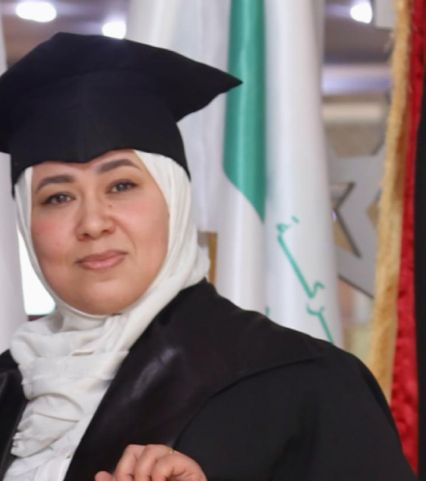 Dr. Sana AbdallhLHE2024 (Diabetes) Keynote
Dr. Sana AbdallhLHE2024 (Diabetes) Keynote -
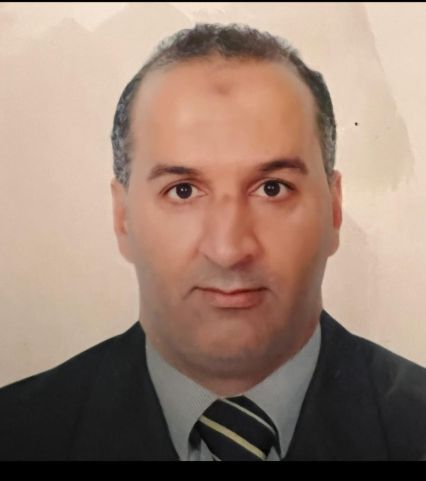 Dr. Naser Ali SayehLHE2024 (Medical Laboratory) Keynote
Dr. Naser Ali SayehLHE2024 (Medical Laboratory) Keynote -
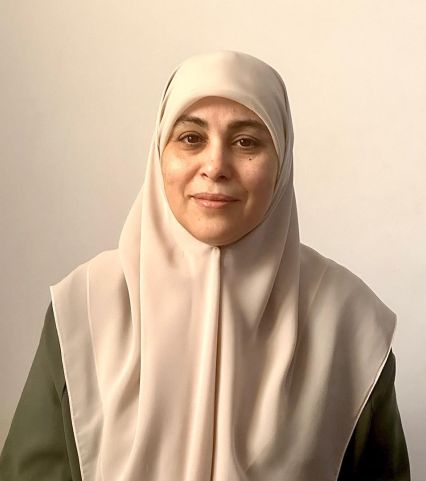 Dr. Nagat Al Sadek AlkmishiLHE2024 (Medical Laboratory) Keynote
Dr. Nagat Al Sadek AlkmishiLHE2024 (Medical Laboratory) Keynote -
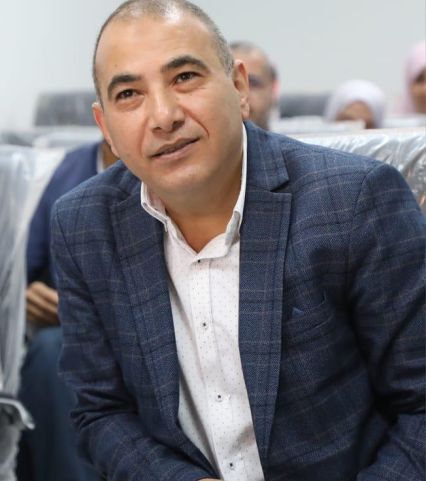 Dr. Mohideen Ahmed GhrianiLHE2024 Respiratory Medicine Keynote
Dr. Mohideen Ahmed GhrianiLHE2024 Respiratory Medicine Keynote
-
Dr. Sana Elmabrok Khalifa Abdallh, specializing in diabetes and endocrinology at the Diabetic and Endocrinology Hospital in Tripoli, Libya, Diploma in diabetes 2021. Dr. Sana، is a highly skilled and dedicated healthcare professional with a wealth of experience in diabetes management and endocrinology. Sana has established herself as a prominent figure in the medical community through her extensive education, practical training, and continuous professional development. Sana completed her secondary education in 2001 before pursuing her passion for medicine at Tripoli University, where she graduated from the Faculty of Medicine in 2010-2011. Since then, she has undergone various specialized training programs and obtained numerous certifications to enhance her clinical expertise. These include workshops and courses in practical diabetes management, basic life support, clinical nutrition, and mechanical ventilation, among others. Additionally, Sana obtained a Diploma in Nutrition in 2018, further expanding her knowledge in the field of nutrition and its role in healthcare. With over a decade of experience as a senior physician at the Diabetes and Endocrine Center in Tripoli, Sana has demonstrated exceptional proficiency in managing complex cases and providing comprehensive care to patients with diabetes and other endocrine disorders. In addition to her clinical role, she has also served as an employee in the operations company for health insurance, gaining valuable insights into healthcare administration and quality assurance practices. Throughout her career, Sana has remained committed to continuous learning and professional growth, actively participating in various conferences, symposiums, and workshops related to diabetes management and endocrinology. Her attendance at national and international events, such as the Diabetes Symposium, DAR Diabetes and Ramadan MENA, and the International Cardiometabolic Forum, reflects her dedication to staying abreast of the latest advancements and best practices in her field. Beyond her professional endeavors, Sana enjoys a range of hobbies and activities, including swimming, walking, traveling, shopping, and cooking. Her diverse interests complement her role as a healthcare professional, allowing her to maintain a balanced lifestyle and holistic approach to well-being. With her exceptional clinical skills, extensive experience, and unwavering dedication to patient care, Dr. Sana Elmabrok Khalifa Abdallh continues to make significant contributions to the healthcare sector in Libya and beyond.
Workshop title: Insulin Pump and Improved of Quality of Life
The workshop titled “Insulin Pump and Improved Quality of Life” aims to equip doctors with comprehensive knowledge and practical skills related to the management of diabetes using insulin pump therapy. This workshop goes beyond traditional diabetes management techniques and focuses on the advanced technology and methodologies associated with insulin pump therapy, which has been shown to significantly enhance the quality of life for patients with diabetes. Participants will gain a deep understanding of the principles behind insulin pump therapy, including its mechanisms of action, indications, and contraindications. Through interactive sessions and hands-on training, doctors will learn how to initiate, adjust, and optimize insulin pump therapy for individual patients, taking into account their unique medical history, lifestyle, and treatment goals. Moreover, the workshop will delve into the latest advancements in insulin pump technology and software, empowering doctors to stay updated with the rapidly evolving landscape of diabetes care. By the end of the workshop, participants will be proficient in utilizing insulin pumps as a tool for achieving glycemic control, preventing complications, and ultimately improving the overall quality of life for their patients with diabetes. -
Dr. Naser Ali Sayeh, esteemed Dean and General Manager of the Medical Reference Laboratory in Tripoli, Libya, is a prominent figure in the field of medicinal chemistry. With a PhD from the United States, Dr. Sayeh brings over 28 years of extensive experience, primarily focusing on medical laboratory procedures and blood bank management. His expertise in these areas has significantly elevated the quality of healthcare services provided to the community. Before his current role, Dr. Sayeh spent a decade as a Medical Laboratory Scientist (MLS) across various healthcare institutions, where he developed a robust skill set that marries scientific knowledge with practical application in healthcare settings. His leadership at the Medical Reference Laboratory is marked by innovative management strategies and a commitment to excellence, which have notably improved laboratory operations and patient care standards. As a member of the American Society of Clinical Pathology (ASCP), Dr. Sayeh continually integrates the latest advancements in clinical pathology into his practice, ensuring that his laboratory remains at the cutting edge of technological and procedural developments. His professional journey reflects a dedicated effort to enhance diagnostic accuracy and efficacy, profoundly impacting patient outcomes and public health in Libya.
Lecture title: Sample Collection, Handing and Processing Manual
The manual on “Sample Collection, Handling, and Processing” provides comprehensive guidelines and protocols essential for ensuring the integrity and accuracy of biological samples in clinical and research settings. This document serves as a vital resource for healthcare professionals, laboratory technicians, and researchers, detailing the procedures for effective sample management from collection through analysis. Purpose: The primary objective of this manual is to standardize the processes involved in the collection, handling, and processing of various types of biological samples. By adhering to these standardized procedures, facilities can minimize the risks of sample contamination or degradation, thereby enhancing the reliability of diagnostic results. Scope: The manual covers a broad spectrum of sample types, including blood, urine, tissues, and other bodily fluids. It outlines specific techniques for each type of sample, considering factors such as the sample’s nature, the required volume, and the intended analysis or testing. It also addresses the appropriate tools and containers for collection, labeling requirements, and transportation conditions. Methodology: Detailed step-by-step instructions are provided for each procedure, accompanied by illustrations where necessary. The manual discusses the appropriate use of anticoagulants, preservatives, and stabilizers, and it specifies the optimal temperature and environmental conditions for the storage and transport of samples. Guidelines for documentation and record-keeping are also elaborated to ensure traceability and compliance with regulatory standards. Quality Control: A significant emphasis is placed on quality control measures throughout the manual. These include protocols for the regular calibration of equipment, the validation of collection methods, and the continuous training of personnel involved in sample management. Impact: Implementing the practices outlined in this manual is expected to lead to improved sample quality, which is crucial for accurate diagnostics and effective patient care. Additionally, it will aid in the reproducibility of research findings and enhance the overall efficiency of laboratory operations. Conclusion: This manual is an indispensable tool for any facility involved in the collection and analysis of biological samples. By standardizing sample management procedures, it not only ensures the accuracy and reliability of diagnostic and research data but also supports the overall advancement of medical science and patient care.
-
Dr. Nagat Al Sadek Alkmishi, a seasoned expert in medical laboratory sciences, has dedicated over three decades to advancing the field of clinical biochemistry and medical laboratory technology. Graduating with a Bachelor of Science from Tripoli University in 1993, Dr. Alkmishi furthered her education in the United Kingdom, achieving a second BSc in 2006, a Master’s degree in 2013, and a distinguished membership from the Royal College of Pathologists (Clinical Biochemistry) in 2015. Her professional journey is marked by significant contributions to the medical community, including the development of national guidelines for blood sample handling and the establishment of robust quality management systems within Libyan medical laboratories. Dr. Alkmishi’s commitment to quality improvement is evident in her role as a quality consultant at the Libyan Accreditation Center and her extensive involvement in various scientific committees, including the Medical Manpower Development Center and the National Center for Disease Control. As an educator, she has profoundly impacted medical training and development, having held long-term teaching positions at the University of Tripoli and various higher institutes. She has also played a crucial role in curriculum development for medical laboratory technology and biosafety, underscoring her commitment to nurturing the next generation of healthcare professionals. In recognition of her expertise, Dr. Alkmishi has served as a medical consultant within the Human Resources Department of the Ministry of Health and as a scientific supervisor for numerous diploma programs focused on laboratory technology and quality management. Her extensive experience and dedication to her field make her a pivotal figure in Libya’s healthcare sector, pushing forward the boundaries of medical science and laboratory excellence.
Panel title: Integrating Quality Management Systems in Clinical Laboratories: Strategies for Effective Implementation and Sustained Success through Enhanced Hospital Management and Communication Tools
Integrating Quality Management Systems (QMS) in clinical laboratories is essential for ensuring the accuracy and reliability of diagnostic results, which are critical for patient care. This abstract outlines key strategies for the effective implementation and sustained success of QMS within clinical laboratories through enhanced hospital management and advanced communication tools. The cornerstone of a successful QMS integration involves adherence to international standards such as ISO 15189, which provides guidelines for quality and competence specific to medical laboratories. Compliance with such standards ensures standardized processes and high-quality outputs, forming the foundation of trust and safety in laboratory results that healthcare providers and patients rely on. Training and continuous professional development constitute a significant aspect of QMS. Personnel must be thoroughly trained not only on current procedures but also on ongoing updates to QMS protocols and technology uses. This continuous skill development ensures that laboratory staff can adapt to evolving technologies and methodologies, maintaining the laboratory’s compliance with standards and enhancing operational efficiency. The utilization of sophisticated Laboratory Information Management Systems (LIMS) is another critical strategy. These systems streamline data management, automate workflows, and reduce human error, thereby increasing the efficiency of data handling and communication within the lab and with external stakeholders. Effective communication channels are also paramount. Integrating QMS requires seamless communication across various levels of hospital management. Enhanced communication tools aid in the timely dissemination of critical data and operational updates, facilitating swift decision-making and reinforcing the lab’s role in comprehensive patient care. Finally, implementing regular audits and feedback mechanisms is essential for maintaining the efficacy of the QMS. These practices help identify areas for improvement and ensure continuous compliance with quality standards, thereby fostering a culture of quality and transparency within the laboratory environment. In summary, the successful integration of Quality Management Systems in clinical laboratories hinges on strict adherence to international standards, continuous staff training, advanced data management systems, effective communication, and regular quality checks. These elements work synergistically to ensure high-quality laboratory services and optimal patient outcomes.
-
Dr. Mohideen Ahmed Ghriani is an esteemed respiratory and general medicine consultant with extensive experience spanning over two decades; Dr. Ghriani has built a distinguished career marked by significant contributions to medical practice, education, and public health. He obtained his MBChB from Tripoli University, Faculty of Medicine, in 1999, followed by an MSc in Respiratory Medicine from Imperial College London in 2006. In 2012, he earned his MRCP (UK) from the Royal College of Physicians, UK. Currently, Dr. Ghriani serves as the General Manager of Abu Settah Respiratory Specialized Centre, a position he has held since December 2023. He is also a consultant in Respiratory and General Medicine at Tripoli University Hospital, where he has been serving since August 2018. In addition, he has been a lecturer at the Faculty of Medicine, University of Tripoli, since February 2014, where he has contributed to shaping the future of medical professionals. Dr. Ghriani is a founding member of the Libyan Thoracic Society since 2019 and an influential member of the Tajoura Municipal Council, providing expert consultations on health matters. He has been a member of the Respiratory Consultants Sub-committee for the National Higher Consultancy Committee for the Corona Pandemic in Libya from 2020 to 2021. He also headed the Al 3youn Isolation Centre for COVID-19 patients from 2020 to 2022. Dr. Ghriani has served as an adviser to the Emergency Department of the Libyan Ministry of Health since 2021. His commitment to humanitarian efforts is demonstrated by his volunteer work with the United Nations High Commissioner for Refugees during the Libyan war in 2011. Residing in Tajoura, Tripoli, Dr. Ghriani balances his professional life with his role as a dedicated family man, married with five children. His contributions to respiratory medicine, public health, and medical education continue to make a significant impact on the healthcare landscape in Libya.
Panel title: Under LTS and Abusitta chest center
The Libyan Thoracic Society (LTS) and the Abusitta Chest Center are pivotal institutions in advancing respiratory care in Libya. The LTS, established to foster collaboration and knowledge sharing among respiratory healthcare professionals, plays a crucial role in setting standards, promoting research, and advocating for improved respiratory health services across the country. The Abusitta Chest Center, a specialized respiratory care facility, complements the efforts of LTS by providing comprehensive diagnostic, therapeutic, and rehabilitative services for patients with various respiratory conditions. The Abusitta Chest Center is equipped with state-of-the-art technology and staffed by highly trained professionals dedicated to the diagnosis and management of respiratory diseases. Services at the center include advanced pulmonary function testing, bronchoscopy, sleep studies, and critical care for patients with severe respiratory conditions. The center’s multidisciplinary approach ensures that patients receive holistic care, addressing both the physical and psychological aspects of respiratory illnesses. A key focus of the Abusitta Chest Center is the management of chronic respiratory diseases such as asthma, chronic obstructive pulmonary disease (COPD), and tuberculosis. Through patient education, lifestyle modification programs, and personalized treatment plans, the center aims to improve patient outcomes and enhance their quality of life. Additionally, the center is actively involved in community outreach programs to raise awareness about respiratory health and preventive measures. The collaboration between LTS and the Abusitta Chest Center has significantly contributed to the advancement of respiratory care in Libya. By hosting national conferences, workshops, and continuous medical education programs, they provide platforms for healthcare professionals to stay updated with the latest advancements in respiratory medicine. These initiatives also facilitate the exchange of best practices and foster a culture of continuous improvement in respiratory care. In conclusion, the efforts of the Libyan Thoracic Society and the Abusitta Chest Center are instrumental in elevating the standards of respiratory healthcare in Libya. Through their comprehensive services, educational programs, and community outreach initiatives, they are making significant strides in addressing the respiratory health challenges faced by the Libyan population.
-
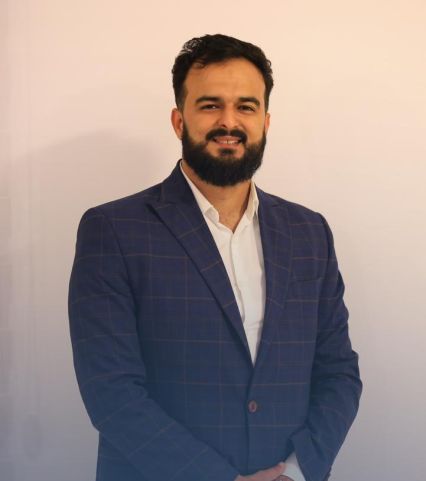 Dr. Mohammad QurayshLHE2024 (Dentist) Keynote
Dr. Mohammad QurayshLHE2024 (Dentist) Keynote -
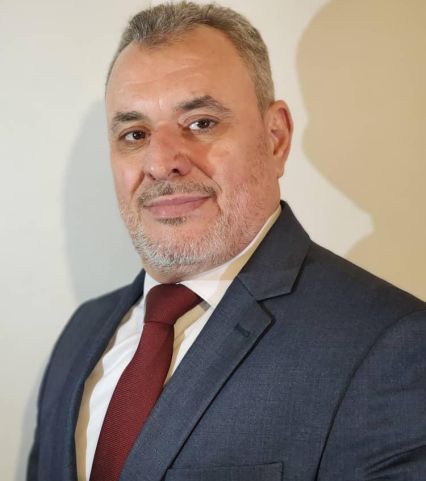 Dr. Mohamed EhmaidLHE2024 Panel 1 (Cardiology)
Dr. Mohamed EhmaidLHE2024 Panel 1 (Cardiology) -
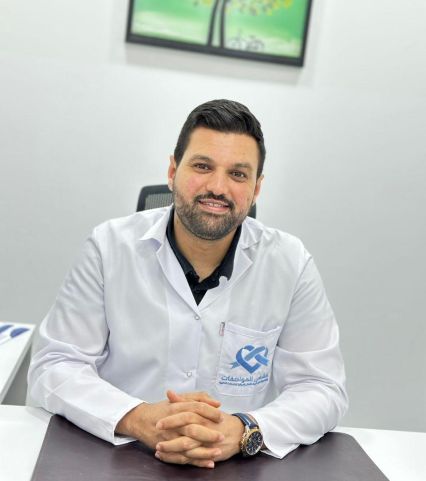 Dr. Mohamed DaoubLHE2024 (Orthopaedic Hands & Peripheral Nerve) Keynote
Dr. Mohamed DaoubLHE2024 (Orthopaedic Hands & Peripheral Nerve) Keynote -
 Dr. Khoula Mohamed AmedLHE2024 (Diabetes) Keynote
Dr. Khoula Mohamed AmedLHE2024 (Diabetes) Keynote
-
Dr. Mohammad Jumaa Quraysh, a distinguished graduate of Tripoli University in 2018/2019, stands at the forefront of endodontic education and practice. In 2020, he enhanced his expertise as a visiting physician at both Ain Shams University and Al-Azhar University. His academic contributions continue as an esteemed instructor in endodontics at Future University. With a global reputation for excellence, Dr. Quraysh has delivered keynote lectures at prestigious international conferences such as IDEX Istanbul and IDEX Egypt. In Algeria, he has shared his insights at the International Root Canal Treatment Conference, the First International Conference in Ouargla, and the MDEX Conference and Exhibition in Oran, while also leaving an indelible mark at the Dentex Conference in Algiers and the First International Conference in Sohag, Egypt, as well as the Alexandria Dental Association Conference. As a visionary educator, he has pioneered the EAZY ENDO DAM course and the ENDO ADVANCED DOSE course, reaching professionals throughout Libya. His passion for fostering clinical excellence is further exemplified by his leadership of the Share Knowledge program, which has bolstered the capabilities of medical staff in public clinics across Tripoli. Recognized as an international thought leader, Dr. Quraysh continues to elevate the field of endodontics through his unwavering commitment to education, mentorship, and progressive clinical practice, shaping the next generation of dental professionals while advancing global standards in endodontic care.
Lecture title: Managing your daily endodontic practiceThis section provides a comprehensive exploration of managing a daily endodontic practice, addressing both clinical excellence and effective practice management strategies. It begins by emphasizing the importance of streamlined workflows that balance patient care with efficient use of time and resources. By incorporating strategic scheduling practices, practitioners can optimize patient flow, minimize wait times, and maximize productivity throughout the day. The clinical aspect focuses on maintaining the highest standards in endodontic care through evidence-based treatment protocols and the proper use of advanced technology. This includes efficient diagnosis, comprehensive treatment planning, and skillful execution of procedures like root canal therapy. Leveraging modern tools, such as digital imaging systems and rotary instruments, enhances accuracy and minimizes patient discomfort. Practice management is explored in terms of team collaboration and clear communication between staff members. By fostering a well-coordinated team, practitioners can ensure that administrative tasks like patient scheduling, billing, and record-keeping are handled smoothly. Staff training and empowerment are highlighted as key elements in maintaining a cohesive, high-performing team. Patient engagement is crucial, so strategies for building trust and improving communication are emphasized. By educating patients about their conditions and treatment options, practitioners can foster a positive relationship that leads to better compliance and overall satisfaction. Personalized care and follow-up also play a role in strengthening this bond, encouraging patients to return for regular visits. Finally, the section addresses the importance of maintaining a practice that adapts to evolving industry trends. This includes continual professional development, staying updated with emerging technologies, and refining business strategies to ensure financial sustainability. Overall, this section serves as a guide to achieving a well-rounded, successful endodontic practice. By balancing clinical proficiency with effective management, practitioners can provide high-quality care while ensuring the smooth operation of their practice daily.
-
Dr. Mohamed Ehmaid, MD, PhD, FESC, is an esteemed cardiologist with a distinguished career in medicine, currently serving as an Associate Professor of Medicine at Tripoli Medical. Specializing in heart failure diagnosis, management, and prevention, he has demonstrated exceptional expertise in interventional cardiology, particularly in complex interventional lesions. Beginning his professional journey in 2000 at Tripoli Medical Centre, Dr. Ehmaid quickly ascended to the role of department director from 2010 to 2019. During his tenure, he mentored numerous postgraduate fellows and supervised their research endeavors. His contributions to cardiology encompass comprehensive cardiac evaluations, personalized treatment plans, and proficient performance of cardiac procedures like echocardiography, stress testing, and percutaneous coronary interventions (PCI). Dr. Ehmaid’s commitment to advancing medical knowledge is evident through his active participation in clinical research and academic publications. He is a member of esteemed professional associations such as the Libyan Cardiac Society, European Society of Cardiology, and American Heart Association, showcasing his dedication to staying abreast of the latest developments in cardiology.
Known for his clinical acumen, compassionate approach, and excellent communication skills, Dr. Mohamed Ehmaid is highly regarded in the medical community. His unwavering commitment to exceptional patient care and valuable contributions to cardiology solidify his position as a respected figure in the field.
Title: Panel: Stent Save a Life Initiative (Libyan Cardiac Society)
-
Dr. Mohamed Daoub is a distinguished Orthopaedic, Hand, and Peripheral Nerve Surgeon from Tripoli, Libya. Dr. Daoub is a graduate of the University of Tripoli with a Bachelor of Medicine and Surgery, who further honed his expertise by earning a Master of Medicine in Orthopaedics from the University of Cape Town, a Fellowship from the College of Orthopaedic Surgeons of South Africa & 2 years fellowship in Hands & peripheral nerve from Martin Singer Hand unit Groote Schuur Hospital. In his professional journey, Dr. Daoub has garnered extensive experience across various high-caliber medical institutions. He completed his senior registrar in multiple specialties of orthopaedics at Groote Schuur Hospital and the Red Cross Memorial Children’s Hospital in Cape Town, South Africa. These rotations included elective lower limb, upper limb, and pediatric orthopaedics, covering a broad spectrum of conditions from trauma to elective surgeries. Dr. Daoub is currently enhancing the medical landscape in Tripoli by practicing at Alkhalil, Muasafat, and Almasara hospitals, specializing in hand and peripheral nerve surgeries. His medical prowess is also showcased through his involvement in academic circles as he actively engages in teaching roles. He educates junior registrars and medical officers, and examines final-year medical students at the University of Cape Town. His academic contributions are complemented by his active participation in cutting-edge research and continuous medical education, regularly presenting at orthopaedic conferences and contributing to international journals. Dr. Daoub is affiliated with several esteemed medical bodies, including the South African Orthopaedic Association and the Global Nerve Foundation, underlining his commitment to advancing orthopaedic knowledge and practices globally. His work, deeply rooted in clinical excellence and innovative surgical techniques, marks him as a leader in his field, contributing significantly to the evolution of hands and nerve surgery.
Lecture title: Nerve transfers for Cervical Spinal Cord Injury- A Surgical Strategy to Enhance Upper Limb Function
Cervical spinal cord injury (CSCI) often results in significant loss of upper limb function, profoundly affecting individuals’ quality of life and independence. Nerve transfer surgery has emerged as a promising intervention that can significantly improve motor function in affected patients. This comprehensive review assesses the efficacy and neurological outcomes of nerve transfers for enhancing upper limb function in CSCI patients, synthesizing data from clinical trials and case studies that highlight the potential for functional recovery through muscle reinnervation. Results indicate that nerve transfers can enable voluntary control and recovery of motor functions in upper extremities, with success rates varying based on injury severity, timing of surgery, and specific nerves targeted. Early surgical intervention, preferably within 6 to 12 months post-injury, is correlated with more favorable outcomes due to the reduced risk of irreversible muscle atrophy and joint deformities. Although challenges persist, particularly in patient selection and determining optimal timing for surgery, nerve transfer surgery holds transformative potential for CSCI treatment, promising substantial improvements in patient rehabilitation. Ongoing research and refinements in technique are crucial for optimizing outcomes and standardizing surgical approaches, potentially revolutionizing care strategies for individuals with CSCI worldwide.
-
Dr. Khoula Mohamed Amed is a dedicated dialectologist specializing in diabetes and endocrinology at the Diabetes and Endocrine Center in Tripoli. She graduated with a Bachelor’s degree in Medicine and General Surgery from Tripoli University in 2010-2011. Since June 2012, Dr. Amed has been committed to her role at the Diabetes and Endocrine Center, contributing significantly to the management of diabetes and related endocrine disorders. Dr. Amed is highly experienced in implementing advanced diabetes management technologies. In 2012, she pioneered the use of flexible insulin therapy, collaborating with a team from France to streamline the process of starting insulin pumps. By 2013, she successfully introduced the Medtronic insulin pump, providing critical care to patients over a three-day admission period. Throughout her career, Dr. Amed has been actively involved in education and training. She has participated in numerous conferences and workshops, including the first Diabetic Conference (Workshop FIT) in 2014, World Diabetic Day in Ghadames Hospital in 2019, and World Kidney Day in March 2019. She has also played a vital role in educating the public about coronavirus and breast cancer in various schools and hospitals. With over a decade of experience, Dr. Amed has served in multiple capacities, including working in the ICU and covering diabetes and endocrine OPD/ICU/wards at Gadames Hospital for four years. During the COVID-19 pandemic in 2020, she worked in isolated wards, providing essential care to patients. Dr. Amed’s educational background includes a course in French at the Open University in 2015, a course in mechanical ventilation in 2017, and workshops with Medtronic in 2019 and 2023. She also serves as an invigilator for IELTS exams at the British Council Libya. Fluent in Arabic, English, and French, Dr. Khoula Mohamed Amed possesses strong skills in strategic planning, volunteer work, time management, and teamwork. She continues to make significant contributions to the field of diabetes and endocrinology, striving to improve patient outcomes and promote health education.
Workshop title: Insulin Pump and Improved of Quality of Life
The workshop titled “Insulin Pump and Improved Quality of Life” aims to equip doctors with comprehensive knowledge and practical skills related to the management of diabetes using insulin pump therapy. This workshop goes beyond traditional diabetes management techniques and focuses on the advanced technology and methodologies associated with insulin pump therapy, which has been shown to significantly enhance the quality of life for patients with diabetes. Participants will gain a deep understanding of the principles behind insulin pump therapy, including its mechanisms of action, indications, and contraindications. Through interactive sessions and hands-on training, doctors will learn how to initiate, adjust, and optimize insulin pump therapy for individual patients, taking into account their unique medical history, lifestyle, and treatment goals. Moreover, the workshop will delve into the latest advancements in insulin pump technology and software, empowering doctors to stay updated with the rapidly evolving landscape of diabetes care. By the end of the workshop, participants will be proficient in utilizing insulin pumps as a tool for achieving glycemic control, preventing complications, and ultimately improving the overall quality of life for their patients with diabetes.
-
 Prof. Juli SwitalaLHE2024 Infectious diseases Keynote
Prof. Juli SwitalaLHE2024 Infectious diseases Keynote -
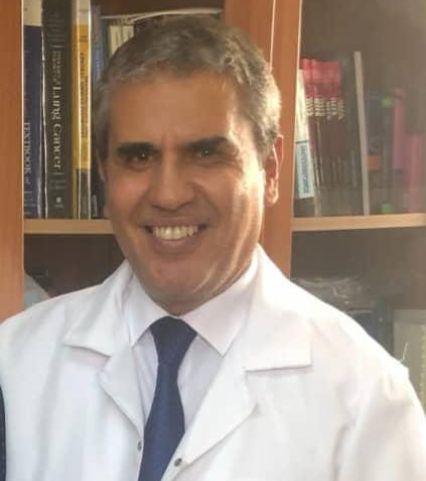 Dr. Hasan Mohamed AlmusratiLHE2024 Respiratory Medicine Keynote
Dr. Hasan Mohamed AlmusratiLHE2024 Respiratory Medicine Keynote -
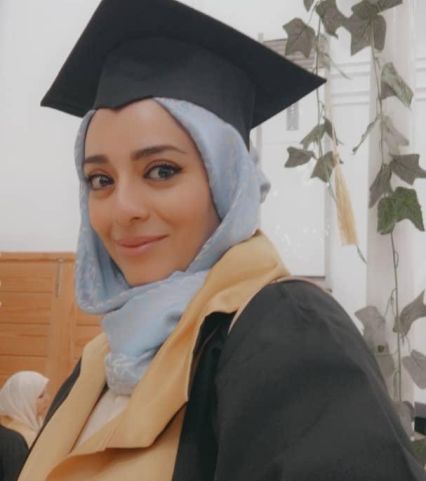 Dr. Fatoum Ramadhan SabrihLHE2024 (Diabetes) Keynote
Dr. Fatoum Ramadhan SabrihLHE2024 (Diabetes) Keynote -
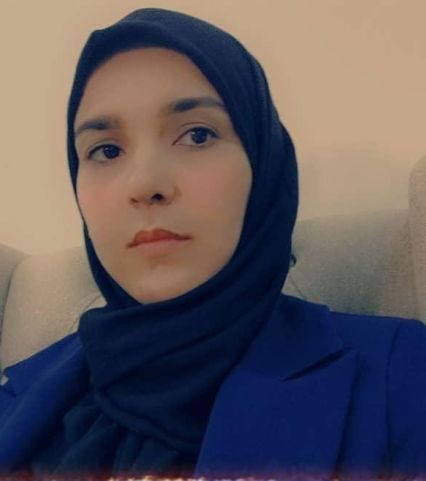 Dr. Eman Mohamed El-JadiLHE2024 (Kidney Disease) Keynote
Dr. Eman Mohamed El-JadiLHE2024 (Kidney Disease) Keynote
-
Dr. Juli Switala is a passionate paediatrician with a focus on infectious diseases, particularly Tuberculosis (TB), for the past seven years. Holding the position of paediatric TB senior specialist at the Aurum Institute, she plays a pivotal role in various projects aimed at combating TB and related complications. In her current role, Dr. Switala is extensively involved in several impactful initiatives. Under the Accelerate 1 project funded by USAID, she has contributed significantly to the National TB Program, including the development of a paediatric TB training program and childhood TB guidelines. She has also provided technical support to high burden districts, facilitating the creation of case management support networks and implementing local strategies for improved TB diagnosis and management. As part of the IMPAACT4TB initiative, Dr. Switala has been instrumental in conducting pharmacokinetic trials for paediatric TB medications, ensuring access to essential treatments in South Africa and other countries. Additionally, she serves as a paediatric HIV advisor in several regions, focusing on addressing HIV-related complications and operational research. Dr. Switala’s commitment to paediatric TB extends beyond clinical practice. She is actively involved in the WHO Child and Adolescent TB Working Group, contributing to the development of global guidelines and strategies. Previously, she managed the paediatric unit at Brooklyn Chest Hospital, where she established outpatient clinics for complex TB cases, demonstrating her dedication to improving patient care and access to treatment. With a diverse background that includes fieldwork in various countries and extensive research involvement, Dr. Switala brings a wealth of experience to her role. Her goal is to ensure that children worldwide receive dignified and child-friendly TB prevention, diagnosis, and treatment, ultimately striving to eliminate unnecessary childhood deaths due to this treatable disease. Dr. Switala holds a Bachelor’s degree in Medicine and Surgery from the University of the Witwatersrand, along with several certifications and qualifications in paediatrics and infectious diseases. She remains committed to ongoing learning and professional development, actively participating in conferences, courses, and research endeavors. Driven by a profound sense of purpose, Dr. Juli Switala continues to make significant contributions to the field of paediatric TB, advocating for the well-being of children and families globally.
Lecture title: WHO childhood TB guidelines: what’s new and how to localise it.
Childhood Tuberculosis (TB) remains a significant global health challenge, particularly in African countries with high TB burden. The World Health Organization (WHO) plays a pivotal role in guiding TB prevention, diagnosis, and treatment strategies, including specific guidelines tailored to address childhood TB. This abstract aims to provide an overview of the WHO childhood TB guidelines, highlighting key recommendations and their application in African settings. The 2022 WHO childhood TB guidelines and the WHO childhood TB roadmap encompass a comprehensive framework for addressing the unique needs of paediatric TB patients, covering aspects of diagnosis, treatment, and prevention. There are many recent changes including new diagnostic methods, advised diagnostic algorithms, a revision on TB prevention therapy, and short course therapy with new recommendations for Rifampicin Resistant therapy. Many of the advances in adult TB are not yet applicable to children – which places children in a unique category. This needs to be considered when trying to apply guidelines in a local setting. In African countries, the implementation of WHO guidelines needs to be adapted to consider local challenges: limited healthcare infrastructure, vast distances, political instability, HIV, limited access to diagnostic tools, and socioeconomic, political and cultural barriers. . Despite these challenges, not only has significant progress has been made in adapting WHO guidelines to local contexts but Africa provides much of the evidence that guides the guidelines. Localizing guidelines requires knowing both the guidelines and the local contexts – to know what is most relevant, what is possible, and what needs to be adapted to be possible – but local clinicians also have the best insight into how TB can be leveraged on existing structures. Childhood TB is more difficult to recognize and diagnose, but it is easier to treat – so it is important to build a bridge between child health and infectious disease platforms to ensure that strategies for reaching and caring for children with TB are robust and locally relevant. Community acceptance and inclusion allows for better community based screening programmes, increased demand generation, which results in earlier, more cost effective access to care. Partnerships between governments, non-governmental organizations (NGOs), and international agencies have played a crucial role in supporting efforts to eliminate TB and this continued relationship between child-caregiver-community-clinician-health system- government and international partners will remain critical to finally, end TB.
-
Dr. Hasan Mohamed Almusrati is a distinguished consultant respiratory physician and assistant manager at the Abusitta Chest Center for Respiratory and TB in Tripoli, Libya. With a foundational education from Tripoli University where he obtained his M.B.BCh in 1991, Dr. Almusrati’s pursuit of medical excellence propelled him to the United Kingdom and Germany for advanced certifications. He earned his MRCP from Edinburgh in 1998 and completed his Facharzt qualifications in Internal Medicine and Pulmonology at the Ärztekammer Nordrhein, Düsseldorf, in 2012 and 2014 respectively. Currently, Dr. Almusrati is actively involved in academia as a member of the Faculty of Medicine at Tripoli University and is a respected member of both the American Thoracic Society (ATS) and the European Respiratory Society (ERS). His leadership extended to serving as the head of the Libyan Thoracic Society (LTS) from 2019 to 2021 and he remains a vital member of the Scientific Committee of the National Tuberculosis Program (NCDC). Dr. Almusrati also heads the PAH Clinic and the Endoscopy Department at Abusitta Chest Center, and contributes significantly to human resources management within the center. His research interests are highlighted by his lead role in a clinical trial studying the efficacy of Nintedanib (Ofev) in treating IPF and progressive lung fibrosis from 2022 to 2023. Additionally, he was instrumental in the creation of the National Case Management Book for COVID-19 in Libya. Dr. Almusrati’s commitment to advancing respiratory medicine is further underscored by his ongoing involvement in continuous medical education programs at his center, aiming to elevate healthcare standards and patient outcomes in Libya
Panel title: Under LTS and Abusitta chest center
The Libyan Thoracic Society (LTS) and the Abusitta Chest Center are pivotal institutions in advancing respiratory care in Libya. The LTS, established to foster collaboration and knowledge sharing among respiratory healthcare professionals, plays a crucial role in setting standards, promoting research, and advocating for improved respiratory health services across the country. The Abusitta Chest Center, a specialized respiratory care facility, complements the efforts of LTS by providing comprehensive diagnostic, therapeutic, and rehabilitative services for patients with various respiratory conditions. The Abusitta Chest Center is equipped with state-of-the-art technology and staffed by highly trained professionals dedicated to the diagnosis and management of respiratory diseases. Services at the center include advanced pulmonary function testing, bronchoscopy, sleep studies, and critical care for patients with severe respiratory conditions. The center’s multidisciplinary approach ensures that patients receive holistic care, addressing both the physical and psychological aspects of respiratory illnesses. A key focus of the Abusitta Chest Center is the management of chronic respiratory diseases such as asthma, chronic obstructive pulmonary disease (COPD), and tuberculosis. Through patient education, lifestyle modification programs, and personalized treatment plans, the center aims to improve patient outcomes and enhance their quality of life. Additionally, the center is actively involved in community outreach programs to raise awareness about respiratory health and preventive measures. The collaboration between LTS and the Abusitta Chest Center has significantly contributed to the advancement of respiratory care in Libya. By hosting national conferences, workshops, and continuous medical education programs, they provide platforms for healthcare professionals to stay updated with the latest advancements in respiratory medicine. These initiatives also facilitate the exchange of best practices and foster a culture of continuous improvement in respiratory care. In conclusion, the efforts of the Libyan Thoracic Society and the Abusitta Chest Center are instrumental in elevating the standards of respiratory healthcare in Libya. Through their comprehensive services, educational programs, and community outreach initiatives, they are making significant strides in addressing the respiratory health challenges faced by the Libyan population.
-
Dr. Fatoum Ramadhan Sabrih is a distinguished Libyan medical professional specializing in diabetes and endocrine disorders. Born on July 15, 1986, in Tripoli, Libya, Fatoum has built a remarkable career marked by dedication and a rigorous pursuit of medical excellence. She completed her secondary education at Kortoba in 2003 with an outstanding average of 96%, demonstrating early on her academic prowess. Fatoum graduated from the Faculty of Medicine at Tripoli University in the 2011-2012 academic year. Her educational journey did not stop there; she has continuously expanded her skills through various certifications including Basic Life Support (BLS), which she has recertified in 2013, 2017, and 2022, Advanced Cardiac Life Support (ACLS) in 2017, Basic Echocardiography in 2014, and a Diploma in Diabetes obtained in 2022. Moreover, she has undergone TOT training, enhancing community responses to gender-based violence and mental health and psychosocial support in Libya. Fatoum currently serves as a Senior Physician at the Diabetes and Endocrine Center in Tripoli, where she has been a pivotal member for over eight years. Her role extends into the health insurance sector, where she contributes to the operations company’s health reviews department. Her rigorous internship included rotations in general and special surgery, medicine, pediatrics, community medicine, obstetrics, and gynecology, equipping her with a broad clinical perspective. Possessing excellent leadership qualities, Fatoum is known for her ability to motivate and lead teams effectively. Her technical skills include proficient use of medical and office software, reflecting her adaptability in various professional settings.
Workshop title: Insulin Pump and Improved of Quality of Life/Diabetes
The workshop titled “Insulin Pump and Improved Quality of Life” aims to equip doctors with comprehensive knowledge and practical skills related to the management of diabetes using insulin pump therapy. This workshop goes beyond traditional diabetes management techniques and focuses on the advanced technology and methodologies associated with insulin pump therapy, which has been shown to significantly enhance the quality of life for patients with diabetes. Participants will gain a deep understanding of the principles behind insulin pump therapy, including its mechanisms of action, indications, and contraindications. Through interactive sessions and hands-on training, doctors will learn how to initiate, adjust, and optimize insulin pump therapy for individual patients, taking into account their unique medical history, lifestyle, and treatment goals. Moreover, the workshop will delve into the latest advancements in insulin pump technology and software, empowering doctors to stay updated with the rapidly evolving landscape of diabetes care. By the end of the workshop, participants will be proficient in utilizing insulin pumps as a tool for achieving glycemic control, preventing complications, and ultimately improving the overall quality of life for their patients with diabetes. -
Dr. Eman Mohamed El-Jadi is a highly skilled pharmacist with extensive experience and a commitment to excellence in healthcare provision. Currently serving as the Head of the Clinical Pharmacy Department at Kidney Treatment and Dialysis Hospital, Misrat, Eman brings a wealth of expertise to her role. Her professional journey is marked by a dedication to advancing pharmaceutical care and improving patient outcomes. Eman holds the esteemed certification of American Board Certified Pharmacotherapy Specialist, which she attained in 2022, demonstrating her proficiency in pharmacotherapy and clinical pharmacy practice. Additionally, she completed a Training Course of Trainers (TOT) in the same year, further enhancing her ability to impart knowledge and train future pharmacy professionals. With a keen focus on continuous learning and professional development, Eman obtained a Certificate in Managing Common Gastrointestinal Disorders from the American Association of Continuing Medical Education in October 2020. This achievement underscores her commitment to staying abreast of the latest advancements in pharmaceutical care and expanding her clinical expertise. Eman’s educational foundation is rooted in her Bachelor’s Degree in Pharmacy, which she earned from the Faculty of Pharmacy at Misurata University. Graduating in 2010, she embarked on her career in pharmacy with a firm grounding in pharmaceutical sciences and patient care principles. Prior to her current role, Eman served as a Pharmacist at Al-Swawa Local Hospital from 2012, where she honed her clinical skills and gained valuable experience in providing pharmaceutical services to diverse patient populations. Fluent in both Arabic and English, Eman possesses strong communication skills that enable her to effectively interact with patients, colleagues, and healthcare professionals. She is also proficient in Microsoft Office applications, facilitating efficient documentation and management of pharmaceutical processes. Eman’s dedication to advancing pharmaceutical practice, coupled with her clinical acumen and commitment to patient-centered care, makes her a valuable asset to any healthcare team. With a passion for improving healthcare outcomes and enhancing the quality of patient care, Eman continues to make significant contributions to the field of pharmacy
Lecture title: Role of a Clinical Pharmacist in a Hemodialysis Unit
Background: Hemodialysis (HD) patients have complicated disease states, placing them at higher risk for medication-related problems, medication discrepancies, and no adherence. The treatment adherence recommendations is challenging in hemodialysis (HD) patients, yet it has been found to be extremely crucial in obtaining positive clinical and health outcomes. Aim: To evaluate the influence of implementing an educational process provided by the clinical pharmacist on HD patients’ monitor, adherence to treatment recommendations and clinical outcomes. The nephrology department at Misurata Central hospital coverage the largest number of HD patient at Misurata city. There are other hemodialysis unit around Misurata city to overcome the increasing number of HD patient and minimize waiting list. The present of clinical pharmacist at HD unit was established recently at MCC unit covering morning duties only. The approximate number of patient each day around 140 patients (males and females). We start to create individual patients files for all registered patient HD unit. This approach include, finding patient information, periodic investigations, and compared it with treatment chart then assessment, monitor and recommendation, discussion with nephrologist about any dose adjustment, drug interaction Reporting, to reduction in medication errors then educated the patient about drugs. Conclusion: To date, our country suffers from a lack of clinical pharmacist who are willing to be associated with hemodialysis patients. We conclude and recommend that the clinical pharmacist should be integrated even before the initiation of hemodialysis therapy to work simultaneously with physician to minimize unnecessary complications associated with suboptimal medication management, such as excessive morbidity, hospitalization, and mortality.
-
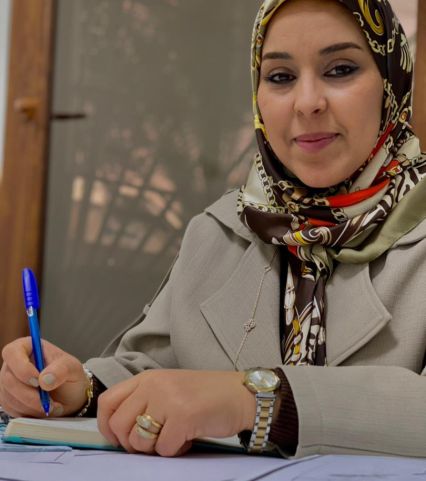 Dr. Darin Muftah MeatigeLHE2024 (Diabetes) Keynote
Dr. Darin Muftah MeatigeLHE2024 (Diabetes) Keynote -
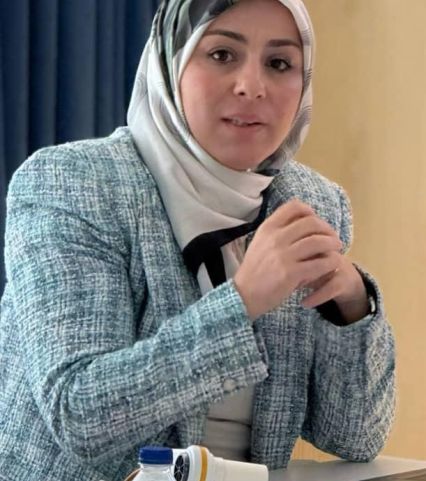 Dr. Areej DakshiLHE2024 Respiratory Medicine Keynote
Dr. Areej DakshiLHE2024 Respiratory Medicine Keynote -
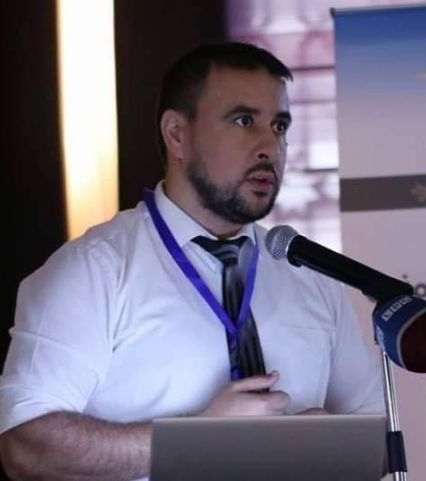 Dr. Anas Omar ZarmouhLHE2024 Respiratory Medicine Keynote
Dr. Anas Omar ZarmouhLHE2024 Respiratory Medicine Keynote -
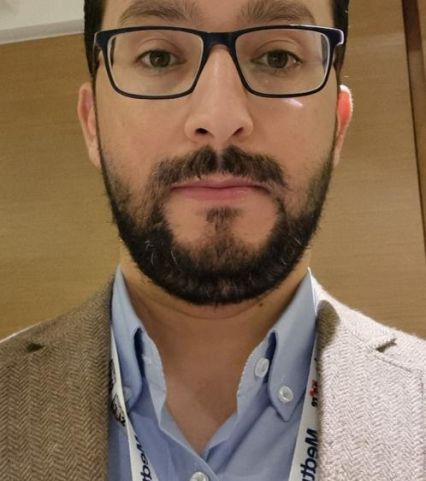 Dr. Abdulmonem MohamedLHE2024 Interventional Neuroradiology Keynote
Dr. Abdulmonem MohamedLHE2024 Interventional Neuroradiology Keynote
-
Dr. Darin Muftah Meatige is a senior medical professional specializing in diabetes and endocrinology at the Diabetic and Endocrinology Hospital in Tripoli, Libya. With over a decade of experience in the field, he has developed significant expertise in managing diabetes, particularly with insulin pumps and gestational diabetes. Dr. Meatige holds a specialized diploma in diabetes from the Faculty of Medicine, University of Tripoli, where he graduated in August 2010. Dr. Meatige’s career is marked by a strong commitment to advancing diabetic care through technology and education. He has been instrumental in introducing new technologies for diabetes management in Libya, including flexible insulin therapy, which significantly simplifies the initiation of pump therapy. His clinical expertise is complemented by his involvement in numerous medical conferences and workshops, where he has delivered presentations on topics such as glycemic control in Type 1 Diabetes (T1DM) using insulin pump therapy and has conducted workshops on flexible insulin therapy in Libya. In addition to his clinical duties, Dr. Meatige is actively involved in educating healthcare professionals and the public on diabetes management. He has spoken at several significant events, including the Libyan Diabetes Conferences and various symposiums on mechanical ventilation and thyroid disease. His contributions to community education include speaking at pre-Ramadan educational activities and conducting awareness sessions in hospitals and schools. Dr. Meatige is also proficient in a range of computer skills, necessary for modern medical practice, and is bilingual, fluent in both English and Arabic. His dedication to his field is underscored by his continuous learning and participation in international workshops, such as those offered by Medtronic and Roche, enhancing his skills in insulin pump technologies.
Workshop title: Insulin Pump and Improved of Quality of Life
The workshop titled “Insulin Pump and Improved Quality of Life” aims to equip doctors with comprehensive knowledge and practical skills related to the management of diabetes using insulin pump therapy. This workshop goes beyond traditional diabetes management techniques and focuses on the advanced technology and methodologies associated with insulin pump therapy, which has been shown to significantly enhance the quality of life for patients with diabetes. Participants will gain a deep understanding of the principles behind insulin pump therapy, including its mechanisms of action, indications, and contraindications. Through interactive sessions and hands-on training, doctors will learn how to initiate, adjust, and optimize insulin pump therapy for individual patients, taking into account their unique medical history, lifestyle, and treatment goals. Moreover, the workshop will delve into the latest advancements in insulin pump technology and software, empowering doctors to stay updated with the rapidly evolving landscape of diabetes care. By the end of the workshop, participants will be proficient in utilizing insulin pumps as a tool for achieving glycemic control, preventing complications, and ultimately improving the overall quality of life for their patients with diabetes. -
Dr. Areej Dakshi is a distinguished respiratory specialist and an esteemed graduate from South Africa, bringing advanced expertise and a global perspective to her medical practice. Currently, she leads the Pulmonary Function Test unit and heads the Research and Medical Statistics Department at the Abussitta Chest Center. Dr. Al-Dakshi’s role involves overseeing critical diagnostic services and spearheading innovative research initiatives aimed at enhancing patient care and treatment methodologies. Her leadership in both operational and investigative capacities underscores her commitment to improving respiratory health outcomes through rigorous analysis and the application of cutting-edge medical science. Dr. Al-Dakshi’s contributions are pivotal in advancing the center’s mission to provide top-tier respiratory care and in setting new standards in clinical excellence and research in the field.
Panel title: Under LTS and Abusitta chest center
The Libyan Thoracic Society (LTS) and the Abusitta Chest Center are pivotal institutions in advancing respiratory care in Libya. The LTS, established to foster collaboration and knowledge sharing among respiratory healthcare professionals, plays a crucial role in setting standards, promoting research, and advocating for improved respiratory health services across the country. The Abusitta Chest Center, a specialized respiratory care facility, complements the efforts of LTS by providing comprehensive diagnostic, therapeutic, and rehabilitative services for patients with various respiratory conditions. The Abusitta Chest Center is equipped with state-of-the-art technology and staffed by highly trained professionals dedicated to the diagnosis and management of respiratory diseases. Services at the center include advanced pulmonary function testing, bronchoscopy, sleep studies, and critical care for patients with severe respiratory conditions. The center’s multidisciplinary approach ensures that patients receive holistic care, addressing both the physical and psychological aspects of respiratory illnesses. A key focus of the Abusitta Chest Center is the management of chronic respiratory diseases such as asthma, chronic obstructive pulmonary disease (COPD), and tuberculosis. Through patient education, lifestyle modification programs, and personalized treatment plans, the center aims to improve patient outcomes and enhance their quality of life. Additionally, the center is actively involved in community outreach programs to raise awareness about respiratory health and preventive measures. The collaboration between LTS and the Abusitta Chest Center has significantly contributed to the advancement of respiratory care in Libya. By hosting national conferences, workshops, and continuous medical education programs, they provide platforms for healthcare professionals to stay updated with the latest advancements in respiratory medicine. These initiatives also facilitate the exchange of best practices and foster a culture of continuous improvement in respiratory care. In conclusion, the efforts of the Libyan Thoracic Society and the Abusitta Chest Center are instrumental in elevating the standards of respiratory healthcare in Libya. Through their comprehensive services, educational programs, and community outreach initiatives, they are making significant strides in addressing the respiratory health challenges faced by the Libyan population.
-
Dr. Anas Omar Zarmouh is a prominent Libyan medical specialist in Respiratory and General Medicine, based in Misurata, Libya. He holds an MSc in Medical Leadership from Sheffield Hallam University, UK (2018), and achieved his Certificate of Completion of Training (CCT) in Respiratory & General (Internal) Medicine from the GMC UK (2015). Additionally, Dr. Zarmouh earned his MRCP in Respiratory Medicine from the Royal College of Physicians, UK, in 2013. Currently, Dr. Zarmouh serves as the Head of the Board of Directors at Alemtiaz Respiratory & Sleep Centre and as a Consultant in Respiratory & General Medicine at Misurata Medical Centre (MMC). His leadership was instrumental during his tenure as the Head of the Isolation Department for COVID-19 at MMC. He is also deeply involved in national healthcare standards and accreditation for medical schools.
Panel title: Under LTS and Abusitta chest center
The Libyan Thoracic Society (LTS) and the Abusitta Chest Center are pivotal institutions in advancing respiratory care in Libya. The LTS, established to foster collaboration and knowledge sharing among respiratory healthcare professionals, plays a crucial role in setting standards, promoting research, and advocating for improved respiratory health services across the country. The Abusitta Chest Center, a specialized respiratory care facility, complements the efforts of LTS by providing comprehensive diagnostic, therapeutic, and rehabilitative services for patients with various respiratory conditions. The Abusitta Chest Center is equipped with state-of-the-art technology and staffed by highly trained professionals dedicated to the diagnosis and management of respiratory diseases. Services at the center include advanced pulmonary function testing, bronchoscopy, sleep studies, and critical care for patients with severe respiratory conditions. The center’s multidisciplinary approach ensures that patients receive holistic care, addressing both the physical and psychological aspects of respiratory illnesses. A key focus of the Abusitta Chest Center is the management of chronic respiratory diseases such as asthma, chronic obstructive pulmonary disease (COPD), and tuberculosis. Through patient education, lifestyle modification programs, and personalized treatment plans, the center aims to improve patient outcomes and enhance their quality of life. Additionally, the center is actively involved in community outreach programs to raise awareness about respiratory health and preventive measures. The collaboration between LTS and the Abusitta Chest Center has significantly contributed to the advancement of respiratory care in Libya. By hosting national conferences, workshops, and continuous medical education programs, they provide platforms for healthcare professionals to stay updated with the latest advancements in respiratory medicine. These initiatives also facilitate the exchange of best practices and foster a culture of continuous improvement in respiratory care. In conclusion, the efforts of the Libyan Thoracic Society and the Abusitta Chest Center are instrumental in elevating the standards of respiratory healthcare in Libya. Through their comprehensive services, educational programs, and community outreach initiatives, they are making significant strides in addressing the respiratory health challenges faced by the Libyan population.
-
Dr. Abdulmonem A. O. Mohamed, a qualified physician with an M.B.B.Ch from Garyounis University of Medicine, Benghazi, Libya, and a German Board of Radiology certification, brings a wealth of experience in clinical practice and training. His professional journey spans various prestigious institutions, including Tripoli Medical Center in Libya as a radiology resident, Klinikum Dortmund in Germany as both a resident and consultant in general and interventional radiology, and Hamad General Hospital in Doha, Qatar, where he served as a consultant radiologist. Currently, at Mitiga Military Hospital in Tripoli, Libya, he operates as a consultant interventional radiologist, specializing in procedures such as maxillofacial arteriovenous malformation (AVM) embolizations, cerebral aneurysm coiling, and stroke management, including mechanical thrombectomy and carotid stenting. Abdulmonem has undergone extensive training, participating in numerous courses and congresses across Europe and Egypt, focusing on radiology and interventional procedures. He holds active medical licenses in Germany and Libya and is affiliated with esteemed professionals in the field, such as A. Prof. Abdosalam Abograra, Prof. Dr. med Stefan Rohde, and Dr. Abdulbaset Sharafeddin, who can attest to his expertise and dedication in radiology practice and education.
Tite : The Impact of Stroke on Community Health & How to Improve the Management of Acute Ischemic Stroke by Modern Technologies, Artificial Intelligence, and New Treatment MethodsStroke stands as a formidable challenge to global public health, exerting a profound impact on communities through its prevalence, morbidity, and mortality rates. This abstract delves into the multifaceted repercussions of stroke on community health, shedding light on its pervasive nature and the urgent need for effective management strategies. By elucidating the intricate web of risk factors, economic burdens, and social ramifications associated with stroke, this overview underscores the pressing imperative for proactive intervention. Moreover, the abstract underscores the critical role of prevention, early detection, and rehabilitation initiatives in ameliorating the toll of stroke on community well-being. In this vein, it advocates for a holistic approach that integrates modern technologies, artificial intelligence, and innovative treatment modalities to optimize stroke care delivery. By harnessing the power of data-driven insights, telemedicine, and novel therapeutic interventions, healthcare stakeholders can revolutionize the management of acute ischemic stroke and enhance patient outcomes. Through collaborative efforts between healthcare practitioners, policymakers, and community stakeholders, the abstract posits a vision of empowered communities equipped with the knowledge, resources, and tools to combat stroke effectively. Ultimately, by elevating awareness, promoting proactive measures, and embracing innovation, communities can mitigate the burden of stroke and foster a culture of health and resilience.
-
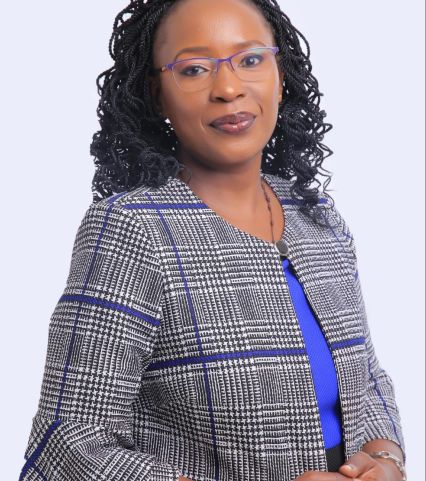 Prof. Eve NamisangoLHE2024 African Palliative Care Association Keynote
Prof. Eve NamisangoLHE2024 African Palliative Care Association Keynote -
 Dr. Eman AbulkhirLHE2024 (Cardiology) Keynote
Dr. Eman AbulkhirLHE2024 (Cardiology) Keynote -
 Dr. Hana SherifLHE2024 (Cardiology) Keynote
Dr. Hana SherifLHE2024 (Cardiology) Keynote -
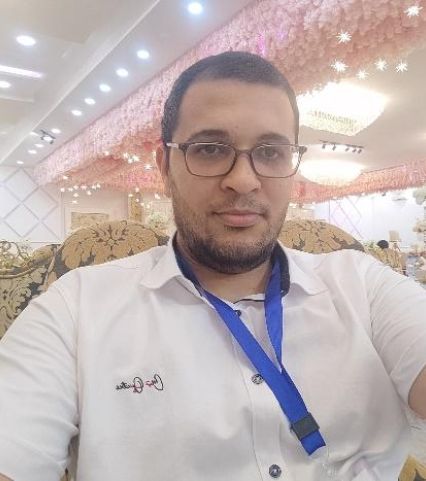 Dr. Rajab TalalahLHE2024 (Cardiology) Keynote
Dr. Rajab TalalahLHE2024 (Cardiology) Keynote
-
Dr. Eve Namisango is a distinguished professional serving as the Programmes and Research Manager at the African Palliative Care Association. Concurrently, she holds an honorary position as a Health Scientist at the College of Health Sciences, Makerere University, and is a fellow at the prestigious Cicely Saunders Institute, King’s College London. With a profound commitment to advancing palliative care, Eve holds a Master’s and a Ph.D. in Palliative Care Policy, Rehabilitation, Clinical Epidemiology, and Biostatistics. Her expertise extends across a spectrum of research domains, including service development, palliative care in emergency settings, trauma and healing, pediatric palliative care, grief and bereavement, psychometrics, health systems research, health economics, access to controlled medicines, digital health, and global health security & service preparedness. Dr. Namisango has contributed significantly to the academic landscape through her extensive publications in these areas, demonstrating a keen intellect and a deep understanding of the complex issues surrounding palliative care. Recognized as a leading advocate for palliative care in Africa, Dr. Namisango’s work has had a profound impact on policy development, service delivery, and advocacy efforts across the continent. Her dedication to improving access to quality palliative care services has earned her widespread respect and admiration within the global healthcare community. With her multidisciplinary background and unwavering commitment to excellence, Dr. Eve Namisango continues to be a driving force in the advancement of palliative care research and practice in Africa and beyond.
Lecture title: Ethical challenges of palliative care in resource poor settings and the consequences of palliative care in the Universal Health Coverage model
Palliative care, a fundamental component of comprehensive healthcare, faces unique ethical challenges in resource-poor settings, where limited resources and infrastructure often strain the delivery of quality care. This abstract delves into the ethical complexities surrounding palliative care provision in such contexts and explores the far-reaching consequences within the framework of Universal Health Coverage (UHC). In resource-poor settings, ethical dilemmas in palliative care are multifaceted, encompassing issues of equity, justice, autonomy, and beneficence. Scarce resources necessitate difficult decisions regarding allocation, prioritization, and access to palliative care services, often leading to moral distress among healthcare providers. Moreover, cultural beliefs, stigma, and misconceptions surrounding death and dying can further complicate ethical decision-making, impacting patient care and family dynamics. Despite these challenges, integrating palliative care into the Universal Health Coverage model holds significant promise for addressing the unmet needs of patients with life-limiting illnesses. By advocating for palliative care as an essential component of UHC, policymakers can promote equity and social justice, ensuring that all individuals, regardless of socioeconomic status, have access to quality end-of-life care. Furthermore, the principles of palliative care align closely with the core tenets of UHC, emphasizing person-centered care, holistic support, and dignity in health services delivery. However, successful integration of palliative care into UHC requires a paradigm shift in healthcare delivery, encompassing policy reforms, capacity building, and community engagement. Ethical considerations must guide these efforts, ensuring that vulnerable populations are not marginalized and that palliative care services are equitable, culturally sensitive, and respectful of patients’ preferences and values. In conclusion, addressing the ethical challenges of palliative care in resource-poor settings and harnessing its potential within the Universal Health Coverage model are imperative for achieving health equity and dignity for all individuals, particularly those facing life-limiting illnesses. Through collaborative efforts and ethical leadership, healthcare systems can strive towards a more inclusive and compassionate approach to end-of-life care, embodying the principles of solidarity, compassion, and human rights.
-
Dr. Eman Abulkhir is a dedicated and compassionate cardiologist with over 15 years of experience in investigating and treating heart diseases. She graduated from Tripoli University in 2002 and has been an integral part of the National Health Clinic (NHC) since 2005. Dr. Abulkhir is renowned for her strong interpersonal skills, which enable her to connect effectively with patients, families, and colleagues. Dr. Abulkhir specializes in diagnosing, investigating, and providing individualized treatment plans for the full spectrum of cardiovascular diseases. Her expertise encompasses a range of non-invasive diagnostic procedures, including cardiac stress testing, EKGs, ambulatory echocardiography, and Holter monitoring. She is also proficient in interpreting ECGs and echocardiograms, ensuring comprehensive cardiac care for her patients. In addition to her clinical skills, Dr. Abulkhir is passionate about preventing heart disease and helping patients lead heart-healthy lives. She continually seeks to optimize cardiac care by utilizing the latest technology and treatment options. Her commitment to excellence extends to her role as a mentor, where she compassionately supervises medical students and residents, fostering the next generation of healthcare professionals. Dr. Abulkhir’s dedication to her field is evident in her continuous pursuit of knowledge and her unwavering commitment to patient care. Her ability to blend technical expertise with a compassionate approach makes her a respected and trusted figure in the medical community. Through her work at NHC, Dr. Abulkhir has made significant contributions to the health and well-being of countless patients, emphasizing the importance of prevention and the power of personalized care.
Workshop title: Advanced cardiac life support
Workshop Description: The Advanced Cardiac Life Support (ACLS) workshop offers a comprehensive and in-depth overview of the critical skills necessary for resuscitation and emergency medical care. This intensive training is designed to equip healthcare professionals with the knowledge and techniques needed to manage acute medical crises effectively.Who Can Attend: Physicians, Nurses, Paramedics, Emergency Medical Technicians (EMTs), Medical students and residents and Other healthcare providers involved in emergency and critical care settings.
Workshop Training Focus/Respiratory and Cardiac Arrest. Management: Identification and immediate response to respiratory and cardiac arrest, Implementation of advanced resuscitation techniques. Peri-Arrest Conditions Management: Handling peri-arrest conditions such as symptomatic bradycardia, Utilizing appropriate interventions to stabilize patients. Airway Maintenance: Techniques for maintaining and securing airways in emergency situations, Use of advanced airway devices and procedures. Pharmacological Interventions: Administration of emergency medications, Understanding the pharmacokinetics and pharmacodynamics relevant to ACLS protocols. Effective Team Communication: Strategies for fostering effective communication within resuscitation teams, Importance of coordinated teamwork in optimizing patient outcomes. Training Methodology: Lectures and Presentations: Comprehensive coverage of ACLS theory and protocols. Hands-On Practice: Practical sessions with manikins and simulation equipment to practice resuscitation techniques. Scenario-Based Training: Realistic scenarios to enhance decision-making and critical thinking skills during emergencies. Interactive Workshops: Collaborative sessions to improve teamwork and communication in high-pressure situations.
Workshop Objectives: Enhance preparedness and proficiency in managing acute medical crises. Equip participants with practical knowledge and hands-on experience in advanced resuscitation techniques. Promote proactive intervention and collaborative teamwork in emergency settings. Ensure participants stay abreast of the latest advancements in emergency medical care practices. Overall, the ACLS workshop promises to be a valuable educational opportunity for healthcare professionals committed to improving their skills and enhancing patient care in emergency situations. By focusing on the core elements of resuscitation protocols and emphasizing the importance of swift, coordinated responses, this workshop aims to significantly impact the quality of care provided during medical emergencies.
-
Dr. Hana Sherif, an esteemed and empathetic cardiologist, brings a wealth of expertise and dedication to the realm of cardiovascular medicine. Having obtained her medical degree from Tripoli University, she has spent the past decade delivering comprehensive healthcare services, with a particular focus on intensive care within the Cardiac Care Unit and Cardiothoracic ICU departments at the National Heart Center. Driven by a fervent commitment to patient-centered care, Dr. Hana’s compassionate demeanor and clinical proficiency have garnered admiration from both colleagues and patients alike. Her empathetic approach to medicine resonates deeply with those under her care, fostering trust and rapport within the healthcare setting. As a steadfast advocate for health and wellness, Dr. Hana remains at the forefront of advancing cardiovascular medicine, continuously striving to make a positive impact on the lives of her patients. With her unwavering dedication and clinical acumen, she stands as a paragon of excellence in the field of cardiology, exemplifying the highest standards of compassionate healthcare delivery.
Workshop title: Advanced cardiac life support
Workshop Description: The Advanced Cardiac Life Support (ACLS) workshop offers a comprehensive and in-depth overview of the critical skills necessary for resuscitation and emergency medical care. This intensive training is designed to equip healthcare professionals with the knowledge and techniques needed to manage acute medical crises effectively.Who Can Attend: Physicians, Nurses, Paramedics, Emergency Medical Technicians (EMTs), Medical students and residents and Other healthcare providers involved in emergency and critical care settings.
Workshop Training Focus/Respiratory and Cardiac Arrest. Management: Identification and immediate response to respiratory and cardiac arrest, Implementation of advanced resuscitation techniques. Peri-Arrest Conditions Management: Handling peri-arrest conditions such as symptomatic bradycardia, Utilizing appropriate interventions to stabilize patients. Airway Maintenance: Techniques for maintaining and securing airways in emergency situations, Use of advanced airway devices and procedures. Pharmacological Interventions: Administration of emergency medications, Understanding the pharmacokinetics and pharmacodynamics relevant to ACLS protocols. Effective Team Communication: Strategies for fostering effective communication within resuscitation teams, Importance of coordinated teamwork in optimizing patient outcomes. Training Methodology: Lectures and Presentations: Comprehensive coverage of ACLS theory and protocols. Hands-On Practice: Practical sessions with manikins and simulation equipment to practice resuscitation techniques. Scenario-Based Training: Realistic scenarios to enhance decision-making and critical thinking skills during emergencies. Interactive Workshops: Collaborative sessions to improve teamwork and communication in high-pressure situations.
Workshop Objectives: Enhance preparedness and proficiency in managing acute medical crises. Equip participants with practical knowledge and hands-on experience in advanced resuscitation techniques. Promote proactive intervention and collaborative teamwork in emergency settings. Ensure participants stay abreast of the latest advancements in emergency medical care practices. Overall, the ACLS workshop promises to be a valuable educational opportunity for healthcare professionals committed to improving their skills and enhancing patient care in emergency situations. By focusing on the core elements of resuscitation protocols and emphasizing the importance of swift, coordinated responses, this workshop aims to significantly impact the quality of care provided during medical emergencies.
-
Dr. Rajab Mohammed Talalah is a distinguished cardiologist, graduating with distinction from Misurata Medical University and acquiring Arab Board certification in internal medicine. Acknowledged as a Fellow of the esteemed European Society of Cardiology, he specializes in the comprehensive management of heart failure, arrhythmias, and ischemic heart disease at the esteemed National Heart Center in Tajoura, where he holds the esteemed position of leading the Emergency Department. Beyond his clinical endeavors, Dr. Talalah is intricately involved in academia, assuming roles as a lecturer at various esteemed institutions, where he imparts his profound knowledge and expertise to budding medical professionals. Driven by an unwavering dedication to perpetual learning and professional advancement, he remains steadfast in his mission to propel the realm of cardiac care forward, consistently striving to enhance patient outcomes and refine clinical practices. Dr. Talalah’s ardor for the well being of his patients, coupled with his extensive experience and substantial contributions to medical education, firmly establish him as a revered luminary in the realm of cardiology. His influence extends beyond the confines of his clinical practice, resonating profoundly with both patients and peers alike, as he continues to epitomize excellence and compassion in the pursuit of superior healthcare standards.
Workshop title: Advanced cardiac life support
Workshop Description: The Advanced Cardiac Life Support (ACLS) workshop offers a comprehensive and in-depth overview of the critical skills necessary for resuscitation and emergency medical care. This intensive training is designed to equip healthcare professionals with the knowledge and techniques needed to manage acute medical crises effectively.Who Can Attend: Physicians, Nurses, Paramedics, Emergency Medical Technicians (EMTs), Medical students and residents and Other healthcare providers involved in emergency and critical care settings.
Workshop Training Focus/Respiratory and Cardiac Arrest. Management: Identification and immediate response to respiratory and cardiac arrest, Implementation of advanced resuscitation techniques. Peri-Arrest Conditions Management: Handling peri-arrest conditions such as symptomatic bradycardia, Utilizing appropriate interventions to stabilize patients. Airway Maintenance: Techniques for maintaining and securing airways in emergency situations, Use of advanced airway devices and procedures. Pharmacological Interventions: Administration of emergency medications, Understanding the pharmacokinetics and pharmacodynamics relevant to ACLS protocols. Effective Team Communication: Strategies for fostering effective communication within resuscitation teams, Importance of coordinated teamwork in optimizing patient outcomes. Training Methodology: Lectures and Presentations: Comprehensive coverage of ACLS theory and protocols. Hands-On Practice: Practical sessions with manikins and simulation equipment to practice resuscitation techniques. Scenario-Based Training: Realistic scenarios to enhance decision-making and critical thinking skills during emergencies. Interactive Workshops: Collaborative sessions to improve teamwork and communication in high-pressure situations.
Workshop Objectives: Enhance preparedness and proficiency in managing acute medical crises. Equip participants with practical knowledge and hands-on experience in advanced resuscitation techniques. Promote proactive intervention and collaborative teamwork in emergency settings. Ensure participants stay abreast of the latest advancements in emergency medical care practices. Overall, the ACLS workshop promises to be a valuable educational opportunity for healthcare professionals committed to improving their skills and enhancing patient care in emergency situations. By focusing on the core elements of resuscitation protocols and emphasizing the importance of swift, coordinated responses, this workshop aims to significantly impact the quality of care provided during medical emergencies.
-
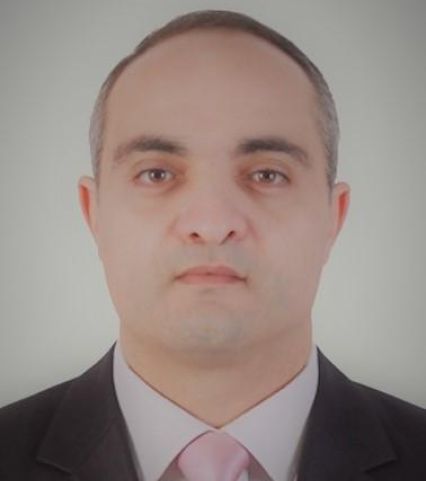 Prof. Hesham Ben MasaudLHE2024 (Emergency Medicine) Keynote
Prof. Hesham Ben MasaudLHE2024 (Emergency Medicine) Keynote -
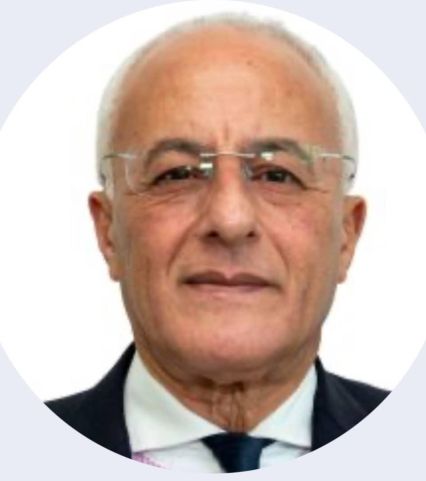 Prof. Issam HajjajiLHE2024 (Diabetes) Keynote
Prof. Issam HajjajiLHE2024 (Diabetes) Keynote -
 Prof. Dorra Al-KhizamiLHE2024 (Digital Health) Keynote
Prof. Dorra Al-KhizamiLHE2024 (Digital Health) Keynote -
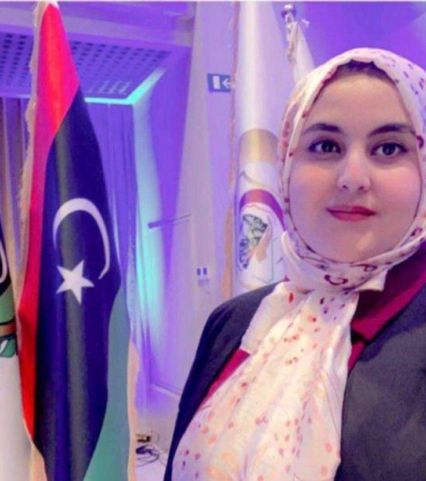 Dr. Enshrah OthmanLHE2024 Blood Bank Keynote
Dr. Enshrah OthmanLHE2024 Blood Bank Keynote
-
Prof. Hesham Ben Masaud is a distinguished figure in the medical field, serving as both a general practice consultant and an emergency medicine consultant. His extensive experience and expertise in these areas make him a valuable asset to healthcare provision in Libya. In addition to his clinical roles, Prof. Ben Masaud holds significant leadership positions, including President of the Libyan General Practice Society and Director of Training of the General Practice Scientific Committee at the Libyan Board of Health Specialties. In these capacities, he plays a pivotal role in shaping the standards and practices of general practice in Libya, ensuring quality care delivery and professional development among practitioners. Furthermore, Prof. Ben Masaud serves as a Clinical Associate at the Primary Care International Guideline Developing Group at the World Health Organization, where he contributes to the development of guidelines and protocols for primary care services worldwide. His dedication to advancing medical education, promoting best practices, and enhancing healthcare systems underscores his commitment to improving patient outcomes and public health in Libya and beyond.
Lecture title: Un-boxing Excellence: The Critical Role of Defining Service Delivery Package
In the family medicine specialty, (Unboxing Excellence) aims to redefine patient care by prioritizing integrated, patient-centered service delivery packages. The conference will explore the creation of comprehensive care plans that encompass preventive to chronic care management, enhancing patient experience and practice efficiency. By setting benchmarks for quality care, the conference seeks to ensure consistent, high-quality care across family medicine, ultimately leading to improved health outcomes for patients of all ages.
-
Dr. Issam Hajjaji is a distinguished Consultant Diabetologist at the Centre for Diabetes & Endocrinology in Tripoli, where he provides expert care to patients while also serving as a Teaching Staff member in the Department of internal medicine at Tripoli University. With a rich educational background, Dr. Hajjaji earned his MB BCh BAO BA from Trinity College Dublin, Ireland, in 1984, followed by MRCP (UK) in 1989, FRCP (Lon) in 2007, and FRCP (Edin) in 2010. His extensive training includes internships and rotations at prestigious institutions such as the Royal City of Dublin University Hospital in Ireland and Arrowe Park Hospital in the UK. Dr. Hajjaji has served in various medical roles, including as a Medical Registrar in Endocrinology & Diabetes at East & North Herts NHS Trust and as a Consultant in Endocrinology & Diabetes at Mater Private Hospital in Cork, Ireland. In addition to his clinical work, Dr. Hajjaji is actively involved in academia and research. He is a Senior Editor for the International Journal of Clinical Practice and has authored numerous publications, with an impressive h-index of 9. Furthermore, Dr. Hajjaji is committed to advancing knowledge in his field through his roles as Chairman of the Editorial Board for the Ibnosina Journal for Biomedical Sciences and as a Reviewer for prestigious journals like the Dubai Journal of Diabetes and the Gulf Journal of Diabetes & Metabolism. He also serves as the Current President of the Libyan Association for Diabetes & Endocrinology and as a Regional Advisor for Libya at the RCP Edinburgh. Additionally, Dr. Hajjaji has contributed to literature, including the “Guide to Diabetes in Libya” and a chapter on Libya in “Diabetes in Africa.”
Lecture title: Rising prevalence of diabetes in Libya
he rising prevalence of diabetes in Libya poses a significant public health challenge, necessitating urgent attention and proactive measures from healthcare authorities and stakeholders. Over recent years, Libya has witnessed a notable surge in diabetes cases, reflecting a global trend attributed to factors such as urbanization, sedentary lifestyles, unhealthy dietary habits, and an aging population. Multiple studies and epidemiological surveys have highlighted the escalating burden of diabetes in Libya, with alarming rates of both type 1 and type 2 diabetes mellitus. Contributing factors include rapid urbanization leading to lifestyle changes, limited access to healthcare services, inadequate health education, and cultural factors influencing dietary preferences. The consequences of uncontrolled diabetes are profound, ranging from debilitating complications such as cardiovascular disease, kidney failure, and blindness to significant economic burdens on healthcare systems. Furthermore, diabetes imposes a substantial societal burden through productivity loss and reduced quality of life for affected individuals and their families. Addressing the rising prevalence of diabetes in Libya requires a comprehensive approach encompassing preventive strategies, health promotion campaigns, improved access to healthcare services, early detection, and effective management programs. Collaboration between government agencies, healthcare providers, academic institutions, and community organizations is essential to implement evidence-based interventions and mitigate the impact of diabetes on public health and well-being in Libya.
-
Prof. Dorra Al-Khizami, a distinguished quality consultant engineer specializing in the intricate realm of medical analysis, epitomizes a consummate professional with a venerable legacy spanning over 17 illustrious years within this specialized domain. Graduating with a distinguished diploma in biology from the esteemed National Institute of Applied Sciences and Technology, her academic prowess is further augmented by her registration with the esteemed Engineers’ Association in Tunis, a testament to her unwavering commitment to professional excellence and continual growth. Embodying a relentless pursuit of perfection, Dorra has been instrumental in orchestrating the seamless implementation and rigorous enforcement of the ISO 15189 quality management system within laboratories under her purview. Her astute leadership and meticulous attention to detail have not only ensured compliance with stringent regulatory standards but have also catalyzed the accreditation process, thereby elevating the operational efficiency and global competitiveness of these facilities. Beyond her formidable technical acumen, Dorra’s indomitable spirit extends to the holistic development of human resources and the cultivation of a culture of safety and accountability within the workplace. Through targeted training initiatives and personalized mentorship programs, she empowers her colleagues to transcend their limitations and unlock their full potential, thereby fostering a collaborative environment conducive to innovation and continuous improvement. In her capacity as a visionary problem solver, Dorra possesses a remarkable aptitude for identifying latent inefficiencies and spearheading transformative initiatives aimed at optimizing equipment and streamlining operational processes. Leveraging her wealth of experience and keen analytical prowess, she navigates complex challenges with finesse, devising bespoke solutions tailored to the unique needs and constraints of each scenario. Her unwavering commitment to excellence is further evidenced by her meticulous attention to detail and unwavering adherence to best practices, ensuring that every aspect of her work reflects the highest standards of quality and precision. Her insatiable thirst for knowledge drives her to remain at the vanguard of technological advancements and industry trends, positioning her as a trusted advisor and thought leader within her field. Despite her myriad professional accomplishments, Dorra remains grounded in her commitment to serving her community and making a meaningful impact on society at large. Whether through volunteer initiatives or pro bono consultancy work, she channels her expertise and resources towards initiatives that promote social justice, environmental sustainability, and equitable access to healthcare.
Lecture title: ISO Standards in Medical Laboratory Information Systems
ISO 15189 encompasses aspects such as data management, result reporting, and proficiency testing, promoting standardization across laboratory operations. Additionally, ISO/IEC 27001 addresses information security management, safeguarding patient data confidentiality and integrity within LIS. Moreover, ISO 27799 focuses specifically on health informatics, providing guidelines for implementing security controls tailored to the healthcare sector. Compliance with ISO standards ensures that LIS adhere to best practices in data management, risk mitigation, and regulatory compliance. Furthermore, ISO 20387 outlines requirements for the exchange of laboratory data, promoting interoperability between LIS and other healthcare systems. This interoperability enhances communication and collaboration among healthcare providers, ultimately improving patient care and outcomes. In conclusion, adherence to ISO standards is essential for optimizing the functionality, security, and interoperability of Medical Laboratory Information Systems. By implementing these standards, healthcare organizations can enhance the efficiency, accuracy, and reliability of laboratory operations, ultimately contributing to better patient care and overall healthcare delivery.
-
With a keen interest in medical technology and public health, I graduated with distinction in 2019, specializing in medical technology with a focus on public health. As of 2020, I serve as the supervisor of the Apheresis Unit within the Medical Intensive Care Department at Tripoli University Hospital. Additionally, I am a proud member of the American Apheresis Association (ASFA), holding a 95% experience certificate endorsed by the American Board (QIA). My expertise spans various blood separation devices, reflecting a deep understanding of this critical aspect of medical technology. Dedicated to advancing healthcare, I am committed to ongoing professional development and contributing positively to the field of public health.
Lecture title: Therapeutic Apheresis
The focus of the lecture is to explore the significant advancements and innovative practices within the field of therapeutic apheresis, particularly highlighting its application and impact within the Libyan healthcare context. The therapeutic apheresis unit serves as a critical component in managing various medical conditions by employing cutting-edge techniques for blood component separation. Throughout the lecture, we will delve into the intricacies of therapeutic apheresis procedures, including the separation of platelets, white blood cells, red blood cell exchange, and plasmapheresis. One of the key highlights of the discussion is the introduction of innovative therapeutic apheresis sessions that are being implemented for the first time in Libya. These sessions represent a paradigm shift in healthcare delivery, offering novel approaches to treating a wide range of medical conditions. By incorporating state-of-the-art technologies and methodologies, these innovative sessions aim to optimize patient outcomes and enhance the overall quality of care. Furthermore, the lecture will provide insights into the operational aspects of the therapeutic apheresis unit, including workflow management, equipment utilization, and patient safety protocols. Attendees will gain a comprehensive understanding of the infrastructure required to establish and maintain an efficient therapeutic apheresis program within a healthcare facility. Moreover, the presentation will shed light on the clinical applications of therapeutic apheresis across various medical specialties, illustrating its versatility and effectiveness in addressing diverse patient needs. Case studies and real-world examples will be discussed to underscore the clinical efficacy and positive outcomes associated with therapeutic apheresis interventions.Overall, the lecture aims to provide attendees with a deeper appreciation of the role of therapeutic apheresis in modern healthcare practice, emphasizing its potential to revolutionize treatment approaches and improve patient care standards in Libya. By showcasing innovative sessions and exploring emerging trends, the presentation seeks to inspire healthcare professionals to embrace advancements in therapeutic apheresis and leverage its benefits for the betterment of patient health and well-being.
-
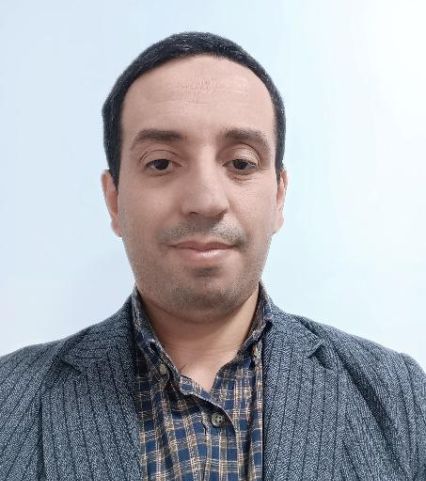 Dr. Ahmed SasiLHE2024 (Cardiology) Keynote
Dr. Ahmed SasiLHE2024 (Cardiology) Keynote -
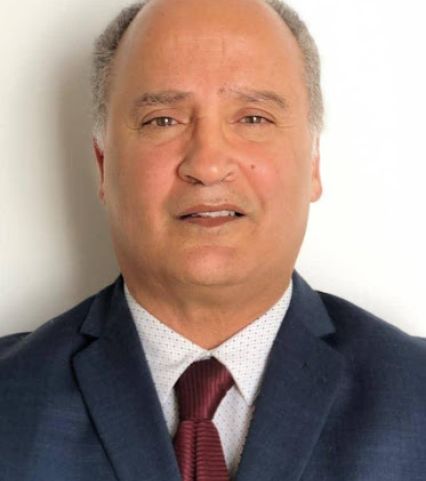 Dr Ali ElneihoumLHE2024 Panel 1 (Cardiology)
Dr Ali ElneihoumLHE2024 Panel 1 (Cardiology) -
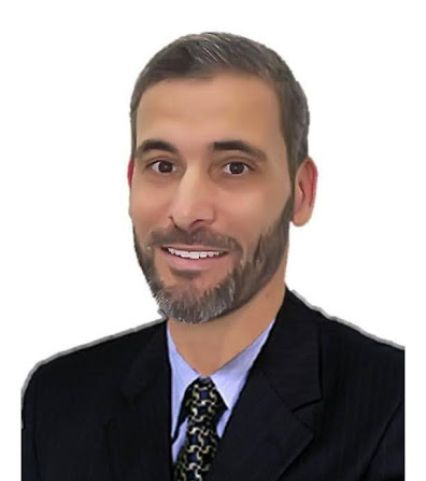 Dr. Abdulgani AbonowaraLHE2024 Cardiology Keynote
Dr. Abdulgani AbonowaraLHE2024 Cardiology Keynote -
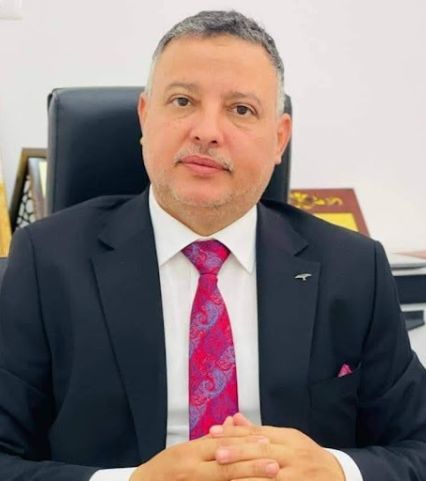 Dr. Al-Zarouq Al-ZaidiLHE2024 Medical Informatics Keynote
Dr. Al-Zarouq Al-ZaidiLHE2024 Medical Informatics Keynote
-
Dr. Ahmed, a steadfast professional, obtained his Bachelor’s degree in Medicine and Surgery from Tripoli University, Libya in 2009, followed by a Diploma in Cardiology from the Arab African Academy, Libya in 2022. With over 15 years of tenure at The National Heart Center in Tajoura, Libya, he has become an indispensable asset to the Cardiac Medicine department. His proficiency extends across diverse realms within cardiology, encompassing Ischemic Heart Disease, Valvular Heart Disease, Heart Failure, and Arrhythmias. Dr. Ahmed demonstrates mastery in conducting echocardiography, Stress ECG, and programming Intracardiac Devices. His unwavering dedication to patient care, coupled with a relentless pursuit of knowledge and professional growth, distinguishes him within his field. In essence, Dr. Ahmed amalgamates extensive expertise, specialized competencies, and an indomitable work ethic to make substantial contributions to the realm of cardiology. His steadfast commitment to collaborative efforts and perpetual learning not only ensures optimal patient outcomes but also propels advancements in the domain of cardiac medicine.
Lecture title: Hypertrophic Cardiomyopathy
Hypertrophic Cardiomyopathy (HCM) stands as a genetic cardiac ailment distinguished by an anomalous thickening of the heart muscle, primarily affecting the ventricles. Manifestations of this condition may encompass chest discomfort, breathlessness, and irregular heart rhythms. Effective management strategies typically involve a multifaceted approach incorporating lifestyle modifications, pharmacological interventions, and occasionally, surgical procedures. Given the genetic nature of HCM, individuals diagnosed with the condition may benefit from genetic counseling to comprehend familial implications and potential risk factors. Lifestyle adjustments such as regular exercise tailored to individual capacity, a heart-healthy diet low in sodium and saturated fats, and abstaining from tobacco and excessive alcohol intake can play pivotal roles in symptom management and disease progression. Pharmacological interventions may include medications aimed at regulating heart rate and rhythm, alleviating symptoms, and preventing complications such as blood clots. Surgical options, including septal myectomy or alcohol septal ablation, may be considered in cases where symptoms persist despite optimal medical therapy or in individuals at high risk of adverse outcomes. Collaborative efforts between patients, healthcare providers, and specialists in cardiology are essential for devising personalized treatment plans that address the unique needs and circumstances of individuals living with HCM, ultimately aiming to optimize quality of life and mitigate associated risks. -
Dr Ali Elneihoum, MD, PhD, FESC, Consultant Cardiologist Professor of Medicine, Faculty of Medicine, Benghazi University, Vice President Libyan Cardiac Society, Professional Affiliations: Dr. Elneihoum serves as a Consultant Cardiologist at the Ministry of Health (MOH). In this role, he provides expert medical care and advice to patients with cardiovascular issues. Academic Position: He holds the esteemed position of Professor of Medicine at the Faculty of Medicine, Benghazi University. As a professor, he is involved in teaching medical students, conducting research, and contributing to the academic community. Specialization: With a focus on cardiology, Dr. Elneihoum has dedicated his career to the study and treatment of heart diseases. His expertise encompasses a wide range of cardiovascular conditions, including but not limited to coronary artery disease, heart failure, arrhythmias, and valvular heart disease. Credentials: Dr. Elneihoum has earned both an MD (Doctor of Medicine) and a PhD (Doctor of Philosophy) degree, indicating his extensive knowledge and research experience in the field of medicine. Additionally, he is recognized as a Fellow of the European Society of Cardiology (FESC), which signifies his professional standing and commitment to excellence in cardiology. Leadership Role: He holds the position of Vice President of the Libyan Cardiac Society, demonstrating his leadership abilities and dedication to advancing cardiovascular care in Libya. In this capacity, he plays a key role in shaping the direction of the society and advocating for improved heart health initiatives. Dr. Ali Elneihoum’s contributions to the field of cardiology through his clinical work, academic endeavors, and leadership roles have undoubtedly made a significant impact on the healthcare landscape in Libya. His multifaceted expertise and commitment to excellence continue to benefit patients, students, and colleagues alike.
Title: Panel: Stent Save a Life Initiative (Libyan Cardiac Society)
-
Dr. Abdulgani Abonowara is an accomplished Interventional Cardiologist with extensive qualifications and experience. He holds a Medical Doctorate (MD) and is board-certified in Cardiovascular Disease by the American Board of Cardiovascular Disease (FACC), as well as in Internal Medicine by the American Board of Internal Medicine (ABIM). He is also a Fellow of the Royal College of Physicians and Surgeons of Canada (FRCPC) in both Cardiology and Internal Medicine.
Dr. Abonowara serves as a Consultant Interventional Cardiologist at the National Heart Center in Tripoli and is an Associate Clinical Professor of Medicine at McMaster University. His expertise includes Interventional Cardiology procedures, such as permanent pacemaker and device implantation, as well as proficiency in Transesophageal Echocardiography. His diverse background and qualifications reflect a high level of proficiency and dedication to cardiovascular care and education.
Workshop title: 12-Lead ECG Workshop
Target audience: junior physicians, maximum attendees 30s.
Workshop Description: This is one-day workshop is designed to provide participants with a comprehensive understanding of 12-lead electrocardiogram (ECG) interpretation. Through a combination of theoretical session, hands-on practice and case studies, attendees will gain the knowledge and skills necessary to confidently analyze common and clinically relevant ECGs patterns. From basic concepts to advanced rhythm recognition, this workshop will cover a wide range of essential topics.Workshop objectives:
Develop systematic approach to read 12-lead ECG.
Recognize normal and abnormal ECG waveforms and intervals.
Recognize life-threatening ECG patterns including STEMI & cardiac arrhythmias including atrial fibrillation, SVT, VT & heart blocks. -
Dr. Al-Zarrouk Muhammad Al-Zaidi serves as the Coordinator of the International Treatment Program at the General Health Council, overseeing the implementation and management of healthcare initiatives aimed at providing treatment to patients from diverse backgrounds. In this role, he coordinates with various stakeholders to ensure the efficient delivery of medical services, including coordinating medical missions, facilitating patient referrals, and liaising with international healthcare organizations. Furthermore, Dr. Al-Zaidi holds the position of Director General of the Medical Academy of Medical Sciences, where he plays a pivotal role in shaping medical education and training programs. As Director General, he is responsible for developing curriculum standards, organizing educational activities, and fostering professional development opportunities for medical students, residents, and healthcare professionals. With his extensive experience and leadership in healthcare management and medical education, Dr. Al-Zaidi demonstrates a strong commitment to advancing healthcare delivery and professional development in the medical field. He is dedicated to improving patient care outcomes, promoting collaboration among healthcare professionals, and ensuring the highest standards of medical practice and education.
Lecture title: International Classification of Diseases (Medical Informatics)
The international Classification of Diseases (Medical Informatics) delves into the foundational framework of classifying and coding diseases, injuries, and health conditions. It provides a comprehensive overview of the International Classification of Diseases (ICD) system, emphasizing its critical role in standardizing health information management globally. This lecture covers the historical development of the ICD, tracing its evolution from a simple classification system to its current status as a standardized tool used by healthcare professionals worldwide. It explores the structure and organization of the ICD, highlighting its hierarchical coding system and the principles governing disease classification. Furthermore, the lecture discusses the significance of the ICD in healthcare practice, research, and policy-making. It elucidates how the ICD facilitates accurate documentation, analysis, and exchange of health data, enabling effective disease surveillance, epidemiological research, and healthcare planning. Moreover, the lecture explores the applications of the ICD in medical informatics, emphasizing its integration into electronic health records (EHRs), healthcare coding systems, and clinical decision support tools. It underscores the importance of healthcare professionals understanding and utilizing the ICD to enhance the quality, efficiency, and interoperability of healthcare information systems. Overall, this lecture equips attendees with a comprehensive understanding of the International Classification of Diseases within the context of medical informatics, empowering them to effectively navigate and leverage this essential tool in healthcare practice and research.
-
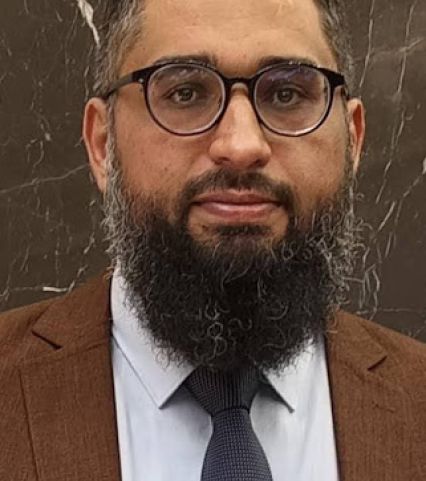 Dr. Elhassan EghwilaLHE2024 (Anesthesia) Keynote
Dr. Elhassan EghwilaLHE2024 (Anesthesia) Keynote -
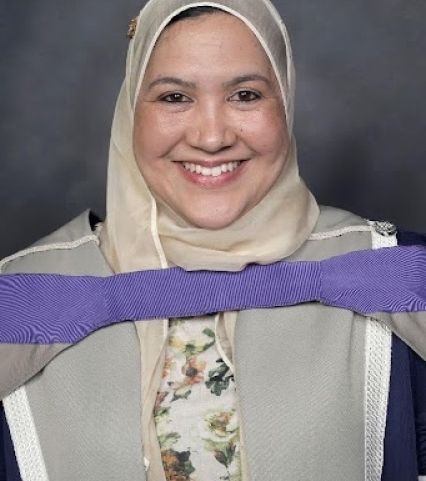 Prof. Farzana MoosajeeLHE2024 Rheumatology Keynote
Prof. Farzana MoosajeeLHE2024 Rheumatology Keynote -
 Dr. Nour Abduraziq ElsousaaLHE2024 (pharmacology) Keynote
Dr. Nour Abduraziq ElsousaaLHE2024 (pharmacology) Keynote -
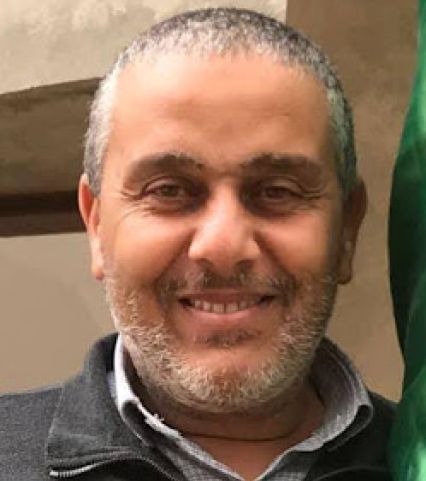 Dr. Osama BheleelLHE2024 Cardiology Keynote
Dr. Osama BheleelLHE2024 Cardiology Keynote
-
Dr. Elhassan M. Eghwila MD is a highly respected medical professional specializing in anesthesia, intensive care, and resuscitation. Holding key leadership roles, including Chair of the Libyan Society of Anesthesia Intensive Care and Resuscitation, Africa Regional Section board member, and Pan Arab Federation of Societies of Anesthesiologists board member, Dr. Eghwila demonstrates his commitment to advancing the field of anesthesia and critical care medicine. As a Consultant Anesthesiologist at Zliten Medical Centre, he provides expert medical care to surgical patients, ensuring their safety and comfort throughout procedures. Additionally, Dr. Eghwila plays a vital role in medical education as a lecturer of anesthesia and intensive care at Zliten Medical School, where he imparts knowledge and skills to aspiring healthcare professionals. Through his dedication to patient care, education, and professional advocacy, Dr. Elhassan M. Eghwila MD contributes significantly to the enhancement of healthcare standards in Libya and beyond.
Lecture title: Bridging the Gap: Exploring Barriers to Effective Pain Management in Libyan Anesthesia Practices
Bridging the Gap: Exploring Barriers to Effective Pain Management in Libyan Anesthesia Practices” delves into the challenges faced by anesthesia practitioners in Libya in providing optimal pain management for patients. Despite advancements in medical technology and knowledge, several barriers hinder the delivery of effective pain relief in this context. These barriers may include limited access to essential medications and equipment, inadequate training and education on pain management techniques, insufficient awareness among healthcare professionals and patients about the importance of pain control, as well as cultural and societal perceptions influencing pain perception and treatment approaches. Additionally, logistical challenges such as understaffing, lack of standardized protocols, and resource constraints further exacerbate the issue. Addressing these barriers requires a multifaceted approach, including policy interventions to improve access to medications and resources, enhancing training programs for anesthesia practitioners, raising awareness about pain management among healthcare providers and the general public, and promoting interdisciplinary collaboration to develop comprehensive pain management strategies. By identifying and addressing these barriers, Libyan anesthesia practices can strive towards enhancing patient outcomes and ensuring that all individuals receive the pain relief they deserve.
-
Dr. Farzana Moosajee epitomizes diligence and compassion, evident since her inception into the medical field as a student in 2000. Her academic prowess garnered accolades, including top student awards in Medical Physiology and Virology during her undergraduate tenure. Graduating Cum Laude from the University of Cape Town in 2005, she demonstrated exceptional proficiency, obtaining honors and distinctions in pre-clinical examinations. Embarking on her professional journey, Dr. Moosajee completed her internship at prestigious institutions in Johannesburg, followed by community service with the South African Military Health Services. Her passion for internal medicine and rheumatology flourished during her tenure at Groote Schuur Hospital, where she served as a medical officer before advancing to a medical registrar position at her Alma Mater, UCT. Dr. Moosajee’s pursuit of excellence led her to achieve Fellowship of the College of Physicians in 2014, supplemented by a Certificate of Rheumatology examination in 2016. Currently pursuing a Master’s in Philosophy in Health Professionals Education at Stellenbosch University, she actively engages in clinical practice, academic endeavors, and mentorship of medical students. As an examiner at the Colleges of Medicine of South Africa examinations, Dr. Moosajee exhibits proficiency in managing a spectrum of medical and rheumatological conditions, with particular expertise in rheumatoid arthritis, osteoarthritis, gout, osteoporosis, pain amplification syndromes, and connective tissue diseases.
- Lecture title: Approach to Lower Back Pain
Presenting the topic of “Approach to Lower Back Pain” at an international conference is crucial for several reasons. Firstly, lower back pain is a prevalent and challenging health issue worldwide, affecting millions of people and causing significant disability and economic burden. Sharing insights and best practices in managing lower back pain can contribute to improving patient outcomes globally. Secondly, the approach to lower back pain involves a multidisciplinary perspective, integrating medical, physical, and psychological aspects of care. By presenting this topic, attendees can gain valuable knowledge and strategies to enhance their practice and better serve their patients. Lastly, addressing lower back pain aligns with the conference’s goal of advancing medical knowledge and fostering collaboration among healthcare professionals on a global scale.
- Workshop title:
Comprehensive Musculoskeletal Examination: GALS Approach for Paediatric and Adult Patients
This workshop will cover the evaluation of both the spine and hip, incorporating the GALS approach, which stands for Gait, Arms, Legs, and Spine. Participants will learn systematic assessment techniques for the musculoskeletal system in both Paediatric and adult populations, focusing on identifying abnormalities in the spine and hip regions. The workshop will provide hands-on practice and case-based discussions to enhance participants’ skills in performing thorough musculoskeletal examinations.Clinical Skills Workshop: Rheumatology Imaging and Connective Tissue Disease Assessment
This workshop will cover the interpretation of radiographs in rheumatology, focusing on recognizing characteristic findings of connective tissue diseases. Additionally, participants will learn about capillaroscopy as a diagnostic tool for connective tissue diseases, enhancing their ability to identify and manage patients with rheumatological conditions. The workshop will include case-based discussions and hands-on practice sessions to reinforce learning and skill development in rheumatology assessment techniques.
-
Dr. Nour Abduraziq Elsousaa, born on March 23, 1993, in Tripoli, Libya, holds a Bachelor’s degree in Pharmacy from Tripoli University, achieving an excellent grade of 88%. He further pursued his academic journey and obtained a Master’s degree in Microbiology and Immunology, graduating with distinction. Throughout his career, Nour has demonstrated a commitment to education and professional development. He served as an Administrator at Tripoli University’s Department of Microbiology and Immunology from 2015 to 2020, where he prepared and delivered practical lectures to undergraduate students and supervised laboratory work. As a Pharmacist at Almarkaziya Pharmacy from 2016 to 2018, Nour excelled in dispensing prescribed and over-the-counter drugs to patients and mentored newly graduated pharmacists. He continued to contribute to education as a Lecturer at Rehab Almostakhbal Educational Center, specializing in pharmaceutical training courses and cosmeceutical science. Currently, Nour holds the position of Assistant Lecturer in the Microbiology and Immunology Department at Tripoli University. He is also an accomplished author, having launched two books in pharmaceutical training and cosmeceutical science in 2023. Nour possesses strong communication, critical thinking, and public speaking skills. He excels in planning lectures, organizing events, and managing his time effectively. Proficient in software applications and professional writing, Nour is dedicated to continuous learning and development in his field. Outside of his professional endeavors, Nour enjoys writing and reading articles, as well as engaging in sports activities. He describes himself as a dedicated pharmacist and educator, passionate about making a positive impact in both academic and practical settings.
Lecture title: The Role of Pharmaceutical Care in Diabetes Mellitus Patients
Diabetes mellitus, a chronic metabolic disorder characterized by elevated blood glucose levels, necessitates a multidisciplinary approach for effective management. Pharmaceutical care holds a central position in optimizing patient outcomes in diabetes management. This abstract provides an overview of the crucial role and impact of pharmaceutical care in diabetes mellitus patients. Pharmaceutical care employs a patient-centered approach, focusing on optimizing medication therapy outcomes. In diabetes management, this involves various activities such as medication selection, dosage adjustment, patient education, adherence counseling, and monitoring therapeutic outcomes. The primary objective is to achieve and sustain optimal glycemic control while mitigating complications. Medication selection is pivotal, considering various antidiabetic classes available. Pharmacists collaborate with the healthcare team, assessing individual patient needs, comorbidities, and medication-related factors to tailor treatment regimens. They also consider cost-effectiveness, potential drug interactions, and adverse effects to ensure patient safety and adherence. Dosage adjustment and glycemic control are critical aspects. Pharmacists aim to minimize risks of adverse effects, including hypoglycemia, through careful dosage management. Patient education and adherence counseling are integral. Pharmacists provide comprehensive education on diabetes self-management, addressing concerns, misconceptions, and barriers to adherence, thus promoting medication adherence and lifestyle modifications. Monitoring therapeutic outcomes is essential for evaluating treatment effectiveness. Pharmacists assess parameters such as glycemic control, lipid profile, and blood pressure. In conclusion, pharmaceutical care significantly impacts diabetes management by achieving and maintaining optimal glycemic control, enhancing patient quality of life, and reducing complications. Through medication optimization, patient education, adherence support, and outcome monitoring, pharmacists play a crucial role in diabetes care, ensuring safe and effective medication therapy. The lecture will cover the role of pharmaceutical care, success stories, treatment landscape, emerging trends, future directions, and potential challenges in implementing new drug options.
-
Dr. Osama Bheleel, a distinguished medical professional, holds the prestigious titles of MBBCh and Facharzt (Germany), signifying his extensive medical education and specialization in cardiology. With a fervent dedication to advancing cardiac care, Dr. Bheleel serves as the President of the Libyan Cardiac Society, demonstrating his leadership in the field. Additionally, he serves as the Consultant cardiologist in the Department of Cardiology at Tripoli university hospital in Libya, where he oversees the delivery of specialized cardiac care and contributes to development of medical services in the region. As an Interventional Cardiologist, he specializes in diagnosing and treating cardiovascular diseases through minimally invasive procedures such as angioplasty and stenting. Dr. Bheleel’s expertise lies in employing cutting-edge techniques to address complex cardiac conditions, ensuring optimal patient outcomes. Throughout his career, he has been actively involved in research, contributing valuable insights to the field of cardiology. Dr. Bheleel’s commitment to enhancing healthcare extends beyond clinical practice; he is deeply involved in medical education and training, nurturing the next generation of cardiologists. With a compassionate approach and unwavering commitment to excellence, also, continues to make significant contributions to the advancement of cardiac care, both nationally and Internationally.
Lecture title: Stent Save a Life Initiative
Initiative overview: Stent Save a Life is a national initiative proposed by the Libyan Cardiac Society to establish well-occupied cardiac catheterization facilities staffed by well trained and qualified healthcare professionals to provide primary percutaneous coronary interventions free of charge during the critical “golden hours’ following acute ST-Elevation Myocardial Infarction (STEMI). This initiative aims to save the lives of patients suffering from acute heart attack in Libya, which is the leading cause of death in Libya.
-
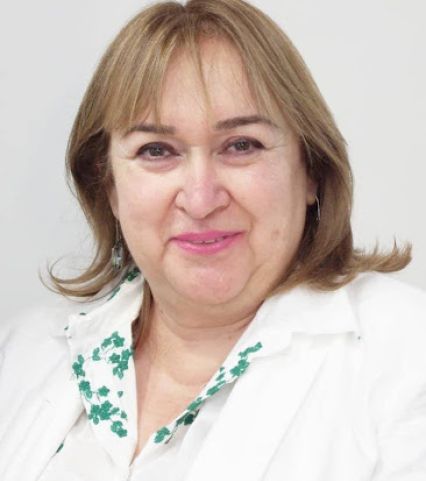 Prof. Sahar Abdul-RasoolLHE2024 Oncology Keynote
Prof. Sahar Abdul-RasoolLHE2024 Oncology Keynote -
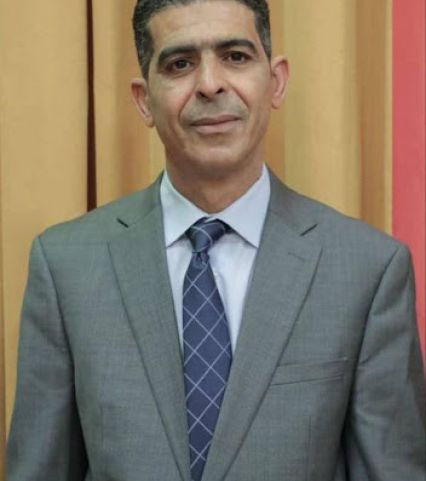 Dr. Saeduldeen SaedLHE2024 Panel 1 (Cardiology)
Dr. Saeduldeen SaedLHE2024 Panel 1 (Cardiology) -
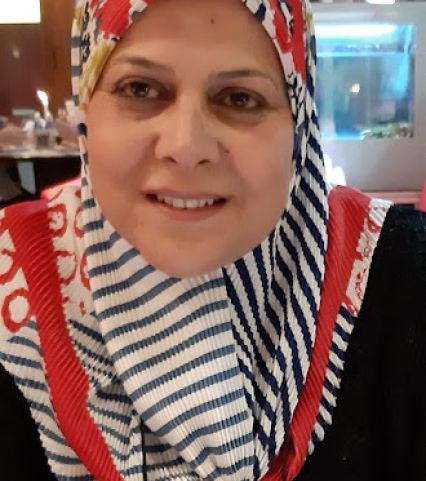 Prof. Hanifa Saad Al-RabtiLHE2024 Medical Education Keynote
Prof. Hanifa Saad Al-RabtiLHE2024 Medical Education Keynote -
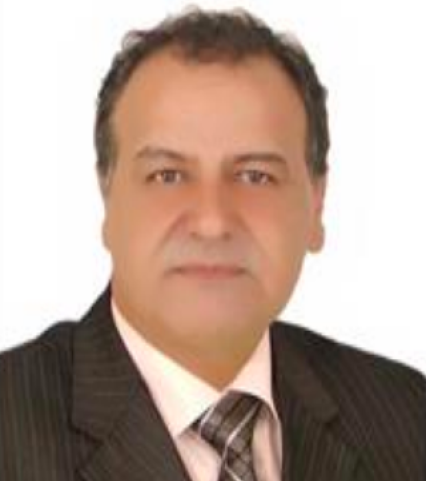 Prof. Noureddine Al-BouzidiLHE2024 (pharmacology) Keynote
Prof. Noureddine Al-BouzidiLHE2024 (pharmacology) Keynote
-
Sahar Abdul-Rasool graduated from Baghdad University College of medicine. She obtained her MSc from the University of Al-Nahrain (Baghdad, Iraq) and a PhD from the University of Cape town. In 2021 she became a fellow of the Royal College of Physicians (London) in the field of medical education. She has published in the field of molecular oncology and medical education. Currently, she is a senior lecturer at the Department of Medical Biosciences at the University of Western cape, in addition to being the teaching and learning executive and a faculty academic planning member. Currently, she is a senior lecturer at the Department of Medical Biosciences at the University of Western cape, in addition to being the teaching and learning executive and a faculty academic planning member.
- Lecture title: Keeping abreast of breast cancer
Join us for the “Keeping abreast of breast cancer” lecture by Professor Sahar Hussein from the Royal College of Physicians (London). Gain insights into the importance of early detection and prevention of breast cancer. Benefit from her globally recognized expertise.
- Workshop title: A workshop on publishing research in Medical Filed.
The workshop consists of theoretical and practical sessions that aim at:
How to go about building a good literature review: Search engines.
Designing and writing paragraphs in English: Coherent paragraphs.
Publishing Clinical trials.
Journal selection: Impact factor and predatory journals, Editing and submission.Who should attend?
Junior medical doctors and mid-career professional who to publish their scientific research, clinical trials and write review articles. The researcher needs to bring their laptops -
The Deputy Minister of Health for Hospital Affairs at the Ministry of Health in Libya, Tripoli, plays a pivotal role in overseeing and managing the healthcare system’s hospital-related activities and affairs. This high-ranking official is responsible for formulating policies, strategies, and guidelines to ensure the efficient operation and delivery of healthcare services within hospitals across the country. Their duties include supervising hospital administration, resource allocation, budgeting, and infrastructure development to maintain high standards of patient care and safety. Additionally, the Deputy Minister of Health for Hospital Affairs collaborates with other government agencies, healthcare professionals, and stakeholders to address healthcare challenges, improve healthcare access, and promote public health initiatives. They also represent the Ministry of Health in various national and international forums, advocating for healthcare reforms and initiatives aimed at enhancing healthcare delivery and outcomes for the population of Libya. With their expertise and leadership, the Deputy Minister of Health for Hospital Affairs plays a crucial role in advancing the healthcare sector and addressing the healthcare needs of the Libyan people.
Title: Panel Title: Panel: Stent Save a Life Initiative (Libyan Cardiac Society)
-
Dr. Hanifa Saad Al-Rabti is a coordinator of the Continuous Professional Development Committee at the General Health Council. She is also a consultant in pediatric cardiology and an associate professor at Tripoli Medical College. Therefore, her expertise appears to be in the field of pediatric cardiology and medical education, particularly in the area of continuous professional development for healthcare professionals.
Lecture title: Continuing professional development (Medical Education)
In the medical field, continuing professional development (CPD) is a crucial aspect of maintaining high standards of patient care and staying abreast of advancements in medical knowledge, technology, and best practices. Medical professionals engage in CPD activities to enhance their clinical skills, expand their knowledge base, and keep pace with developments in medical research and healthcare delivery. Key components of CPD in the medical field include:
Continuing Medical Education (CME): Medical professionals participate in CME activities such as conferences, workshops, seminars, and online courses to update their clinical knowledge and skills. These activities cover a wide range of medical specialties and topics, including diagnosis, treatment modalities, patient management, and ethical considerations.
Clinical Practice Guidelines: Medical practitioners integrate evidence-based guidelines and protocols into their clinical practice to ensure the delivery of high-quality, standardized care. CPD includes staying current with the latest clinical guidelines and incorporating them into patient care decisions.
Professional Certification and Licensing: Many medical specialties require professionals to obtain and maintain board certification or licensure through ongoing CPD activities. These certifications demonstrate proficiency and competency in a specific medical specialty and may involve periodic recertification examinations or continuing education requirements.
Quality Improvement Initiatives: CPD in the medical field often involves participation in quality improvement projects aimed at enhancing patient outcomes, safety, and satisfaction. Medical professionals engage in activities such as peer review, clinical audits, and performance assessments to identify areas for improvement and implement practice changes.
Research and Scholarship: CPD encourages medical professionals to engage in scholarly activities, including research, publication, and academic collaborations. By contributing to medical literature and participating in research endeavors, professionals advance medical knowledge and contribute to evidence-based practice.
Interprofessional Collaboration: CPD fosters collaboration among healthcare professionals from different disciplines, promoting interdisciplinary teamwork and communication. Collaborative CPD activities enable professionals to learn from each other, share expertise, and improve patient care outcomes through coordinated efforts.
Overall, CPD plays a vital role in supporting the lifelong learning and professional growth of medical practitioners, ensuring that they remain competent, up-to-date, and responsive to the evolving healthcare landscape. By investing in CPD, medical professionals uphold the highest standards of clinical practice and contribute to the advancement of medical science and patient care.
-
Prof. Noureddine Al-Bouzidi serves as a Technical Advisor at the Ministry of Health, providing expert guidance on healthcare policies and regulations. Concurrently, he holds a faculty position at Zintan College of Medicine, contributing to medical education and research. Notably, Prof. al-Bouzidi chairs the Medical Prescription Committee, overseeing the establishment and maintenance of standard medication lists. This committee ensures that prescribing practices align with evidence-based guidelines and regulatory standards, promoting safe and effective medication use. In his role as a Technical Advisor, Prof. al-Bouzidi offers insights into various aspects of healthcare delivery, policy development, and regulatory compliance within the Ministry of Health. He contributes to shaping healthcare strategies, evaluating programs, and ensuring adherence to quality standards. As a faculty member, he plays a vital role in training medical students, conducting research, and shaping the curriculum. Chairing the Medical Prescription Committee entails leadership in reviewing medication protocols and making recommendations for updates to standard medication lists. This responsibility is crucial for promoting rational prescribing practices and ensuring patient safety. The committee’s work aligns with the broader objectives of the General Health Council, which oversees healthcare regulation, policy development, and quality assurance at the national level.
Lecture title: Prescription medication according to medication options and prescriptions.
Prescription medication is a fundamental aspect of modern healthcare, where healthcare providers prescribe specific medications to patients based on their medical conditions, symptoms, and individual health needs. The process of prescribing medication involves careful consideration of various factors, including the patient’s medical history, allergies, potential drug interactions, and the effectiveness of available treatment options. Healthcare providers, such as physicians, nurse practitioners, and physician assistants, rely on their clinical expertise and knowledge of pharmacology to select the most appropriate medication for each patient. They assess the patient’s condition, conduct diagnostic tests if necessary, and evaluate the potential benefits and risks of different treatment options before making a prescription decision. One crucial aspect of prescribing medication is considering the range of available medications and their suitability for the patient’s condition. Healthcare providers must stay updated with the latest medical research, clinical guidelines, and pharmaceutical developments to make informed decisions about medication selection. They consider factors such as the medication’s mechanism of action, dosage form, route of administration, and potential side effects when choosing the most appropriate treatment. Additionally, healthcare providers take into account the patient’s preferences, treatment goals, and adherence to medication regimens when prescribing medication. They engage in shared decision-making with patients, discussing the benefits and risks of different treatment options and addressing any concerns or questions the patient may have. Prescribing medication also involves ensuring that the prescription aligns with regulatory requirements and professional standards. Healthcare providers must follow legal and ethical guidelines when prescribing controlled substances adhere to formulary restrictions imposed by insurance providers or healthcare institutions, and document prescription details accurately in the patient’s medical record. Furthermore, ongoing monitoring and follow-up are essential components of prescription medication management. Healthcare providers assess the patient’s response to treatment, monitor for adverse effects or drug interactions, and adjust the treatment regimen as necessary to optimize therapeutic outcomes.
-
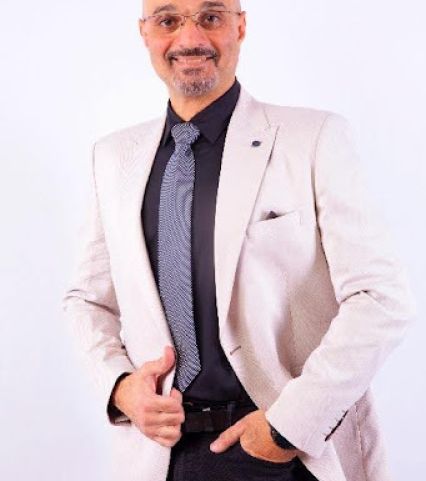 Dr. Wael ShaalanLHE2024 Obesity Surgeries Keynote
Dr. Wael ShaalanLHE2024 Obesity Surgeries Keynote -
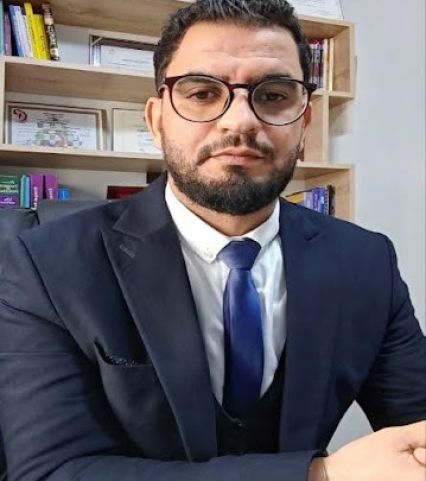 Dr. Zinelabedin MohamedLHE2024 (Internal Medicine) Keynote
Dr. Zinelabedin MohamedLHE2024 (Internal Medicine) Keynote -
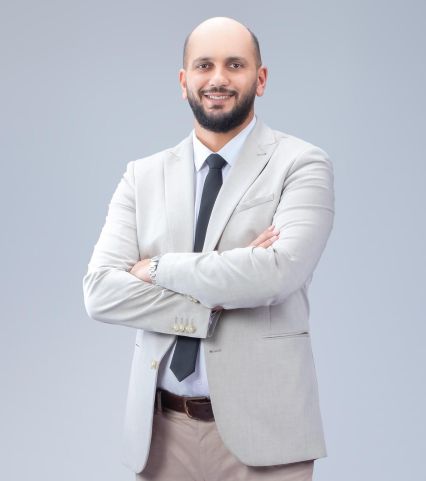 Dr. Muhammed MeliadLHE2024 (pharmacology) Keynote
Dr. Muhammed MeliadLHE2024 (pharmacology) Keynote
-
Dr wael Shaalan, Consultant of Bariatric surgery, Member of the Royal College of Surgery in Ireland, MRCSI, Member of the International Federation for the Surgery of OBESITY AND METABOLIC DISORDERS, IFSO, Member of the Egyptian Society of Bariatric Surgeons ESBS, Accredited by SRC, USA, Dr wael Shaalan has performed more than 4000 different Bariatric surgeries, including Sleeve gastrectomy, One Anastomosis Gastric Bypassrevision surgeries for previously operated patients. Dr wael Shaalan was the first in middle east to implement the new technique of chemical Encapsulation Omentopexy in his Sleeve and OAGBand reduce possible complications. Dr wael Shaalan is the founder of both Eegant Curved Clinic as well as Bliss clinic who both work intermingled to serve patients to reduce thetreatment afterwards.
Dr wael Shaalan, working in different hispitals in Egypt as well as in Benghazi Libya, has a fully integrated team including subspecialty to assisBariatric patients.
Lecture title: Procedure less Management of Acute Leak after Laparoscopic Gastric Sleeve Surgery
Leak after Sleeve gasterctomy is one of the most dreadful complications in Bariatric surgery. Management and cure depends largely on early diagnosis and early intervention. The fear of progressive deterioration of patient same times calls for unnecessary aggressive procedure. This talk describes a work of many patients that were selected to be treated all conservatively. Management succeeded ill of them with no need to intervene.
-
Dr. Zinelabedin Mohamed is an esteemed professional with a multifaceted role within the academic and medical community. Currently serving as the Head of the Research and Consultancy Department and a faculty member in the Department of internal medicine at the Faculty of Medicine, Tobruk University, Dr. Mohamed plays a pivotal role in shaping research excellence and academic standards. His expertise extends to his membership on the Research Ethical Committee, where he ensures ethical standards in academic endeavors. With a wealth of experience and dedication to advancing medical knowledge, Dr. Mohamed has made significant contributions to the field. His participation in the Libyan International Healthcare Forum and Exhibition further underscores his commitment to sharing his expertise and engaging with fellow professionals. Dr. Mohamed’s extensive background and leadership positions highlight his dedication to advancing medical research and education, making him a valuable asset to the academic and medical community.
Lecture title: Knowledge, Practices and Attitudes toward Medical Ethics among Hospital Practitioners in Libyan Tobruk tertiary center
Medical ethics play a vital role in ensuring patients’ satisfaction and determining appropriate healthcare practices, The state of medical ethics in Libya has been a subject of concern, and the current study is a cross- sectional questionnaire based study to assess the participants’ knowledge and attitudes towards healthcare ethics. The number of participants reached 330 (164 doctors and 166 nurses). The majority of participants of doctors and nurses were females, as they represented (68.9%) of doctors and (73.5%) of nurses. There were many significant differences between doctors and nurses attitudes regarding the followings: firstly: the belief that patient wishes must always be adhered to, (83.1% of nurses agreed, and 57.9% of doctors, P < 0.001). Secondly: the importance of confidentiality (71.3% of doctors compared to 60.2% of nurses, P = 0.045 have considered confidentiality an essential value). Also, significant differences were observed concerning the acceptance of abortion within the boundaries of the law (48.8% of nurses agreed compared to 36.6% of doctors, P = 0.033). It is recommended to improve the Libyan health care worker’s knowledge and attitude towards different ethical and legal issues through continuous medico-legal educational activities.
-
Dr. Muhammed Mansour Meliad, a passionate pharmacist with 13+ years of experience, seamlessly bridges academia and practical healthcare. He currently serves as a faculty member at the University of Tripoli’s Faculty of Pharmacy (UOT), Libya, while maintaining his role as a dedicated community and hospital pharmacist. Mr. Meliad excels in both theoretical knowledge and practical application, having honed his skills in various pharmacy settings over the past 12 years. He also actively shapes future generations of pharmacists by delivering engaging lectures and incorporating practical elements into courses like pharmacy practice, hospital pharmacy, pharmaceutics, biopharmaceutics, and pharmacokinetics at UOT. This unique blend equips his students with a well-rounded understanding of the field.
Lecture title: E-Prescribing: Transforming Healthcare Delivery
Introduction:
E-prescribing, also known as electronic prescribing, is a modern healthcare practice that utilizes electronic systems to generate and transmit prescription orders between healthcare providers, pharmacies, and patients. This digital approach to prescribing medication has transformed the way healthcare is delivered, enhancing patient safety, improving medication adherence, and streamlining the prescription process.
Key Points for the Lecture:- Overview of E-Prescribing
- Enhanced Patient Safety
- Improved Medication Adherence
- Streamlined Prescription Process
- Legal and Regulatory Considerations
Target Audience:
The lecture on e-prescribing is designed for healthcare professionals, including physicians, pharmacists, nurses, and healthcare administrators. It is also suitable for students of healthcare related fields. The audience should have a basic understanding of healthcare processes and terminology, as well as an interest in exploring the potential benefits and challenges of implementing e-prescribing systems.
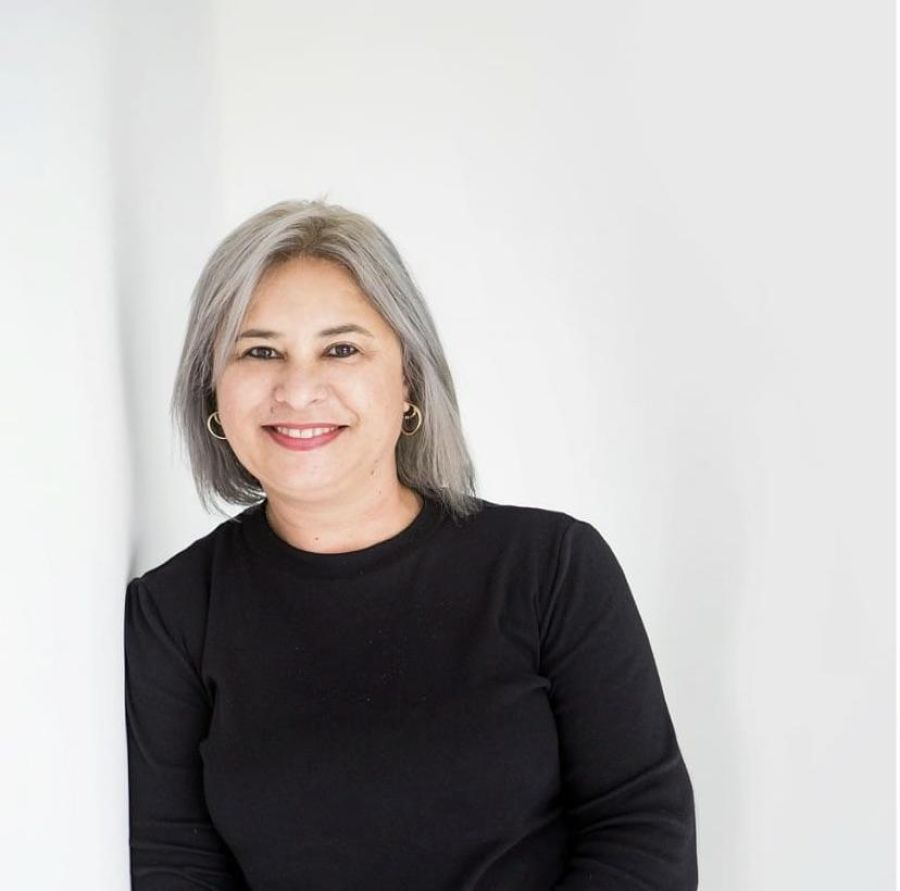
Professor Nicolette Roman Professor Nicolette Roman, a PhD in Psychology, is a Senior Professor and South African Research Chair in the study of families. She is the Founder and Director of the Centre for Interdisciplinary Studies of Children, Families and Society (CISCFS) at the University of the Western Cape and a Visiting Professor at the University of Huddersfield in the UK. Professor Roman has received numerous awards, including the Chancellor’s Outstanding Alumni Award in Health Sciences and the Dean’s Research Excellence Merit Award in the Faculty of Community and Health Sciences. Her research focuses on family life, developing and strengthening family capabilities through the family-parent-child relationship across the lifespan to achieve family and social cohesion and family well-being. She has published and presented her research locally and internationally, growing the critical mass in family science in South Africa. She is a partner in two international research consortiums, a parenting research capacity strengthening consortium among six African universities, and an international research project to develop a Masters to address SDG10. Professor Roman also leads a COVID-19 project developing interventions for families in post-COVID-19 and a study to explore family behaviour in an era of Climate Change. Professor Roman is renowned for strengthening the capacity of early career researchers, mentoring and supervision.
Lecture title: Family-centredness in healthcare: Striving for individual and family well-being
The family is an important social unit in society and is often seen as a system amongst other systems. For example, the family system and the healthcare system are seen as separately functioning systems. The family is the place and space where life begins, is quite complex in structure, shape, size and engagement but it is the space of comfort, care and support. Family members affect each other intellectually, emotionally, spiritually, physically, psychologically. The healthcare system is the space for providing care and support so that the patient shifts from illness to being well. The family and healthcare systems integrate when the family member is discharged and the family has to ‘take over’ the care and support role. Often a patient-centred or person-centred approach is used but with children, the family, mainly mothers are considered and engaged to continue with at-home care. Literature shows that family-centered care is more prevalent in paediatrics and disability rather than studies focusing on less vulnerable yet ill family members The evidence shows that family-centredness in health care improves many aspects of the integration of family and healthcare. These include the improvement of the quality of health care, knowledge and skills about health care, quality of life, as well as reduced stress, anxiety and depression. The relationships between family members and healthcare workers also improved.
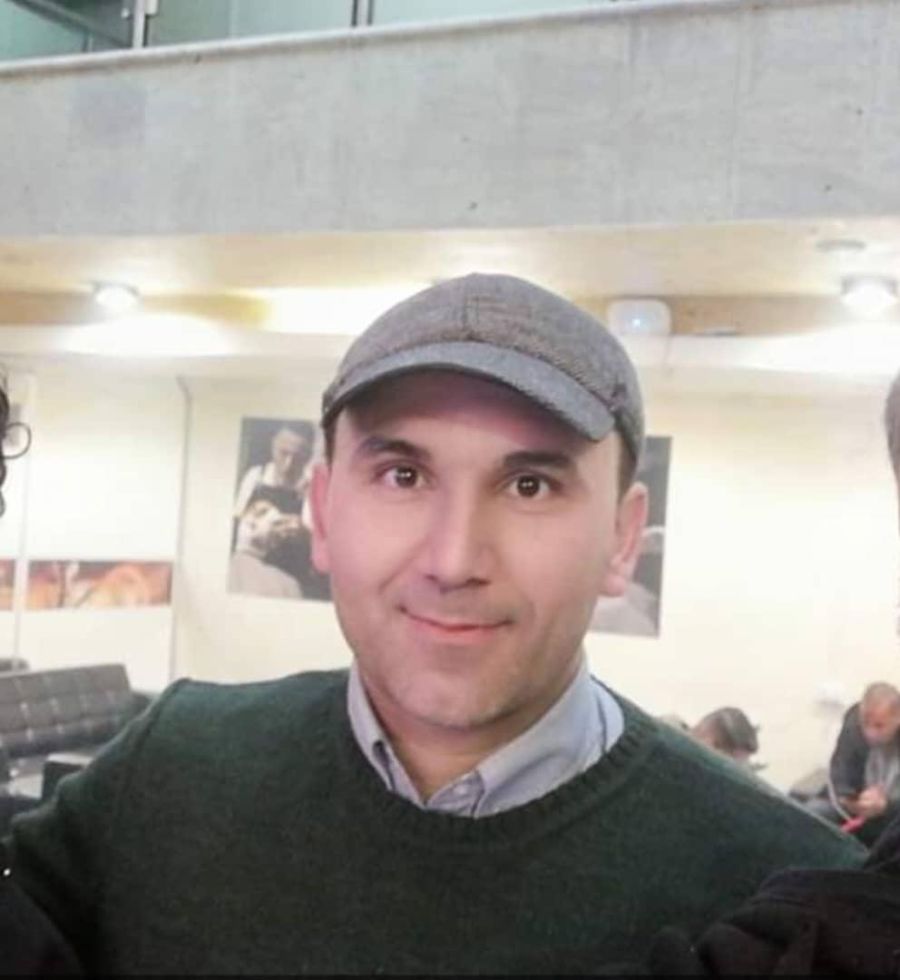
Dr. Mustafa Mohamed Alsagheir, an accomplished orthopedic surgeon and educator, has dedicated his career to advancing medical knowledge and practice in orthopedics. Holding a Consultant Orthopedic position since 2010, he has consistently demonstrated excellence in his field. Currently serving as Associate Professor in the Orthopedics Department at Misurata University, Mustafa has been an integral faculty member since 2013. Alongside his academic roles, he is the Head of the Orthopedic Department at Misrata Medical Center and Al Jazeera International Hospital, showcasing his leadership and clinical expertise. Dr. Mustafa’s commitment to medical education is evident through his roles as Coordinator of the Medical Education Office and Chairman of the Scientific Committee for the Orthopedic Diploma, where he ensures the development of future medical professionals. He is also a certified trainer for various orthopedic procedures, collaborating with prestigious international companies such as Paramedica, Zimmer, and Anika. In addition to his clinical and educational endeavors, Mustafa actively contributes to the orthopedic community as a member of several societies, including the Libyan Orthopedic Society, SICOT Orthopedic Society, and Tunisian Orthopedic Society. He is also involved in organizing conferences and scientific committees, furthering orthopedic research and innovation. Throughout his career, Mustafa has pursued continuous professional development, attending numerous courses and workshops worldwide. His dedication to advancing orthopedic knowledge is reflected in his publication of over 11 research papers in esteemed journals. With his wealth of experience and dedication to excellence, Mustafa Mohamed Mustafa Alsagheir continues to make significant contributions to the field of orthopedics, both locally and internationally
Lecture tite : Challenges Facing the Orthopedic Specialty in Libya and Initial Strategic Solutions
The orthopedic specialty in Libya faces significant challenges that hinder the provision of high-quality healthcare services. These challenges include inadequate infrastructure, limited access to advanced medical technologies, and a shortage of specialized healthcare professionals. Most healthcare facilities in Libya are not equipped with the necessary equipment and state-of-the-art facilities for complex orthopedic procedures, leading to delays in patient care and suboptimal treatment outcomes. Additionally, the political instability and economic downturn have exacerbated these issues, causing further disruptions in healthcare services and a decline in overall medical care standards.
A critical challenge is the lack of opportunities for training and continuing education for orthopedic surgeons and allied healthcare professionals. This gap has resulted in a significant skills deficit, preventing practitioners from keeping abreast of the latest advancements and best practices in the field. The brain drain phenomenon, where skilled professionals migrate to other countries for better career prospects, further depletes the already limited pool of experienced orthopedic surgeons in Libya, worsening the healthcare crisis.
To address these challenges, the first and foremost step is substantial investment in healthcare infrastructure. Ensuring that hospitals and clinics are equipped with modern facilities.
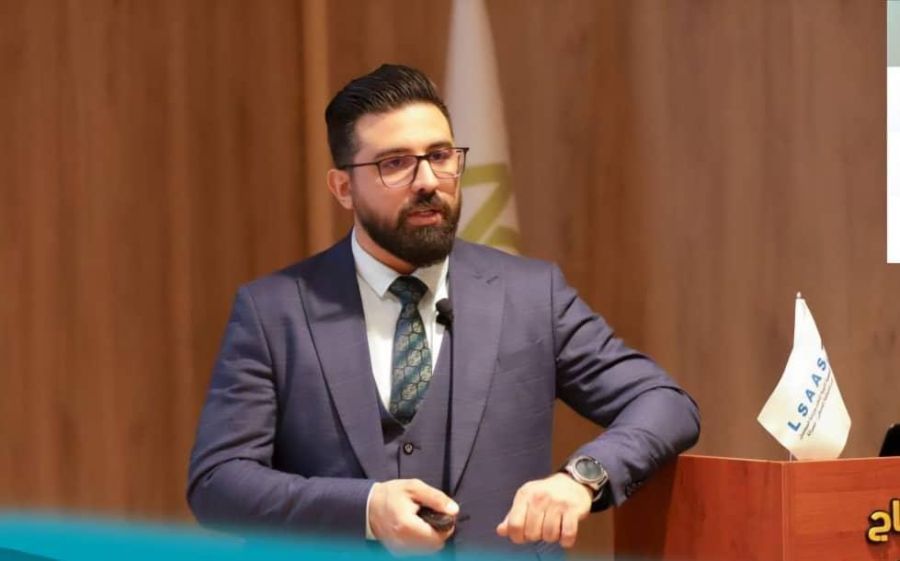
Dr. Taha Bait Almal is an accomplished orthopedic doctor with three years of diverse experience spanning the Orthopedic and Emergency Departments at MMC in Misrata, Libya. Holding a Bachelor of Medicine and Bachelor of Surgery from Gulf Medical University, Ajman, Dr. Bait Almal has consistently demonstrated excellence in patient care and clinical expertise. Throughout their career, Bait Almal has continually honed their skills through a range of internships, courses, and certifications. They possess a comprehensive understanding of orthopedic procedures, reinforced by participation in workshops such as bone fracture fixation and hands-on sessions at the 1st Libyan Arthroscopy and Sport Injuries Conference. Dr. Bait Almal’s commitment to professional development is evident in their extensive training, including certifications in Basic Life Support, Advanced Cardiovascular Life Support, and specialized courses such as COVID-19 management. Their proficiency in languages including Arabic and English facilitates effective communication with diverse patients and medical teams. Beyond clinical practice, Dr. Bait Almal is actively engaged in medical education and community outreach. They have volunteered in various medical camps and educational sessions, showcasing a dedication to promoting health awareness and interdisciplinary collaboration. With a track record of excellence in patient care, a commitment to ongoing learning, and a passion for community health initiatives, Dr. Bait Almalh is a valuable asset to any medical team striving for excellence in orthopedic care and emergency medicine
Lecture tite: Challenges Facing the Orthopedic Specialty in Libya and Initial Strategic Solutions
The orthopedic specialty in Libya faces significant challenges that hinder the provision of high-quality healthcare services. These challenges include inadequate infrastructure, limited access to advanced medical technologies, and a shortage of specialized healthcare professionals. Most healthcare facilities in Libya are not equipped with the necessary equipment and state-of-the-art facilities for complex orthopedic procedures, leading to delays in patient care and suboptimal treatment outcomes. Additionally, the political instability and economic downturn have exacerbated these issues, causing further disruptions in healthcare services and a decline in overall medical care standards.
A critical challenge is the lack of opportunities for training and continuing education for orthopedic surgeons and allied healthcare professionals. This gap has resulted in a significant skills deficit, preventing practitioners from keeping abreast of the latest advancements and best practices in the field. The brain drain phenomenon, where skilled professionals migrate to other countries for better career prospects, further depletes the already limited pool of experienced orthopedic surgeons in Libya, worsening the healthcare crisis.
To address these challenges, the first and foremost step is substantial investment in healthcare infrastructure. Ensuring that hospitals and clinics are equipped with modern facilities.
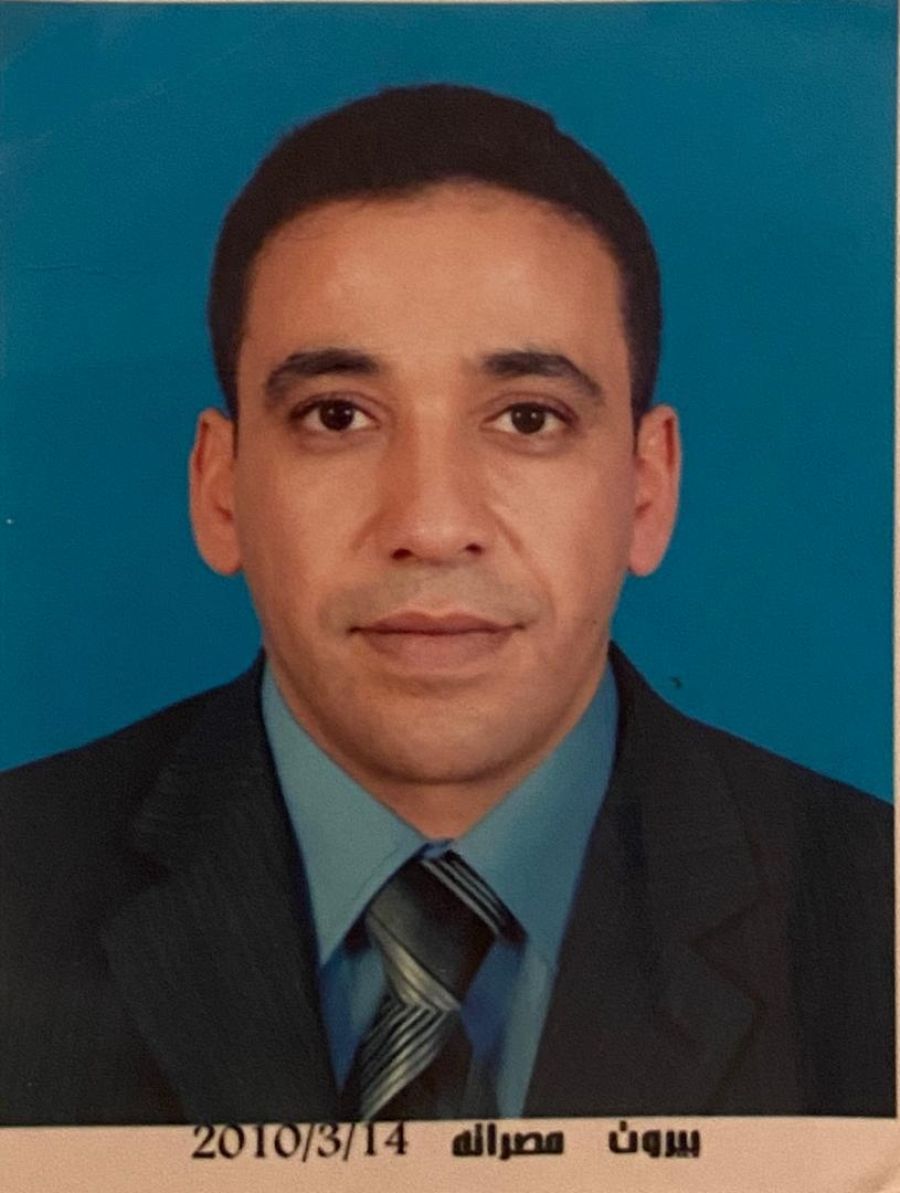
Dr. Alhadi Mohamed Alsaghaier is a seasoned orthopedic consultant with extensive experience spanning over two decades. He holds a Bachelor of Medicine and Surgery from Alarab Medical University and successfully completed the Libyan Board examinations in Orthopedics. Throughout his career, Alhadi has held various positions, including registrar, senior registrar, and specialist in orthopedic surgery, culminating in his current role as a consultant. In addition to his clinical duties, Alhadi is actively involved in medical education, serving as a teaching staff member at Misrata University’s Faculty of Medicine since 2008. He has also held leadership roles, such as Head of the Department of Orthopedics at MMC and Head of the Office of Quality and Continuing Education at Misrata University’s Faculty of Medicine. Alhadi’s commitment to professional development is evident through his participation in numerous conferences and scientific courses, both nationally and internationally. He has also contributed to the medical community through memberships in organizations such as the Misrata Medical Council, the General Libyan Medical Council, and the Orthopedic Society. Furthermore, Alhadi has demonstrated his dedication to humanitarian causes by actively participating in the treatment of war injuries in Libya on multiple occasions. His broad expertise, combined with his passion for education and community service, makes him a valuable asset to the field of orthopedic surgery.
Lecture tite : Challenges Facing the Orthopedic Specialty in Libya and Initial Strategic Solutions
The orthopedic specialty in Libya faces significant challenges that hinder the provision of high-quality healthcare services. These challenges include inadequate infrastructure, limited access to advanced medical technologies, and a shortage of specialized healthcare professionals. Most healthcare facilities in Libya are not equipped with the necessary equipment and state-of-the-art facilities for complex orthopedic procedures, leading to delays in patient care and suboptimal treatment outcomes. Additionally, the political instability and economic downturn have exacerbated these issues, causing further disruptions in healthcare services and a decline in overall medical care standards.
A critical challenge is the lack of opportunities for training and continuing education for orthopedic surgeons and allied healthcare professionals. This gap has resulted in a significant skills deficit, preventing practitioners from keeping abreast of the latest advancements and best practices in the field. The brain drain phenomenon, where skilled professionals migrate to other countries for better career prospects, further depletes the already limited pool of experienced orthopedic surgeons in Libya, worsening the healthcare crisis.
To address these challenges, the first and foremost step is substantial investment in healthcare infrastructure. Ensuring that hospitals and clinics are equipped with modern facilities.
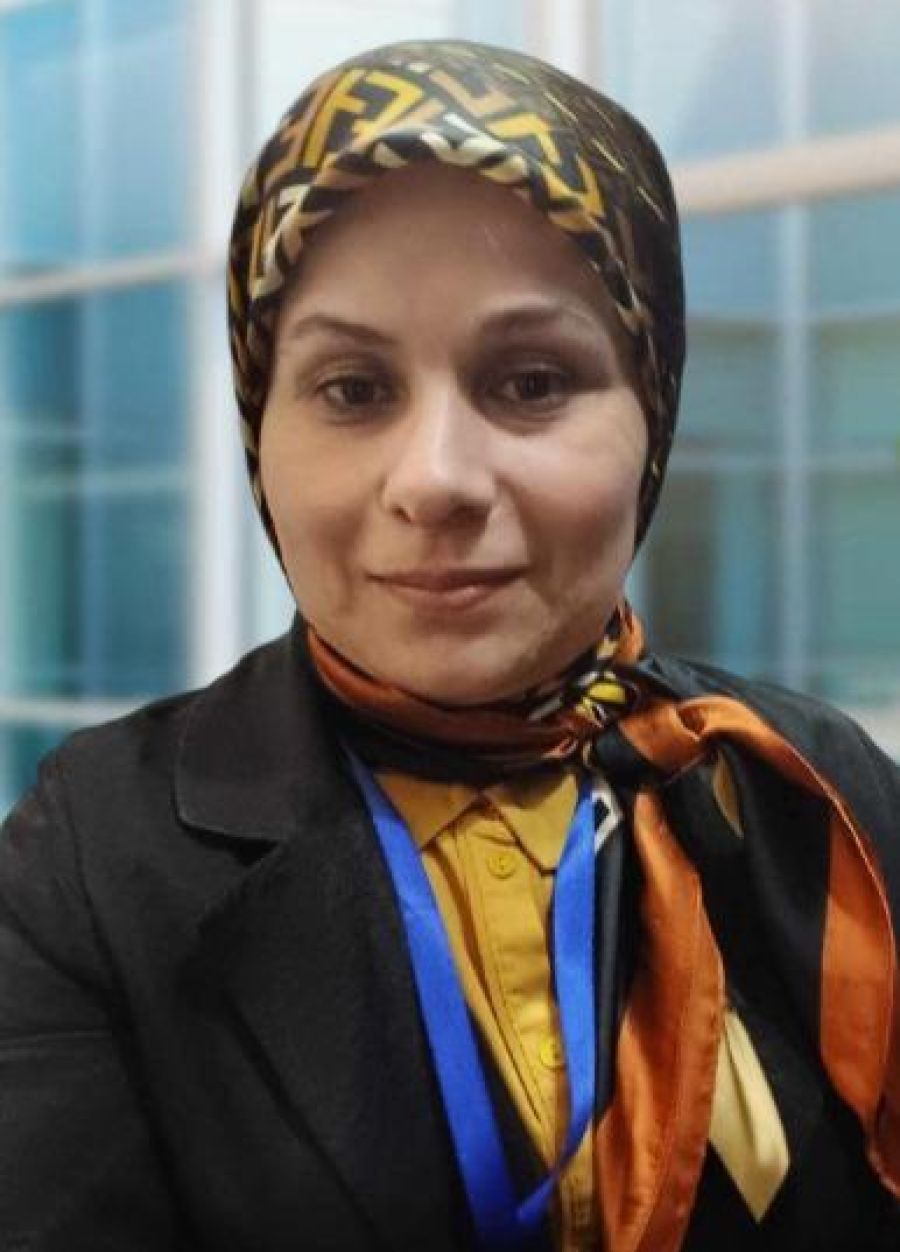
Dr. Maali Abdussalam Gaaim is a preeminent Radiologist, with specialized expertise in Diagnostic Radiology, and further sub-specialization in Breast Imaging and Cardiac Imaging. Her distinguished academic background includes a Master’s degree and ongoing fellowship training, with notable certifications from esteemed institutions including the FRCR and enrollment for EDIR. Dr. Gaaim has deepened her expertise through fellowships in Breast Imaging at the Bahyea Cancer Institute in Cairo, renowned for its pioneering work in early cancer detection and treatment, and in Cardiac Imaging at Cardiac imaging Foundations &Institutes. Her professional affiliations reflect her commitment to her field, being an active member of several leading radiological societies including the European Society of Cardiac Imaging, ECR, the Royal College of Radiologists, UK, and EUSOBI. Since 2011, Dr. Gaaim has been an integral part of the academic staff at the School of Medicine, University of Tripoli, contributing significantly as a Measurement Coordinator in radiology. Dr. Gaaim’s clinical acumen is complemented by her active involvement in research, particularly in the application of artificial intelligence in the early detection of breast cancer. Her work, which also includes the assessment of diffusion-weighted imaging for prostate cancer detection, underscores her dedication to advancing radiological practices. Dr. Gaaim’s profound commitment is also evident in her numerous certifications, making her a pivotal figure in the radiological community both in Libya and internationally.
Lecture tite : Innovative Approaches in Diagnostic Imaging: From Cardiac Interventions to Breast Cancer Management
The integration of various cardiac imaging techniques—such as echocardiography, cardiac CT, MRI, and myocardial scintigraphy—into clinical practice underscores today’s advanced approach to the comprehensive evaluation of cardiac pathologies. Particularly, the combination of these modalities is enhancing diagnostic accuracy in conditions like Transcatheter Aortic Valve Implantation (TAVI) and Coronary Artery Disease (CAD), especially after a positive cardiac CT scan in high-risk patients. This multi-modality imaging approach aims to bridge the gap between radiology and cardiology, facilitating optimal risk assessment, pre-procedural planning, and primary prevention in high-risk patient groups. Despite the evolution of clinical guidelines which provide updated risk scores, significant discrepancies persist between guidelines and daily practice, underscoring the failure to identify at-risk individuals proactively.
Simultaneously, Contrast-Enhanced Mammography (CEM) has proven to be a significant advancement in breast cancer management, posing as an effective alternative to MRI. CEM utilizes intravenous iodinated contrast materials to enhance tumor neovascularity, thereby improving the visualization of enhancing lesions with dual-energy digital mammography. This method is particularly useful in resolving equivocal findings at conventional breast imaging exams, preoperative staging, and monitoring the therapeutic response in breast cancer treatment. CEM offers a cost-effective and accessible option yet increases the radiation dose slightly and has a small risk associated with contrast media. Ongoing investigations include the development of CEM-guided biopsy systems and the integration of artificial intelligence to enhance diagnostic processes further. The dual application of advanced imaging techniques in cardiac and breast imaging exemplifies the dynamic progress in medical imaging, aiming to enhance patient outcomes through precision diagnostics and tailored therapeutic strategies.
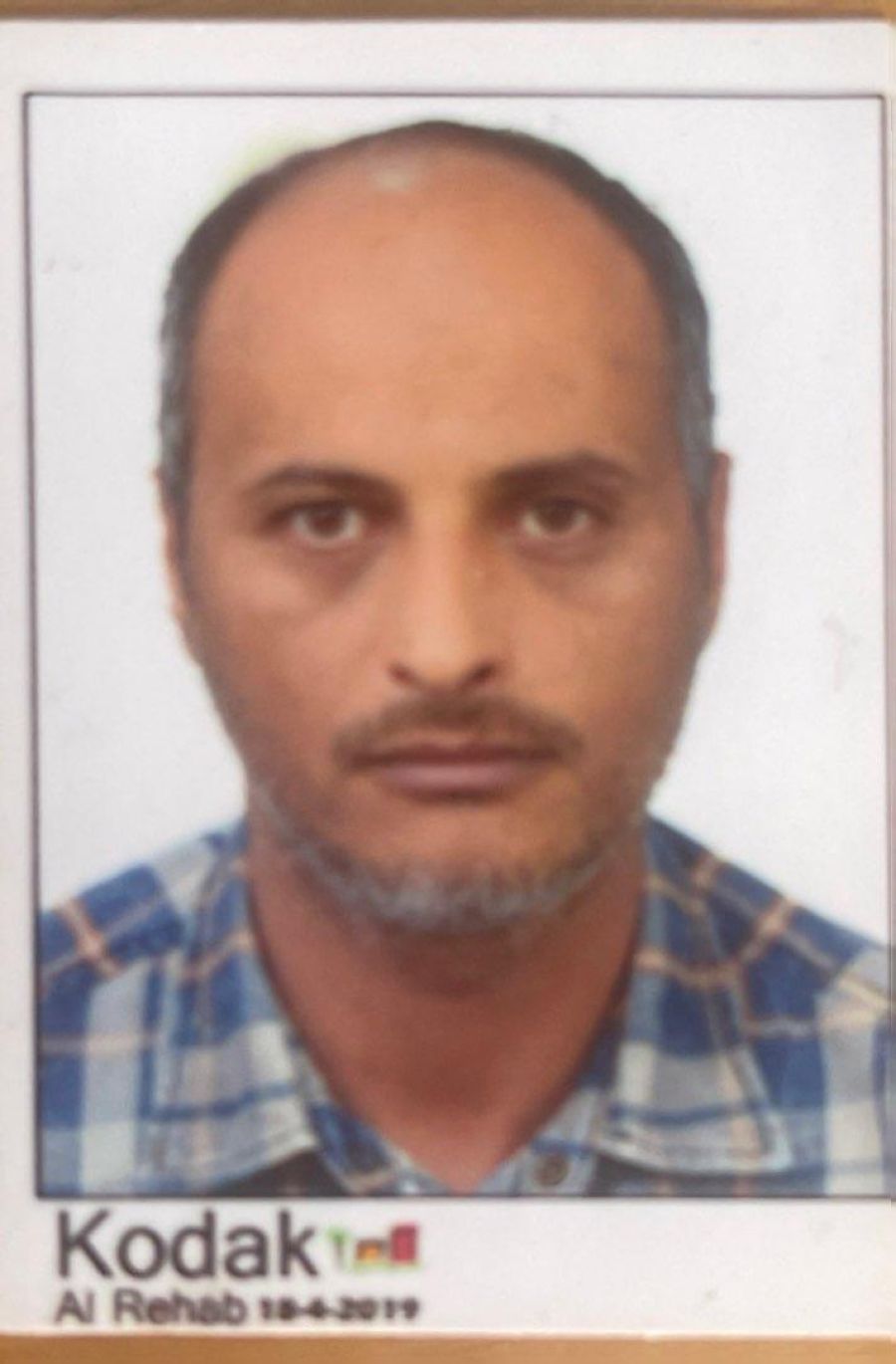
Dr. Imad Almrymi is an accomplished Emergency and Disaster Physician, deeply engaged in medical humanitarian efforts in Tripoli, Libya. Dr. Almrymi holds a European Master of Disaster Medicine from Vrije Universiteit Brussel, Belgium, and a Bachelor’s degree in Medicine and Surgery from Tripoli Medical University. His academic training is further enhanced by certifications in various emergency response and management courses. Since February 2016, Dr. Almrymi has been an integral part of the International Organization for Migration (IOM) as a Clinical Health Supervisor (Referral Officer). In this role, he oversees critical health interventions and coordinates comprehensive migration health activities across the West region. His responsibilities include managing urgent medical cases, developing training modules, and ensuring the confidentiality and integrity of medical information. Dr. Almrymi’s extensive experience spans several key roles, including leading the Emergency Team at the Libyan Emergency Medicine Association since May 2017, where he has significantly contributed to the development and execution of the association’s strategic initiatives. His proactive involvement in the COVID-19 response—both in clinical settings and through strategic planning—highlights his commitment to addressing public health crises. Additionally, Dr. Almrymi has served in various capacities at Alkhadra Hospital, from an emergency physician to an anesthesiologist, demonstrating his versatility and dedication in the medical field. His international experience includes a stint as a Medical Attaché in Belgium, facilitating medical treatment for Libyan patients and enhancing cooperation between Libyan and European healthcare systems. Dr. Almrymi’s career is marked by a steadfast dedication to improving emergency medical services and disaster response mechanisms, making significant impacts on healthcare delivery in both routine and crisis situations. His leadership in training programs and his role in high-stakes environments reflect his expertise and commitment to enhancing healthcare standards and patient care globally.
Panel title: From disaster response to disaster prevention in Libya
Libya covers a vast area of 1.76 million km² and is considered the fourth largest country in Africa in terms of area and the sixteenth largest in the world. It is distinguished by its diverse terrain, including desert, plains, and mountains. This large area and diversity of terrain make it vulnerable to various types of disasters, such as droughts, hurricanes, floods, and earthquakes. In addition to these natural disasters, man-made disasters of various kinds may occur, such as wars, fires, and disasters resulting from engineering errors. Disasters causes immediate aftermath of the disaster; mortality and demographic recovery; land loss and capital destruction; economic crisis; and blame, scapegoating, and social unrest and causes longer-term structural consequences; societal collapse; economic reconstruction; long-term demographic change; reconstruction, reform, and social changes; and redistribution of resources The starting point for reducing disaster risk is Knowing the hazards and the physical, social, economic, and environmental vulnerabilities and of the ways in which hazards and vulnerabilities are changing in the short and long term, followed by action taken on the basis of that knowledge. Conducting risk assessments to identify potential hazards and vulnerabilities are therefore fundamental to work on disaster risk reduction and recovery. Furthermore, risk assessment management helps in developing strategies for risk reduction and disaster management. Early warning systems play a significant role today. They enable preparedness action as well as a prompt response from workers, employers, and national or local authorities by providing timely and accurate information about disaster risk. They can therefore prevent loss of human lives, as well as economic loss. In Libya Early Warning Systems still not fully effective and exploring ways to improve and expand early warning capabilities in Libya. An effective end-to-end early warning system includes four core elements, where each must function efficiently for the system to be successful: Risk knowledge, Monitoring, Response capability and Warning communication. Changing the strategies from disaster response to disaster prevention is crucial in view of increasing challenges due to climate changes and increasing risk of different types of disasters in Libya.
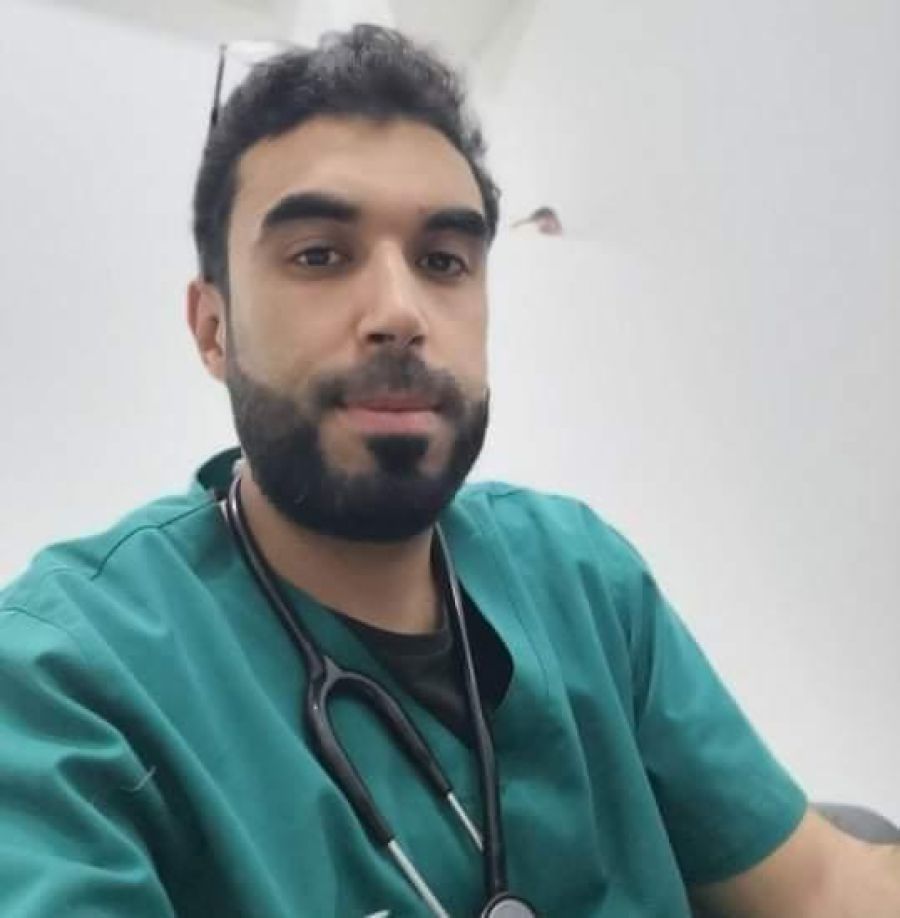
Dr. Mohammed Ibrahim Elgheblawi, a distinguished Emergency Medicine Specialist from Tripoli, Libya, has carved a notable career in the medical field since his graduation in 2016 from Tripoli University with a degree in Medicine and Surgery. Certified by both the Arab Board and Libyan Board of Health Specialization in Emergency Medicine, Dr. ElGheblawi has proven his expertise in acute medical care through intensive roles in emergency rooms and ICU settings at the Tripoli University Hospital and subsequently at Oil Clinic. His expertise spans handling critical cases such as DKA, asthma exacerbations, COPD, poisoning, and more. Dr. ElGheblawi is not just committed to medical practice but also to medical education and leadership. Since 2017, he has led the Emergency Team at the Libyan Emergency Medicine Association (LEMA), contributing to scientific curricula development and training future medical trainers, enhancing emergency medical care standards across Libya. Furthering his commitment to medical education, Dr. ElGheblawi has instructed over 57 courses in life-saving protocols including BLS, ACLS, PALS, and TLS, significantly impacting emergency medical response capabilities. His part-time roles have included working with Médecins Sans Frontières, where he provided essential outpatient care and managed complex medical cases, emphasizing his adaptability and dedication to medical humanitarian efforts. In addition to his clinical and teaching roles, Dr. ElGheblawi actively participates in international medical conferences and has received multiple accolades for his contributions to medical training and practice. His professional memberships include the Libyan Emergency Medicine Association and Médecins Sans Frontières, underscoring his broad influence in the field of emergency medicine both locally and international.
Panel title: From disaster response to disaster prevention in Libya
Libya covers a vast area of 1.76 million km² and is considered the fourth largest country in Africa in terms of area and the sixteenth largest in the world. It is distinguished by its diverse terrain, including desert, plains, and mountains. This large area and diversity of terrain make it vulnerable to various types of disasters, such as droughts, hurricanes, floods, and earthquakes. In addition to these natural disasters, man-made disasters of various kinds may occur, such as wars, fires, and disasters resulting from engineering errors. Disasters causes immediate aftermath of the disaster; mortality and demographic recovery; land loss and capital destruction; economic crisis; and blame, scapegoating, and social unrest and causes longer-term structural consequences; societal collapse; economic reconstruction; long-term demographic change; reconstruction, reform, and social changes; and redistribution of resources The starting point for reducing disaster risk is Knowing the hazards and the physical, social, economic, and environmental vulnerabilities and of the ways in which hazards and vulnerabilities are changing in the short and long term, followed by action taken on the basis of that knowledge. Conducting risk assessments to identify potential hazards and vulnerabilities are therefore fundamental to work on disaster risk reduction and recovery. Furthermore, risk assessment management helps in developing strategies for risk reduction and disaster management. Early warning systems play a significant role today. They enable preparedness action as well as a prompt response from workers, employers, and national or local authorities by providing timely and accurate information about disaster risk. They can therefore prevent loss of human lives, as well as economic loss. In Libya Early Warning Systems still not fully effective and exploring ways to improve and expand early warning capabilities in Libya. An effective end-to-end early warning system includes four core elements, where each must function efficiently for the system to be successful: Risk knowledge, Monitoring, Response capability and Warning communication. Changing the strategies from disaster response to disaster prevention is crucial in view of increasing challenges due to climate changes and increasing risk of different types of disasters in Libya.

Dr. Kamel Ahmed Alazabi, has established a distinguished career in medicine spanning over three decades. A graduate of Damascus University’s Faculty of Medicine in 1988, Dr. Alazabi has fortified his medical expertise with a postgraduate certification from the Libyan Board of Community Medicine in 2013. His early career involved intensive roles, including a residency at Tripoli Central Hospital’s Infectious Disease Department from 1989 to 1998. His tenure included significant international experience, such as working in Technica International Company from 1993 to 1996 and in Mozambique’s Military Hospital from 2001 to 2004. His role expanded to overseeing internal diseases at Hospital Ameiteka and later serving as the Medical Director at the Central Blood Bank in Tripoli from 2011 to 2020. Dr. Alazabi is a dedicated educator and has been a cooperative lecturer at the University of Tripoli’s Faculty of Medicine since 2014, contributing substantially to the advancement of community medicine education in Libya. His commitment extends beyond academia into significant healthcare leadership roles, such as coordinating national strategies for managing the COVID-19 epidemic and advocating for gender-based violence prevention with the Libyan Ministry of Health. As of 2023, Dr. Alazabi leads as the Director of Technical Cooperation and International Relations at the National Center for Crisis Management. He continues to contribute to international dialogues and training programs focused on enhancing healthcare responses to human rights and crisis situations. His expertise is recognized through numerous certifications and accolades, including contributions to blood donation initiatives and several international healthcare conferences. Dr. Alazabi’s career is marked by a steadfast commitment to improving healthcare standards and policies both within Libya and in the international community.
Panel title: From disaster response to disaster prevention in Libya
Libya covers a vast area of 1.76 million km² and is considered the fourth largest country in Africa in terms of area and the sixteenth largest in the world. It is distinguished by its diverse terrain, including desert, plains, and mountains. This large area and diversity of terrain make it vulnerable to various types of disasters, such as droughts, hurricanes, floods, and earthquakes. In addition to these natural disasters, man-made disasters of various kinds may occur, such as wars, fires, and disasters resulting from engineering errors. Disasters causes immediate aftermath of the disaster; mortality and demographic recovery; land loss and capital destruction; economic crisis; and blame, scapegoating, and social unrest and causes longer-term structural consequences; societal collapse; economic reconstruction; long-term demographic change; reconstruction, reform, and social changes; and redistribution of resources The starting point for reducing disaster risk is Knowing the hazards and the physical, social, economic, and environmental vulnerabilities and of the ways in which hazards and vulnerabilities are changing in the short and long term, followed by action taken on the basis of that knowledge. Conducting risk assessments to identify potential hazards and vulnerabilities are therefore fundamental to work on disaster risk reduction and recovery. Furthermore, risk assessment management helps in developing strategies for risk reduction and disaster management. Early warning systems play a significant role today. They enable preparedness action as well as a prompt response from workers, employers, and national or local authorities by providing timely and accurate information about disaster risk. They can therefore prevent loss of human lives, as well as economic loss. In Libya Early Warning Systems still not fully effective and exploring ways to improve and expand early warning capabilities in Libya. An effective end-to-end early warning system includes four core elements, where each must function efficiently for the system to be successful: Risk knowledge, Monitoring, Response capability and Warning communication. Changing the strategies from disaster response to disaster prevention is crucial in view of increasing challenges due to climate changes and increasing risk of different types of disasters in Libya.
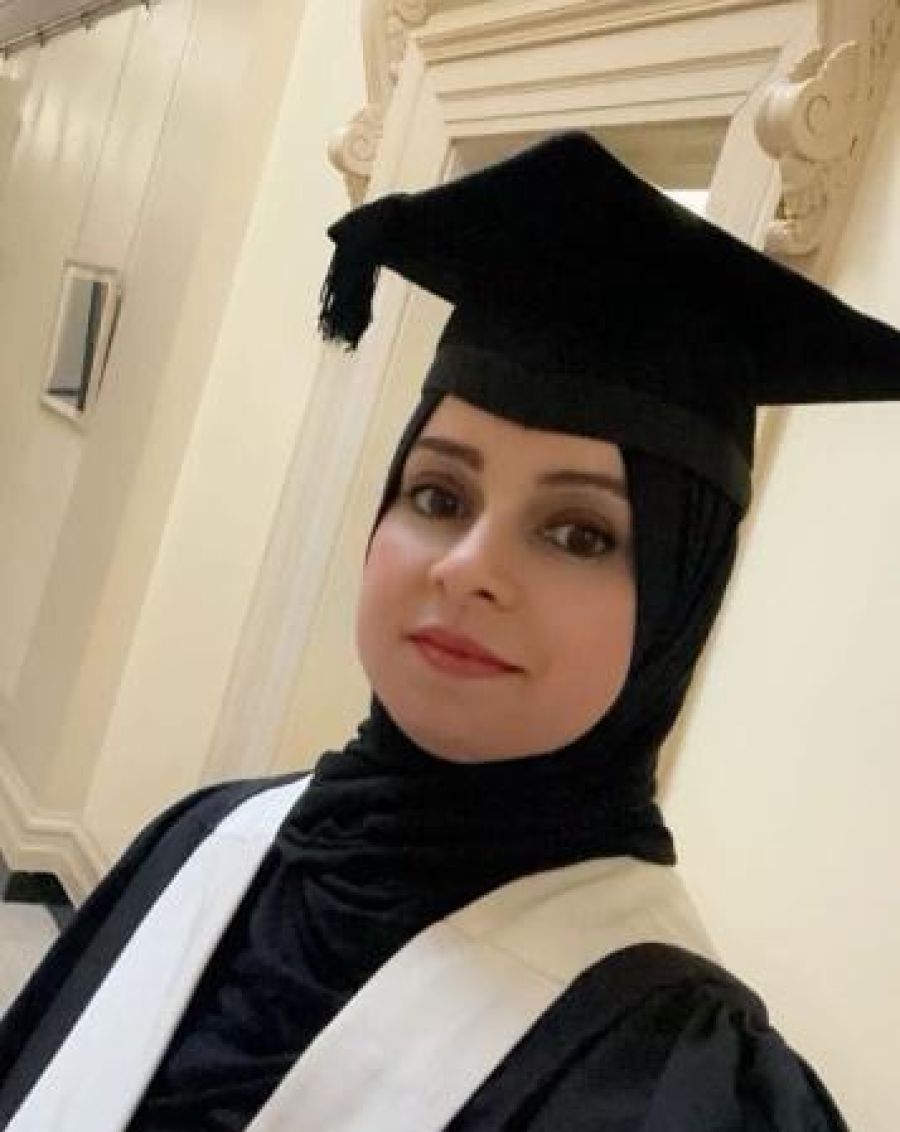
Dr Amani Al-Malti is a dedicated Family Medicine Consultant with a wealth of medical expertise. She obtained her medical degree from Tripoli University in 2007 and completed her internship in 2008. Dr Al-Malti holds a Master’s degree in Bio-Medical Basis of Disease from Sheffield Hallam University and has researched Lymphocytic Leukemic Cell in Vitro Survival at Queen Mary University. She was recognized for her work with an award at the ASH conference for abstract publication in Georgia, USA in 2012. Throughout her Journey in the UK National Health System, she has gained extensive experience in various medical fields including elderly care, stroke and rehab, accident and emergency medicine, and psychiatry. Dr Al-Malti has also worked as a medical doctor in acute medicine across different hospitals in the UK. She successfully completed a Family Medicine training program, earning the MRCGP qualification and a Certificate of Completion of Training (CCT). During her training, she actively participated in teaching undergraduate students and doctors preparing for MRCGP exams. She played a pivotal role in organizing study groups and mock tests. Dr Al-Malti contributed to the review of the radicalization training course for the UK Home Office, proposing changes that were approved after discussions with the prevention lead at Oxford Health Trust. Dr. Al-Malti currently working as a Family Medicine Consultant/General practitioner at an urgent care center in High Wycombe Hospital, Buckinghamshire area, where she also provides general practice services. She holds a GMC license to practice in the UK, is on the registered list of primary care services, and is a member of both the Royal College of General Practitioners (RCGP) and the British Medical Association (BMA). Dr Al-Malti’s compassionate nature and commitment to patient care make her a valuable asset in the medical field.
Lecture title: Strengthening Primary Health Care for Universal Health Coverage: A Comprehensive Approach to Health and Wellbeing
Primary health care (PHC) embodies the essential right of all individuals to attain the highest possible standard of health. It encompasses a comprehensive approach designed to bolster national health systems and deliver health and wellness services more directly to communities. This inclusive strategy facilitates the integration of care throughout an individual’s life, empowering individuals, families, and communities to actively manage and improve their health. At its core, PHC serves as the everyday healthcare framework provided by designated professionals. These providers typically act as the initial contact and continuous care point within the health system, coordinating various specialist services that patients may require. Often, these roles are filled by primary care physicians, general practitioners, family physicians, registered nurses, or pharmacists, depending on local practices and regulations. The scope of PHC extends beyond mere treatment; it also includes prevention, health promotion, rehabilitation, and palliation. This model encourages healthier lifestyle choices, disease prevention, and timely access to diagnostic, treatment, and recovery services. It is structured to address most common health needs and is often the first point of contact for a wide array of medical issues—from acute illnesses and injuries to managing chronic diseases like diabetes and heart disease. Evidence supports that PHC enhances healthcare accessibility, improves health outcomes, and reduces the need for hospitalization and emergency department visits. By integrating a broad spectrum of healthcare services, PHC ensures continuity of care, which is pivotal for maintaining long-term health. It plays a crucial role in establishing a resilient health system that is not only capable of addressing everyday health needs but is also equipped to handle public health emergencies. Ultimately, PHC is instrumental in achieving universal health coverage, making it a fundamental cornerstone in fostering sustainable, resilient, and equitable healthcare systems worldwide. This approach significantly contributes to the overall strengthening of healthcare infrastructure, ensuring comprehensive care accessibility for all sections of the population.

Dr. Afaf Mustafa, a seasoned biomedical specialist, currently serves as the Chief Medical Officer for the Libyan Foreign Medical Center and as the Medical Affairs Advisor for Royal Clinic, where she pioneers strategies for hospital administration and healthcare management. Her career is marked by significant leadership roles, including overseeing the medical team for the Deputy Minister of Health for General Hospitals and managing the development center for medical training and consultancy. A fervent advocate for healthcare quality, Dr. Mustafa has dedicated her career to enhancing therapeutic services within healthcare facilities. She is renowned for conducting professional workshops aimed at elevating medical service standards in hospitals. Her extensive experience also spans quality assurance in pharmaceuticals, ensuring medication effectiveness and safety, which has been integral to her roles with various pharmaceutical distribution companies. Dr. Mustafa’s academic contributions are equally notable. She has been a faculty member at the Tripoli Higher Institute of Medical Sciences, Al Zawia branch, where she also managed administrative affairs and the scientific committee. Her educational background includes a Ph.D. in Healthcare Management, which enriches her lectures and seminars, particularly on topics such as healthcare quality management, patient safety, and clinical effectiveness. Her commitment extends beyond healthcare into nutrition science, where she has actively participated in conferences focused on therapeutic nutrition and food science, emphasizing nutrition’s critical role in disease prevention and recovery. Through her multidimensional expertise, Dr. Mustafa is shaping the future of healthcare by integrating scientific rigor with compassionate care, ensuring both high-quality medical practices and patient satisfaction across the Libyan healthcare landscape.
Panel title: Integrating Quality Management Systems in Clinical Laboratories: Strategies for Effective Implementation and Sustained Success through Enhanced Hospital Management and Communication Tools
Integrating Quality Management Systems (QMS) in clinical laboratories is essential for ensuring the accuracy and reliability of diagnostic results, which are critical for patient care. This abstract outlines key strategies for the effective implementation and sustained success of QMS within clinical laboratories through enhanced hospital management and advanced communication tools. The cornerstone of a successful QMS integration involves adherence to international standards such as ISO 15189, which provides guidelines for quality and competence specific to medical laboratories. Compliance with such standards ensures standardized processes and high-quality outputs, forming the foundation of trust and safety in laboratory results that healthcare providers and patients rely on. Training and continuous professional development constitute a significant aspect of QMS. Personnel must be thoroughly trained not only on current procedures but also on ongoing updates to QMS protocols and technology uses. This continuous skill development ensures that laboratory staff can adapt to evolving technologies and methodologies, maintaining the laboratory’s compliance with standards and enhancing operational efficiency. The utilization of sophisticated Laboratory Information Management Systems (LIMS) is another critical strategy. These systems streamline data management, automate workflows, and reduce human error, thereby increasing the efficiency of data handling and communication within the lab and with external stakeholders. Effective communication channels are also paramount. Integrating QMS requires seamless communication across various levels of hospital management. Enhanced communication tools aid in the timely dissemination of critical data and operational updates, facilitating swift decision-making and reinforcing the lab’s role in comprehensive patient care. Finally, implementing regular audits and feedback mechanisms is essential for maintaining the efficacy of the QMS. These practices help identify areas for improvement and ensure continuous compliance with quality standards, thereby fostering a culture of quality and transparency within the laboratory environment. In summary, the successful integration of Quality Management Systems in clinical laboratories hinges on strict adherence to international standards, continuous staff training, advanced data management systems, effective communication, and regular quality checks. These elements work synergistically to ensure high-quality laboratory services and optimal patient outcomes.
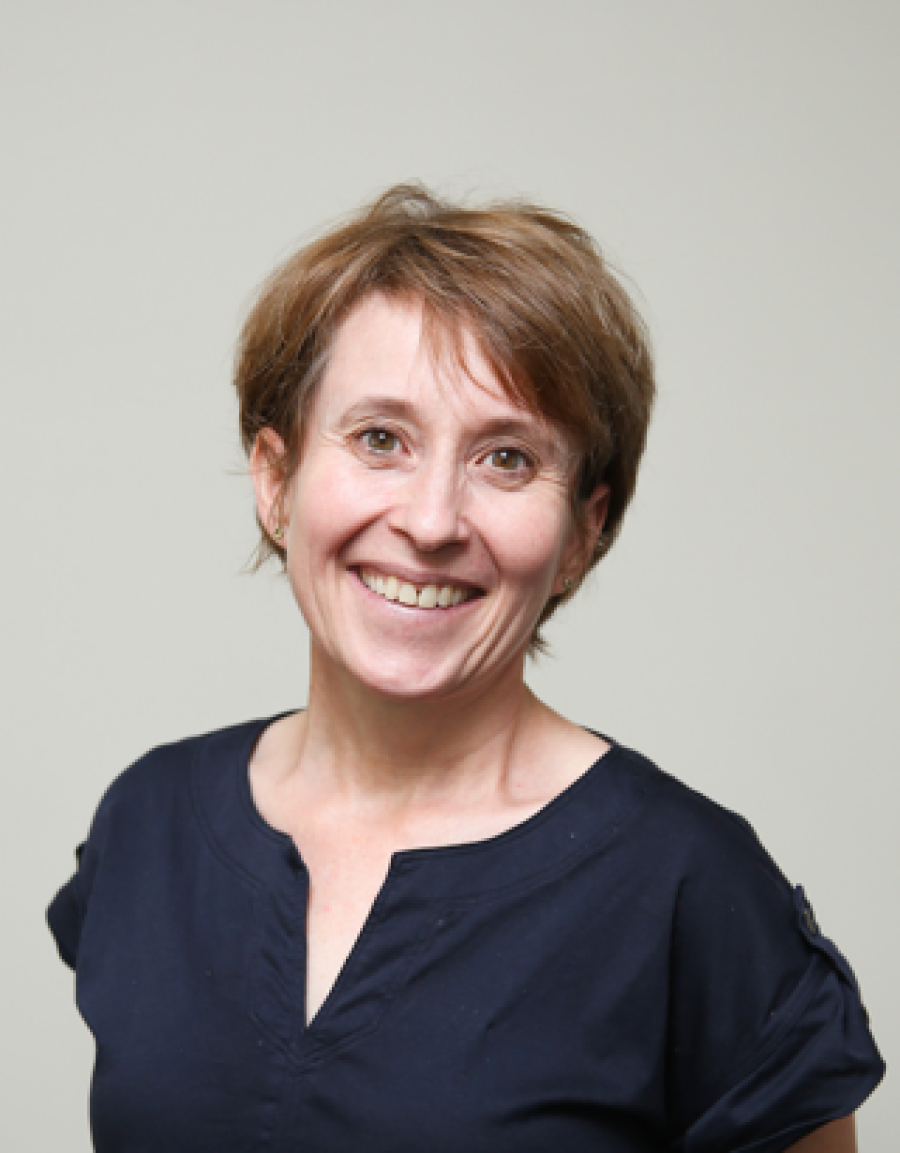
Prof. Rene Krause is a Family Physician with a master’s degree in Palliative Medicine and a postgraduate diploma in Health Professional education. She is currently the Head of the Division of Interdisciplinary Palliative Care and Medicine in the Department of family medicine, Community and Emergency Care (University of Cape Town) and convener of the postgraduate diploma in Palliative Medicine. She assists in the 6th year of lecturing and supervision during the rotation in Family Medicine. She also supervises Masters’ students in Palliative Medicine and supervises registrars of Family Medicine during their Palliative Medicine rotation. Clinically, A/Prof Krause has an honorary appointment at Groote Schuur hospital, consulting in palliative care. In Groote Schuur Hospital, she works alongside the oncology team, doing combined ward rounds and consulting in palliative care across this 900-bed hospital. Dr Krause is a board member of the African Palliative Care Association and PalPrac, the South African Palliative Medicine Practitioner’s Association. Prof. Krause’s research interest is the strengthening and integration of Palliative Care practices in hospitals. A/Prof Krause is doing a PhD in integrating palliative care in academic teaching hospitals within the Department of family medicine at UCT.
Lecture title: Integration of Palliative Care into Hospital Settings: Lessons Learned.
The integration of palliative care into hospital settings represents a pivotal aspect of comprehensive healthcare delivery, particularly in regions where dedicated palliative care services may be limited. This abstract delves into the essential lessons learned from the process of integrating palliative care into hospital settings, with a specific focus on the context of Africa countries. In many healthcare systems, palliative care has traditionally been associated with end-of-life care. However, the evolving understanding of palliative care emphasizes its role in improving the quality of life for patients facing serious illnesses, regardless of prognosis. This paradigm shift underscores the importance of integrating palliative care principles into various healthcare settings, including hospitals. Drawing from experiences worldwide and adapting them to the African context, this abstract highlights key lessons in the integration of palliative care into hospital settings. It explores strategies for raising awareness among healthcare providers, patients, and families about the benefits of palliative care, emphasizing its holistic approach to addressing physical, psychosocial, and spiritual needs. Furthermore, this topic will discusses the significance of interdisciplinary collaboration and the role of hospital administrators in driving policy changes to support palliative care integration. It also addresses challenges such as limited resources, workforce capacity, and cultural perceptions surrounding death and dying, offering insights into overcoming these barriers within the Africa healthcare landscape. Through case studies and real-world examples, this topic provides practical guidance on implementing palliative care programs within hospital settings. By embracing the integration of palliative care, hospitals can enhance patient-centered care delivery, alleviate suffering, and improve the overall quality of life for patients facing serious illnesses, thus fulfilling the fundamental principles of compassionate healthcare.

Prof. Dr. Suleyman Ozkan is a distinguished Consultant Cardiovascular Surgeon renowned for his expertise in adult and congenital heart operations. Graduating from Hacettepe University Faculty of Medicine in 1996, he embarked on a journey of professional growth, specializing in cardiovascular surgery at Baskent University Hospital. Dr. Ozkan’s contributions to cardiac surgery extend beyond clinical practice. His MD thesis focused on long-term outcomes in patients with tetralogy of Fallot, showcasing his commitment to advancing medical knowledge. He has received accolades for his research, including the Best Research Award for his work on antiendothelial cell antibodies. As an educator, Dr. Ozkan plays a vital role in training the next generation of cardiovascular surgeons. He is actively involved in teaching and mentoring medical students, residents, and fellows, employing innovative approaches to medical education. Dr. Ozkan’s professional affiliations highlight his dedication to staying abreast of the latest developments in cardiovascular surgery. He is a member of prestigious organizations such as the Turkish Thoracic and Cardiovascular Surgery Society and the International Society for Heart and Lung Transplantation. In addition to his clinical and academic endeavors, Dr. Ozkan is committed to humanitarian efforts, providing surgical expertise to patients in need globally. His exemplary career exemplifies excellence, innovation, and compassionate patient care in cardiovascular surgery.
Lecture title: Advancements and Innovations in Cardiovascular Surgery: Enhancing Patient Care and Outcomes.
This comprehensive topic delves into the latest advancements and innovative techniques in cardiovascular surgery, aiming to improve patient care and outcomes. Covering a wide array of procedures, including coronary bypass with full arterial revascularization, minimally invasive valve repair and replacement (MICS), and complex procedures like arc replacement and great vessels surgery for dissections and aneurysms, the discussion explores both open, interventional, and hybrid approaches. Furthermore, the topic addresses emergent situations, emphasizing the management of all emergencies in cardiovascular surgery and the critical role of transportation modalities like ECMO and transplant services, including the utilization of heliports for swift patient transfers. A significant focus is placed on multidisciplinary collaboration and teamwork within the department and hospital, highlighting the importance of cohesive efforts in delivering comprehensive care. Additionally, the establishment and organization of a new congenital heart surgery center are explored, emphasizing specialized teams, tailored equipment, and scientific collaboration to optimize outcomes for pediatric patients. Moreover, the topic explores the integration of theoretical courses, workshops, and practical training programs to ensure skill enhancement and proficiency in cutting-edge techniques, including the use of injectable and decellularized valves, port access valve repairs, and other innovative approaches. In summary, this topic encompasses a holistic overview of advancements and organizational strategies in cardiovascular surgery, aiming to elevate standards of care, enhance patient outcomes, and foster continuous innovation in the field.
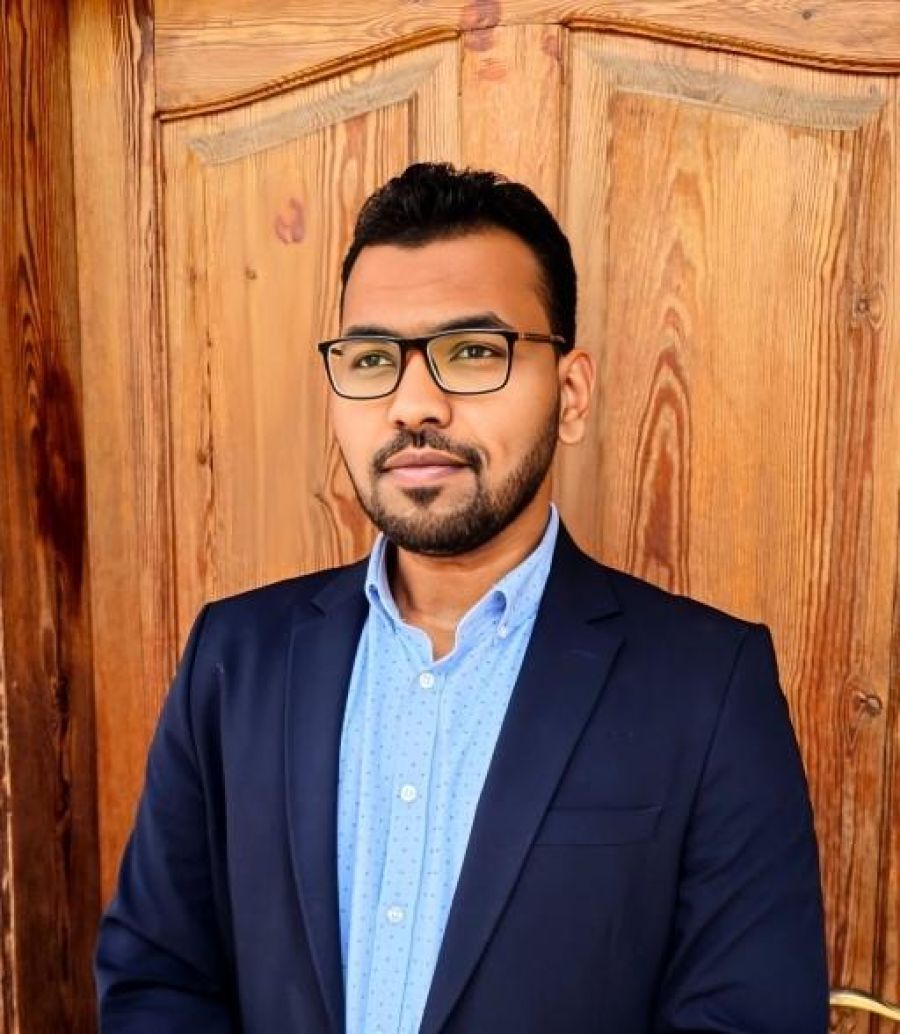
Eng. Mirza Muhammad Khalid Baig is an accomplished Quality Management Specialist in Clinical Laboratory Services, with a comprehensive background spanning over nine years at accredited healthcare facilities following JCIA, CAP, ISO 15189, and ISO 9001 standards. Based in Tripoli, Libya, Khalid has honed his expertise in enhancing laboratory operations through rigorous quality control and regulatory compliance. His professional journey includes pivotal roles such as the Pathology Supervisor & Quality Assurance Coordinator at Shaukat Khanum Memorial Hospital and later, as a Quality Assurance and Training Officer at Indus Hospital & Health Network in Karachi, Pakistan. In these capacities, Khalid has been instrumental in implementing effective quality management systems, optimizing lab operations, and leading teams towards achieving significant gains in efficiency and accuracy. His efforts have consistently aligned with international standards, significantly uplifting the quality of healthcare services. Khalid’s academic qualifications are equally impressive, featuring a Masters in Business Administration and a Masters of Science in Microbiology, which provide him with a robust theoretical and practical foundation necessary for high-level management and specialized scientific roles. He excels in navigating the complexities of laboratory management, leveraging advanced diagnostic technologies, and fostering a culture of continuous improvement and safety. Driven by a mission to elevate healthcare quality and patient outcomes, Khalid is actively seeking a managerial role that allows him to deploy his extensive skills and experiences. He remains committed to professional development, ensuring his practices reflect the cutting-edge of medical science and operational management. His leadership is characterized by strategic foresight and a deep commitment to ethical standards, making him a valuable asset to any leading healthcare institution.
Panel title: Integrating Quality Management Systems in Clinical Laboratories: Strategies for Effective Implementation and Sustained Success through Enhanced Hospital Management and Communication Tools
Integrating Quality Management Systems (QMS) in clinical laboratories is essential for ensuring the accuracy and reliability of diagnostic results, which are critical for patient care. This abstract outlines key strategies for the effective implementation and sustained success of QMS within clinical laboratories through enhanced hospital management and advanced communication tools. The cornerstone of a successful QMS integration involves adherence to international standards such as ISO 15189, which provides guidelines for quality and competence specific to medical laboratories. Compliance with such standards ensures standardized processes and high-quality outputs, forming the foundation of trust and safety in laboratory results that healthcare providers and patients rely on. Training and continuous professional development constitute a significant aspect of QMS. Personnel must be thoroughly trained not only on current procedures but also on ongoing updates to QMS protocols and technology uses. This continuous skill development ensures that laboratory staff can adapt to evolving technologies and methodologies, maintaining the laboratory’s compliance with standards and enhancing operational efficiency. The utilization of sophisticated Laboratory Information Management Systems (LIMS) is another critical strategy. These systems streamline data management, automate workflows, and reduce human error, thereby increasing the efficiency of data handling and communication within the lab and with external stakeholders. Effective communication channels are also paramount. Integrating QMS requires seamless communication across various levels of hospital management. Enhanced communication tools aid in the timely dissemination of critical data and operational updates, facilitating swift decision-making and reinforcing the lab’s role in comprehensive patient care. Finally, implementing regular audits and feedback mechanisms is essential for maintaining the efficacy of the QMS. These practices help identify areas for improvement and ensure continuous compliance with quality standards, thereby fostering a culture of quality and transparency within the laboratory environment. In summary, the successful integration of Quality Management Systems in clinical laboratories hinges on strict adherence to international standards, continuous staff training, advanced data management systems, effective communication, and regular quality checks. These elements work synergistically to ensure high-quality laboratory services and optimal patient outcomes.
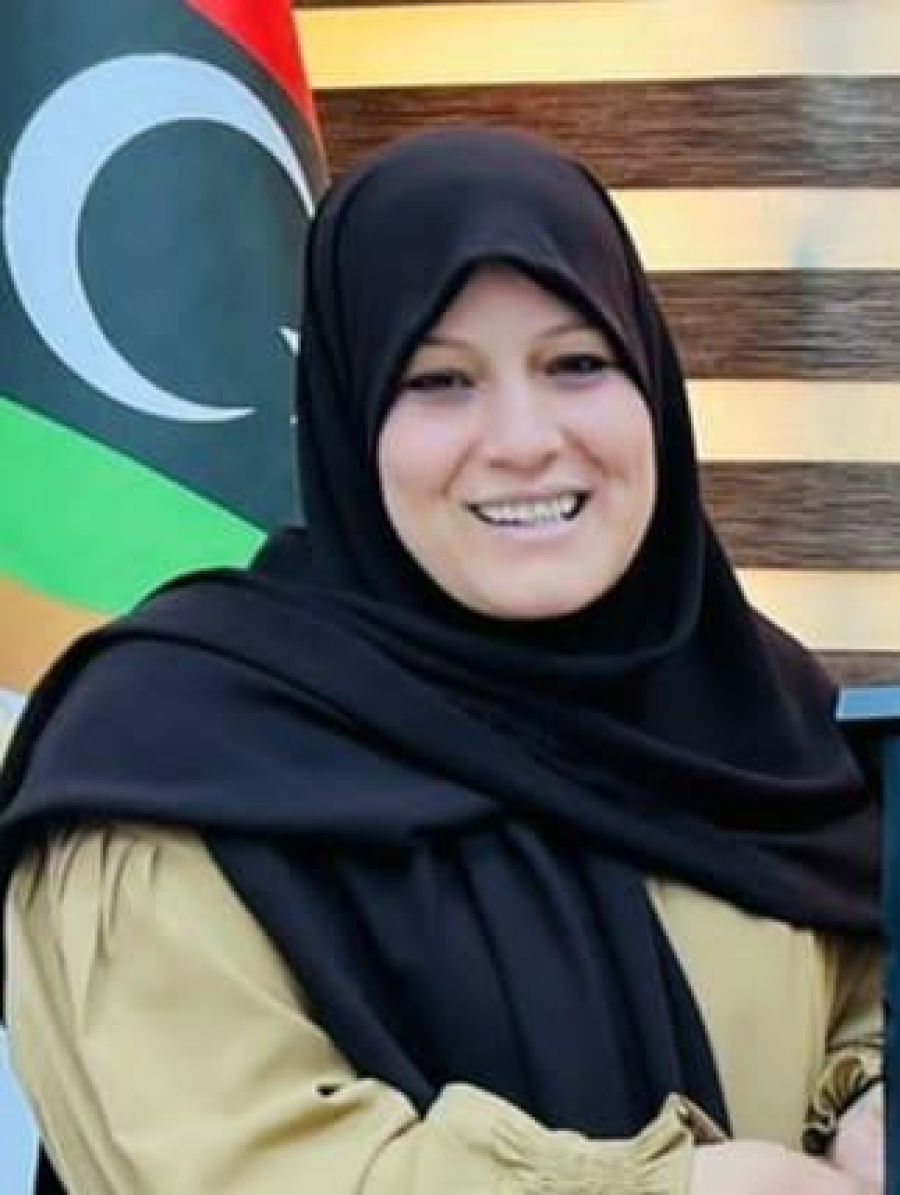
Engineer Khadija Amara Ali is a distinguished figure in the field of medical laboratory science in Libya. With a bachelor’s degree in medical laboratories from the institution formerly known as Al-Fateh University, Khadija has established herself as a prominent expert in her field. She also holds a diploma in medical laboratory technology, underscoring her comprehensive technical expertise and foundational knowledge. Currently serving as the Assistant Director of a medical laboratory, Khadija’s role is pivotal in shaping the operational standards and scientific output of the facility. Her professional acumen is further recognized through her active participation as a member of the scientific committee at the Reference Medical Laboratory in Tripoli, Libya. This position allows her to influence major decisions regarding laboratory practices and research directions. Khadija’s leadership extends to her role as Director of the Training and Continuing Education Department at the Libyan General Syndicate of Laboratory Medicine. In this capacity, she oversees the development and implementation of educational programs that enhance the competencies of laboratory professionals across the nation. Her efforts in this role are crucial in elevating the standards of laboratory medicine in Libya. Moreover, Khadija has played a critical role in challenging and shaping the protocols as a member of the technical committee responsible for crafting the first Libyan guide for medical sample management. Her contributions to this guide have been instrumental in standardizing procedures across laboratories, ensuring quality and consistency in medical sample handling and testing throughout the country. Her work not only enhances the efficiency and accuracy of medical diagnostics but also significantly impacts patient care across Libya.
Panel title: Integrating Quality Management Systems in Clinical Laboratories: Strategies for Effective Implementation and Sustained Success through Enhanced Hospital Management and Communication Tools
Integrating Quality Management Systems (QMS) in clinical laboratories is essential for ensuring the accuracy and reliability of diagnostic results, which are critical for patient care. This abstract outlines key strategies for the effective implementation and sustained success of QMS within clinical laboratories through enhanced hospital management and advanced communication tools. The cornerstone of a successful QMS integration involves adherence to international standards such as ISO 15189, which provides guidelines for quality and competence specific to medical laboratories. Compliance with such standards ensures standardized processes and high-quality outputs, forming the foundation of trust and safety in laboratory results that healthcare providers and patients rely on. Training and continuous professional development constitute a significant aspect of QMS. Personnel must be thoroughly trained not only on current procedures but also on ongoing updates to QMS protocols and technology uses. This continuous skill development ensures that laboratory staff can adapt to evolving technologies and methodologies, maintaining the laboratory’s compliance with standards and enhancing operational efficiency. The utilization of sophisticated Laboratory Information Management Systems (LIMS) is another critical strategy. These systems streamline data management, automate workflows, and reduce human error, thereby increasing the efficiency of data handling and communication within the lab and with external stakeholders. Effective communication channels are also paramount. Integrating QMS requires seamless communication across various levels of hospital management. Enhanced communication tools aid in the timely dissemination of critical data and operational updates, facilitating swift decision-making and reinforcing the lab’s role in comprehensive patient care. Finally, implementing regular audits and feedback mechanisms is essential for maintaining the efficacy of the QMS. These practices help identify areas for improvement and ensure continuous compliance with quality standards, thereby fostering a culture of quality and transparency within the laboratory environment. In summary, the successful integration of Quality Management Systems in clinical laboratories hinges on strict adherence to international standards, continuous staff training, advanced data management systems, effective communication, and regular quality checks. These elements work synergistically to ensure high-quality laboratory services and optimal patient outcomes.
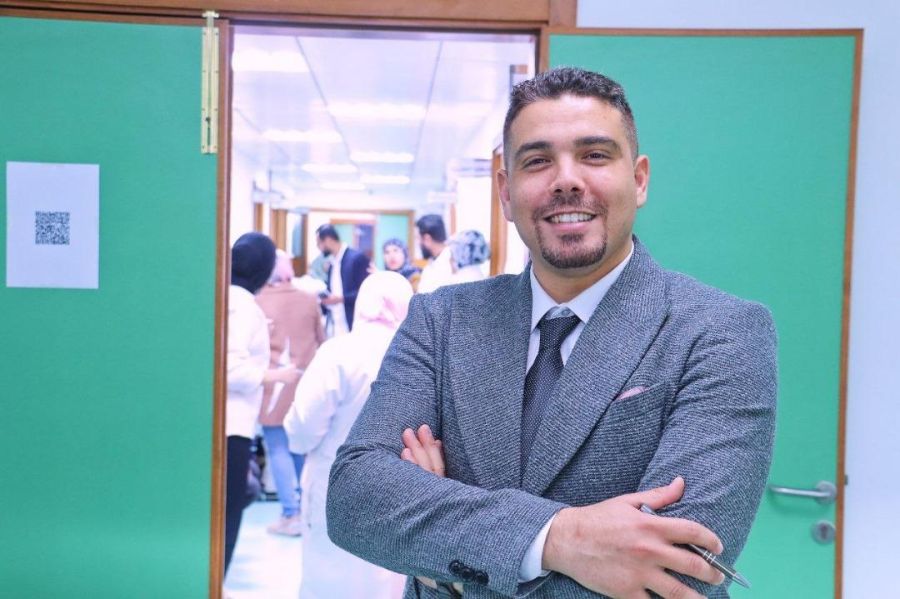
Dr. Majdi Shuhomy, MD, MRCS, FICO, is a distinguished ophthalmologist renowned for his exceptional contributions to the field of eye surgery. Holding a Doctorate in Medicine and Surgery (MD) from the Libyan Board of Ophthalmology, Dr. Shuhomy has augmented his credentials with prestigious certifications and memberships. He is a proud member of the Royal College of Surgeons in Glasgow, where he attained his Membership in Ophthalmology (MRCS), showcasing his commitment to excellence in surgical practice. Additionally, Dr. Shuhomy has furthered his expertise through a Fellowship with the International Council of Ophthalmology (FICO), underscoring his dedication to advancing his skills and knowledge in the field. As an esteemed member of the European Society of Cataract and Refractive Surgeries (ESCRS), Dr. Shuhomy remains at the forefront of cutting-edge advancements in ophthalmic surgery, continuously striving to provide the highest standard of care to his patients. Beyond his clinical practice, Dr. Shuhomy is deeply passionate about education and is actively involved as an Assistant Professor in the Department of Ophthalmology at the Benghazi University Faculty of Medicine. His commitment to teaching and mentorship ensures the next generation of ophthalmologists is equipped with the skills and knowledge to excel in their practice. With his profound expertise, unwavering dedication to patient care, and commitment to advancing the field of ophthalmology through education and innovation, Dr. Majdi Shuhomy stands as a beacon of excellence in eye surgery, positively impacting the lives of countless patients and shaping the future of the profession.
Lecture title: “Ocular Diabetic Complications: Causes, Consequences, and Prevention Strategies”
Abstract:
Diabetes mellitus is a significant health concern that poses a severe threat to ocular health, leading to various complications ranging from cataracts to diabetic retinopathy. In this lecture, we will present key findings from an extensive analysis conducted on diabetic patients, shedding light on the causes, consequences, and prevention strategies for ocular diabetic complications. One of the primary objectives of this lecture is to highlight the prevalence and pathophysiology of different diabetic ocular conditions. Our investigation has revealed a notable correlation between longer disease duration and an increased incidence of diabetic retinopathy. We will delve into the distribution and underlying mechanisms of conditions such as cataracts, glaucoma, and various stages of diabetic retinopathy, including macular edema. Furthermore, this lecture will emphasize the urgent need for tailored interventions and regular screenings to facilitate early detection and effective management of ocular complications in diabetic patients. By implementing effective prevention strategies, such as optimizing glycemic control, regular screening, and promoting lifestyle modifications, we aim to mitigate the burden of visual impairments and enhance the overall quality of life for diabetic patients. Join us for an insightful discussion that delves into the complexities of ocular diabetic complications, offering actionable insights for ophthalmologists and healthcare professionals. Together, let us navigate the path toward improved ocular health outcomes in diabetic populations
Workshop title “Investigation Retinal Course,” focused on Diagnostic Biomarkers in OCT and OCT Angiography.
The “Investigation Retinal Course” is designed to unlock the secrets of retinal diagnostics, offering participants a comprehensive journey from mastering the basics to attaining expert proficiency in Optical Coherence Tomography (OCT) and OCT Angiography. This unique opportunity allows attendees to gain hands-on experience in interpreting diagnostic biomarkers and navigating retinal imaging data with confidence.
Our curriculum is carefully crafted to cover a wide range of topics, including OCT and OCT biomarkers in various retinal diseases such as Diabetic Retinopathy, Uveitis, ARMD, and Vascular Occlusions. Through interactive trsessions and practical exercises, participants will elevate their clinical practice with cutting-edge knowledge and skills tailored to address diverse retinal pathologies.
Key highlights of the workshop include:
Comprehensive coverage of OCT and OCT angiography techniques
Interpretation of diagnostic biomarkers in retinal diseases
Practical sessions for hands-on experience and skill development
In-depth discussions on the latest advancements in retinal imaging technology
By enrolling in the “Investigation Retinal Course,” participants will embark on a transformative journey towards becoming retinal imaging experts, equipped with the expertise needed to make informed clinical decisions and provide optimal patient care.
We would be honored to have you join us for this enlightening workshop. Please let us know if you have any questions or require further information. Your presence and insights would greatly enrich the learning experience for all participants.
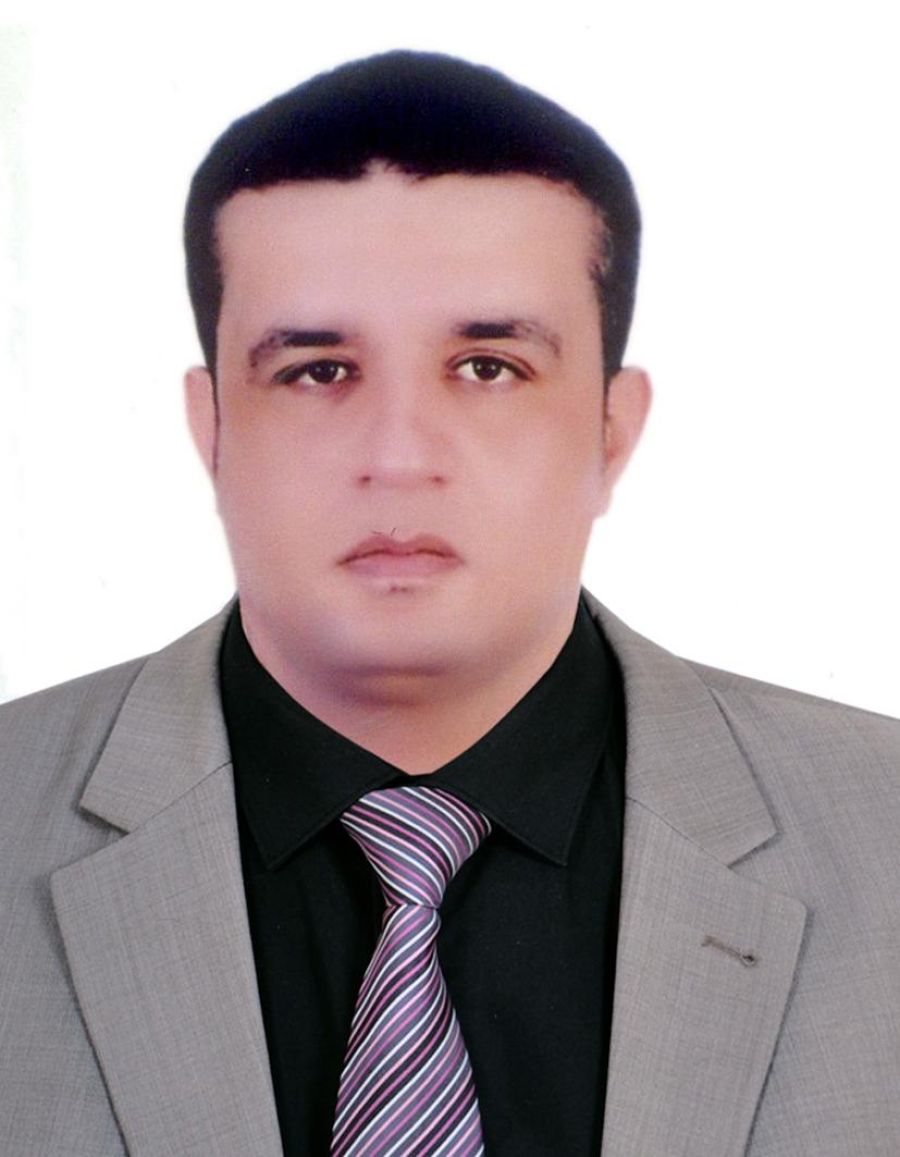
Dr. Jamal Abdalla Almesrati, an eminent dermatologist and venereologist, holds an MD from the Libyan Board and has completed the initial part of the Arab Board in Dermatology and Venereology. He graduated with a Bachelor of Medicine and Surgery from the University of Benghazi. Currently serving as a faculty member at Misurata University’s Faculty of Medicine, Dr. Almesrati is also an integral trainer at Misurata Medical Center for both the Libyan and Arab Boards. His contributions extend to his role on the dermatology and venereology board at the Libyan Board of Medical Specialties, influencing future dermatological practices. Dr. Almesrati’s pioneering efforts include founding the Leishmania and Leprosy clinics at the National Center for Disease Control in Misurata. His clinical expertise continues to benefit the Misurata Medical Center, where he practices, following significant experience at the Tripoli Medical Center. An active participant in the Libyan Society of Dermatology and Aesthetics, Dr. Almesrati is at the forefront of dermatological research. He regularly presents at major conferences, chairs sessions, and delivers postgraduate lectures. Additionally, he has significantly impacted medical education by serving as an external examiner for clinical exams across Libyan medical faculties. Through his commitment to research, education, and clinical practice, Dr. Almesrati sets high standards in dermatological care, making substantial contributions to the field both locally and regionally.
Lecture title: Psoriasis: Genetic and Environmental Factors, Clinical Features, and Advanced Therapeutic Strategies
Psoriasis is a chronic immune-mediated disorder resulting from a combination of genetic predisposition and environmental triggers such as trauma, infections, medications, and psychological stress. Its pathophysiology involves various T-cell classes interacting with dendritic cells and innate immune cells like neutrophils and keratinocytes. Genetic studies have highlighted the role of the innate and adaptive immune systems and altered epidermal differentiation. The most prevalent form of psoriasis is characterized by sharply defined, scaly erythematous plaques, occasionally accompanied by sterile pustules. Psoriasis commonly affects the scalp, elbows, knees, nails, hands, feet, and trunk, including the intergluteal fold. Histological examination typically reveals acanthosis with elongated rete ridges, hypogranulosis, hyper- and parakeratosis, dilated blood vessels, and a perivascular lymphocyte infiltrate with neutrophils, either isolated or in aggregates in the epidermis. Psoriatic arthritis is the main systemic manifestation and often presents as asymmetric oligoarthritis of the small joints in the hands and feet. Other comorbidities include depression, metabolic syndrome, and cardiovascular disease in moderate to severe cases. Topical therapy is used for limited disease, while phototherapy, methotrexate, cyclosporine, and targeted immunomodulators (biologics) that focus on key immune cells and cytokines can lead to significant clinical improvements in moderate to severe psoriasis.
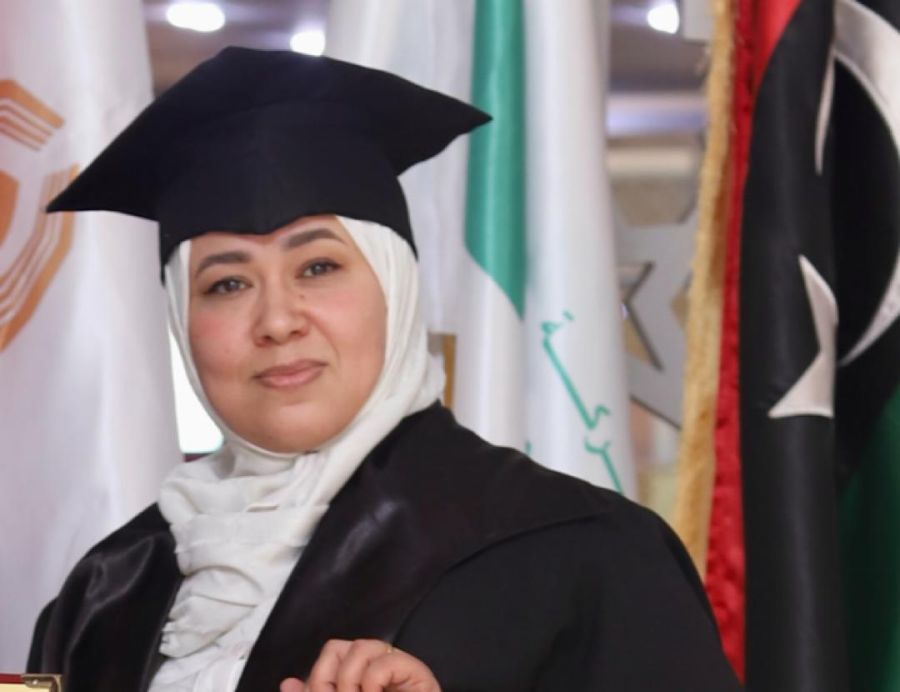
Dr. Sana Elmabrok Khalifa Abdallh, specializing in diabetes and endocrinology at the Diabetic and Endocrinology Hospital in Tripoli, Libya, Diploma in diabetes 2021. Dr. Sana، is a highly skilled and dedicated healthcare professional with a wealth of experience in diabetes management and endocrinology. Sana has established herself as a prominent figure in the medical community through her extensive education, practical training, and continuous professional development. Sana completed her secondary education in 2001 before pursuing her passion for medicine at Tripoli University, where she graduated from the Faculty of Medicine in 2010-2011. Since then, she has undergone various specialized training programs and obtained numerous certifications to enhance her clinical expertise. These include workshops and courses in practical diabetes management, basic life support, clinical nutrition, and mechanical ventilation, among others. Additionally, Sana obtained a Diploma in Nutrition in 2018, further expanding her knowledge in the field of nutrition and its role in healthcare. With over a decade of experience as a senior physician at the Diabetes and Endocrine Center in Tripoli, Sana has demonstrated exceptional proficiency in managing complex cases and providing comprehensive care to patients with diabetes and other endocrine disorders. In addition to her clinical role, she has also served as an employee in the operations company for health insurance, gaining valuable insights into healthcare administration and quality assurance practices. Throughout her career, Sana has remained committed to continuous learning and professional growth, actively participating in various conferences, symposiums, and workshops related to diabetes management and endocrinology. Her attendance at national and international events, such as the Diabetes Symposium, DAR Diabetes and Ramadan MENA, and the International Cardiometabolic Forum, reflects her dedication to staying abreast of the latest advancements and best practices in her field. Beyond her professional endeavors, Sana enjoys a range of hobbies and activities, including swimming, walking, traveling, shopping, and cooking. Her diverse interests complement her role as a healthcare professional, allowing her to maintain a balanced lifestyle and holistic approach to well-being. With her exceptional clinical skills, extensive experience, and unwavering dedication to patient care, Dr. Sana Elmabrok Khalifa Abdallh continues to make significant contributions to the healthcare sector in Libya and beyond.
Workshop title: Insulin Pump and Improved of Quality of Life
The workshop titled “Insulin Pump and Improved Quality of Life” aims to equip doctors with comprehensive knowledge and practical skills related to the management of diabetes using insulin pump therapy. This workshop goes beyond traditional diabetes management techniques and focuses on the advanced technology and methodologies associated with insulin pump therapy, which has been shown to significantly enhance the quality of life for patients with diabetes. Participants will gain a deep understanding of the principles behind insulin pump therapy, including its mechanisms of action, indications, and contraindications. Through interactive sessions and hands-on training, doctors will learn how to initiate, adjust, and optimize insulin pump therapy for individual patients, taking into account their unique medical history, lifestyle, and treatment goals. Moreover, the workshop will delve into the latest advancements in insulin pump technology and software, empowering doctors to stay updated with the rapidly evolving landscape of diabetes care. By the end of the workshop, participants will be proficient in utilizing insulin pumps as a tool for achieving glycemic control, preventing complications, and ultimately improving the overall quality of life for their patients with diabetes.
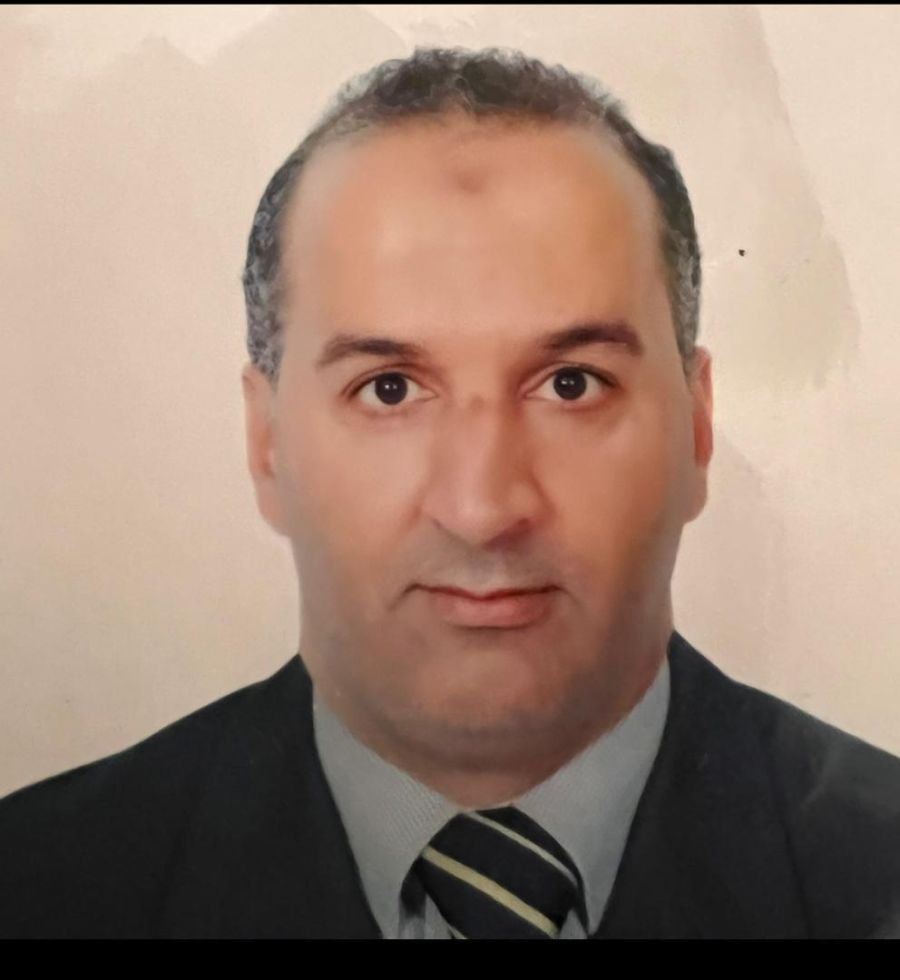
Dr. Naser Ali Sayeh, esteemed Dean and General Manager of the Medical Reference Laboratory in Tripoli, Libya, is a prominent figure in the field of medicinal chemistry. With a PhD from the United States, Dr. Sayeh brings over 28 years of extensive experience, primarily focusing on medical laboratory procedures and blood bank management. His expertise in these areas has significantly elevated the quality of healthcare services provided to the community. Before his current role, Dr. Sayeh spent a decade as a Medical Laboratory Scientist (MLS) across various healthcare institutions, where he developed a robust skill set that marries scientific knowledge with practical application in healthcare settings. His leadership at the Medical Reference Laboratory is marked by innovative management strategies and a commitment to excellence, which have notably improved laboratory operations and patient care standards. As a member of the American Society of Clinical Pathology (ASCP), Dr. Sayeh continually integrates the latest advancements in clinical pathology into his practice, ensuring that his laboratory remains at the cutting edge of technological and procedural developments. His professional journey reflects a dedicated effort to enhance diagnostic accuracy and efficacy, profoundly impacting patient outcomes and public health in Libya.
Lecture title: Sample Collection, Handing and Processing Manual
The manual on “Sample Collection, Handling, and Processing” provides comprehensive guidelines and protocols essential for ensuring the integrity and accuracy of biological samples in clinical and research settings. This document serves as a vital resource for healthcare professionals, laboratory technicians, and researchers, detailing the procedures for effective sample management from collection through analysis. Purpose: The primary objective of this manual is to standardize the processes involved in the collection, handling, and processing of various types of biological samples. By adhering to these standardized procedures, facilities can minimize the risks of sample contamination or degradation, thereby enhancing the reliability of diagnostic results. Scope: The manual covers a broad spectrum of sample types, including blood, urine, tissues, and other bodily fluids. It outlines specific techniques for each type of sample, considering factors such as the sample’s nature, the required volume, and the intended analysis or testing. It also addresses the appropriate tools and containers for collection, labeling requirements, and transportation conditions. Methodology: Detailed step-by-step instructions are provided for each procedure, accompanied by illustrations where necessary. The manual discusses the appropriate use of anticoagulants, preservatives, and stabilizers, and it specifies the optimal temperature and environmental conditions for the storage and transport of samples. Guidelines for documentation and record-keeping are also elaborated to ensure traceability and compliance with regulatory standards. Quality Control: A significant emphasis is placed on quality control measures throughout the manual. These include protocols for the regular calibration of equipment, the validation of collection methods, and the continuous training of personnel involved in sample management. Impact: Implementing the practices outlined in this manual is expected to lead to improved sample quality, which is crucial for accurate diagnostics and effective patient care. Additionally, it will aid in the reproducibility of research findings and enhance the overall efficiency of laboratory operations. Conclusion: This manual is an indispensable tool for any facility involved in the collection and analysis of biological samples. By standardizing sample management procedures, it not only ensures the accuracy and reliability of diagnostic and research data but also supports the overall advancement of medical science and patient care.
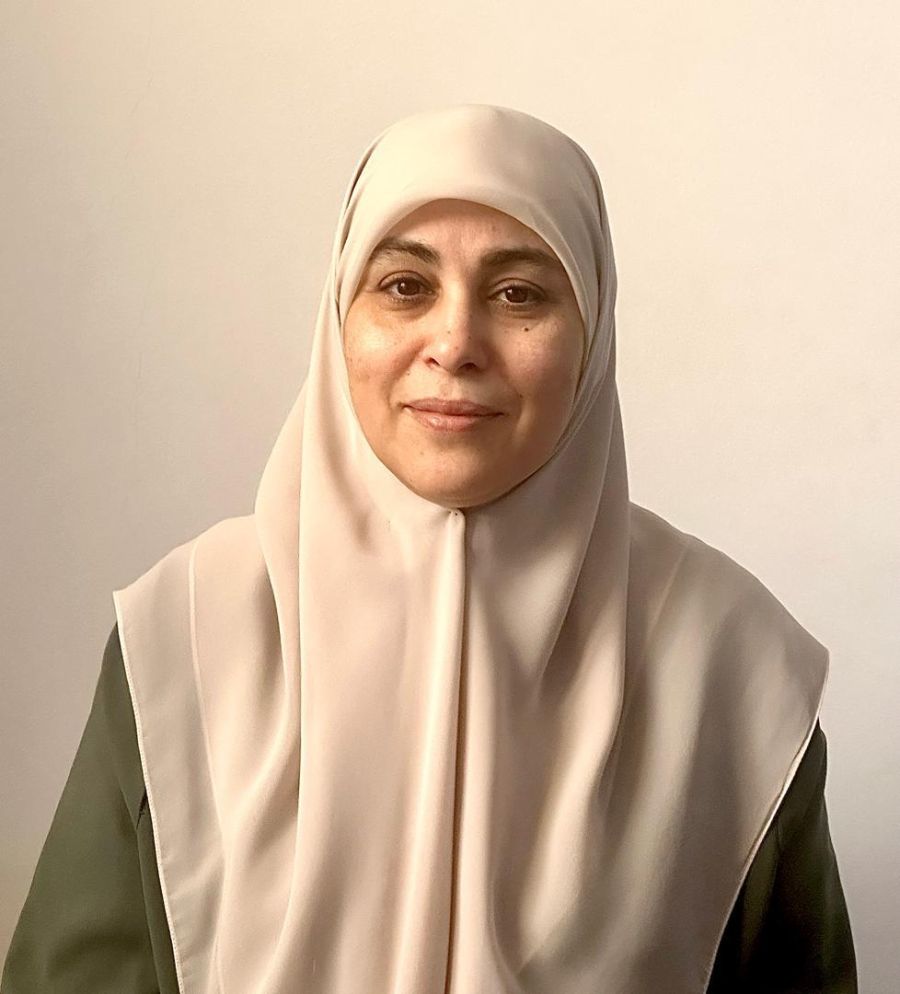
Dr. Nagat Al Sadek Alkmishi, a seasoned expert in medical laboratory sciences, has dedicated over three decades to advancing the field of clinical biochemistry and medical laboratory technology. Graduating with a Bachelor of Science from Tripoli University in 1993, Dr. Alkmishi furthered her education in the United Kingdom, achieving a second BSc in 2006, a Master’s degree in 2013, and a distinguished membership from the Royal College of Pathologists (Clinical Biochemistry) in 2015. Her professional journey is marked by significant contributions to the medical community, including the development of national guidelines for blood sample handling and the establishment of robust quality management systems within Libyan medical laboratories. Dr. Alkmishi’s commitment to quality improvement is evident in her role as a quality consultant at the Libyan Accreditation Center and her extensive involvement in various scientific committees, including the Medical Manpower Development Center and the National Center for Disease Control. As an educator, she has profoundly impacted medical training and development, having held long-term teaching positions at the University of Tripoli and various higher institutes. She has also played a crucial role in curriculum development for medical laboratory technology and biosafety, underscoring her commitment to nurturing the next generation of healthcare professionals. In recognition of her expertise, Dr. Alkmishi has served as a medical consultant within the Human Resources Department of the Ministry of Health and as a scientific supervisor for numerous diploma programs focused on laboratory technology and quality management. Her extensive experience and dedication to her field make her a pivotal figure in Libya’s healthcare sector, pushing forward the boundaries of medical science and laboratory excellence.
Panel title: Integrating Quality Management Systems in Clinical Laboratories: Strategies for Effective Implementation and Sustained Success through Enhanced Hospital Management and Communication Tools
Integrating Quality Management Systems (QMS) in clinical laboratories is essential for ensuring the accuracy and reliability of diagnostic results, which are critical for patient care. This abstract outlines key strategies for the effective implementation and sustained success of QMS within clinical laboratories through enhanced hospital management and advanced communication tools. The cornerstone of a successful QMS integration involves adherence to international standards such as ISO 15189, which provides guidelines for quality and competence specific to medical laboratories. Compliance with such standards ensures standardized processes and high-quality outputs, forming the foundation of trust and safety in laboratory results that healthcare providers and patients rely on. Training and continuous professional development constitute a significant aspect of QMS. Personnel must be thoroughly trained not only on current procedures but also on ongoing updates to QMS protocols and technology uses. This continuous skill development ensures that laboratory staff can adapt to evolving technologies and methodologies, maintaining the laboratory’s compliance with standards and enhancing operational efficiency. The utilization of sophisticated Laboratory Information Management Systems (LIMS) is another critical strategy. These systems streamline data management, automate workflows, and reduce human error, thereby increasing the efficiency of data handling and communication within the lab and with external stakeholders. Effective communication channels are also paramount. Integrating QMS requires seamless communication across various levels of hospital management. Enhanced communication tools aid in the timely dissemination of critical data and operational updates, facilitating swift decision-making and reinforcing the lab’s role in comprehensive patient care. Finally, implementing regular audits and feedback mechanisms is essential for maintaining the efficacy of the QMS. These practices help identify areas for improvement and ensure continuous compliance with quality standards, thereby fostering a culture of quality and transparency within the laboratory environment. In summary, the successful integration of Quality Management Systems in clinical laboratories hinges on strict adherence to international standards, continuous staff training, advanced data management systems, effective communication, and regular quality checks. These elements work synergistically to ensure high-quality laboratory services and optimal patient outcomes.
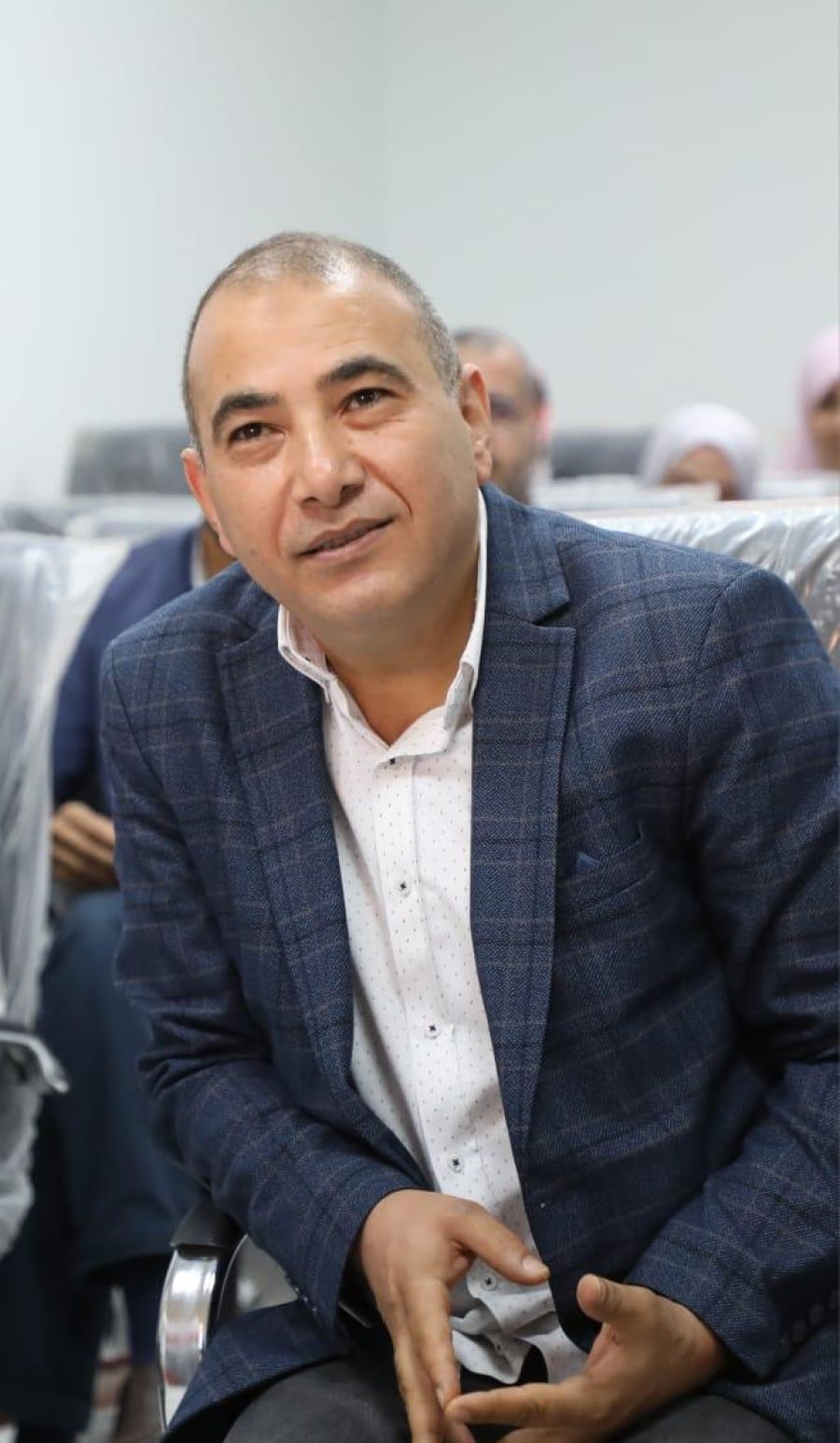
Dr. Mohideen Ahmed Ghriani is an esteemed respiratory and general medicine consultant with extensive experience spanning over two decades; Dr. Ghriani has built a distinguished career marked by significant contributions to medical practice, education, and public health. He obtained his MBChB from Tripoli University, Faculty of Medicine, in 1999, followed by an MSc in Respiratory Medicine from Imperial College London in 2006. In 2012, he earned his MRCP (UK) from the Royal College of Physicians, UK. Currently, Dr. Ghriani serves as the General Manager of Abu Settah Respiratory Specialized Centre, a position he has held since December 2023. He is also a consultant in Respiratory and General Medicine at Tripoli University Hospital, where he has been serving since August 2018. In addition, he has been a lecturer at the Faculty of Medicine, University of Tripoli, since February 2014, where he has contributed to shaping the future of medical professionals. Dr. Ghriani is a founding member of the Libyan Thoracic Society since 2019 and an influential member of the Tajoura Municipal Council, providing expert consultations on health matters. He has been a member of the Respiratory Consultants Sub-committee for the National Higher Consultancy Committee for the Corona Pandemic in Libya from 2020 to 2021. He also headed the Al 3youn Isolation Centre for COVID-19 patients from 2020 to 2022. Dr. Ghriani has served as an adviser to the Emergency Department of the Libyan Ministry of Health since 2021. His commitment to humanitarian efforts is demonstrated by his volunteer work with the United Nations High Commissioner for Refugees during the Libyan war in 2011. Residing in Tajoura, Tripoli, Dr. Ghriani balances his professional life with his role as a dedicated family man, married with five children. His contributions to respiratory medicine, public health, and medical education continue to make a significant impact on the healthcare landscape in Libya.
Panel title: Under LTS and Abusitta chest center
The Libyan Thoracic Society (LTS) and the Abusitta Chest Center are pivotal institutions in advancing respiratory care in Libya. The LTS, established to foster collaboration and knowledge sharing among respiratory healthcare professionals, plays a crucial role in setting standards, promoting research, and advocating for improved respiratory health services across the country. The Abusitta Chest Center, a specialized respiratory care facility, complements the efforts of LTS by providing comprehensive diagnostic, therapeutic, and rehabilitative services for patients with various respiratory conditions. The Abusitta Chest Center is equipped with state-of-the-art technology and staffed by highly trained professionals dedicated to the diagnosis and management of respiratory diseases. Services at the center include advanced pulmonary function testing, bronchoscopy, sleep studies, and critical care for patients with severe respiratory conditions. The center’s multidisciplinary approach ensures that patients receive holistic care, addressing both the physical and psychological aspects of respiratory illnesses. A key focus of the Abusitta Chest Center is the management of chronic respiratory diseases such as asthma, chronic obstructive pulmonary disease (COPD), and tuberculosis. Through patient education, lifestyle modification programs, and personalized treatment plans, the center aims to improve patient outcomes and enhance their quality of life. Additionally, the center is actively involved in community outreach programs to raise awareness about respiratory health and preventive measures. The collaboration between LTS and the Abusitta Chest Center has significantly contributed to the advancement of respiratory care in Libya. By hosting national conferences, workshops, and continuous medical education programs, they provide platforms for healthcare professionals to stay updated with the latest advancements in respiratory medicine. These initiatives also facilitate the exchange of best practices and foster a culture of continuous improvement in respiratory care. In conclusion, the efforts of the Libyan Thoracic Society and the Abusitta Chest Center are instrumental in elevating the standards of respiratory healthcare in Libya. Through their comprehensive services, educational programs, and community outreach initiatives, they are making significant strides in addressing the respiratory health challenges faced by the Libyan population.
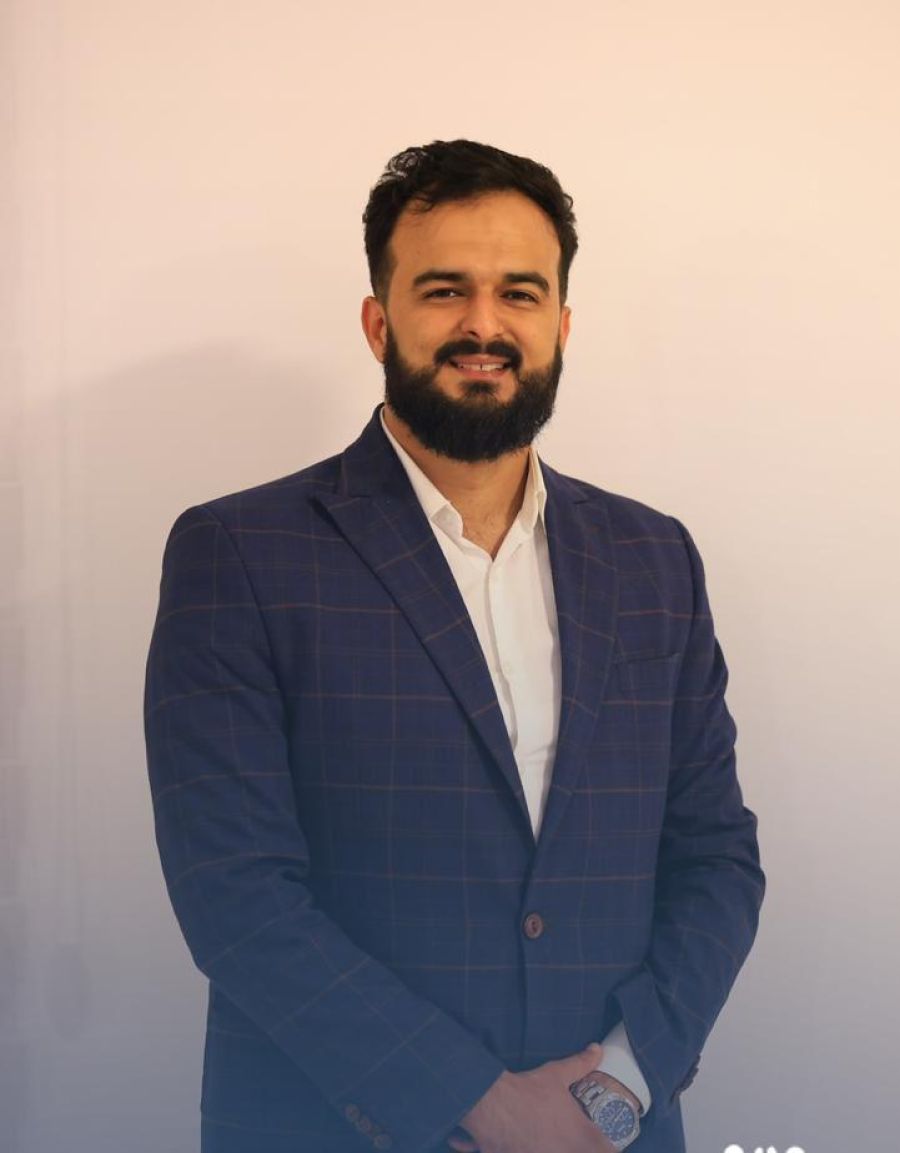
Dr. Mohammad Jumaa Quraysh, a distinguished graduate of Tripoli University in 2018/2019, stands at the forefront of endodontic education and practice. In 2020, he enhanced his expertise as a visiting physician at both Ain Shams University and Al-Azhar University. His academic contributions continue as an esteemed instructor in endodontics at Future University. With a global reputation for excellence, Dr. Quraysh has delivered keynote lectures at prestigious international conferences such as IDEX Istanbul and IDEX Egypt. In Algeria, he has shared his insights at the International Root Canal Treatment Conference, the First International Conference in Ouargla, and the MDEX Conference and Exhibition in Oran, while also leaving an indelible mark at the Dentex Conference in Algiers and the First International Conference in Sohag, Egypt, as well as the Alexandria Dental Association Conference. As a visionary educator, he has pioneered the EAZY ENDO DAM course and the ENDO ADVANCED DOSE course, reaching professionals throughout Libya. His passion for fostering clinical excellence is further exemplified by his leadership of the Share Knowledge program, which has bolstered the capabilities of medical staff in public clinics across Tripoli. Recognized as an international thought leader, Dr. Quraysh continues to elevate the field of endodontics through his unwavering commitment to education, mentorship, and progressive clinical practice, shaping the next generation of dental professionals while advancing global standards in endodontic care.
Lecture title: Managing your daily endodontic practice
This section provides a comprehensive exploration of managing a daily endodontic practice, addressing both clinical excellence and effective practice management strategies. It begins by emphasizing the importance of streamlined workflows that balance patient care with efficient use of time and resources. By incorporating strategic scheduling practices, practitioners can optimize patient flow, minimize wait times, and maximize productivity throughout the day. The clinical aspect focuses on maintaining the highest standards in endodontic care through evidence-based treatment protocols and the proper use of advanced technology. This includes efficient diagnosis, comprehensive treatment planning, and skillful execution of procedures like root canal therapy. Leveraging modern tools, such as digital imaging systems and rotary instruments, enhances accuracy and minimizes patient discomfort. Practice management is explored in terms of team collaboration and clear communication between staff members. By fostering a well-coordinated team, practitioners can ensure that administrative tasks like patient scheduling, billing, and record-keeping are handled smoothly. Staff training and empowerment are highlighted as key elements in maintaining a cohesive, high-performing team. Patient engagement is crucial, so strategies for building trust and improving communication are emphasized. By educating patients about their conditions and treatment options, practitioners can foster a positive relationship that leads to better compliance and overall satisfaction. Personalized care and follow-up also play a role in strengthening this bond, encouraging patients to return for regular visits. Finally, the section addresses the importance of maintaining a practice that adapts to evolving industry trends. This includes continual professional development, staying updated with emerging technologies, and refining business strategies to ensure financial sustainability. Overall, this section serves as a guide to achieving a well-rounded, successful endodontic practice. By balancing clinical proficiency with effective management, practitioners can provide high-quality care while ensuring the smooth operation of their practice daily.
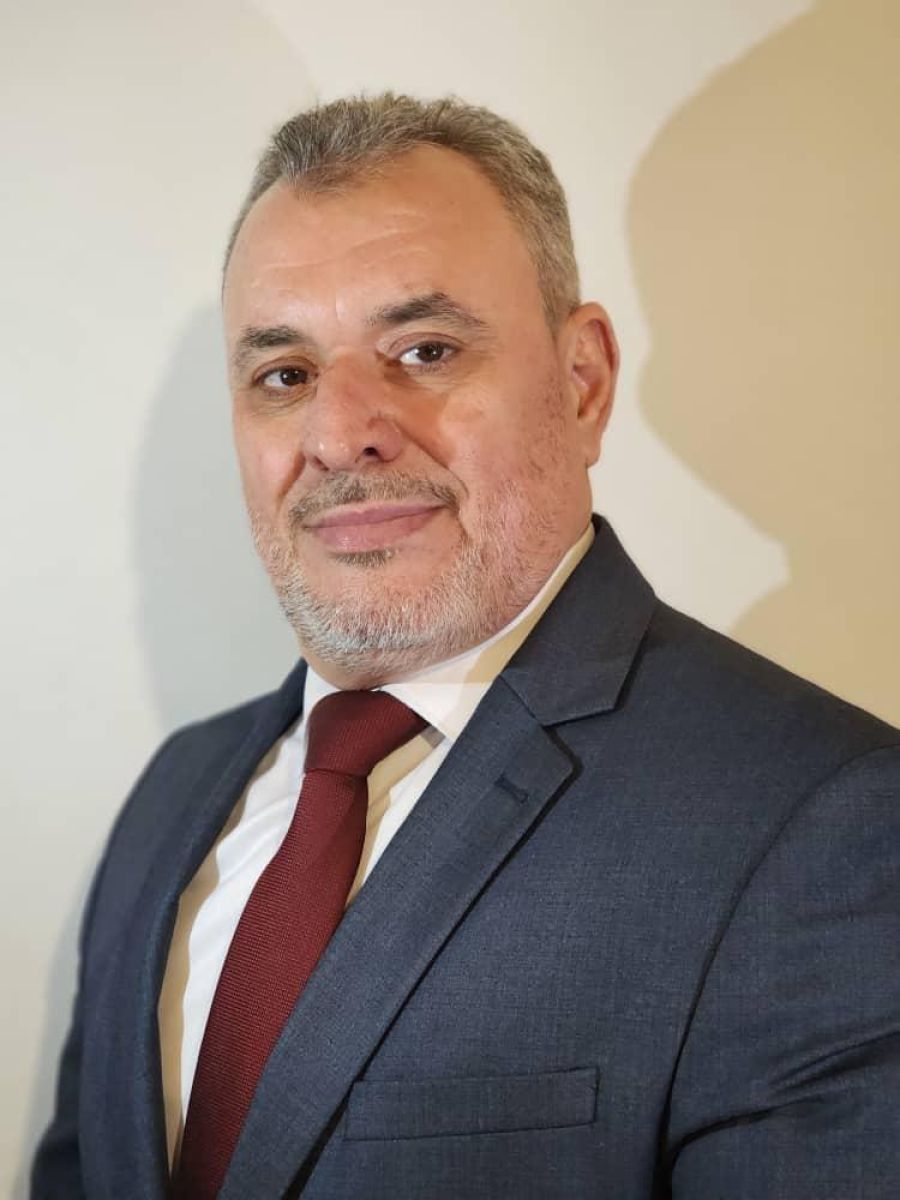
Dr. Mohamed Ehmaid, MD, PhD, FESC, is an esteemed cardiologist with a distinguished career in medicine, currently serving as an Associate Professor of Medicine at Tripoli Medical. Specializing in heart failure diagnosis, management, and prevention, he has demonstrated exceptional expertise in interventional cardiology, particularly in complex interventional lesions. Beginning his professional journey in 2000 at Tripoli Medical Centre, Dr. Ehmaid quickly ascended to the role of department director from 2010 to 2019. During his tenure, he mentored numerous postgraduate fellows and supervised their research endeavors. His contributions to cardiology encompass comprehensive cardiac evaluations, personalized treatment plans, and proficient performance of cardiac procedures like echocardiography, stress testing, and percutaneous coronary interventions (PCI). Dr. Ehmaid’s commitment to advancing medical knowledge is evident through his active participation in clinical research and academic publications. He is a member of esteemed professional associations such as the Libyan Cardiac Society, European Society of Cardiology, and American Heart Association, showcasing his dedication to staying abreast of the latest developments in cardiology.
Known for his clinical acumen, compassionate approach, and excellent communication skills, Dr. Mohamed Ehmaid is highly regarded in the medical community. His unwavering commitment to exceptional patient care and valuable contributions to cardiology solidify his position as a respected figure in the field.
Title: Panel: Stent Save a Life Initiative (Libyan Cardiac Society)
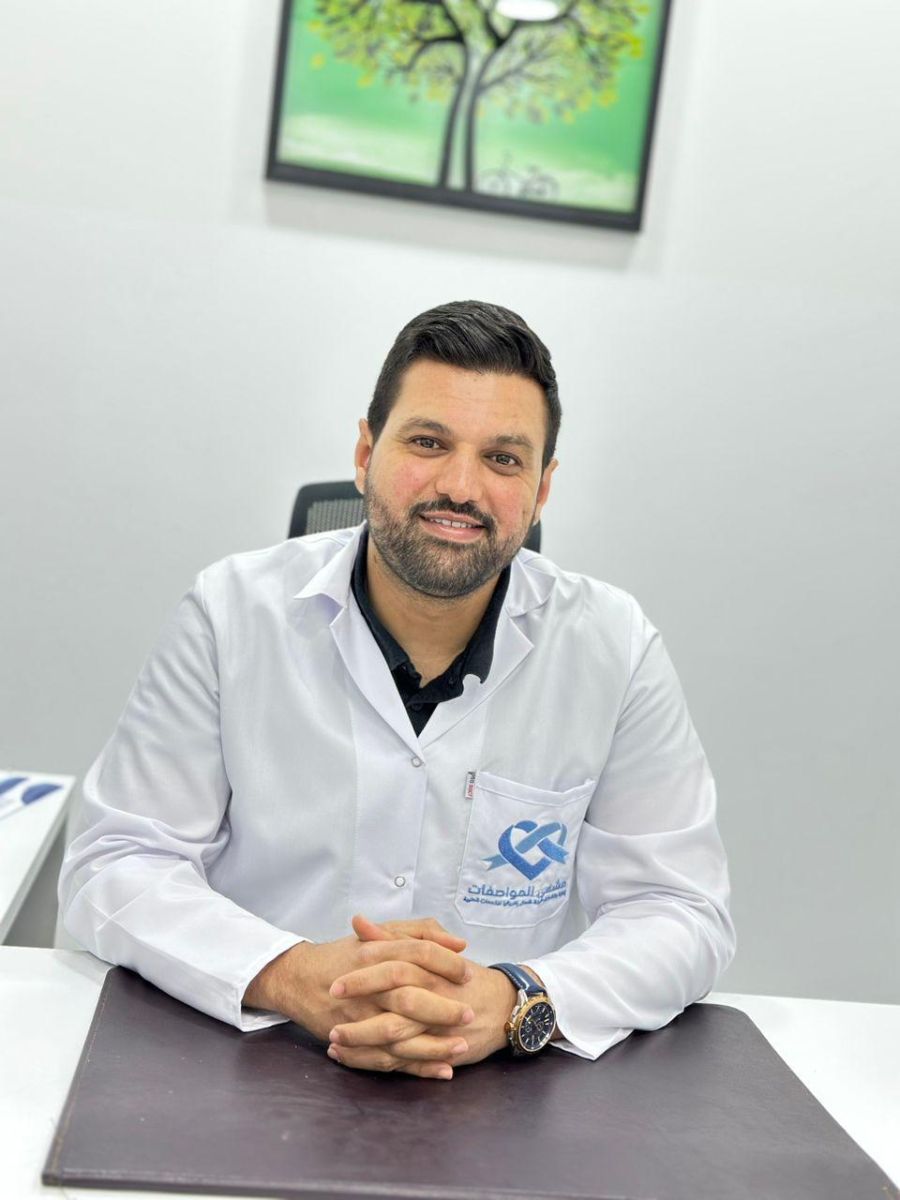
Dr. Mohamed Daoub is a distinguished Orthopaedic, Hand, and Peripheral Nerve Surgeon from Tripoli, Libya. Dr. Daoub is a graduate of the University of Tripoli with a Bachelor of Medicine and Surgery, who further honed his expertise by earning a Master of Medicine in Orthopaedics from the University of Cape Town, a Fellowship from the College of Orthopaedic Surgeons of South Africa & 2 years fellowship in Hands & peripheral nerve from Martin Singer Hand unit Groote Schuur Hospital. In his professional journey, Dr. Daoub has garnered extensive experience across various high-caliber medical institutions. He completed his senior registrar in multiple specialties of orthopaedics at Groote Schuur Hospital and the Red Cross Memorial Children’s Hospital in Cape Town, South Africa. These rotations included elective lower limb, upper limb, and pediatric orthopaedics, covering a broad spectrum of conditions from trauma to elective surgeries. Dr. Daoub is currently enhancing the medical landscape in Tripoli by practicing at Alkhalil, Muasafat, and Almasara hospitals, specializing in hand and peripheral nerve surgeries. His medical prowess is also showcased through his involvement in academic circles as he actively engages in teaching roles. He educates junior registrars and medical officers, and examines final-year medical students at the University of Cape Town. His academic contributions are complemented by his active participation in cutting-edge research and continuous medical education, regularly presenting at orthopaedic conferences and contributing to international journals. Dr. Daoub is affiliated with several esteemed medical bodies, including the South African Orthopaedic Association and the Global Nerve Foundation, underlining his commitment to advancing orthopaedic knowledge and practices globally. His work, deeply rooted in clinical excellence and innovative surgical techniques, marks him as a leader in his field, contributing significantly to the evolution of hands and nerve surgery.
Lecture title: Nerve transfers for Cervical Spinal Cord Injury- A Surgical Strategy to Enhance Upper Limb Function
Cervical spinal cord injury (CSCI) often results in significant loss of upper limb function, profoundly affecting individuals’ quality of life and independence. Nerve transfer surgery has emerged as a promising intervention that can significantly improve motor function in affected patients. This comprehensive review assesses the efficacy and neurological outcomes of nerve transfers for enhancing upper limb function in CSCI patients, synthesizing data from clinical trials and case studies that highlight the potential for functional recovery through muscle reinnervation. Results indicate that nerve transfers can enable voluntary control and recovery of motor functions in upper extremities, with success rates varying based on injury severity, timing of surgery, and specific nerves targeted. Early surgical intervention, preferably within 6 to 12 months post-injury, is correlated with more favorable outcomes due to the reduced risk of irreversible muscle atrophy and joint deformities. Although challenges persist, particularly in patient selection and determining optimal timing for surgery, nerve transfer surgery holds transformative potential for CSCI treatment, promising substantial improvements in patient rehabilitation. Ongoing research and refinements in technique are crucial for optimizing outcomes and standardizing surgical approaches, potentially revolutionizing care strategies for individuals with CSCI worldwide.

Dr. Khoula Mohamed Amed is a dedicated dialectologist specializing in diabetes and endocrinology at the Diabetes and Endocrine Center in Tripoli. She graduated with a Bachelor’s degree in Medicine and General Surgery from Tripoli University in 2010-2011. Since June 2012, Dr. Amed has been committed to her role at the Diabetes and Endocrine Center, contributing significantly to the management of diabetes and related endocrine disorders. Dr. Amed is highly experienced in implementing advanced diabetes management technologies. In 2012, she pioneered the use of flexible insulin therapy, collaborating with a team from France to streamline the process of starting insulin pumps. By 2013, she successfully introduced the Medtronic insulin pump, providing critical care to patients over a three-day admission period. Throughout her career, Dr. Amed has been actively involved in education and training. She has participated in numerous conferences and workshops, including the first Diabetic Conference (Workshop FIT) in 2014, World Diabetic Day in Ghadames Hospital in 2019, and World Kidney Day in March 2019. She has also played a vital role in educating the public about coronavirus and breast cancer in various schools and hospitals. With over a decade of experience, Dr. Amed has served in multiple capacities, including working in the ICU and covering diabetes and endocrine OPD/ICU/wards at Gadames Hospital for four years. During the COVID-19 pandemic in 2020, she worked in isolated wards, providing essential care to patients. Dr. Amed’s educational background includes a course in French at the Open University in 2015, a course in mechanical ventilation in 2017, and workshops with Medtronic in 2019 and 2023. She also serves as an invigilator for IELTS exams at the British Council Libya. Fluent in Arabic, English, and French, Dr. Khoula Mohamed Amed possesses strong skills in strategic planning, volunteer work, time management, and teamwork. She continues to make significant contributions to the field of diabetes and endocrinology, striving to improve patient outcomes and promote health education.
Workshop title: Insulin Pump and Improved of Quality of Life
The workshop titled “Insulin Pump and Improved Quality of Life” aims to equip doctors with comprehensive knowledge and practical skills related to the management of diabetes using insulin pump therapy. This workshop goes beyond traditional diabetes management techniques and focuses on the advanced technology and methodologies associated with insulin pump therapy, which has been shown to significantly enhance the quality of life for patients with diabetes. Participants will gain a deep understanding of the principles behind insulin pump therapy, including its mechanisms of action, indications, and contraindications. Through interactive sessions and hands-on training, doctors will learn how to initiate, adjust, and optimize insulin pump therapy for individual patients, taking into account their unique medical history, lifestyle, and treatment goals. Moreover, the workshop will delve into the latest advancements in insulin pump technology and software, empowering doctors to stay updated with the rapidly evolving landscape of diabetes care. By the end of the workshop, participants will be proficient in utilizing insulin pumps as a tool for achieving glycemic control, preventing complications, and ultimately improving the overall quality of life for their patients with diabetes.

Dr. Juli Switala is a passionate paediatrician with a focus on infectious diseases, particularly Tuberculosis (TB), for the past seven years. Holding the position of paediatric TB senior specialist at the Aurum Institute, she plays a pivotal role in various projects aimed at combating TB and related complications. In her current role, Dr. Switala is extensively involved in several impactful initiatives. Under the Accelerate 1 project funded by USAID, she has contributed significantly to the National TB Program, including the development of a paediatric TB training program and childhood TB guidelines. She has also provided technical support to high burden districts, facilitating the creation of case management support networks and implementing local strategies for improved TB diagnosis and management. As part of the IMPAACT4TB initiative, Dr. Switala has been instrumental in conducting pharmacokinetic trials for paediatric TB medications, ensuring access to essential treatments in South Africa and other countries. Additionally, she serves as a paediatric HIV advisor in several regions, focusing on addressing HIV-related complications and operational research. Dr. Switala’s commitment to paediatric TB extends beyond clinical practice. She is actively involved in the WHO Child and Adolescent TB Working Group, contributing to the development of global guidelines and strategies. Previously, she managed the paediatric unit at Brooklyn Chest Hospital, where she established outpatient clinics for complex TB cases, demonstrating her dedication to improving patient care and access to treatment. With a diverse background that includes fieldwork in various countries and extensive research involvement, Dr. Switala brings a wealth of experience to her role. Her goal is to ensure that children worldwide receive dignified and child-friendly TB prevention, diagnosis, and treatment, ultimately striving to eliminate unnecessary childhood deaths due to this treatable disease. Dr. Switala holds a Bachelor’s degree in Medicine and Surgery from the University of the Witwatersrand, along with several certifications and qualifications in paediatrics and infectious diseases. She remains committed to ongoing learning and professional development, actively participating in conferences, courses, and research endeavors. Driven by a profound sense of purpose, Dr. Juli Switala continues to make significant contributions to the field of paediatric TB, advocating for the well-being of children and families globally.
Lecture title: WHO childhood TB guidelines: what’s new and how to localise it.
Childhood Tuberculosis (TB) remains a significant global health challenge, particularly in African countries with high TB burden. The World Health Organization (WHO) plays a pivotal role in guiding TB prevention, diagnosis, and treatment strategies, including specific guidelines tailored to address childhood TB. This abstract aims to provide an overview of the WHO childhood TB guidelines, highlighting key recommendations and their application in African settings. The 2022 WHO childhood TB guidelines and the WHO childhood TB roadmap encompass a comprehensive framework for addressing the unique needs of paediatric TB patients, covering aspects of diagnosis, treatment, and prevention. There are many recent changes including new diagnostic methods, advised diagnostic algorithms, a revision on TB prevention therapy, and short course therapy with new recommendations for Rifampicin Resistant therapy. Many of the advances in adult TB are not yet applicable to children – which places children in a unique category. This needs to be considered when trying to apply guidelines in a local setting. In African countries, the implementation of WHO guidelines needs to be adapted to consider local challenges: limited healthcare infrastructure, vast distances, political instability, HIV, limited access to diagnostic tools, and socioeconomic, political and cultural barriers. . Despite these challenges, not only has significant progress has been made in adapting WHO guidelines to local contexts but Africa provides much of the evidence that guides the guidelines. Localizing guidelines requires knowing both the guidelines and the local contexts – to know what is most relevant, what is possible, and what needs to be adapted to be possible – but local clinicians also have the best insight into how TB can be leveraged on existing structures. Childhood TB is more difficult to recognize and diagnose, but it is easier to treat – so it is important to build a bridge between child health and infectious disease platforms to ensure that strategies for reaching and caring for children with TB are robust and locally relevant. Community acceptance and inclusion allows for better community based screening programmes, increased demand generation, which results in earlier, more cost effective access to care. Partnerships between governments, non-governmental organizations (NGOs), and international agencies have played a crucial role in supporting efforts to eliminate TB and this continued relationship between child-caregiver-community-clinician-health system- government and international partners will remain critical to finally, end TB.
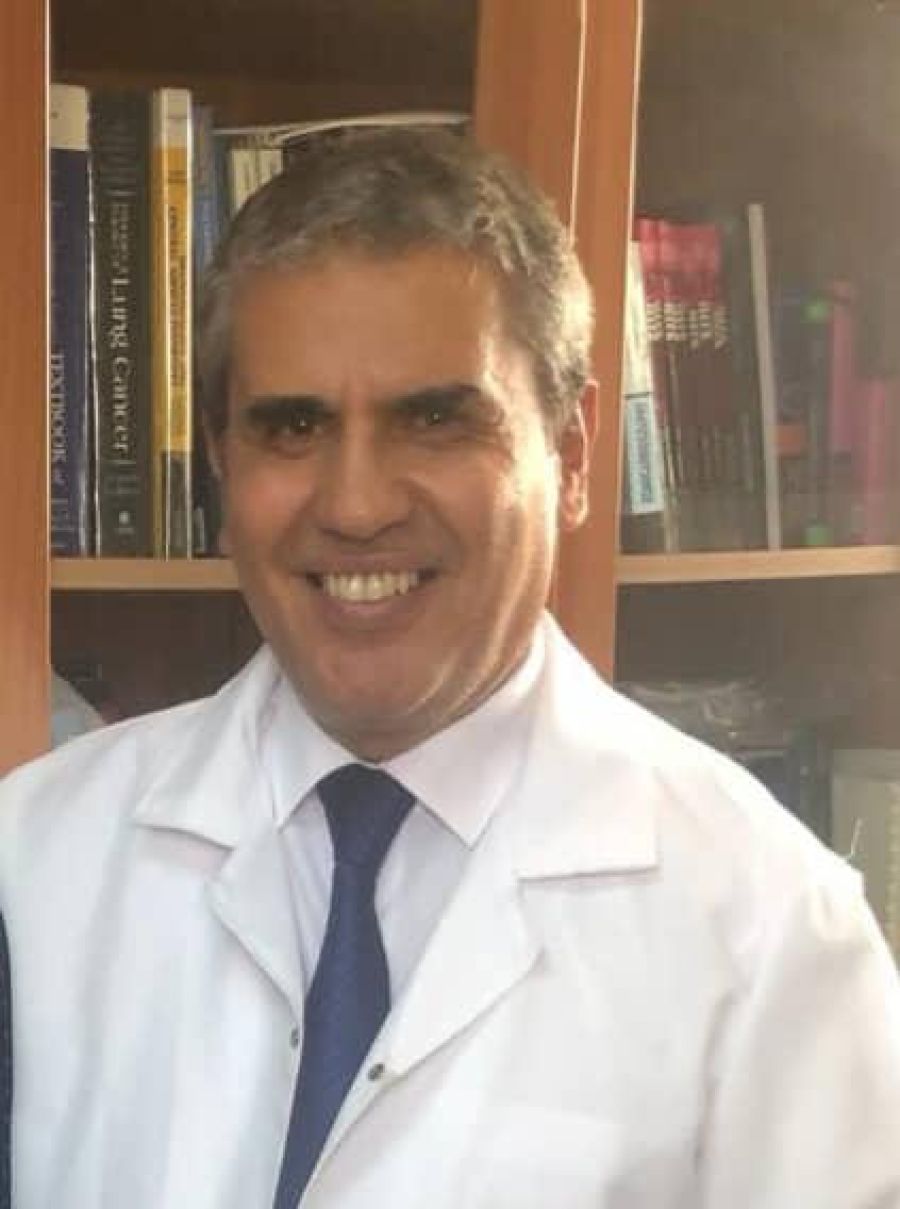
Dr. Hasan Mohamed Almusrati is a distinguished consultant respiratory physician and assistant manager at the Abusitta Chest Center for Respiratory and TB in Tripoli, Libya. With a foundational education from Tripoli University where he obtained his M.B.BCh in 1991, Dr. Almusrati’s pursuit of medical excellence propelled him to the United Kingdom and Germany for advanced certifications. He earned his MRCP from Edinburgh in 1998 and completed his Facharzt qualifications in Internal Medicine and Pulmonology at the Ärztekammer Nordrhein, Düsseldorf, in 2012 and 2014 respectively. Currently, Dr. Almusrati is actively involved in academia as a member of the Faculty of Medicine at Tripoli University and is a respected member of both the American Thoracic Society (ATS) and the European Respiratory Society (ERS). His leadership extended to serving as the head of the Libyan Thoracic Society (LTS) from 2019 to 2021 and he remains a vital member of the Scientific Committee of the National Tuberculosis Program (NCDC). Dr. Almusrati also heads the PAH Clinic and the Endoscopy Department at Abusitta Chest Center, and contributes significantly to human resources management within the center. His research interests are highlighted by his lead role in a clinical trial studying the efficacy of Nintedanib (Ofev) in treating IPF and progressive lung fibrosis from 2022 to 2023. Additionally, he was instrumental in the creation of the National Case Management Book for COVID-19 in Libya. Dr. Almusrati’s commitment to advancing respiratory medicine is further underscored by his ongoing involvement in continuous medical education programs at his center, aiming to elevate healthcare standards and patient outcomes in Libya
Panel title: Under LTS and Abusitta chest center
The Libyan Thoracic Society (LTS) and the Abusitta Chest Center are pivotal institutions in advancing respiratory care in Libya. The LTS, established to foster collaboration and knowledge sharing among respiratory healthcare professionals, plays a crucial role in setting standards, promoting research, and advocating for improved respiratory health services across the country. The Abusitta Chest Center, a specialized respiratory care facility, complements the efforts of LTS by providing comprehensive diagnostic, therapeutic, and rehabilitative services for patients with various respiratory conditions. The Abusitta Chest Center is equipped with state-of-the-art technology and staffed by highly trained professionals dedicated to the diagnosis and management of respiratory diseases. Services at the center include advanced pulmonary function testing, bronchoscopy, sleep studies, and critical care for patients with severe respiratory conditions. The center’s multidisciplinary approach ensures that patients receive holistic care, addressing both the physical and psychological aspects of respiratory illnesses. A key focus of the Abusitta Chest Center is the management of chronic respiratory diseases such as asthma, chronic obstructive pulmonary disease (COPD), and tuberculosis. Through patient education, lifestyle modification programs, and personalized treatment plans, the center aims to improve patient outcomes and enhance their quality of life. Additionally, the center is actively involved in community outreach programs to raise awareness about respiratory health and preventive measures. The collaboration between LTS and the Abusitta Chest Center has significantly contributed to the advancement of respiratory care in Libya. By hosting national conferences, workshops, and continuous medical education programs, they provide platforms for healthcare professionals to stay updated with the latest advancements in respiratory medicine. These initiatives also facilitate the exchange of best practices and foster a culture of continuous improvement in respiratory care. In conclusion, the efforts of the Libyan Thoracic Society and the Abusitta Chest Center are instrumental in elevating the standards of respiratory healthcare in Libya. Through their comprehensive services, educational programs, and community outreach initiatives, they are making significant strides in addressing the respiratory health challenges faced by the Libyan population.

Dr. Fatoum Ramadhan Sabrih is a distinguished Libyan medical professional specializing in diabetes and endocrine disorders. Born on July 15, 1986, in Tripoli, Libya, Fatoum has built a remarkable career marked by dedication and a rigorous pursuit of medical excellence. She completed her secondary education at Kortoba in 2003 with an outstanding average of 96%, demonstrating early on her academic prowess. Fatoum graduated from the Faculty of Medicine at Tripoli University in the 2011-2012 academic year. Her educational journey did not stop there; she has continuously expanded her skills through various certifications including Basic Life Support (BLS), which she has recertified in 2013, 2017, and 2022, Advanced Cardiac Life Support (ACLS) in 2017, Basic Echocardiography in 2014, and a Diploma in Diabetes obtained in 2022. Moreover, she has undergone TOT training, enhancing community responses to gender-based violence and mental health and psychosocial support in Libya. Fatoum currently serves as a Senior Physician at the Diabetes and Endocrine Center in Tripoli, where she has been a pivotal member for over eight years. Her role extends into the health insurance sector, where she contributes to the operations company’s health reviews department. Her rigorous internship included rotations in general and special surgery, medicine, pediatrics, community medicine, obstetrics, and gynecology, equipping her with a broad clinical perspective. Possessing excellent leadership qualities, Fatoum is known for her ability to motivate and lead teams effectively. Her technical skills include proficient use of medical and office software, reflecting her adaptability in various professional settings.
Workshop title: Insulin Pump and Improved of Quality of Life/Diabetes
The workshop titled “Insulin Pump and Improved Quality of Life” aims to equip doctors with comprehensive knowledge and practical skills related to the management of diabetes using insulin pump therapy. This workshop goes beyond traditional diabetes management techniques and focuses on the advanced technology and methodologies associated with insulin pump therapy, which has been shown to significantly enhance the quality of life for patients with diabetes. Participants will gain a deep understanding of the principles behind insulin pump therapy, including its mechanisms of action, indications, and contraindications. Through interactive sessions and hands-on training, doctors will learn how to initiate, adjust, and optimize insulin pump therapy for individual patients, taking into account their unique medical history, lifestyle, and treatment goals. Moreover, the workshop will delve into the latest advancements in insulin pump technology and software, empowering doctors to stay updated with the rapidly evolving landscape of diabetes care. By the end of the workshop, participants will be proficient in utilizing insulin pumps as a tool for achieving glycemic control, preventing complications, and ultimately improving the overall quality of life for their patients with diabetes.

Dr. Eman Mohamed El-Jadi is a highly skilled pharmacist with extensive experience and a commitment to excellence in healthcare provision. Currently serving as the Head of the Clinical Pharmacy Department at Kidney Treatment and Dialysis Hospital, Misrat, Eman brings a wealth of expertise to her role. Her professional journey is marked by a dedication to advancing pharmaceutical care and improving patient outcomes. Eman holds the esteemed certification of American Board Certified Pharmacotherapy Specialist, which she attained in 2022, demonstrating her proficiency in pharmacotherapy and clinical pharmacy practice. Additionally, she completed a Training Course of Trainers (TOT) in the same year, further enhancing her ability to impart knowledge and train future pharmacy professionals. With a keen focus on continuous learning and professional development, Eman obtained a Certificate in Managing Common Gastrointestinal Disorders from the American Association of Continuing Medical Education in October 2020. This achievement underscores her commitment to staying abreast of the latest advancements in pharmaceutical care and expanding her clinical expertise. Eman’s educational foundation is rooted in her Bachelor’s Degree in Pharmacy, which she earned from the Faculty of Pharmacy at Misurata University. Graduating in 2010, she embarked on her career in pharmacy with a firm grounding in pharmaceutical sciences and patient care principles. Prior to her current role, Eman served as a Pharmacist at Al-Swawa Local Hospital from 2012, where she honed her clinical skills and gained valuable experience in providing pharmaceutical services to diverse patient populations. Fluent in both Arabic and English, Eman possesses strong communication skills that enable her to effectively interact with patients, colleagues, and healthcare professionals. She is also proficient in Microsoft Office applications, facilitating efficient documentation and management of pharmaceutical processes. Eman’s dedication to advancing pharmaceutical practice, coupled with her clinical acumen and commitment to patient-centered care, makes her a valuable asset to any healthcare team. With a passion for improving healthcare outcomes and enhancing the quality of patient care, Eman continues to make significant contributions to the field of pharmacy
Lecture title: Role of a Clinical Pharmacist in a Hemodialysis Unit
Background: Hemodialysis (HD) patients have complicated disease states, placing them at higher risk for medication-related problems, medication discrepancies, and no adherence. The treatment adherence recommendations is challenging in hemodialysis (HD) patients, yet it has been found to be extremely crucial in obtaining positive clinical and health outcomes. Aim: To evaluate the influence of implementing an educational process provided by the clinical pharmacist on HD patients’ monitor, adherence to treatment recommendations and clinical outcomes. The nephrology department at Misurata Central hospital coverage the largest number of HD patient at Misurata city. There are other hemodialysis unit around Misurata city to overcome the increasing number of HD patient and minimize waiting list. The present of clinical pharmacist at HD unit was established recently at MCC unit covering morning duties only. The approximate number of patient each day around 140 patients (males and females). We start to create individual patients files for all registered patient HD unit. This approach include, finding patient information, periodic investigations, and compared it with treatment chart then assessment, monitor and recommendation, discussion with nephrologist about any dose adjustment, drug interaction Reporting, to reduction in medication errors then educated the patient about drugs. Conclusion: To date, our country suffers from a lack of clinical pharmacist who are willing to be associated with hemodialysis patients. We conclude and recommend that the clinical pharmacist should be integrated even before the initiation of hemodialysis therapy to work simultaneously with physician to minimize unnecessary complications associated with suboptimal medication management, such as excessive morbidity, hospitalization, and mortality.
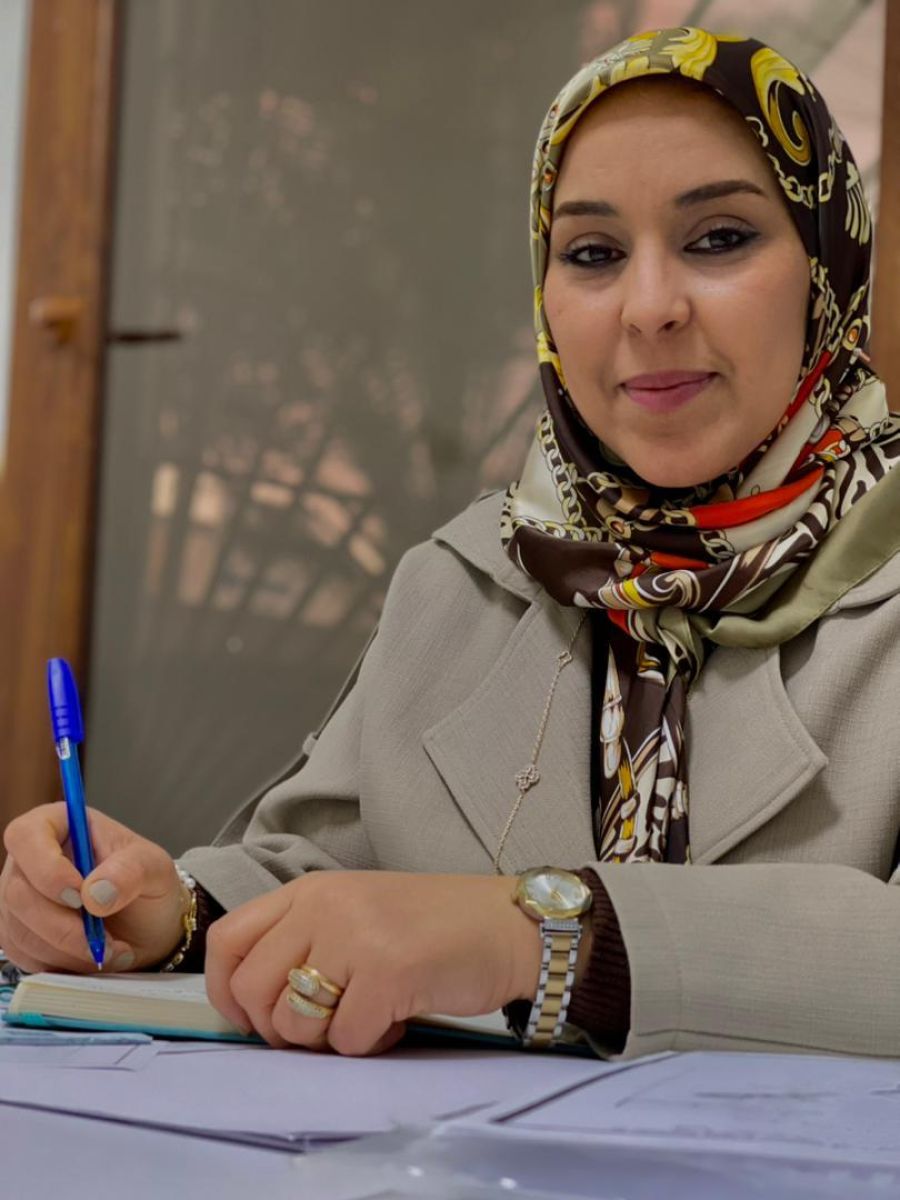
Dr. Darin Muftah Meatige is a senior medical professional specializing in diabetes and endocrinology at the Diabetic and Endocrinology Hospital in Tripoli, Libya. With over a decade of experience in the field, he has developed significant expertise in managing diabetes, particularly with insulin pumps and gestational diabetes. Dr. Meatige holds a specialized diploma in diabetes from the Faculty of Medicine, University of Tripoli, where he graduated in August 2010. Dr. Meatige’s career is marked by a strong commitment to advancing diabetic care through technology and education. He has been instrumental in introducing new technologies for diabetes management in Libya, including flexible insulin therapy, which significantly simplifies the initiation of pump therapy. His clinical expertise is complemented by his involvement in numerous medical conferences and workshops, where he has delivered presentations on topics such as glycemic control in Type 1 Diabetes (T1DM) using insulin pump therapy and has conducted workshops on flexible insulin therapy in Libya. In addition to his clinical duties, Dr. Meatige is actively involved in educating healthcare professionals and the public on diabetes management. He has spoken at several significant events, including the Libyan Diabetes Conferences and various symposiums on mechanical ventilation and thyroid disease. His contributions to community education include speaking at pre-Ramadan educational activities and conducting awareness sessions in hospitals and schools. Dr. Meatige is also proficient in a range of computer skills, necessary for modern medical practice, and is bilingual, fluent in both English and Arabic. His dedication to his field is underscored by his continuous learning and participation in international workshops, such as those offered by Medtronic and Roche, enhancing his skills in insulin pump technologies.
Workshop title: Insulin Pump and Improved of Quality of Life
The workshop titled “Insulin Pump and Improved Quality of Life” aims to equip doctors with comprehensive knowledge and practical skills related to the management of diabetes using insulin pump therapy. This workshop goes beyond traditional diabetes management techniques and focuses on the advanced technology and methodologies associated with insulin pump therapy, which has been shown to significantly enhance the quality of life for patients with diabetes. Participants will gain a deep understanding of the principles behind insulin pump therapy, including its mechanisms of action, indications, and contraindications. Through interactive sessions and hands-on training, doctors will learn how to initiate, adjust, and optimize insulin pump therapy for individual patients, taking into account their unique medical history, lifestyle, and treatment goals. Moreover, the workshop will delve into the latest advancements in insulin pump technology and software, empowering doctors to stay updated with the rapidly evolving landscape of diabetes care. By the end of the workshop, participants will be proficient in utilizing insulin pumps as a tool for achieving glycemic control, preventing complications, and ultimately improving the overall quality of life for their patients with diabetes.
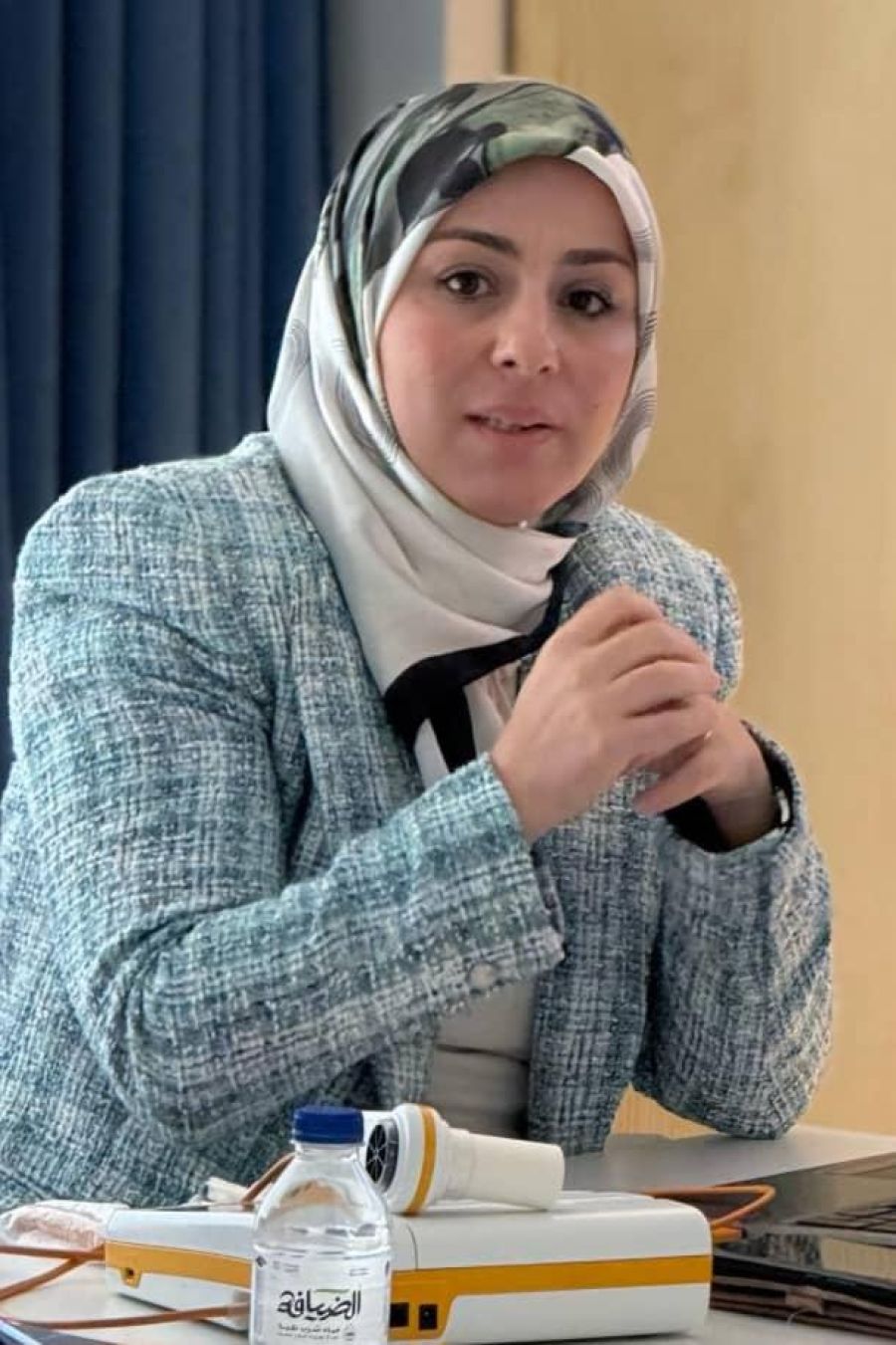
Dr. Areej Dakshi is a distinguished respiratory specialist and an esteemed graduate from South Africa, bringing advanced expertise and a global perspective to her medical practice. Currently, she leads the Pulmonary Function Test unit and heads the Research and Medical Statistics Department at the Abussitta Chest Center. Dr. Al-Dakshi’s role involves overseeing critical diagnostic services and spearheading innovative research initiatives aimed at enhancing patient care and treatment methodologies. Her leadership in both operational and investigative capacities underscores her commitment to improving respiratory health outcomes through rigorous analysis and the application of cutting-edge medical science. Dr. Al-Dakshi’s contributions are pivotal in advancing the center’s mission to provide top-tier respiratory care and in setting new standards in clinical excellence and research in the field.
Panel title: Under LTS and Abusitta chest center
The Libyan Thoracic Society (LTS) and the Abusitta Chest Center are pivotal institutions in advancing respiratory care in Libya. The LTS, established to foster collaboration and knowledge sharing among respiratory healthcare professionals, plays a crucial role in setting standards, promoting research, and advocating for improved respiratory health services across the country. The Abusitta Chest Center, a specialized respiratory care facility, complements the efforts of LTS by providing comprehensive diagnostic, therapeutic, and rehabilitative services for patients with various respiratory conditions. The Abusitta Chest Center is equipped with state-of-the-art technology and staffed by highly trained professionals dedicated to the diagnosis and management of respiratory diseases. Services at the center include advanced pulmonary function testing, bronchoscopy, sleep studies, and critical care for patients with severe respiratory conditions. The center’s multidisciplinary approach ensures that patients receive holistic care, addressing both the physical and psychological aspects of respiratory illnesses. A key focus of the Abusitta Chest Center is the management of chronic respiratory diseases such as asthma, chronic obstructive pulmonary disease (COPD), and tuberculosis. Through patient education, lifestyle modification programs, and personalized treatment plans, the center aims to improve patient outcomes and enhance their quality of life. Additionally, the center is actively involved in community outreach programs to raise awareness about respiratory health and preventive measures. The collaboration between LTS and the Abusitta Chest Center has significantly contributed to the advancement of respiratory care in Libya. By hosting national conferences, workshops, and continuous medical education programs, they provide platforms for healthcare professionals to stay updated with the latest advancements in respiratory medicine. These initiatives also facilitate the exchange of best practices and foster a culture of continuous improvement in respiratory care. In conclusion, the efforts of the Libyan Thoracic Society and the Abusitta Chest Center are instrumental in elevating the standards of respiratory healthcare in Libya. Through their comprehensive services, educational programs, and community outreach initiatives, they are making significant strides in addressing the respiratory health challenges faced by the Libyan population.
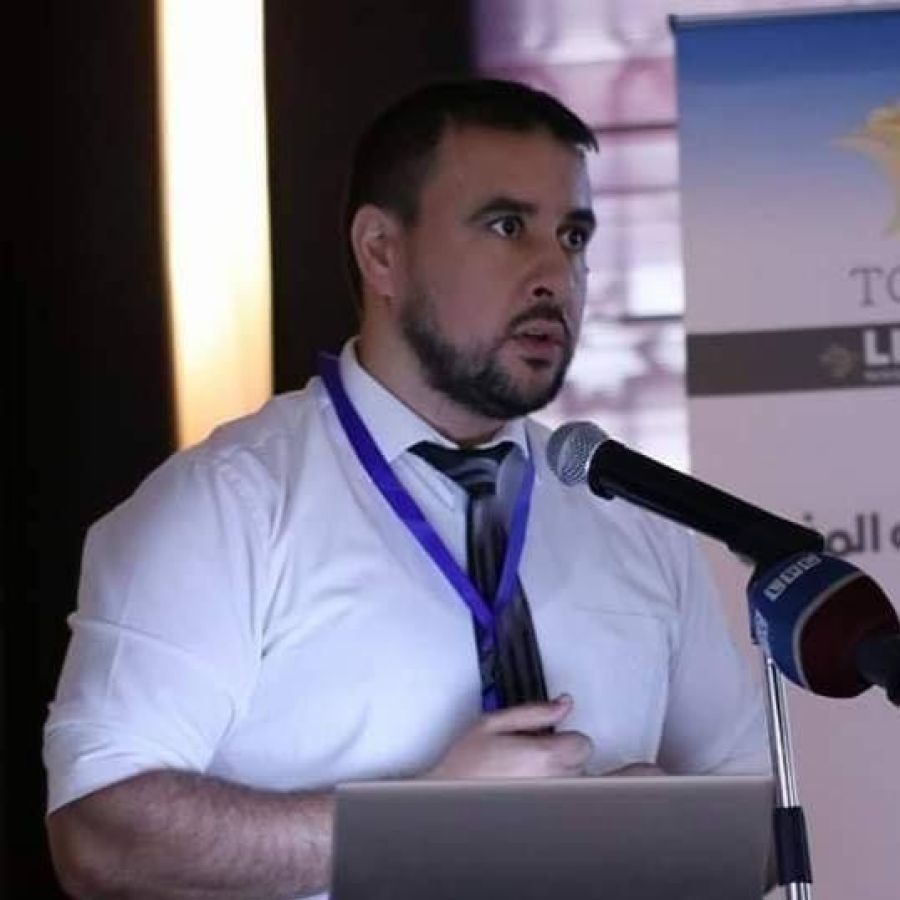
Dr. Anas Omar Zarmouh is a prominent Libyan medical specialist in Respiratory and General Medicine, based in Misurata, Libya. He holds an MSc in Medical Leadership from Sheffield Hallam University, UK (2018), and achieved his Certificate of Completion of Training (CCT) in Respiratory & General (Internal) Medicine from the GMC UK (2015). Additionally, Dr. Zarmouh earned his MRCP in Respiratory Medicine from the Royal College of Physicians, UK, in 2013. Currently, Dr. Zarmouh serves as the Head of the Board of Directors at Alemtiaz Respiratory & Sleep Centre and as a Consultant in Respiratory & General Medicine at Misurata Medical Centre (MMC). His leadership was instrumental during his tenure as the Head of the Isolation Department for COVID-19 at MMC. He is also deeply involved in national healthcare standards and accreditation for medical schools.
Panel title: Under LTS and Abusitta chest center
The Libyan Thoracic Society (LTS) and the Abusitta Chest Center are pivotal institutions in advancing respiratory care in Libya. The LTS, established to foster collaboration and knowledge sharing among respiratory healthcare professionals, plays a crucial role in setting standards, promoting research, and advocating for improved respiratory health services across the country. The Abusitta Chest Center, a specialized respiratory care facility, complements the efforts of LTS by providing comprehensive diagnostic, therapeutic, and rehabilitative services for patients with various respiratory conditions. The Abusitta Chest Center is equipped with state-of-the-art technology and staffed by highly trained professionals dedicated to the diagnosis and management of respiratory diseases. Services at the center include advanced pulmonary function testing, bronchoscopy, sleep studies, and critical care for patients with severe respiratory conditions. The center’s multidisciplinary approach ensures that patients receive holistic care, addressing both the physical and psychological aspects of respiratory illnesses. A key focus of the Abusitta Chest Center is the management of chronic respiratory diseases such as asthma, chronic obstructive pulmonary disease (COPD), and tuberculosis. Through patient education, lifestyle modification programs, and personalized treatment plans, the center aims to improve patient outcomes and enhance their quality of life. Additionally, the center is actively involved in community outreach programs to raise awareness about respiratory health and preventive measures. The collaboration between LTS and the Abusitta Chest Center has significantly contributed to the advancement of respiratory care in Libya. By hosting national conferences, workshops, and continuous medical education programs, they provide platforms for healthcare professionals to stay updated with the latest advancements in respiratory medicine. These initiatives also facilitate the exchange of best practices and foster a culture of continuous improvement in respiratory care. In conclusion, the efforts of the Libyan Thoracic Society and the Abusitta Chest Center are instrumental in elevating the standards of respiratory healthcare in Libya. Through their comprehensive services, educational programs, and community outreach initiatives, they are making significant strides in addressing the respiratory health challenges faced by the Libyan population.
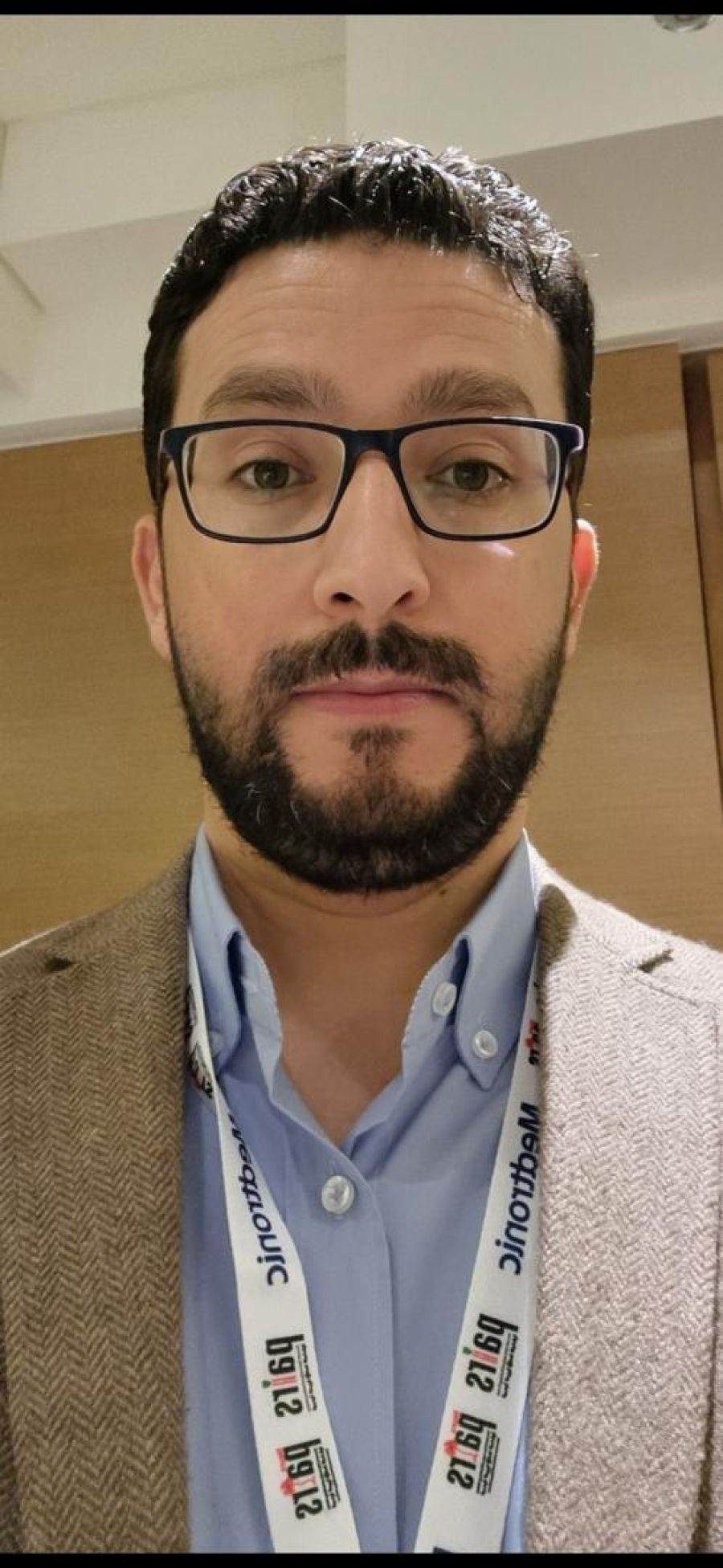
Dr. Abdulmonem A. O. Mohamed, a qualified physician with an M.B.B.Ch from Garyounis University of Medicine, Benghazi, Libya, and a German Board of Radiology certification, brings a wealth of experience in clinical practice and training. His professional journey spans various prestigious institutions, including Tripoli Medical Center in Libya as a radiology resident, Klinikum Dortmund in Germany as both a resident and consultant in general and interventional radiology, and Hamad General Hospital in Doha, Qatar, where he served as a consultant radiologist. Currently, at Mitiga Military Hospital in Tripoli, Libya, he operates as a consultant interventional radiologist, specializing in procedures such as maxillofacial arteriovenous malformation (AVM) embolizations, cerebral aneurysm coiling, and stroke management, including mechanical thrombectomy and carotid stenting. Abdulmonem has undergone extensive training, participating in numerous courses and congresses across Europe and Egypt, focusing on radiology and interventional procedures. He holds active medical licenses in Germany and Libya and is affiliated with esteemed professionals in the field, such as A. Prof. Abdosalam Abograra, Prof. Dr. med Stefan Rohde, and Dr. Abdulbaset Sharafeddin, who can attest to his expertise and dedication in radiology practice and education.
Tite : The Impact of Stroke on Community Health & How to Improve the Management of Acute Ischemic Stroke by Modern Technologies, Artificial Intelligence, and New Treatment Methods
Stroke stands as a formidable challenge to global public health, exerting a profound impact on communities through its prevalence, morbidity, and mortality rates. This abstract delves into the multifaceted repercussions of stroke on community health, shedding light on its pervasive nature and the urgent need for effective management strategies. By elucidating the intricate web of risk factors, economic burdens, and social ramifications associated with stroke, this overview underscores the pressing imperative for proactive intervention. Moreover, the abstract underscores the critical role of prevention, early detection, and rehabilitation initiatives in ameliorating the toll of stroke on community well-being. In this vein, it advocates for a holistic approach that integrates modern technologies, artificial intelligence, and innovative treatment modalities to optimize stroke care delivery. By harnessing the power of data-driven insights, telemedicine, and novel therapeutic interventions, healthcare stakeholders can revolutionize the management of acute ischemic stroke and enhance patient outcomes. Through collaborative efforts between healthcare practitioners, policymakers, and community stakeholders, the abstract posits a vision of empowered communities equipped with the knowledge, resources, and tools to combat stroke effectively. Ultimately, by elevating awareness, promoting proactive measures, and embracing innovation, communities can mitigate the burden of stroke and foster a culture of health and resilience.

Dr. Eve Namisango is a distinguished professional serving as the Programmes and Research Manager at the African Palliative Care Association. Concurrently, she holds an honorary position as a Health Scientist at the College of Health Sciences, Makerere University, and is a fellow at the prestigious Cicely Saunders Institute, King’s College London. With a profound commitment to advancing palliative care, Eve holds a Master’s and a Ph.D. in Palliative Care Policy, Rehabilitation, Clinical Epidemiology, and Biostatistics. Her expertise extends across a spectrum of research domains, including service development, palliative care in emergency settings, trauma and healing, pediatric palliative care, grief and bereavement, psychometrics, health systems research, health economics, access to controlled medicines, digital health, and global health security & service preparedness. Dr. Namisango has contributed significantly to the academic landscape through her extensive publications in these areas, demonstrating a keen intellect and a deep understanding of the complex issues surrounding palliative care. Recognized as a leading advocate for palliative care in Africa, Dr. Namisango’s work has had a profound impact on policy development, service delivery, and advocacy efforts across the continent. Her dedication to improving access to quality palliative care services has earned her widespread respect and admiration within the global healthcare community. With her multidisciplinary background and unwavering commitment to excellence, Dr. Eve Namisango continues to be a driving force in the advancement of palliative care research and practice in Africa and beyond.
Lecture title: Ethical challenges of palliative care in resource poor settings and the consequences of palliative care in the Universal Health Coverage model
Palliative care, a fundamental component of comprehensive healthcare, faces unique ethical challenges in resource-poor settings, where limited resources and infrastructure often strain the delivery of quality care. This abstract delves into the ethical complexities surrounding palliative care provision in such contexts and explores the far-reaching consequences within the framework of Universal Health Coverage (UHC). In resource-poor settings, ethical dilemmas in palliative care are multifaceted, encompassing issues of equity, justice, autonomy, and beneficence. Scarce resources necessitate difficult decisions regarding allocation, prioritization, and access to palliative care services, often leading to moral distress among healthcare providers. Moreover, cultural beliefs, stigma, and misconceptions surrounding death and dying can further complicate ethical decision-making, impacting patient care and family dynamics. Despite these challenges, integrating palliative care into the Universal Health Coverage model holds significant promise for addressing the unmet needs of patients with life-limiting illnesses. By advocating for palliative care as an essential component of UHC, policymakers can promote equity and social justice, ensuring that all individuals, regardless of socioeconomic status, have access to quality end-of-life care. Furthermore, the principles of palliative care align closely with the core tenets of UHC, emphasizing person-centered care, holistic support, and dignity in health services delivery. However, successful integration of palliative care into UHC requires a paradigm shift in healthcare delivery, encompassing policy reforms, capacity building, and community engagement. Ethical considerations must guide these efforts, ensuring that vulnerable populations are not marginalized and that palliative care services are equitable, culturally sensitive, and respectful of patients’ preferences and values. In conclusion, addressing the ethical challenges of palliative care in resource-poor settings and harnessing its potential within the Universal Health Coverage model are imperative for achieving health equity and dignity for all individuals, particularly those facing life-limiting illnesses. Through collaborative efforts and ethical leadership, healthcare systems can strive towards a more inclusive and compassionate approach to end-of-life care, embodying the principles of solidarity, compassion, and human rights.

Dr. Eman Abulkhir is a dedicated and compassionate cardiologist with over 15 years of experience in investigating and treating heart diseases. She graduated from Tripoli University in 2002 and has been an integral part of the National Health Clinic (NHC) since 2005. Dr. Abulkhir is renowned for her strong interpersonal skills, which enable her to connect effectively with patients, families, and colleagues. Dr. Abulkhir specializes in diagnosing, investigating, and providing individualized treatment plans for the full spectrum of cardiovascular diseases. Her expertise encompasses a range of non-invasive diagnostic procedures, including cardiac stress testing, EKGs, ambulatory echocardiography, and Holter monitoring. She is also proficient in interpreting ECGs and echocardiograms, ensuring comprehensive cardiac care for her patients. In addition to her clinical skills, Dr. Abulkhir is passionate about preventing heart disease and helping patients lead heart-healthy lives. She continually seeks to optimize cardiac care by utilizing the latest technology and treatment options. Her commitment to excellence extends to her role as a mentor, where she compassionately supervises medical students and residents, fostering the next generation of healthcare professionals. Dr. Abulkhir’s dedication to her field is evident in her continuous pursuit of knowledge and her unwavering commitment to patient care. Her ability to blend technical expertise with a compassionate approach makes her a respected and trusted figure in the medical community. Through her work at NHC, Dr. Abulkhir has made significant contributions to the health and well-being of countless patients, emphasizing the importance of prevention and the power of personalized care.
Workshop title: Advanced cardiac life support
Workshop Description: The Advanced Cardiac Life Support (ACLS) workshop offers a comprehensive and in-depth overview of the critical skills necessary for resuscitation and emergency medical care. This intensive training is designed to equip healthcare professionals with the knowledge and techniques needed to manage acute medical crises effectively.
Who Can Attend: Physicians, Nurses, Paramedics, Emergency Medical Technicians (EMTs), Medical students and residents and Other healthcare providers involved in emergency and critical care settings.
Workshop Training Focus/Respiratory and Cardiac Arrest. Management: Identification and immediate response to respiratory and cardiac arrest, Implementation of advanced resuscitation techniques. Peri-Arrest Conditions Management: Handling peri-arrest conditions such as symptomatic bradycardia, Utilizing appropriate interventions to stabilize patients. Airway Maintenance: Techniques for maintaining and securing airways in emergency situations, Use of advanced airway devices and procedures. Pharmacological Interventions: Administration of emergency medications, Understanding the pharmacokinetics and pharmacodynamics relevant to ACLS protocols. Effective Team Communication: Strategies for fostering effective communication within resuscitation teams, Importance of coordinated teamwork in optimizing patient outcomes. Training Methodology: Lectures and Presentations: Comprehensive coverage of ACLS theory and protocols. Hands-On Practice: Practical sessions with manikins and simulation equipment to practice resuscitation techniques. Scenario-Based Training: Realistic scenarios to enhance decision-making and critical thinking skills during emergencies. Interactive Workshops: Collaborative sessions to improve teamwork and communication in high-pressure situations.
Workshop Objectives: Enhance preparedness and proficiency in managing acute medical crises. Equip participants with practical knowledge and hands-on experience in advanced resuscitation techniques. Promote proactive intervention and collaborative teamwork in emergency settings. Ensure participants stay abreast of the latest advancements in emergency medical care practices. Overall, the ACLS workshop promises to be a valuable educational opportunity for healthcare professionals committed to improving their skills and enhancing patient care in emergency situations. By focusing on the core elements of resuscitation protocols and emphasizing the importance of swift, coordinated responses, this workshop aims to significantly impact the quality of care provided during medical emergencies.

Dr. Hana Sherif, an esteemed and empathetic cardiologist, brings a wealth of expertise and dedication to the realm of cardiovascular medicine. Having obtained her medical degree from Tripoli University, she has spent the past decade delivering comprehensive healthcare services, with a particular focus on intensive care within the Cardiac Care Unit and Cardiothoracic ICU departments at the National Heart Center. Driven by a fervent commitment to patient-centered care, Dr. Hana’s compassionate demeanor and clinical proficiency have garnered admiration from both colleagues and patients alike. Her empathetic approach to medicine resonates deeply with those under her care, fostering trust and rapport within the healthcare setting. As a steadfast advocate for health and wellness, Dr. Hana remains at the forefront of advancing cardiovascular medicine, continuously striving to make a positive impact on the lives of her patients. With her unwavering dedication and clinical acumen, she stands as a paragon of excellence in the field of cardiology, exemplifying the highest standards of compassionate healthcare delivery.
Workshop title: Advanced cardiac life support
Workshop Description: The Advanced Cardiac Life Support (ACLS) workshop offers a comprehensive and in-depth overview of the critical skills necessary for resuscitation and emergency medical care. This intensive training is designed to equip healthcare professionals with the knowledge and techniques needed to manage acute medical crises effectively.
Who Can Attend: Physicians, Nurses, Paramedics, Emergency Medical Technicians (EMTs), Medical students and residents and Other healthcare providers involved in emergency and critical care settings.
Workshop Training Focus/Respiratory and Cardiac Arrest. Management: Identification and immediate response to respiratory and cardiac arrest, Implementation of advanced resuscitation techniques. Peri-Arrest Conditions Management: Handling peri-arrest conditions such as symptomatic bradycardia, Utilizing appropriate interventions to stabilize patients. Airway Maintenance: Techniques for maintaining and securing airways in emergency situations, Use of advanced airway devices and procedures. Pharmacological Interventions: Administration of emergency medications, Understanding the pharmacokinetics and pharmacodynamics relevant to ACLS protocols. Effective Team Communication: Strategies for fostering effective communication within resuscitation teams, Importance of coordinated teamwork in optimizing patient outcomes. Training Methodology: Lectures and Presentations: Comprehensive coverage of ACLS theory and protocols. Hands-On Practice: Practical sessions with manikins and simulation equipment to practice resuscitation techniques. Scenario-Based Training: Realistic scenarios to enhance decision-making and critical thinking skills during emergencies. Interactive Workshops: Collaborative sessions to improve teamwork and communication in high-pressure situations.
Workshop Objectives: Enhance preparedness and proficiency in managing acute medical crises. Equip participants with practical knowledge and hands-on experience in advanced resuscitation techniques. Promote proactive intervention and collaborative teamwork in emergency settings. Ensure participants stay abreast of the latest advancements in emergency medical care practices. Overall, the ACLS workshop promises to be a valuable educational opportunity for healthcare professionals committed to improving their skills and enhancing patient care in emergency situations. By focusing on the core elements of resuscitation protocols and emphasizing the importance of swift, coordinated responses, this workshop aims to significantly impact the quality of care provided during medical emergencies.
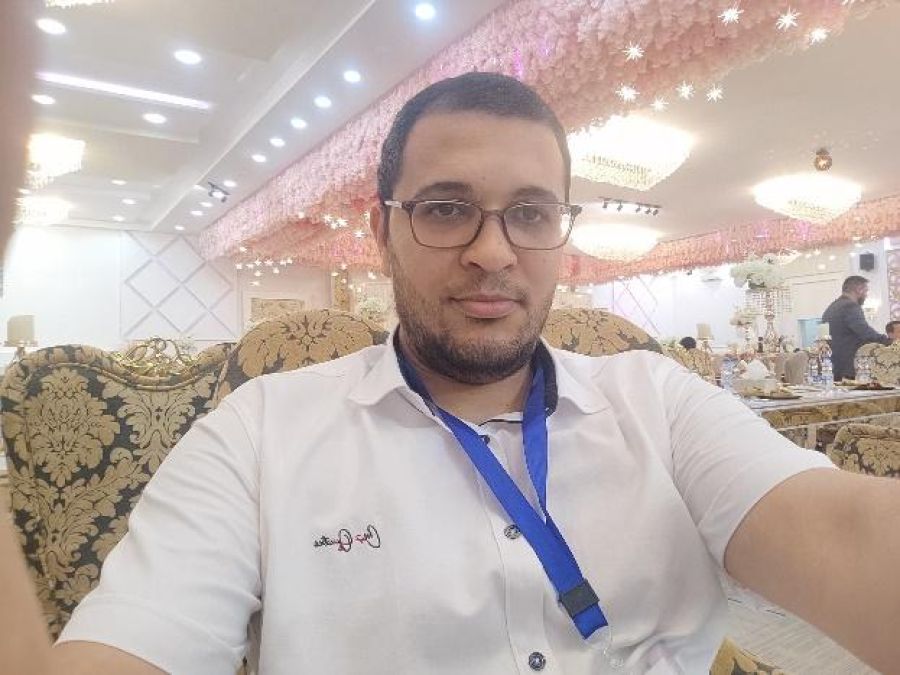
Dr. Rajab Mohammed Talalah is a distinguished cardiologist, graduating with distinction from Misurata Medical University and acquiring Arab Board certification in internal medicine. Acknowledged as a Fellow of the esteemed European Society of Cardiology, he specializes in the comprehensive management of heart failure, arrhythmias, and ischemic heart disease at the esteemed National Heart Center in Tajoura, where he holds the esteemed position of leading the Emergency Department. Beyond his clinical endeavors, Dr. Talalah is intricately involved in academia, assuming roles as a lecturer at various esteemed institutions, where he imparts his profound knowledge and expertise to budding medical professionals. Driven by an unwavering dedication to perpetual learning and professional advancement, he remains steadfast in his mission to propel the realm of cardiac care forward, consistently striving to enhance patient outcomes and refine clinical practices. Dr. Talalah’s ardor for the well being of his patients, coupled with his extensive experience and substantial contributions to medical education, firmly establish him as a revered luminary in the realm of cardiology. His influence extends beyond the confines of his clinical practice, resonating profoundly with both patients and peers alike, as he continues to epitomize excellence and compassion in the pursuit of superior healthcare standards.
Workshop title: Advanced cardiac life support
Workshop Description: The Advanced Cardiac Life Support (ACLS) workshop offers a comprehensive and in-depth overview of the critical skills necessary for resuscitation and emergency medical care. This intensive training is designed to equip healthcare professionals with the knowledge and techniques needed to manage acute medical crises effectively.
Who Can Attend: Physicians, Nurses, Paramedics, Emergency Medical Technicians (EMTs), Medical students and residents and Other healthcare providers involved in emergency and critical care settings.
Workshop Training Focus/Respiratory and Cardiac Arrest. Management: Identification and immediate response to respiratory and cardiac arrest, Implementation of advanced resuscitation techniques. Peri-Arrest Conditions Management: Handling peri-arrest conditions such as symptomatic bradycardia, Utilizing appropriate interventions to stabilize patients. Airway Maintenance: Techniques for maintaining and securing airways in emergency situations, Use of advanced airway devices and procedures. Pharmacological Interventions: Administration of emergency medications, Understanding the pharmacokinetics and pharmacodynamics relevant to ACLS protocols. Effective Team Communication: Strategies for fostering effective communication within resuscitation teams, Importance of coordinated teamwork in optimizing patient outcomes. Training Methodology: Lectures and Presentations: Comprehensive coverage of ACLS theory and protocols. Hands-On Practice: Practical sessions with manikins and simulation equipment to practice resuscitation techniques. Scenario-Based Training: Realistic scenarios to enhance decision-making and critical thinking skills during emergencies. Interactive Workshops: Collaborative sessions to improve teamwork and communication in high-pressure situations.
Workshop Objectives: Enhance preparedness and proficiency in managing acute medical crises. Equip participants with practical knowledge and hands-on experience in advanced resuscitation techniques. Promote proactive intervention and collaborative teamwork in emergency settings. Ensure participants stay abreast of the latest advancements in emergency medical care practices. Overall, the ACLS workshop promises to be a valuable educational opportunity for healthcare professionals committed to improving their skills and enhancing patient care in emergency situations. By focusing on the core elements of resuscitation protocols and emphasizing the importance of swift, coordinated responses, this workshop aims to significantly impact the quality of care provided during medical emergencies.
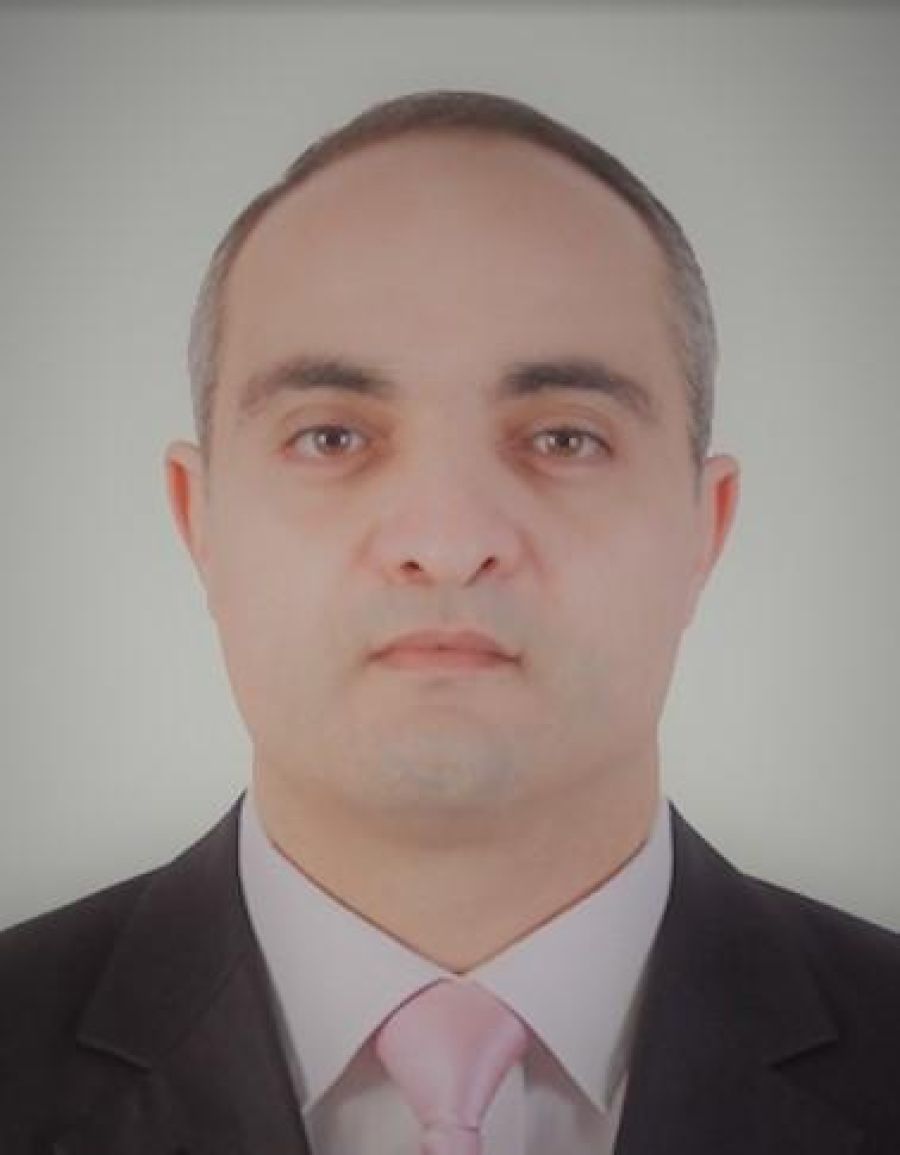
Prof. Hesham Ben Masaud is a distinguished figure in the medical field, serving as both a general practice consultant and an emergency medicine consultant. His extensive experience and expertise in these areas make him a valuable asset to healthcare provision in Libya. In addition to his clinical roles, Prof. Ben Masaud holds significant leadership positions, including President of the Libyan General Practice Society and Director of Training of the General Practice Scientific Committee at the Libyan Board of Health Specialties. In these capacities, he plays a pivotal role in shaping the standards and practices of general practice in Libya, ensuring quality care delivery and professional development among practitioners. Furthermore, Prof. Ben Masaud serves as a Clinical Associate at the Primary Care International Guideline Developing Group at the World Health Organization, where he contributes to the development of guidelines and protocols for primary care services worldwide. His dedication to advancing medical education, promoting best practices, and enhancing healthcare systems underscores his commitment to improving patient outcomes and public health in Libya and beyond.
Lecture title: Un-boxing Excellence: The Critical Role of Defining Service Delivery Package
In the family medicine specialty, (Unboxing Excellence) aims to redefine patient care by prioritizing integrated, patient-centered service delivery packages. The conference will explore the creation of comprehensive care plans that encompass preventive to chronic care management, enhancing patient experience and practice efficiency. By setting benchmarks for quality care, the conference seeks to ensure consistent, high-quality care across family medicine, ultimately leading to improved health outcomes for patients of all ages.
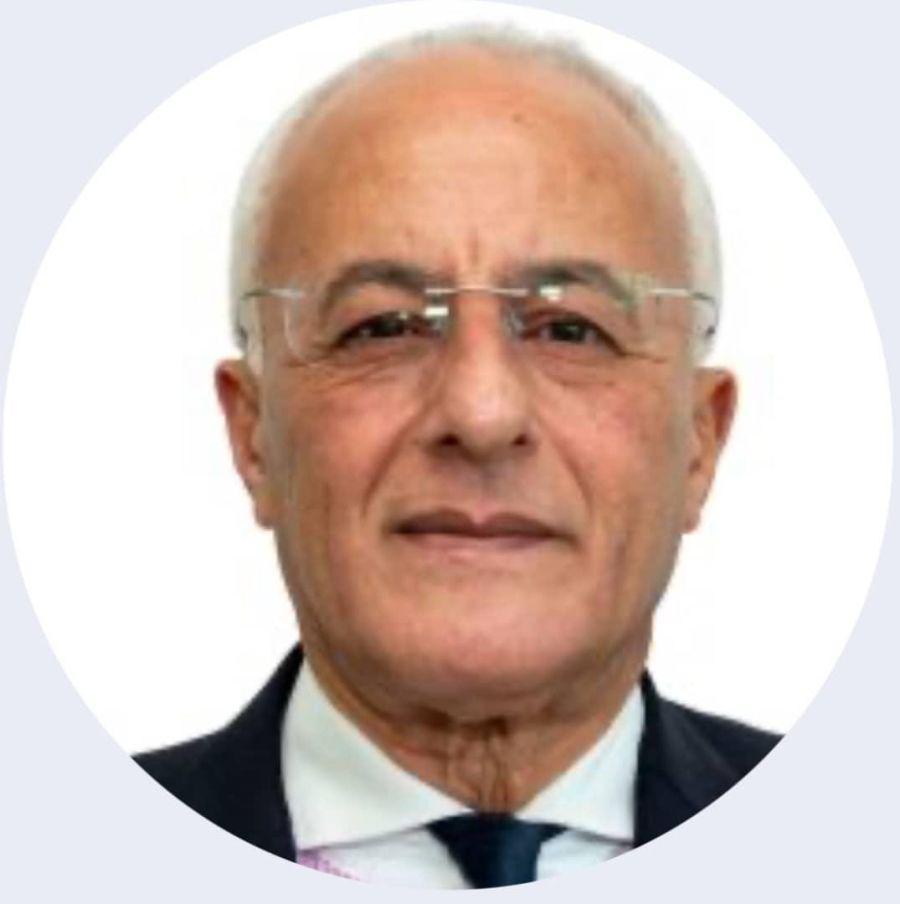
Dr. Issam Hajjaji is a distinguished Consultant Diabetologist at the Centre for Diabetes & Endocrinology in Tripoli, where he provides expert care to patients while also serving as a Teaching Staff member in the Department of internal medicine at Tripoli University. With a rich educational background, Dr. Hajjaji earned his MB BCh BAO BA from Trinity College Dublin, Ireland, in 1984, followed by MRCP (UK) in 1989, FRCP (Lon) in 2007, and FRCP (Edin) in 2010. His extensive training includes internships and rotations at prestigious institutions such as the Royal City of Dublin University Hospital in Ireland and Arrowe Park Hospital in the UK. Dr. Hajjaji has served in various medical roles, including as a Medical Registrar in Endocrinology & Diabetes at East & North Herts NHS Trust and as a Consultant in Endocrinology & Diabetes at Mater Private Hospital in Cork, Ireland. In addition to his clinical work, Dr. Hajjaji is actively involved in academia and research. He is a Senior Editor for the International Journal of Clinical Practice and has authored numerous publications, with an impressive h-index of 9. Furthermore, Dr. Hajjaji is committed to advancing knowledge in his field through his roles as Chairman of the Editorial Board for the Ibnosina Journal for Biomedical Sciences and as a Reviewer for prestigious journals like the Dubai Journal of Diabetes and the Gulf Journal of Diabetes & Metabolism. He also serves as the Current President of the Libyan Association for Diabetes & Endocrinology and as a Regional Advisor for Libya at the RCP Edinburgh. Additionally, Dr. Hajjaji has contributed to literature, including the “Guide to Diabetes in Libya” and a chapter on Libya in “Diabetes in Africa.”
Lecture title: Rising prevalence of diabetes in Libya
he rising prevalence of diabetes in Libya poses a significant public health challenge, necessitating urgent attention and proactive measures from healthcare authorities and stakeholders. Over recent years, Libya has witnessed a notable surge in diabetes cases, reflecting a global trend attributed to factors such as urbanization, sedentary lifestyles, unhealthy dietary habits, and an aging population. Multiple studies and epidemiological surveys have highlighted the escalating burden of diabetes in Libya, with alarming rates of both type 1 and type 2 diabetes mellitus. Contributing factors include rapid urbanization leading to lifestyle changes, limited access to healthcare services, inadequate health education, and cultural factors influencing dietary preferences. The consequences of uncontrolled diabetes are profound, ranging from debilitating complications such as cardiovascular disease, kidney failure, and blindness to significant economic burdens on healthcare systems. Furthermore, diabetes imposes a substantial societal burden through productivity loss and reduced quality of life for affected individuals and their families. Addressing the rising prevalence of diabetes in Libya requires a comprehensive approach encompassing preventive strategies, health promotion campaigns, improved access to healthcare services, early detection, and effective management programs. Collaboration between government agencies, healthcare providers, academic institutions, and community organizations is essential to implement evidence-based interventions and mitigate the impact of diabetes on public health and well-being in Libya.

Prof. Dorra Al-Khizami, a distinguished quality consultant engineer specializing in the intricate realm of medical analysis, epitomizes a consummate professional with a venerable legacy spanning over 17 illustrious years within this specialized domain. Graduating with a distinguished diploma in biology from the esteemed National Institute of Applied Sciences and Technology, her academic prowess is further augmented by her registration with the esteemed Engineers’ Association in Tunis, a testament to her unwavering commitment to professional excellence and continual growth. Embodying a relentless pursuit of perfection, Dorra has been instrumental in orchestrating the seamless implementation and rigorous enforcement of the ISO 15189 quality management system within laboratories under her purview. Her astute leadership and meticulous attention to detail have not only ensured compliance with stringent regulatory standards but have also catalyzed the accreditation process, thereby elevating the operational efficiency and global competitiveness of these facilities. Beyond her formidable technical acumen, Dorra’s indomitable spirit extends to the holistic development of human resources and the cultivation of a culture of safety and accountability within the workplace. Through targeted training initiatives and personalized mentorship programs, she empowers her colleagues to transcend their limitations and unlock their full potential, thereby fostering a collaborative environment conducive to innovation and continuous improvement. In her capacity as a visionary problem solver, Dorra possesses a remarkable aptitude for identifying latent inefficiencies and spearheading transformative initiatives aimed at optimizing equipment and streamlining operational processes. Leveraging her wealth of experience and keen analytical prowess, she navigates complex challenges with finesse, devising bespoke solutions tailored to the unique needs and constraints of each scenario. Her unwavering commitment to excellence is further evidenced by her meticulous attention to detail and unwavering adherence to best practices, ensuring that every aspect of her work reflects the highest standards of quality and precision. Her insatiable thirst for knowledge drives her to remain at the vanguard of technological advancements and industry trends, positioning her as a trusted advisor and thought leader within her field. Despite her myriad professional accomplishments, Dorra remains grounded in her commitment to serving her community and making a meaningful impact on society at large. Whether through volunteer initiatives or pro bono consultancy work, she channels her expertise and resources towards initiatives that promote social justice, environmental sustainability, and equitable access to healthcare.
Lecture title: ISO Standards in Medical Laboratory Information Systems
ISO 15189 encompasses aspects such as data management, result reporting, and proficiency testing, promoting standardization across laboratory operations. Additionally, ISO/IEC 27001 addresses information security management, safeguarding patient data confidentiality and integrity within LIS. Moreover, ISO 27799 focuses specifically on health informatics, providing guidelines for implementing security controls tailored to the healthcare sector. Compliance with ISO standards ensures that LIS adhere to best practices in data management, risk mitigation, and regulatory compliance. Furthermore, ISO 20387 outlines requirements for the exchange of laboratory data, promoting interoperability between LIS and other healthcare systems. This interoperability enhances communication and collaboration among healthcare providers, ultimately improving patient care and outcomes. In conclusion, adherence to ISO standards is essential for optimizing the functionality, security, and interoperability of Medical Laboratory Information Systems. By implementing these standards, healthcare organizations can enhance the efficiency, accuracy, and reliability of laboratory operations, ultimately contributing to better patient care and overall healthcare delivery.
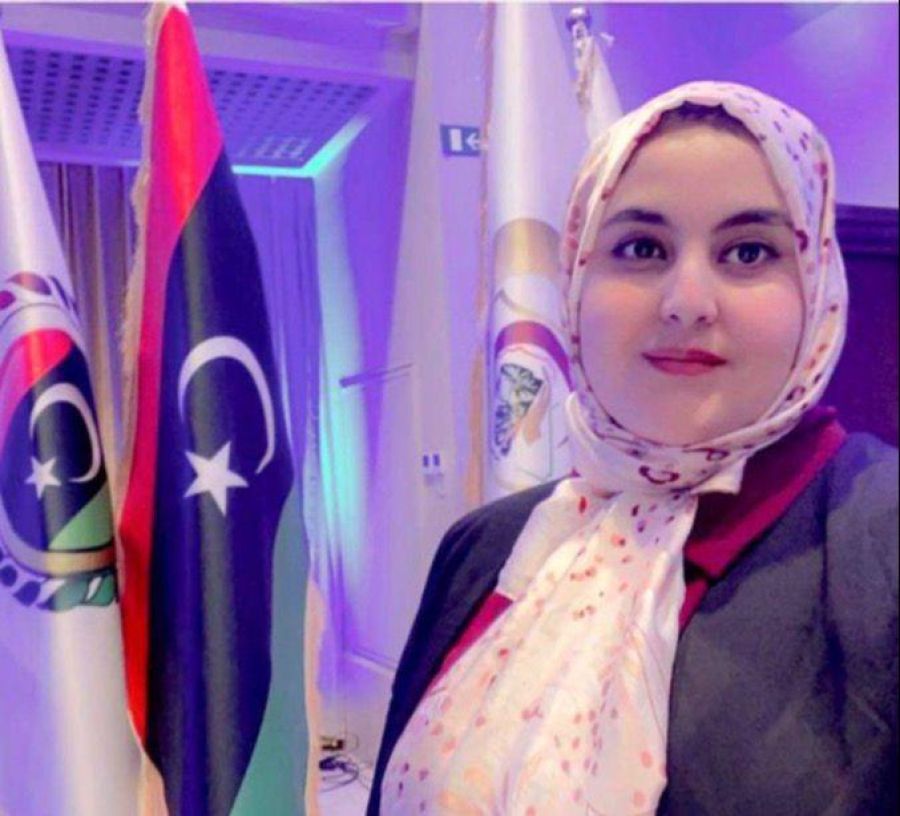
With a keen interest in medical technology and public health, I graduated with distinction in 2019, specializing in medical technology with a focus on public health. As of 2020, I serve as the supervisor of the Apheresis Unit within the Medical Intensive Care Department at Tripoli University Hospital. Additionally, I am a proud member of the American Apheresis Association (ASFA), holding a 95% experience certificate endorsed by the American Board (QIA). My expertise spans various blood separation devices, reflecting a deep understanding of this critical aspect of medical technology. Dedicated to advancing healthcare, I am committed to ongoing professional development and contributing positively to the field of public health.
Lecture title: Therapeutic Apheresis
The focus of the lecture is to explore the significant advancements and innovative practices within the field of therapeutic apheresis, particularly highlighting its application and impact within the Libyan healthcare context. The therapeutic apheresis unit serves as a critical component in managing various medical conditions by employing cutting-edge techniques for blood component separation. Throughout the lecture, we will delve into the intricacies of therapeutic apheresis procedures, including the separation of platelets, white blood cells, red blood cell exchange, and plasmapheresis. One of the key highlights of the discussion is the introduction of innovative therapeutic apheresis sessions that are being implemented for the first time in Libya. These sessions represent a paradigm shift in healthcare delivery, offering novel approaches to treating a wide range of medical conditions. By incorporating state-of-the-art technologies and methodologies, these innovative sessions aim to optimize patient outcomes and enhance the overall quality of care. Furthermore, the lecture will provide insights into the operational aspects of the therapeutic apheresis unit, including workflow management, equipment utilization, and patient safety protocols. Attendees will gain a comprehensive understanding of the infrastructure required to establish and maintain an efficient therapeutic apheresis program within a healthcare facility. Moreover, the presentation will shed light on the clinical applications of therapeutic apheresis across various medical specialties, illustrating its versatility and effectiveness in addressing diverse patient needs. Case studies and real-world examples will be discussed to underscore the clinical efficacy and positive outcomes associated with therapeutic apheresis interventions.
Overall, the lecture aims to provide attendees with a deeper appreciation of the role of therapeutic apheresis in modern healthcare practice, emphasizing its potential to revolutionize treatment approaches and improve patient care standards in Libya. By showcasing innovative sessions and exploring emerging trends, the presentation seeks to inspire healthcare professionals to embrace advancements in therapeutic apheresis and leverage its benefits for the betterment of patient health and well-being.
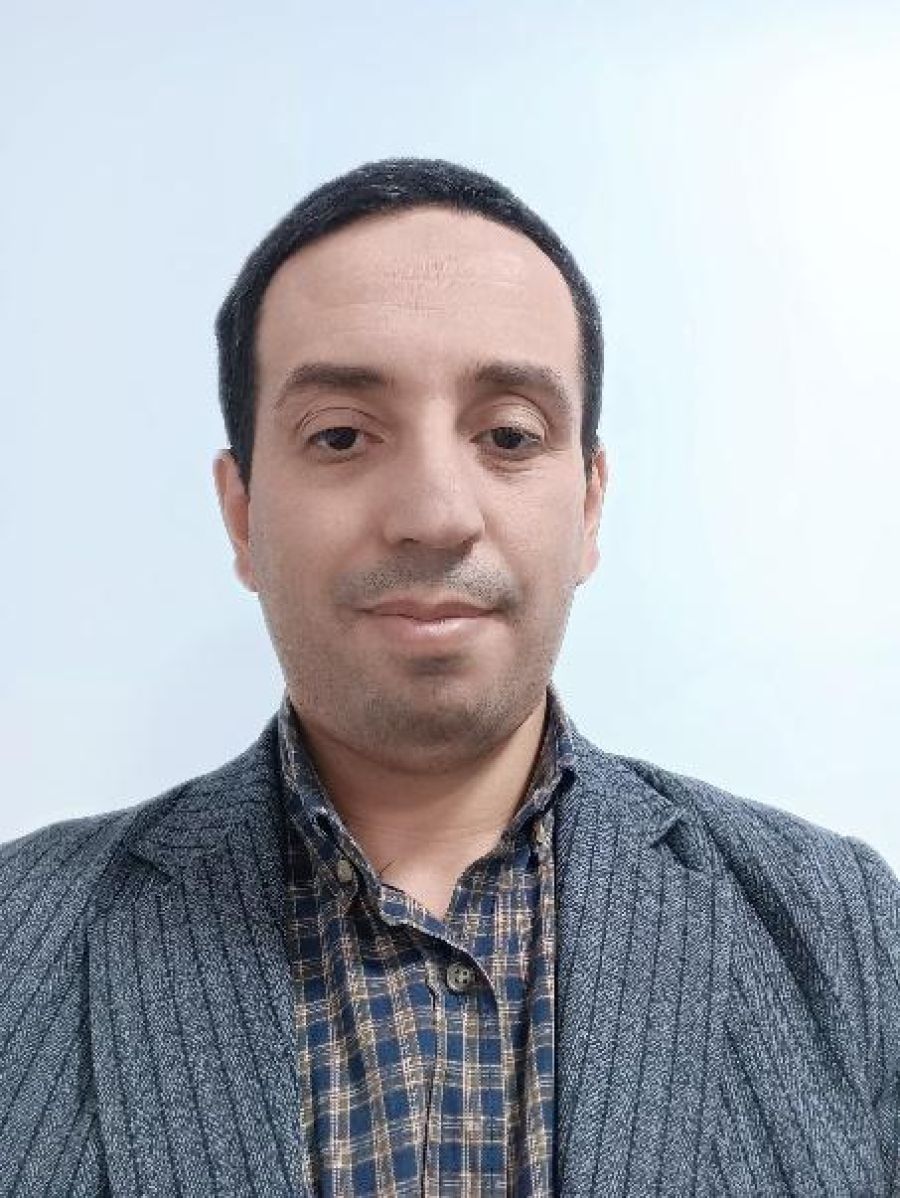
Dr. Ahmed, a steadfast professional, obtained his Bachelor’s degree in Medicine and Surgery from Tripoli University, Libya in 2009, followed by a Diploma in Cardiology from the Arab African Academy, Libya in 2022. With over 15 years of tenure at The National Heart Center in Tajoura, Libya, he has become an indispensable asset to the Cardiac Medicine department. His proficiency extends across diverse realms within cardiology, encompassing Ischemic Heart Disease, Valvular Heart Disease, Heart Failure, and Arrhythmias. Dr. Ahmed demonstrates mastery in conducting echocardiography, Stress ECG, and programming Intracardiac Devices. His unwavering dedication to patient care, coupled with a relentless pursuit of knowledge and professional growth, distinguishes him within his field. In essence, Dr. Ahmed amalgamates extensive expertise, specialized competencies, and an indomitable work ethic to make substantial contributions to the realm of cardiology. His steadfast commitment to collaborative efforts and perpetual learning not only ensures optimal patient outcomes but also propels advancements in the domain of cardiac medicine.
Lecture title: Hypertrophic Cardiomyopathy
Hypertrophic Cardiomyopathy (HCM) stands as a genetic cardiac ailment distinguished by an anomalous thickening of the heart muscle, primarily affecting the ventricles. Manifestations of this condition may encompass chest discomfort, breathlessness, and irregular heart rhythms. Effective management strategies typically involve a multifaceted approach incorporating lifestyle modifications, pharmacological interventions, and occasionally, surgical procedures. Given the genetic nature of HCM, individuals diagnosed with the condition may benefit from genetic counseling to comprehend familial implications and potential risk factors. Lifestyle adjustments such as regular exercise tailored to individual capacity, a heart-healthy diet low in sodium and saturated fats, and abstaining from tobacco and excessive alcohol intake can play pivotal roles in symptom management and disease progression. Pharmacological interventions may include medications aimed at regulating heart rate and rhythm, alleviating symptoms, and preventing complications such as blood clots. Surgical options, including septal myectomy or alcohol septal ablation, may be considered in cases where symptoms persist despite optimal medical therapy or in individuals at high risk of adverse outcomes. Collaborative efforts between patients, healthcare providers, and specialists in cardiology are essential for devising personalized treatment plans that address the unique needs and circumstances of individuals living with HCM, ultimately aiming to optimize quality of life and mitigate associated risks.
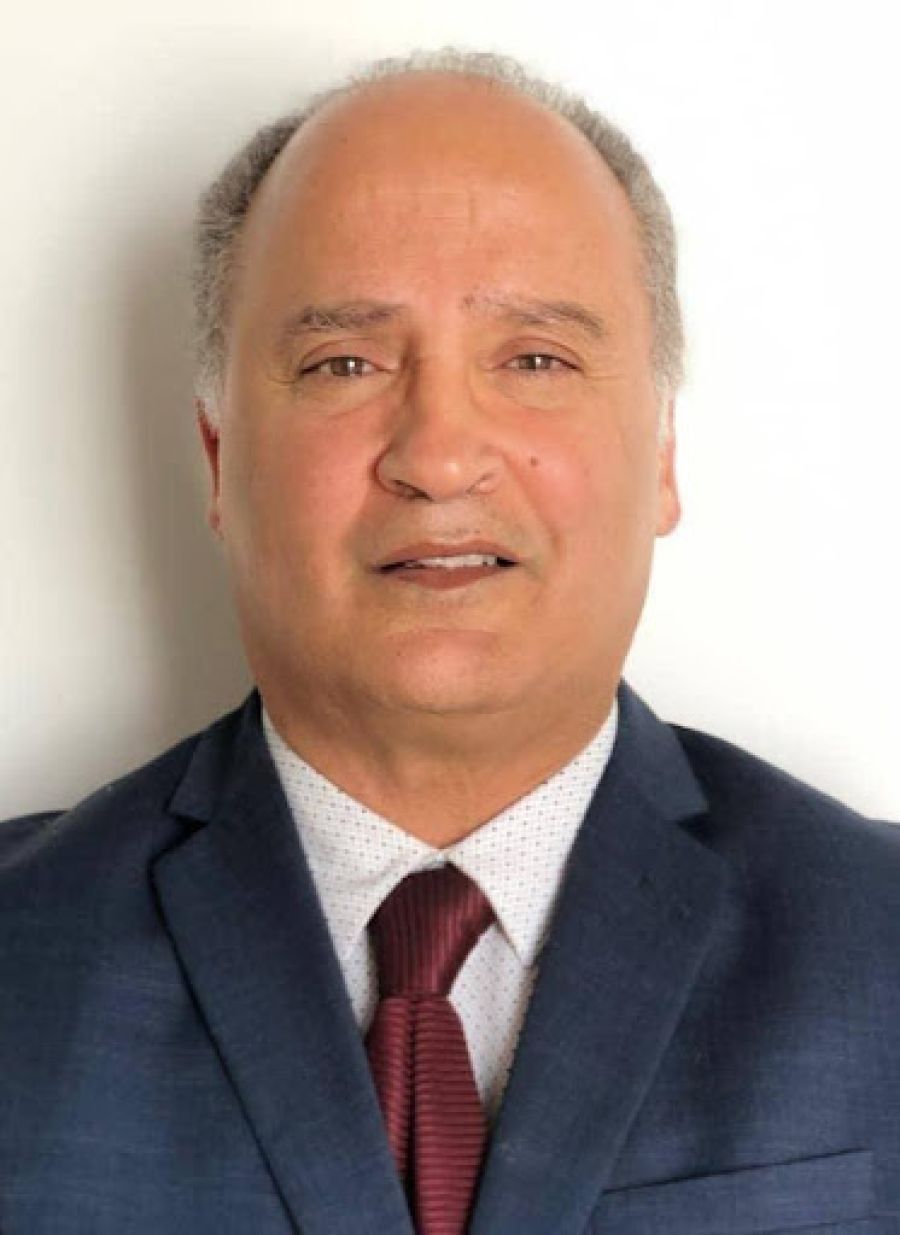
Dr Ali Elneihoum, MD, PhD, FESC, Consultant Cardiologist Professor of Medicine, Faculty of Medicine, Benghazi University, Vice President Libyan Cardiac Society, Professional Affiliations: Dr. Elneihoum serves as a Consultant Cardiologist at the Ministry of Health (MOH). In this role, he provides expert medical care and advice to patients with cardiovascular issues. Academic Position: He holds the esteemed position of Professor of Medicine at the Faculty of Medicine, Benghazi University. As a professor, he is involved in teaching medical students, conducting research, and contributing to the academic community. Specialization: With a focus on cardiology, Dr. Elneihoum has dedicated his career to the study and treatment of heart diseases. His expertise encompasses a wide range of cardiovascular conditions, including but not limited to coronary artery disease, heart failure, arrhythmias, and valvular heart disease. Credentials: Dr. Elneihoum has earned both an MD (Doctor of Medicine) and a PhD (Doctor of Philosophy) degree, indicating his extensive knowledge and research experience in the field of medicine. Additionally, he is recognized as a Fellow of the European Society of Cardiology (FESC), which signifies his professional standing and commitment to excellence in cardiology. Leadership Role: He holds the position of Vice President of the Libyan Cardiac Society, demonstrating his leadership abilities and dedication to advancing cardiovascular care in Libya. In this capacity, he plays a key role in shaping the direction of the society and advocating for improved heart health initiatives. Dr. Ali Elneihoum’s contributions to the field of cardiology through his clinical work, academic endeavors, and leadership roles have undoubtedly made a significant impact on the healthcare landscape in Libya. His multifaceted expertise and commitment to excellence continue to benefit patients, students, and colleagues alike.
Title: Panel: Stent Save a Life Initiative (Libyan Cardiac Society)
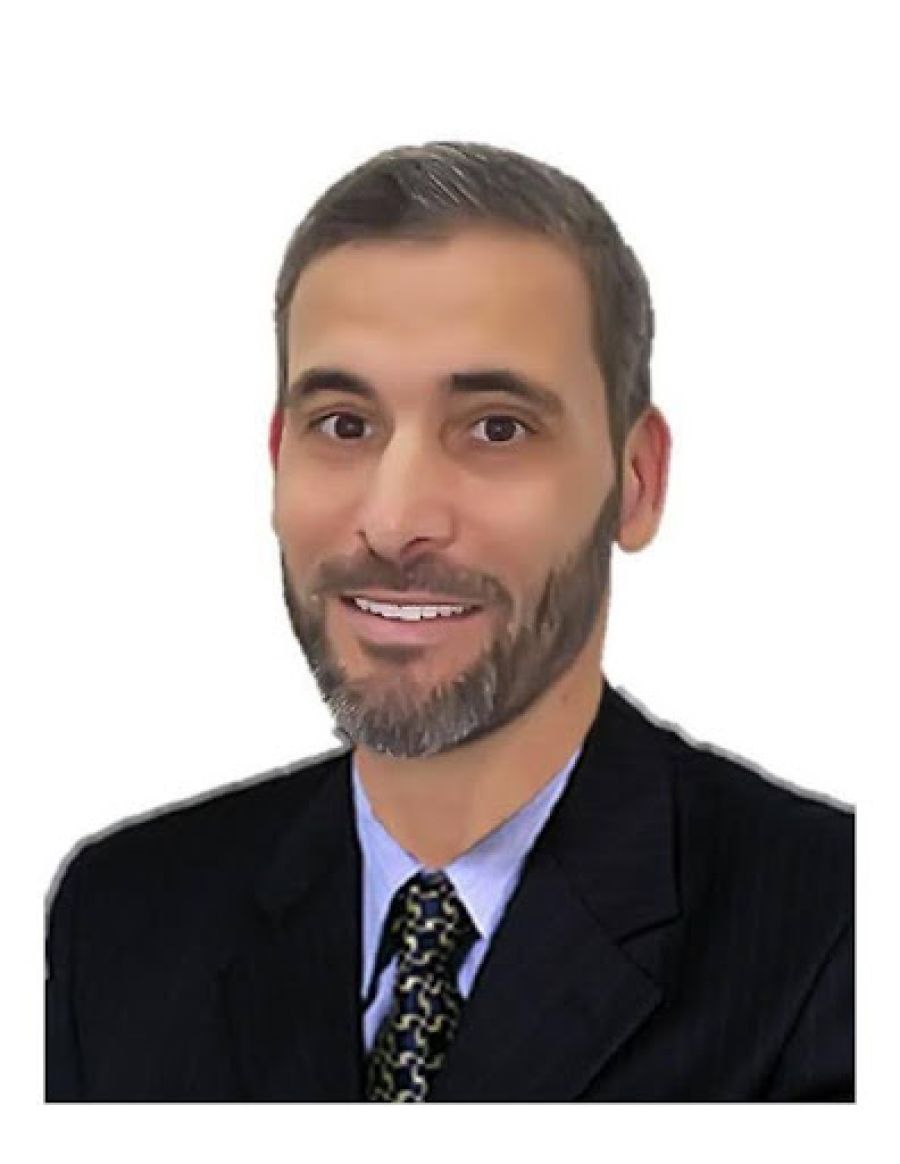
Dr. Abdulgani Abonowara is an accomplished Interventional Cardiologist with extensive qualifications and experience. He holds a Medical Doctorate (MD) and is board-certified in Cardiovascular Disease by the American Board of Cardiovascular Disease (FACC), as well as in Internal Medicine by the American Board of Internal Medicine (ABIM). He is also a Fellow of the Royal College of Physicians and Surgeons of Canada (FRCPC) in both Cardiology and Internal Medicine.
Dr. Abonowara serves as a Consultant Interventional Cardiologist at the National Heart Center in Tripoli and is an Associate Clinical Professor of Medicine at McMaster University. His expertise includes Interventional Cardiology procedures, such as permanent pacemaker and device implantation, as well as proficiency in Transesophageal Echocardiography. His diverse background and qualifications reflect a high level of proficiency and dedication to cardiovascular care and education.
Workshop title: 12-Lead ECG Workshop
Target audience: junior physicians, maximum attendees 30s.
Workshop Description: This is one-day workshop is designed to provide participants with a comprehensive understanding of 12-lead electrocardiogram (ECG) interpretation. Through a combination of theoretical session, hands-on practice and case studies, attendees will gain the knowledge and skills necessary to confidently analyze common and clinically relevant ECGs patterns. From basic concepts to advanced rhythm recognition, this workshop will cover a wide range of essential topics.
Workshop objectives:
Develop systematic approach to read 12-lead ECG.
Recognize normal and abnormal ECG waveforms and intervals.
Recognize life-threatening ECG patterns including STEMI & cardiac arrhythmias including atrial fibrillation, SVT, VT & heart blocks.
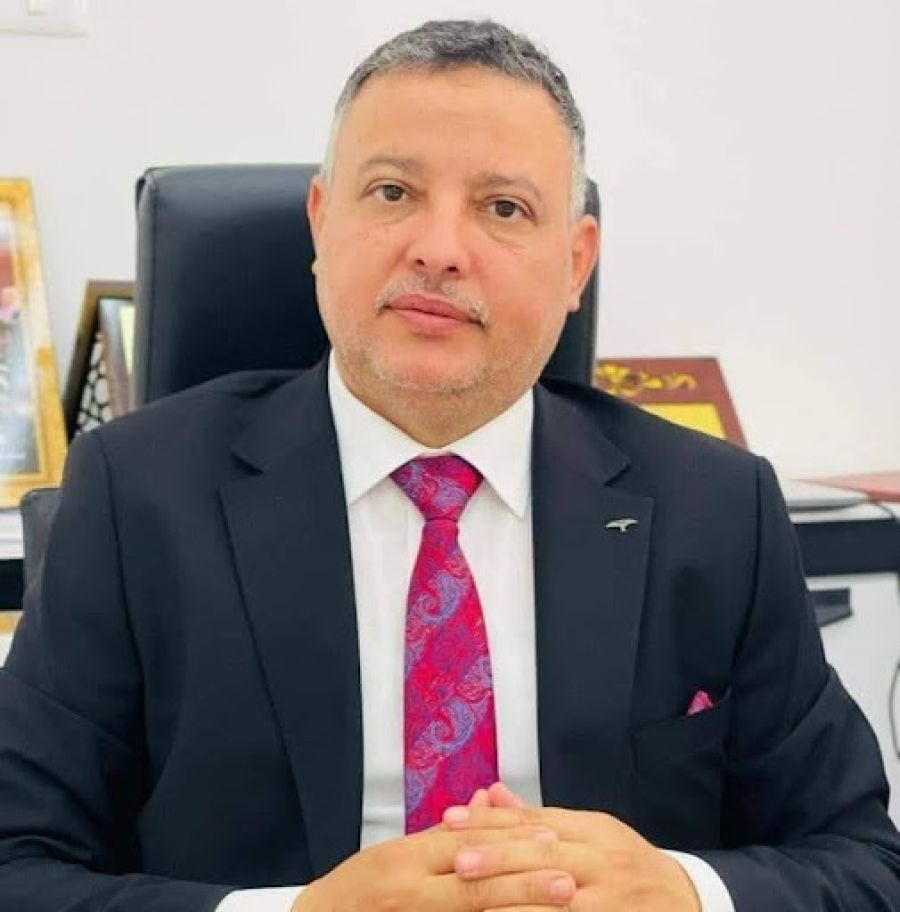
Dr. Al-Zarrouk Muhammad Al-Zaidi serves as the Coordinator of the International Treatment Program at the General Health Council, overseeing the implementation and management of healthcare initiatives aimed at providing treatment to patients from diverse backgrounds. In this role, he coordinates with various stakeholders to ensure the efficient delivery of medical services, including coordinating medical missions, facilitating patient referrals, and liaising with international healthcare organizations. Furthermore, Dr. Al-Zaidi holds the position of Director General of the Medical Academy of Medical Sciences, where he plays a pivotal role in shaping medical education and training programs. As Director General, he is responsible for developing curriculum standards, organizing educational activities, and fostering professional development opportunities for medical students, residents, and healthcare professionals. With his extensive experience and leadership in healthcare management and medical education, Dr. Al-Zaidi demonstrates a strong commitment to advancing healthcare delivery and professional development in the medical field. He is dedicated to improving patient care outcomes, promoting collaboration among healthcare professionals, and ensuring the highest standards of medical practice and education.
Lecture title: International Classification of Diseases (Medical Informatics)
The international Classification of Diseases (Medical Informatics) delves into the foundational framework of classifying and coding diseases, injuries, and health conditions. It provides a comprehensive overview of the International Classification of Diseases (ICD) system, emphasizing its critical role in standardizing health information management globally. This lecture covers the historical development of the ICD, tracing its evolution from a simple classification system to its current status as a standardized tool used by healthcare professionals worldwide. It explores the structure and organization of the ICD, highlighting its hierarchical coding system and the principles governing disease classification. Furthermore, the lecture discusses the significance of the ICD in healthcare practice, research, and policy-making. It elucidates how the ICD facilitates accurate documentation, analysis, and exchange of health data, enabling effective disease surveillance, epidemiological research, and healthcare planning. Moreover, the lecture explores the applications of the ICD in medical informatics, emphasizing its integration into electronic health records (EHRs), healthcare coding systems, and clinical decision support tools. It underscores the importance of healthcare professionals understanding and utilizing the ICD to enhance the quality, efficiency, and interoperability of healthcare information systems. Overall, this lecture equips attendees with a comprehensive understanding of the International Classification of Diseases within the context of medical informatics, empowering them to effectively navigate and leverage this essential tool in healthcare practice and research.
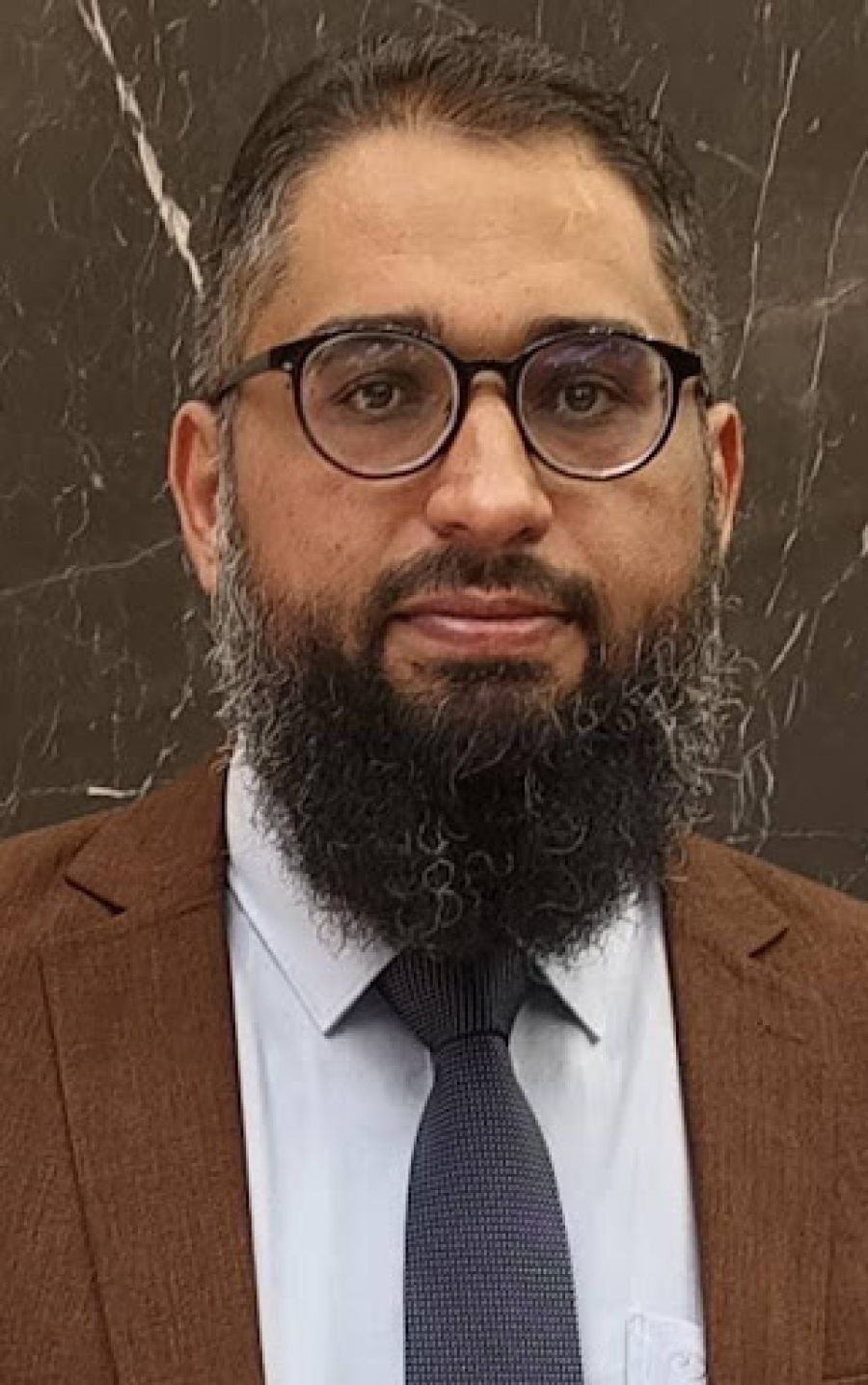
Dr. Elhassan M. Eghwila MD is a highly respected medical professional specializing in anesthesia, intensive care, and resuscitation. Holding key leadership roles, including Chair of the Libyan Society of Anesthesia Intensive Care and Resuscitation, Africa Regional Section board member, and Pan Arab Federation of Societies of Anesthesiologists board member, Dr. Eghwila demonstrates his commitment to advancing the field of anesthesia and critical care medicine. As a Consultant Anesthesiologist at Zliten Medical Centre, he provides expert medical care to surgical patients, ensuring their safety and comfort throughout procedures. Additionally, Dr. Eghwila plays a vital role in medical education as a lecturer of anesthesia and intensive care at Zliten Medical School, where he imparts knowledge and skills to aspiring healthcare professionals. Through his dedication to patient care, education, and professional advocacy, Dr. Elhassan M. Eghwila MD contributes significantly to the enhancement of healthcare standards in Libya and beyond.
Lecture title: Bridging the Gap: Exploring Barriers to Effective Pain Management in Libyan Anesthesia Practices
Bridging the Gap: Exploring Barriers to Effective Pain Management in Libyan Anesthesia Practices” delves into the challenges faced by anesthesia practitioners in Libya in providing optimal pain management for patients. Despite advancements in medical technology and knowledge, several barriers hinder the delivery of effective pain relief in this context. These barriers may include limited access to essential medications and equipment, inadequate training and education on pain management techniques, insufficient awareness among healthcare professionals and patients about the importance of pain control, as well as cultural and societal perceptions influencing pain perception and treatment approaches. Additionally, logistical challenges such as understaffing, lack of standardized protocols, and resource constraints further exacerbate the issue. Addressing these barriers requires a multifaceted approach, including policy interventions to improve access to medications and resources, enhancing training programs for anesthesia practitioners, raising awareness about pain management among healthcare providers and the general public, and promoting interdisciplinary collaboration to develop comprehensive pain management strategies. By identifying and addressing these barriers, Libyan anesthesia practices can strive towards enhancing patient outcomes and ensuring that all individuals receive the pain relief they deserve.
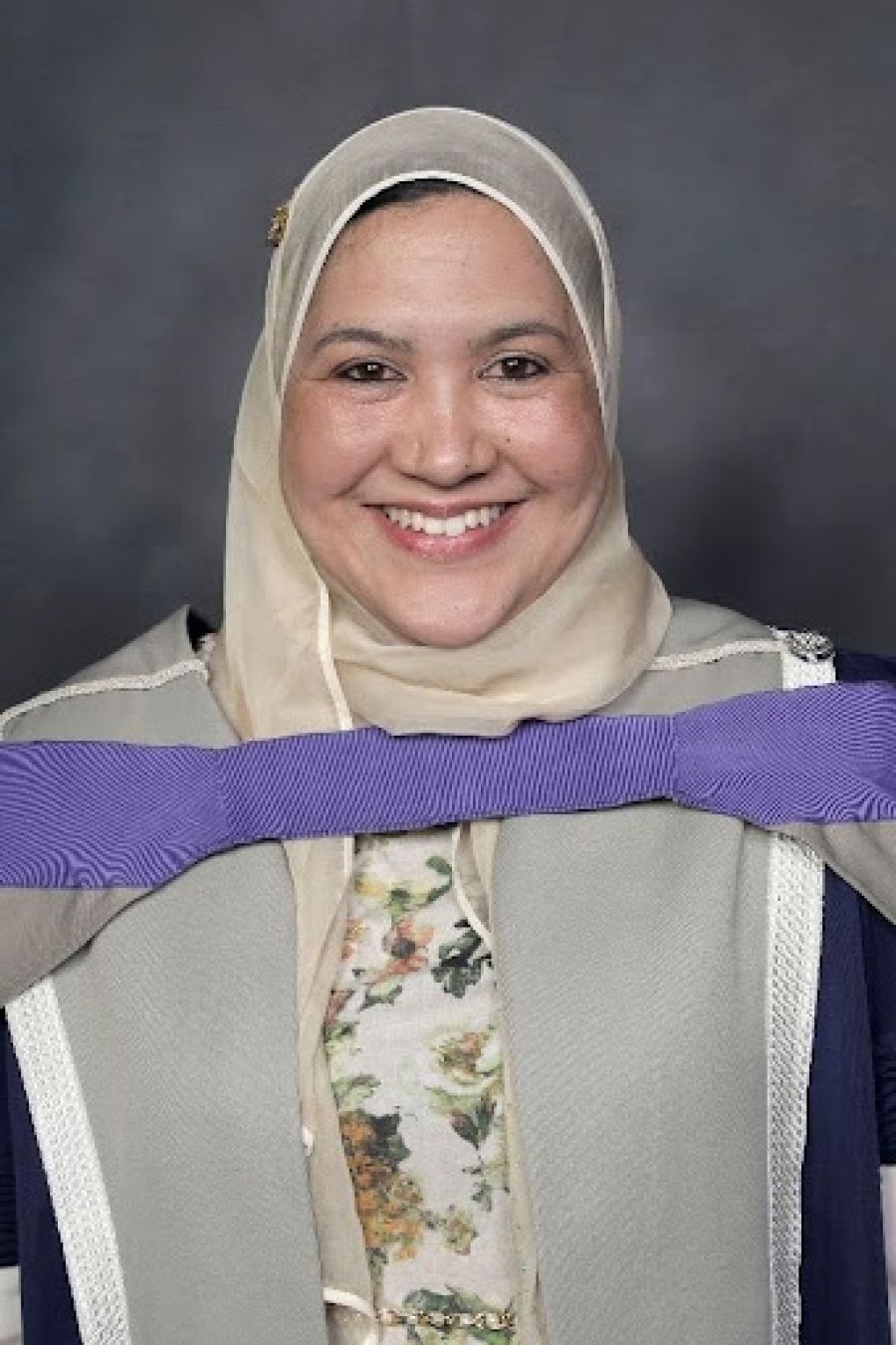
Dr. Farzana Moosajee epitomizes diligence and compassion, evident since her inception into the medical field as a student in 2000. Her academic prowess garnered accolades, including top student awards in Medical Physiology and Virology during her undergraduate tenure. Graduating Cum Laude from the University of Cape Town in 2005, she demonstrated exceptional proficiency, obtaining honors and distinctions in pre-clinical examinations. Embarking on her professional journey, Dr. Moosajee completed her internship at prestigious institutions in Johannesburg, followed by community service with the South African Military Health Services. Her passion for internal medicine and rheumatology flourished during her tenure at Groote Schuur Hospital, where she served as a medical officer before advancing to a medical registrar position at her Alma Mater, UCT. Dr. Moosajee’s pursuit of excellence led her to achieve Fellowship of the College of Physicians in 2014, supplemented by a Certificate of Rheumatology examination in 2016. Currently pursuing a Master’s in Philosophy in Health Professionals Education at Stellenbosch University, she actively engages in clinical practice, academic endeavors, and mentorship of medical students. As an examiner at the Colleges of Medicine of South Africa examinations, Dr. Moosajee exhibits proficiency in managing a spectrum of medical and rheumatological conditions, with particular expertise in rheumatoid arthritis, osteoarthritis, gout, osteoporosis, pain amplification syndromes, and connective tissue diseases.
- Lecture title: Approach to Lower Back Pain
Presenting the topic of “Approach to Lower Back Pain” at an international conference is crucial for several reasons. Firstly, lower back pain is a prevalent and challenging health issue worldwide, affecting millions of people and causing significant disability and economic burden. Sharing insights and best practices in managing lower back pain can contribute to improving patient outcomes globally. Secondly, the approach to lower back pain involves a multidisciplinary perspective, integrating medical, physical, and psychological aspects of care. By presenting this topic, attendees can gain valuable knowledge and strategies to enhance their practice and better serve their patients. Lastly, addressing lower back pain aligns with the conference’s goal of advancing medical knowledge and fostering collaboration among healthcare professionals on a global scale.
- Workshop title:
Comprehensive Musculoskeletal Examination: GALS Approach for Paediatric and Adult Patients
This workshop will cover the evaluation of both the spine and hip, incorporating the GALS approach, which stands for Gait, Arms, Legs, and Spine. Participants will learn systematic assessment techniques for the musculoskeletal system in both Paediatric and adult populations, focusing on identifying abnormalities in the spine and hip regions. The workshop will provide hands-on practice and case-based discussions to enhance participants’ skills in performing thorough musculoskeletal examinations.
Clinical Skills Workshop: Rheumatology Imaging and Connective Tissue Disease Assessment
This workshop will cover the interpretation of radiographs in rheumatology, focusing on recognizing characteristic findings of connective tissue diseases. Additionally, participants will learn about capillaroscopy as a diagnostic tool for connective tissue diseases, enhancing their ability to identify and manage patients with rheumatological conditions. The workshop will include case-based discussions and hands-on practice sessions to reinforce learning and skill development in rheumatology assessment techniques.

Dr. Nour Abduraziq Elsousaa, born on March 23, 1993, in Tripoli, Libya, holds a Bachelor’s degree in Pharmacy from Tripoli University, achieving an excellent grade of 88%. He further pursued his academic journey and obtained a Master’s degree in Microbiology and Immunology, graduating with distinction. Throughout his career, Nour has demonstrated a commitment to education and professional development. He served as an Administrator at Tripoli University’s Department of Microbiology and Immunology from 2015 to 2020, where he prepared and delivered practical lectures to undergraduate students and supervised laboratory work. As a Pharmacist at Almarkaziya Pharmacy from 2016 to 2018, Nour excelled in dispensing prescribed and over-the-counter drugs to patients and mentored newly graduated pharmacists. He continued to contribute to education as a Lecturer at Rehab Almostakhbal Educational Center, specializing in pharmaceutical training courses and cosmeceutical science. Currently, Nour holds the position of Assistant Lecturer in the Microbiology and Immunology Department at Tripoli University. He is also an accomplished author, having launched two books in pharmaceutical training and cosmeceutical science in 2023. Nour possesses strong communication, critical thinking, and public speaking skills. He excels in planning lectures, organizing events, and managing his time effectively. Proficient in software applications and professional writing, Nour is dedicated to continuous learning and development in his field. Outside of his professional endeavors, Nour enjoys writing and reading articles, as well as engaging in sports activities. He describes himself as a dedicated pharmacist and educator, passionate about making a positive impact in both academic and practical settings.
Lecture title: The Role of Pharmaceutical Care in Diabetes Mellitus Patients
Diabetes mellitus, a chronic metabolic disorder characterized by elevated blood glucose levels, necessitates a multidisciplinary approach for effective management. Pharmaceutical care holds a central position in optimizing patient outcomes in diabetes management. This abstract provides an overview of the crucial role and impact of pharmaceutical care in diabetes mellitus patients. Pharmaceutical care employs a patient-centered approach, focusing on optimizing medication therapy outcomes. In diabetes management, this involves various activities such as medication selection, dosage adjustment, patient education, adherence counseling, and monitoring therapeutic outcomes. The primary objective is to achieve and sustain optimal glycemic control while mitigating complications. Medication selection is pivotal, considering various antidiabetic classes available. Pharmacists collaborate with the healthcare team, assessing individual patient needs, comorbidities, and medication-related factors to tailor treatment regimens. They also consider cost-effectiveness, potential drug interactions, and adverse effects to ensure patient safety and adherence. Dosage adjustment and glycemic control are critical aspects. Pharmacists aim to minimize risks of adverse effects, including hypoglycemia, through careful dosage management. Patient education and adherence counseling are integral. Pharmacists provide comprehensive education on diabetes self-management, addressing concerns, misconceptions, and barriers to adherence, thus promoting medication adherence and lifestyle modifications. Monitoring therapeutic outcomes is essential for evaluating treatment effectiveness. Pharmacists assess parameters such as glycemic control, lipid profile, and blood pressure. In conclusion, pharmaceutical care significantly impacts diabetes management by achieving and maintaining optimal glycemic control, enhancing patient quality of life, and reducing complications. Through medication optimization, patient education, adherence support, and outcome monitoring, pharmacists play a crucial role in diabetes care, ensuring safe and effective medication therapy. The lecture will cover the role of pharmaceutical care, success stories, treatment landscape, emerging trends, future directions, and potential challenges in implementing new drug options.
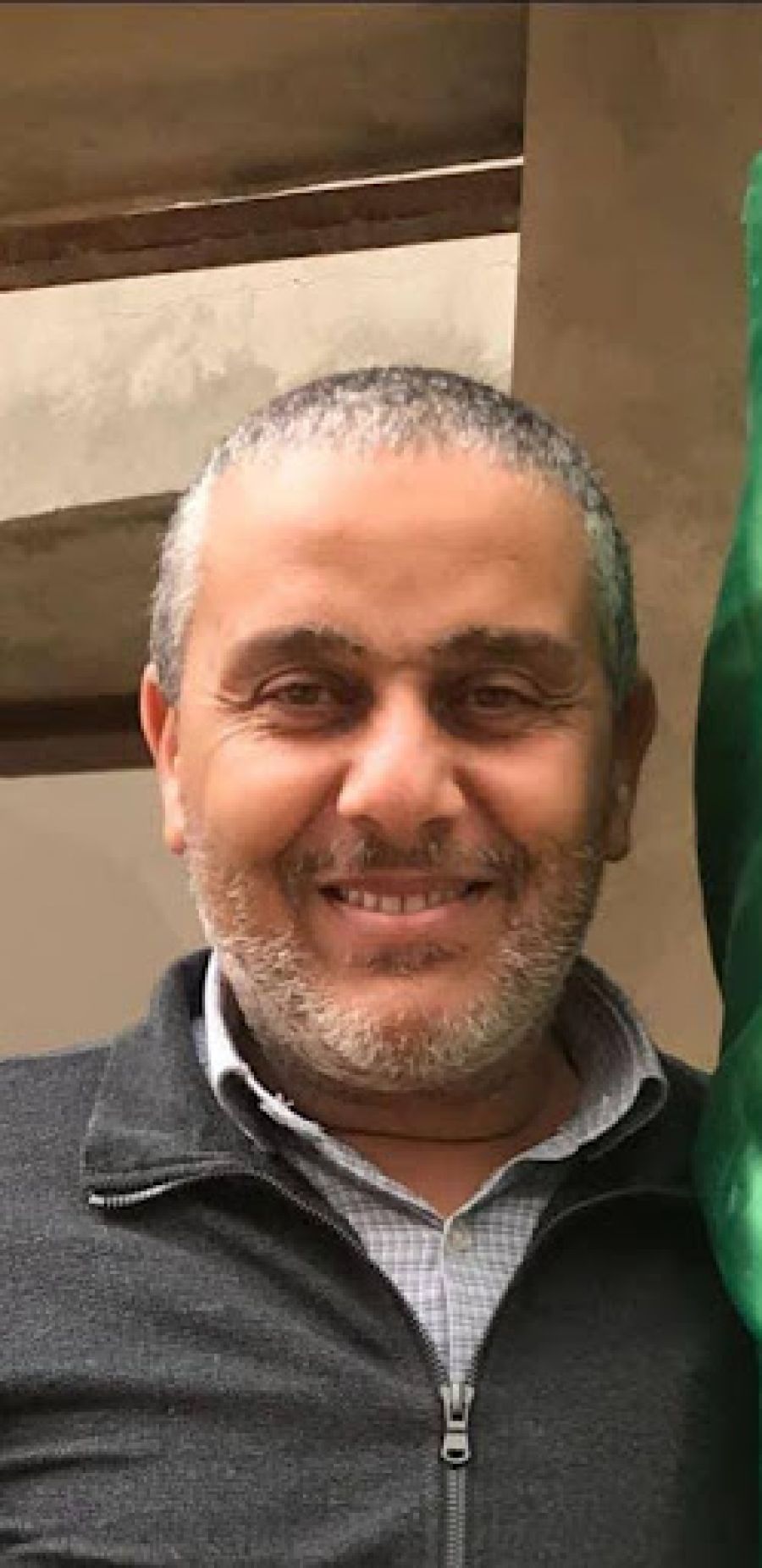
Dr. Osama Bheleel, a distinguished medical professional, holds the prestigious titles of MBBCh and Facharzt (Germany), signifying his extensive medical education and specialization in cardiology. With a fervent dedication to advancing cardiac care, Dr. Bheleel serves as the President of the Libyan Cardiac Society, demonstrating his leadership in the field. Additionally, he serves as the Consultant cardiologist in the Department of Cardiology at Tripoli university hospital in Libya, where he oversees the delivery of specialized cardiac care and contributes to development of medical services in the region. As an Interventional Cardiologist, he specializes in diagnosing and treating cardiovascular diseases through minimally invasive procedures such as angioplasty and stenting. Dr. Bheleel’s expertise lies in employing cutting-edge techniques to address complex cardiac conditions, ensuring optimal patient outcomes. Throughout his career, he has been actively involved in research, contributing valuable insights to the field of cardiology. Dr. Bheleel’s commitment to enhancing healthcare extends beyond clinical practice; he is deeply involved in medical education and training, nurturing the next generation of cardiologists. With a compassionate approach and unwavering commitment to excellence, also, continues to make significant contributions to the advancement of cardiac care, both nationally and Internationally.
Lecture title: Stent Save a Life Initiative
Initiative overview: Stent Save a Life is a national initiative proposed by the Libyan Cardiac Society to establish well-occupied cardiac catheterization facilities staffed by well trained and qualified healthcare professionals to provide primary percutaneous coronary interventions free of charge during the critical “golden hours’ following acute ST-Elevation Myocardial Infarction (STEMI). This initiative aims to save the lives of patients suffering from acute heart attack in Libya, which is the leading cause of death in Libya.
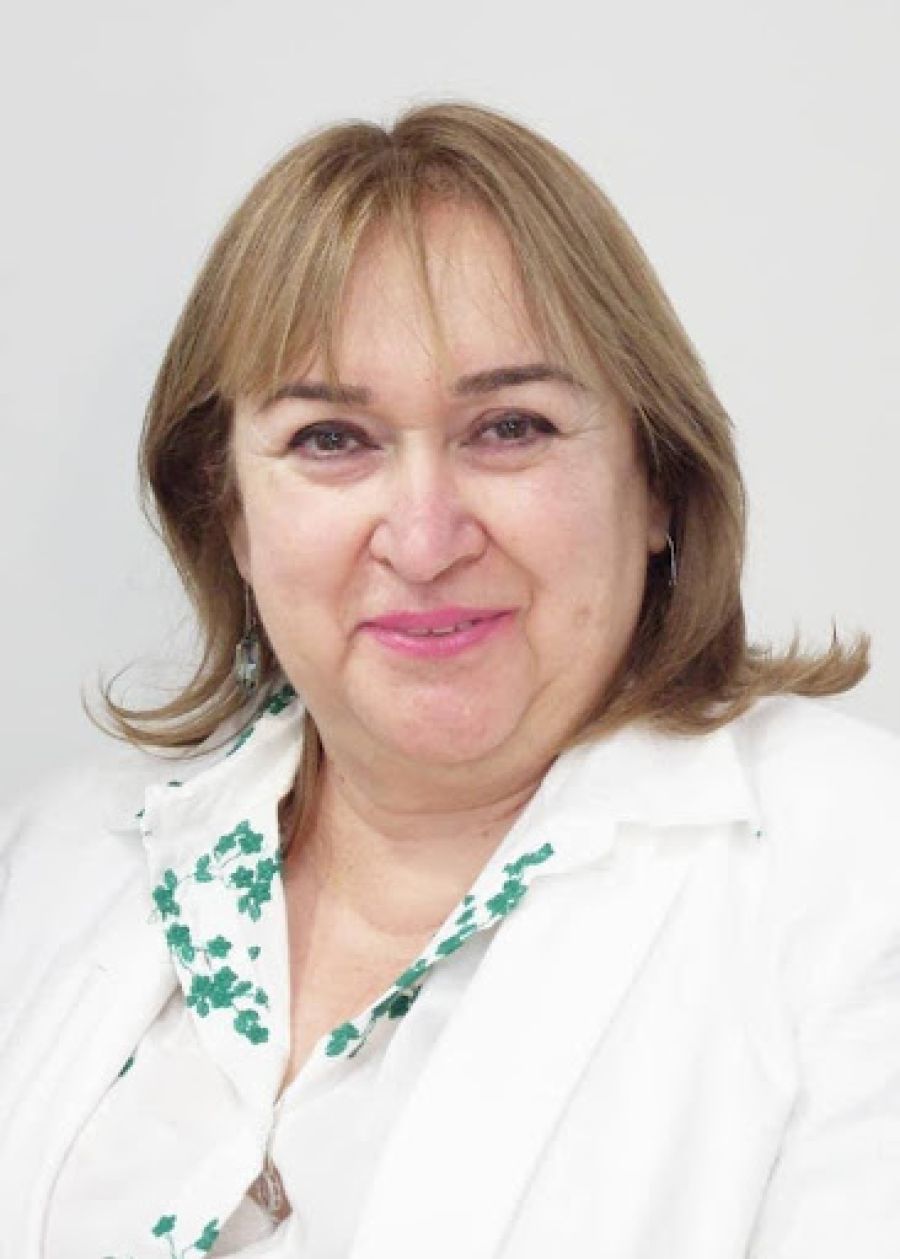
Sahar Abdul-Rasool graduated from Baghdad University College of medicine. She obtained her MSc from the University of Al-Nahrain (Baghdad, Iraq) and a PhD from the University of Cape town. In 2021 she became a fellow of the Royal College of Physicians (London) in the field of medical education. She has published in the field of molecular oncology and medical education. Currently, she is a senior lecturer at the Department of Medical Biosciences at the University of Western cape, in addition to being the teaching and learning executive and a faculty academic planning member. Currently, she is a senior lecturer at the Department of Medical Biosciences at the University of Western cape, in addition to being the teaching and learning executive and a faculty academic planning member.
- Lecture title: Keeping abreast of breast cancer
Join us for the “Keeping abreast of breast cancer” lecture by Professor Sahar Hussein from the Royal College of Physicians (London). Gain insights into the importance of early detection and prevention of breast cancer. Benefit from her globally recognized expertise.
- Workshop title: A workshop on publishing research in Medical Filed.
The workshop consists of theoretical and practical sessions that aim at:
How to go about building a good literature review: Search engines.
Designing and writing paragraphs in English: Coherent paragraphs.
Publishing Clinical trials.
Journal selection: Impact factor and predatory journals, Editing and submission.
Who should attend?
Junior medical doctors and mid-career professional who to publish their scientific research, clinical trials and write review articles. The researcher needs to bring their laptops
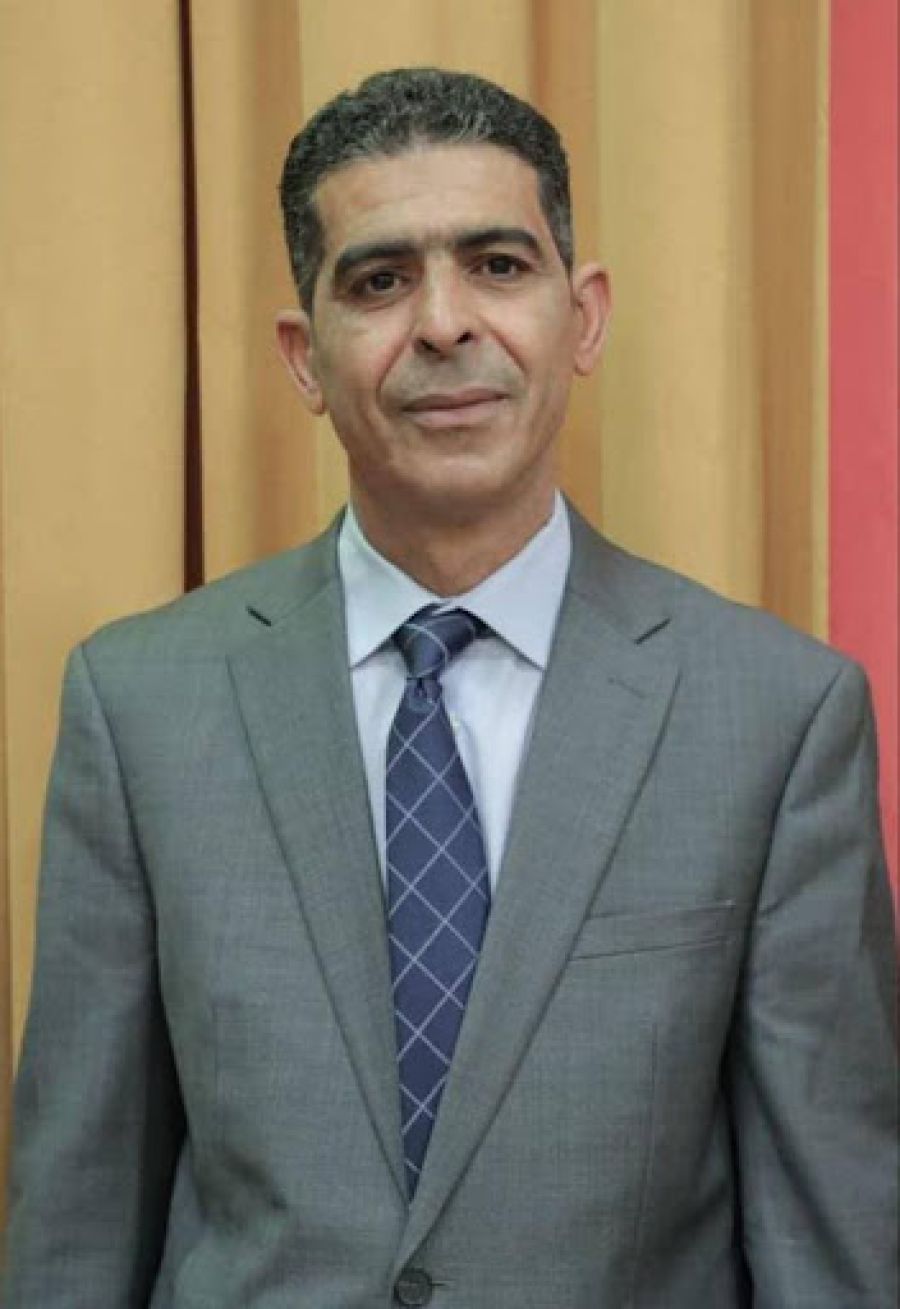
The Deputy Minister of Health for Hospital Affairs at the Ministry of Health in Libya, Tripoli, plays a pivotal role in overseeing and managing the healthcare system’s hospital-related activities and affairs. This high-ranking official is responsible for formulating policies, strategies, and guidelines to ensure the efficient operation and delivery of healthcare services within hospitals across the country. Their duties include supervising hospital administration, resource allocation, budgeting, and infrastructure development to maintain high standards of patient care and safety. Additionally, the Deputy Minister of Health for Hospital Affairs collaborates with other government agencies, healthcare professionals, and stakeholders to address healthcare challenges, improve healthcare access, and promote public health initiatives. They also represent the Ministry of Health in various national and international forums, advocating for healthcare reforms and initiatives aimed at enhancing healthcare delivery and outcomes for the population of Libya. With their expertise and leadership, the Deputy Minister of Health for Hospital Affairs plays a crucial role in advancing the healthcare sector and addressing the healthcare needs of the Libyan people.
Title: Panel Title: Panel: Stent Save a Life Initiative (Libyan Cardiac Society)
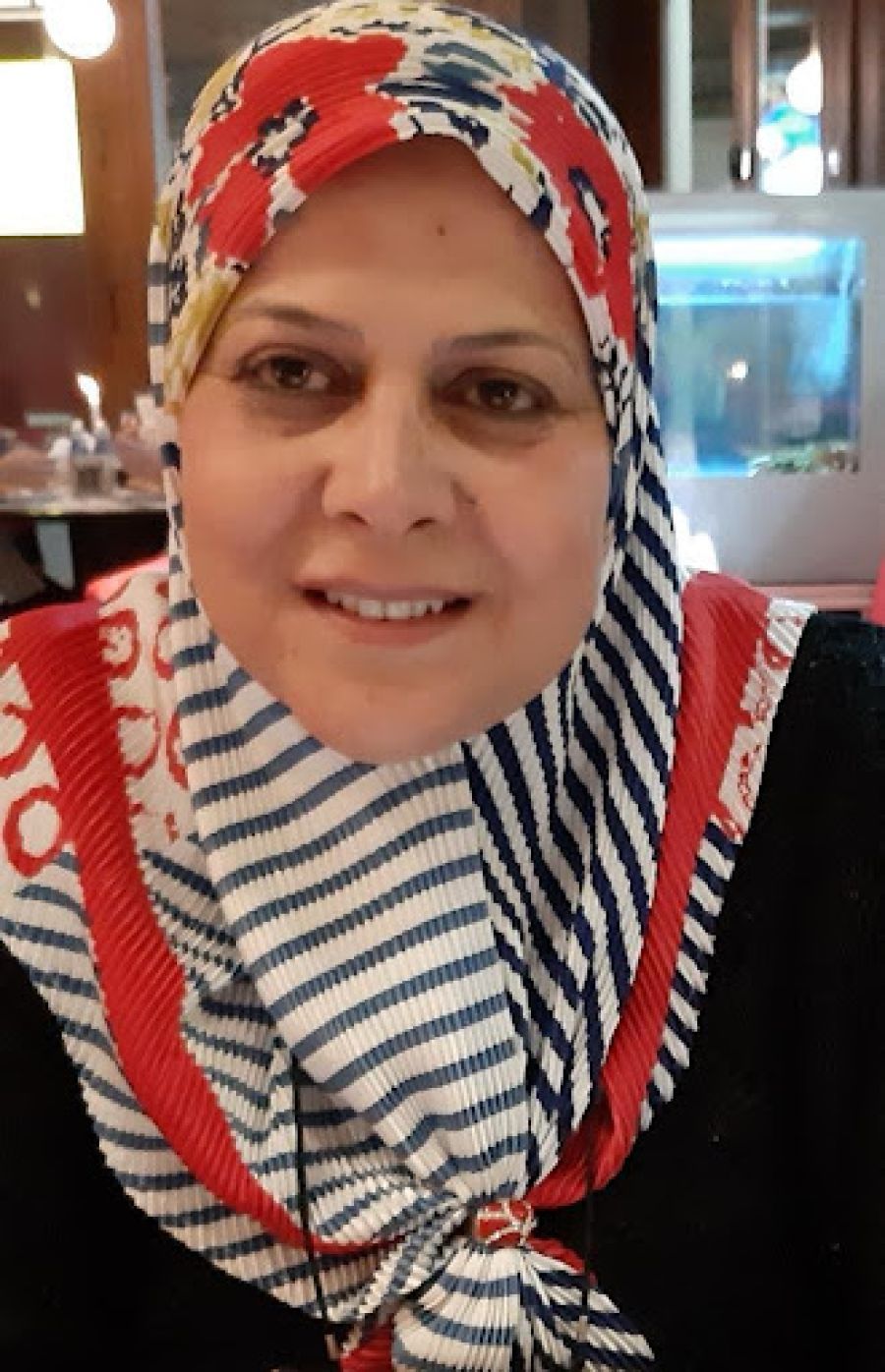
Dr. Hanifa Saad Al-Rabti is a coordinator of the Continuous Professional Development Committee at the General Health Council. She is also a consultant in pediatric cardiology and an associate professor at Tripoli Medical College. Therefore, her expertise appears to be in the field of pediatric cardiology and medical education, particularly in the area of continuous professional development for healthcare professionals.
Lecture title: Continuing professional development (Medical Education)
In the medical field, continuing professional development (CPD) is a crucial aspect of maintaining high standards of patient care and staying abreast of advancements in medical knowledge, technology, and best practices. Medical professionals engage in CPD activities to enhance their clinical skills, expand their knowledge base, and keep pace with developments in medical research and healthcare delivery. Key components of CPD in the medical field include:
Continuing Medical Education (CME): Medical professionals participate in CME activities such as conferences, workshops, seminars, and online courses to update their clinical knowledge and skills. These activities cover a wide range of medical specialties and topics, including diagnosis, treatment modalities, patient management, and ethical considerations.
Clinical Practice Guidelines: Medical practitioners integrate evidence-based guidelines and protocols into their clinical practice to ensure the delivery of high-quality, standardized care. CPD includes staying current with the latest clinical guidelines and incorporating them into patient care decisions.
Professional Certification and Licensing: Many medical specialties require professionals to obtain and maintain board certification or licensure through ongoing CPD activities. These certifications demonstrate proficiency and competency in a specific medical specialty and may involve periodic recertification examinations or continuing education requirements.
Quality Improvement Initiatives: CPD in the medical field often involves participation in quality improvement projects aimed at enhancing patient outcomes, safety, and satisfaction. Medical professionals engage in activities such as peer review, clinical audits, and performance assessments to identify areas for improvement and implement practice changes.
Research and Scholarship: CPD encourages medical professionals to engage in scholarly activities, including research, publication, and academic collaborations. By contributing to medical literature and participating in research endeavors, professionals advance medical knowledge and contribute to evidence-based practice.
Interprofessional Collaboration: CPD fosters collaboration among healthcare professionals from different disciplines, promoting interdisciplinary teamwork and communication. Collaborative CPD activities enable professionals to learn from each other, share expertise, and improve patient care outcomes through coordinated efforts.
Overall, CPD plays a vital role in supporting the lifelong learning and professional growth of medical practitioners, ensuring that they remain competent, up-to-date, and responsive to the evolving healthcare landscape. By investing in CPD, medical professionals uphold the highest standards of clinical practice and contribute to the advancement of medical science and patient care.
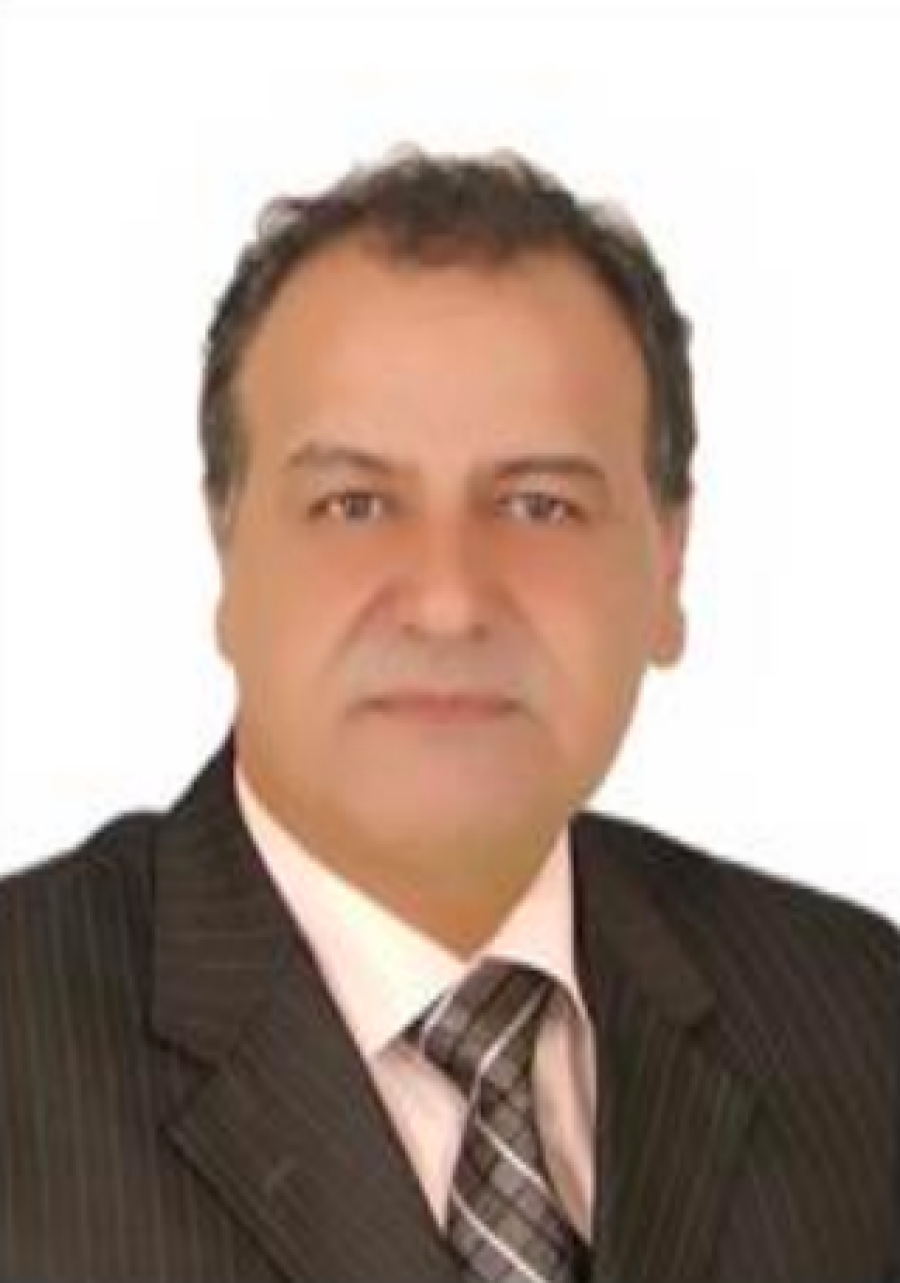
Prof. Noureddine Al-Bouzidi serves as a Technical Advisor at the Ministry of Health, providing expert guidance on healthcare policies and regulations. Concurrently, he holds a faculty position at Zintan College of Medicine, contributing to medical education and research. Notably, Prof. al-Bouzidi chairs the Medical Prescription Committee, overseeing the establishment and maintenance of standard medication lists. This committee ensures that prescribing practices align with evidence-based guidelines and regulatory standards, promoting safe and effective medication use. In his role as a Technical Advisor, Prof. al-Bouzidi offers insights into various aspects of healthcare delivery, policy development, and regulatory compliance within the Ministry of Health. He contributes to shaping healthcare strategies, evaluating programs, and ensuring adherence to quality standards. As a faculty member, he plays a vital role in training medical students, conducting research, and shaping the curriculum. Chairing the Medical Prescription Committee entails leadership in reviewing medication protocols and making recommendations for updates to standard medication lists. This responsibility is crucial for promoting rational prescribing practices and ensuring patient safety. The committee’s work aligns with the broader objectives of the General Health Council, which oversees healthcare regulation, policy development, and quality assurance at the national level.
Lecture title: Prescription medication according to medication options and prescriptions.
Prescription medication is a fundamental aspect of modern healthcare, where healthcare providers prescribe specific medications to patients based on their medical conditions, symptoms, and individual health needs. The process of prescribing medication involves careful consideration of various factors, including the patient’s medical history, allergies, potential drug interactions, and the effectiveness of available treatment options. Healthcare providers, such as physicians, nurse practitioners, and physician assistants, rely on their clinical expertise and knowledge of pharmacology to select the most appropriate medication for each patient. They assess the patient’s condition, conduct diagnostic tests if necessary, and evaluate the potential benefits and risks of different treatment options before making a prescription decision. One crucial aspect of prescribing medication is considering the range of available medications and their suitability for the patient’s condition. Healthcare providers must stay updated with the latest medical research, clinical guidelines, and pharmaceutical developments to make informed decisions about medication selection. They consider factors such as the medication’s mechanism of action, dosage form, route of administration, and potential side effects when choosing the most appropriate treatment. Additionally, healthcare providers take into account the patient’s preferences, treatment goals, and adherence to medication regimens when prescribing medication. They engage in shared decision-making with patients, discussing the benefits and risks of different treatment options and addressing any concerns or questions the patient may have. Prescribing medication also involves ensuring that the prescription aligns with regulatory requirements and professional standards. Healthcare providers must follow legal and ethical guidelines when prescribing controlled substances adhere to formulary restrictions imposed by insurance providers or healthcare institutions, and document prescription details accurately in the patient’s medical record. Furthermore, ongoing monitoring and follow-up are essential components of prescription medication management. Healthcare providers assess the patient’s response to treatment, monitor for adverse effects or drug interactions, and adjust the treatment regimen as necessary to optimize therapeutic outcomes.

Dr wael Shaalan, Consultant of Bariatric surgery, Member of the Royal College of Surgery in Ireland, MRCSI, Member of the International Federation for the Surgery of OBESITY AND METABOLIC DISORDERS, IFSO, Member of the Egyptian Society of Bariatric Surgeons ESBS, Accredited by SRC, USA, Dr wael Shaalan has performed more than 4000 different Bariatric surgeries, including Sleeve gastrectomy, One Anastomosis Gastric Bypassrevision surgeries for previously operated patients. Dr wael Shaalan was the first in middle east to implement the new technique of chemical Encapsulation Omentopexy in his Sleeve and OAGBand reduce possible complications. Dr wael Shaalan is the founder of both Eegant Curved Clinic as well as Bliss clinic who both work intermingled to serve patients to reduce thetreatment afterwards.
Dr wael Shaalan, working in different hispitals in Egypt as well as in Benghazi Libya, has a fully integrated team including subspecialty to assisBariatric patients.
Lecture title: Procedure less Management of Acute Leak after Laparoscopic Gastric Sleeve Surgery
Leak after Sleeve gasterctomy is one of the most dreadful complications in Bariatric surgery. Management and cure depends largely on early diagnosis and early intervention. The fear of progressive deterioration of patient same times calls for unnecessary aggressive procedure. This talk describes a work of many patients that were selected to be treated all conservatively. Management succeeded ill of them with no need to intervene.
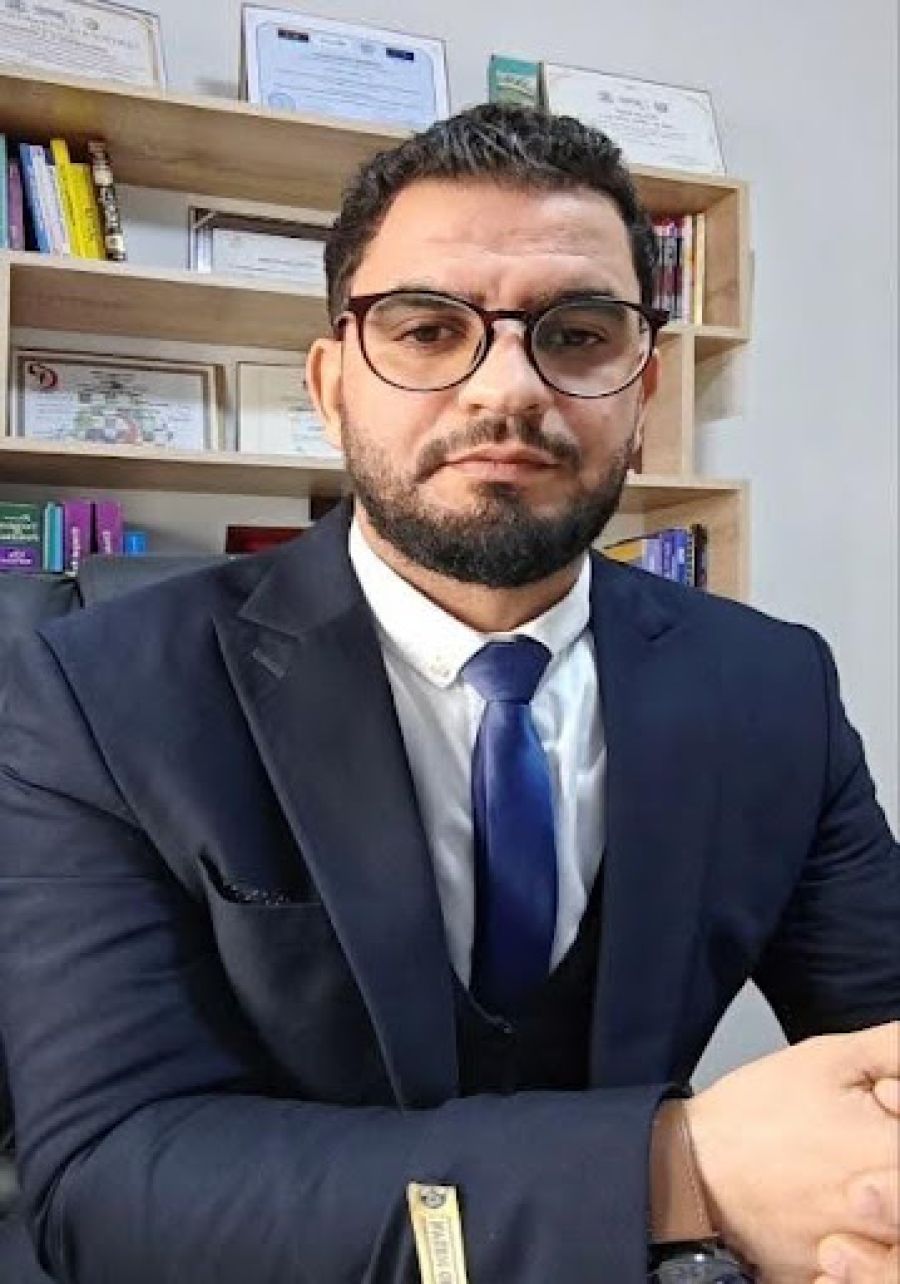
Dr. Zinelabedin Mohamed is an esteemed professional with a multifaceted role within the academic and medical community. Currently serving as the Head of the Research and Consultancy Department and a faculty member in the Department of internal medicine at the Faculty of Medicine, Tobruk University, Dr. Mohamed plays a pivotal role in shaping research excellence and academic standards. His expertise extends to his membership on the Research Ethical Committee, where he ensures ethical standards in academic endeavors. With a wealth of experience and dedication to advancing medical knowledge, Dr. Mohamed has made significant contributions to the field. His participation in the Libyan International Healthcare Forum and Exhibition further underscores his commitment to sharing his expertise and engaging with fellow professionals. Dr. Mohamed’s extensive background and leadership positions highlight his dedication to advancing medical research and education, making him a valuable asset to the academic and medical community.
Lecture title: Knowledge, Practices and Attitudes toward Medical Ethics among Hospital Practitioners in Libyan Tobruk tertiary center
Medical ethics play a vital role in ensuring patients’ satisfaction and determining appropriate healthcare practices, The state of medical ethics in Libya has been a subject of concern, and the current study is a cross- sectional questionnaire based study to assess the participants’ knowledge and attitudes towards healthcare ethics. The number of participants reached 330 (164 doctors and 166 nurses). The majority of participants of doctors and nurses were females, as they represented (68.9%) of doctors and (73.5%) of nurses. There were many significant differences between doctors and nurses attitudes regarding the followings: firstly: the belief that patient wishes must always be adhered to, (83.1% of nurses agreed, and 57.9% of doctors, P < 0.001). Secondly: the importance of confidentiality (71.3% of doctors compared to 60.2% of nurses, P = 0.045 have considered confidentiality an essential value). Also, significant differences were observed concerning the acceptance of abortion within the boundaries of the law (48.8% of nurses agreed compared to 36.6% of doctors, P = 0.033). It is recommended to improve the Libyan health care worker’s knowledge and attitude towards different ethical and legal issues through continuous medico-legal educational activities.
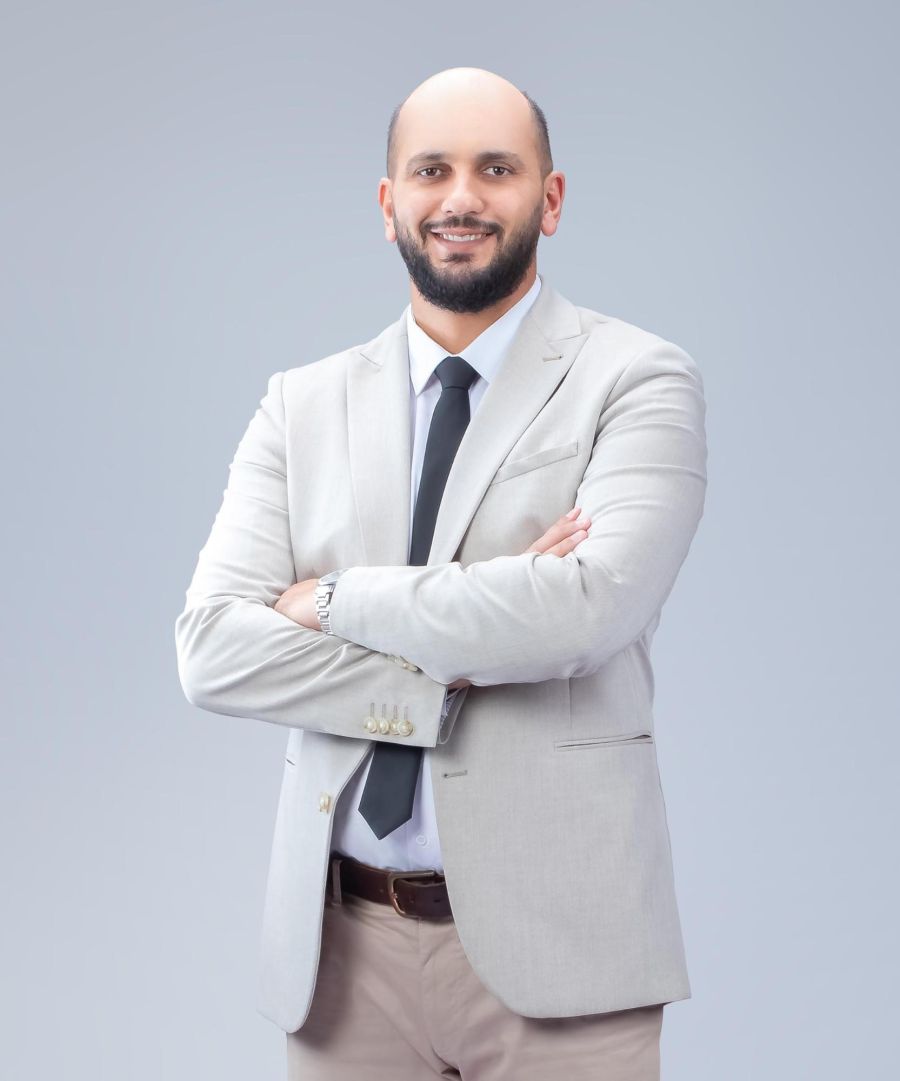
Dr. Muhammed Mansour Meliad, a passionate pharmacist with 13+ years of experience, seamlessly bridges academia and practical healthcare. He currently serves as a faculty member at the University of Tripoli’s Faculty of Pharmacy (UOT), Libya, while maintaining his role as a dedicated community and hospital pharmacist. Mr. Meliad excels in both theoretical knowledge and practical application, having honed his skills in various pharmacy settings over the past 12 years. He also actively shapes future generations of pharmacists by delivering engaging lectures and incorporating practical elements into courses like pharmacy practice, hospital pharmacy, pharmaceutics, biopharmaceutics, and pharmacokinetics at UOT. This unique blend equips his students with a well-rounded understanding of the field.
Lecture title: E-Prescribing: Transforming Healthcare Delivery
Introduction:
E-prescribing, also known as electronic prescribing, is a modern healthcare practice that utilizes electronic systems to generate and transmit prescription orders between healthcare providers, pharmacies, and patients. This digital approach to prescribing medication has transformed the way healthcare is delivered, enhancing patient safety, improving medication adherence, and streamlining the prescription process.
Key Points for the Lecture:
- Overview of E-Prescribing
- Enhanced Patient Safety
- Improved Medication Adherence
- Streamlined Prescription Process
- Legal and Regulatory Considerations
Target Audience:
The lecture on e-prescribing is designed for healthcare professionals, including physicians, pharmacists, nurses, and healthcare administrators. It is also suitable for students of healthcare related fields. The audience should have a basic understanding of healthcare processes and terminology, as well as an interest in exploring the potential benefits and challenges of implementing e-prescribing systems.